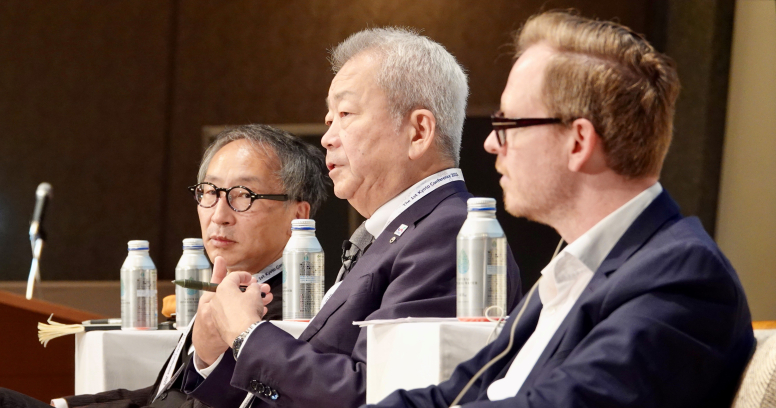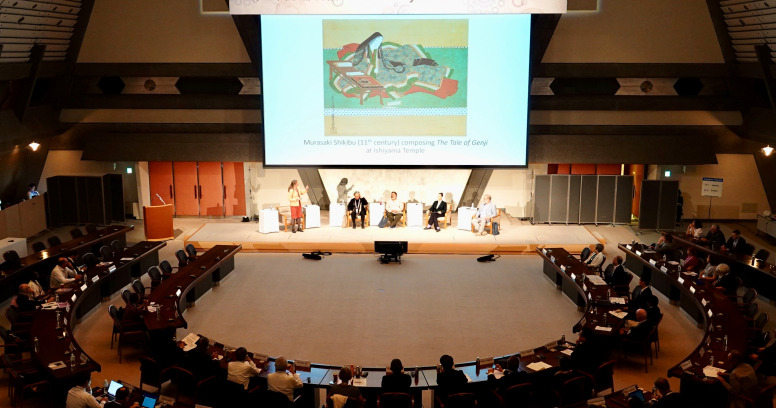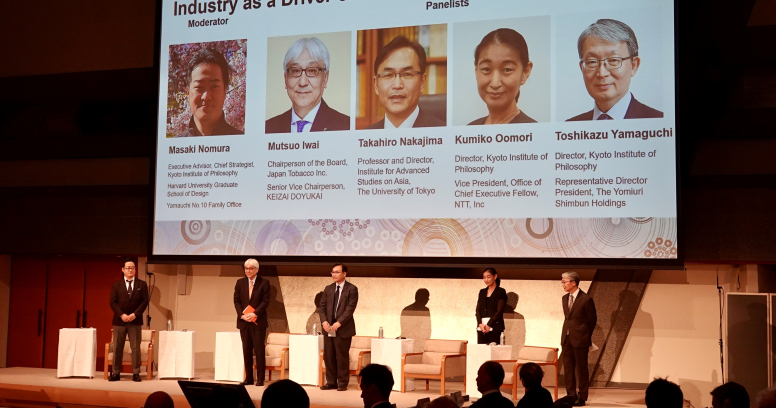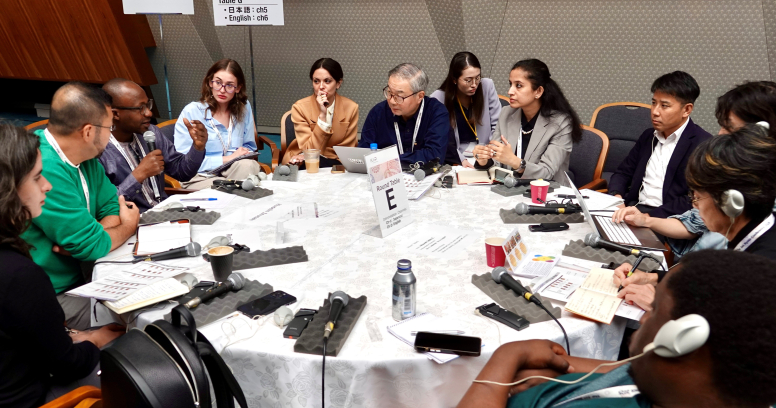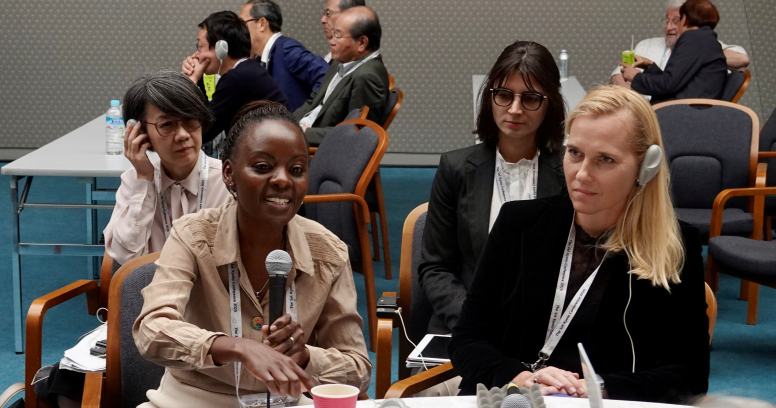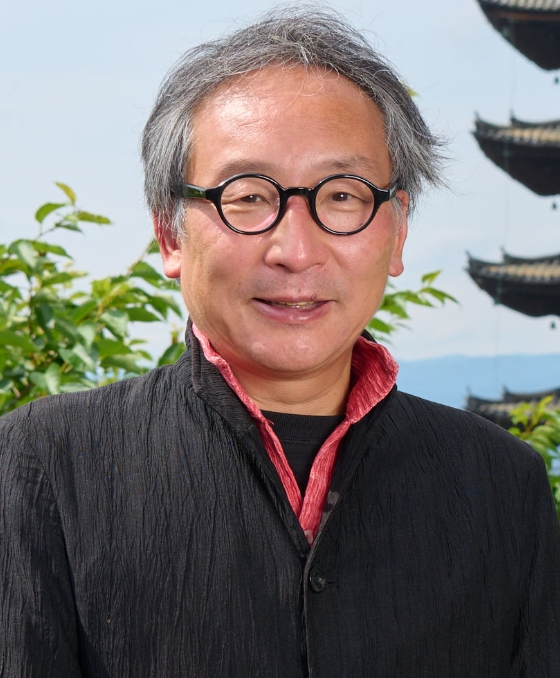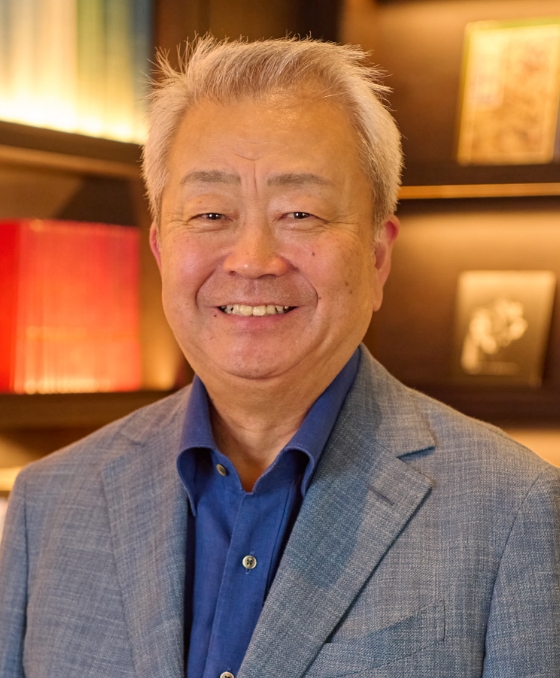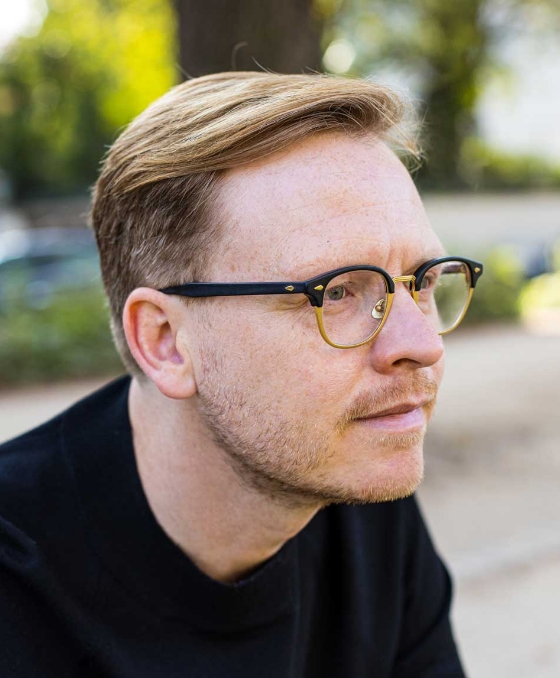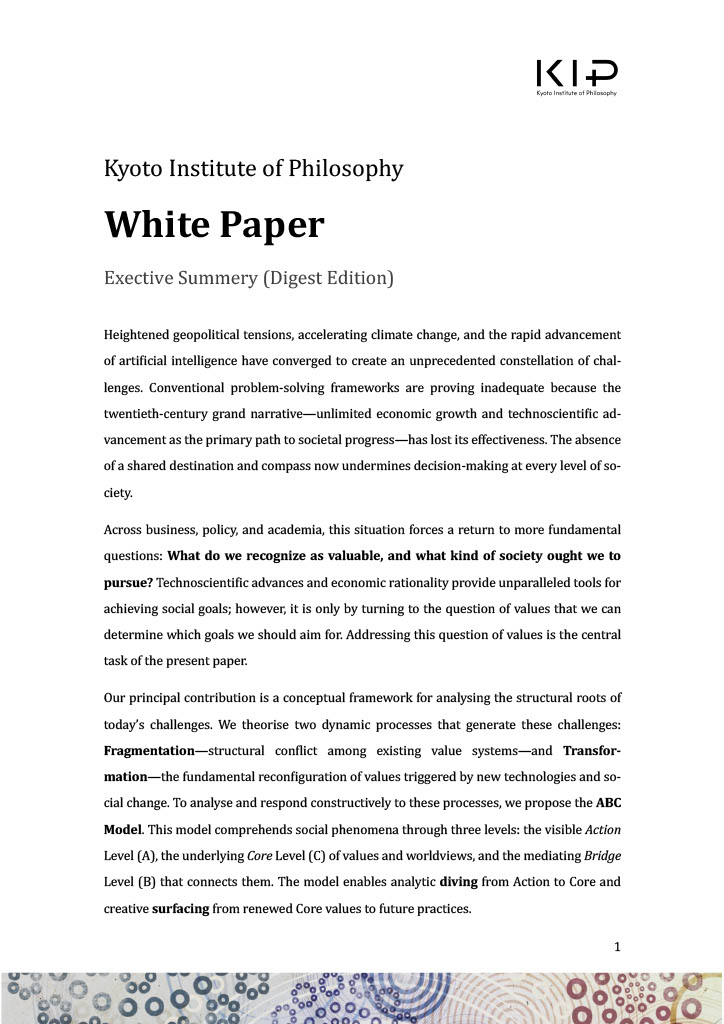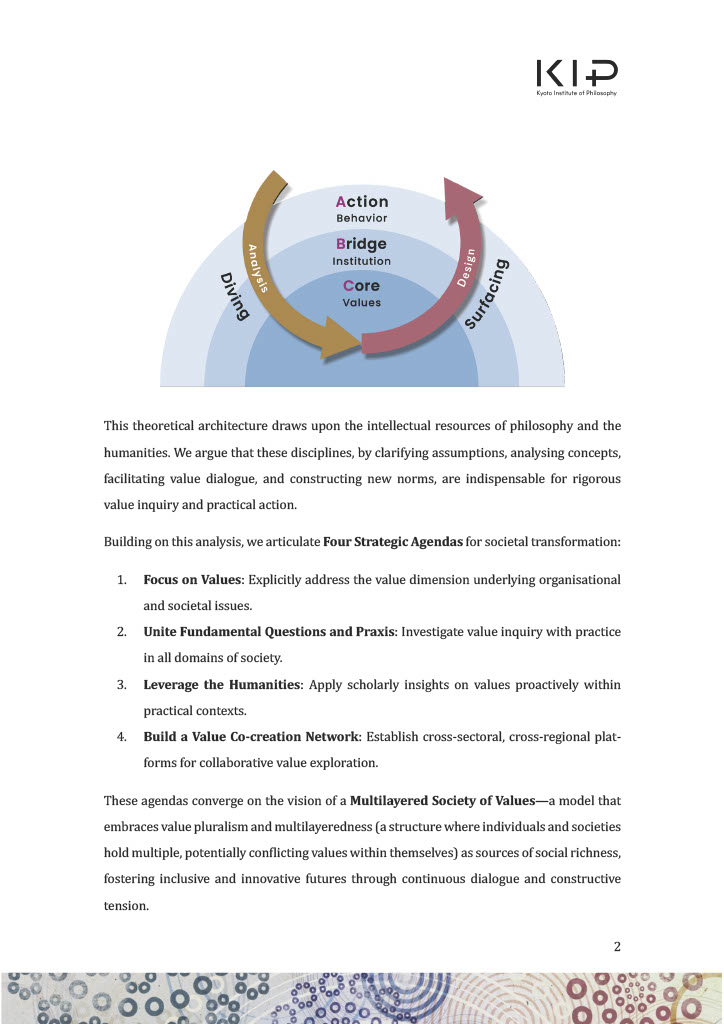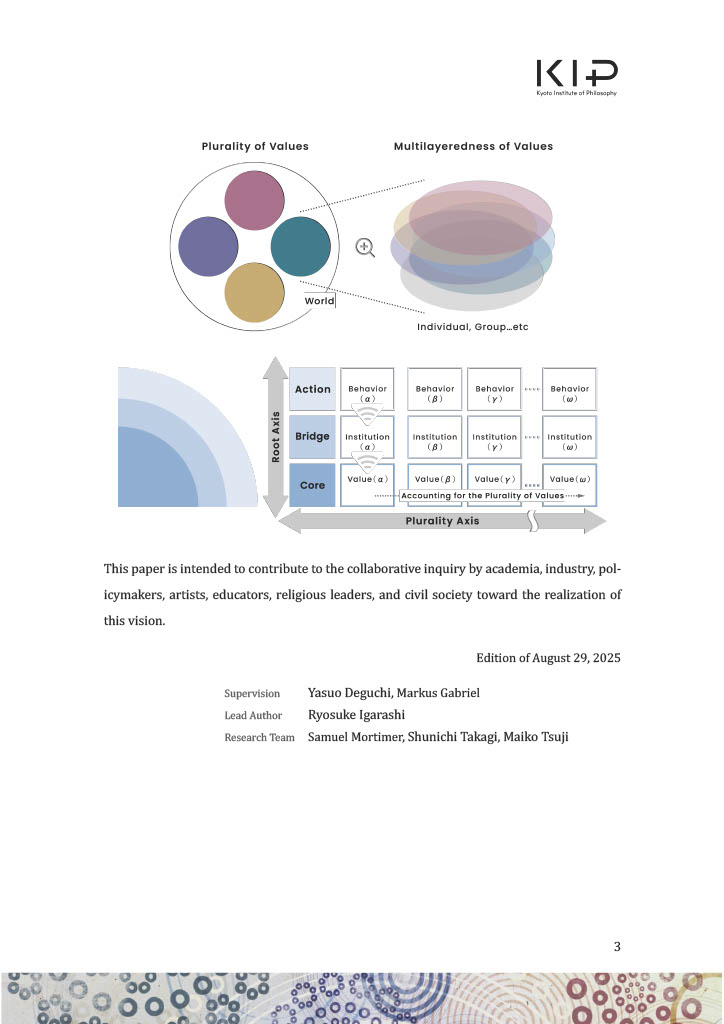















NOW MORE
THAN EVER,
THE WORLD NEEDS PHILOSOPHY
Can we claim that we are living “fulfilling lives”?
The economy has developed and technology has advanced.
Yet, the world faces serious divisions and is undergoing rapid transformations.
These issues are ever complex and intertwined. They cannot be addressed at a superficial level.
There is a pressing need to revisit and address challenges at greater depth.
We believe that the world needs philosophy.
We need to dig deeper to question the context we take for granted.
What are the values we should aim for?
What future do we wish for?
The realization of these values will enhance society to create the next chapter of human history.
The Kyoto Conference bridges philosophy and society to enable intellectual co-creation that prioritizes
tangible change. Various fields, ideas, and cultures come together to open up people’s minds.
Questions that cannot be resolved in silos, but need to be addressed by transcending disciplinary barriers.
These actions will be the first step in outlining our future.
September 2025. The Kyoto Conference.
Your fundamental questions open up the World
Kyoto Conference
Outline
| Date | September 23-24, 2025 |
|---|---|
| Venue | Kyoto International Conference Center |
| Organizer | Kyoto Institute of Philosophy (KIP) |
| Co-organizer | Kyoto University |
| Supporters | Japan Business Federation (Keidanren), Japan Association of Corporate Executives (Keizai Doyukai), Japan Chamber of Commerce and Industry, Kyoto Prefecture, Kyoto City |
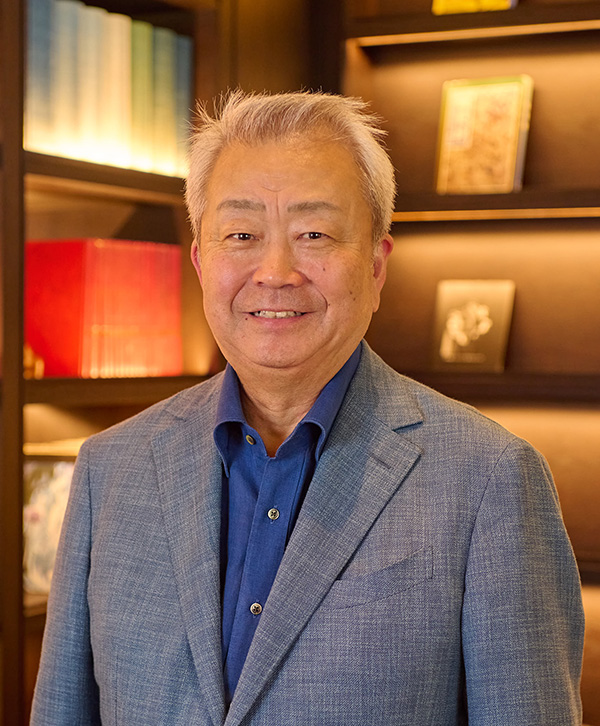
-
NTT, Inc., Executive Chairman
Jun Sawada
Chairman and Member of the Board, and former President and Chief Executive Officer of Nippon Telegraph and Telephone Corporation (currently NTT, Inc.). During his presidency, he pursued drastic reforms, including the announcement of the next-generation information and communication infrastructure concept “IOWN,” the reorganization of the NTT group, and the promotion of partnerships both domestically and internationally. He is also known for his deep appreciation of philosophy. In his book Paraconsistent World (NTT Publishing), he proposes a vision of the future from the perspectives of philosophy, life sciences, and information sciences. He also serves as the Chairman of the Japan-U.S. Business Council, a Vice Chair of the Japan Business Federation and a Visiting Professor of Ritsumeikan University Business School. In June 2024, he was awarded Honorary Officer of the Most Excellent Order of the British Empire (OBE) for his contributions to UK/Japan trade and investment and to UK/Japan relations. He graduated from the Department of Civil Engineering, Kyoto University.
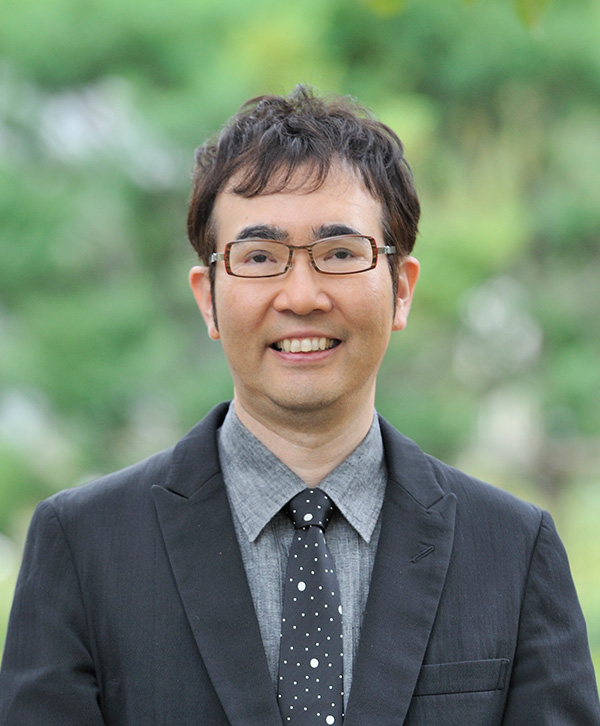
-
Professor, Aoyama Gakuin University
Shinichi Fukuoka
Biologist, Author
Born in Tokyo in 1959. FUKUOKA Shin-Ichi graduated from Kyoto University, where he later completed a doctoral program. After working as a researcher at Harvard Medical School and as an assistant professor at Kyoto University, he was appointed to his current posts of professor at Aoyama Gakuin University and visiting professor at Rockefeller University in the U.S.A. Dr. FUKUOKA has published many books that re-examine the nature of life from the perspective of dynamic equilibrium theory, including the “Dynamic Equilibrium” series (Kirakusha) and Seibutsu to Museibutsu no Aida (“Between the animate and inanimate”; Kodansha Gendai Shinsho), which garnered the Suntory Prize and became a bestseller, with more than 900,000 copies sold. Dr. FUKUOKA was also put in charge of the “Quest of Life” theme project for Expo 2025 Osaka, Kansai, Japan.
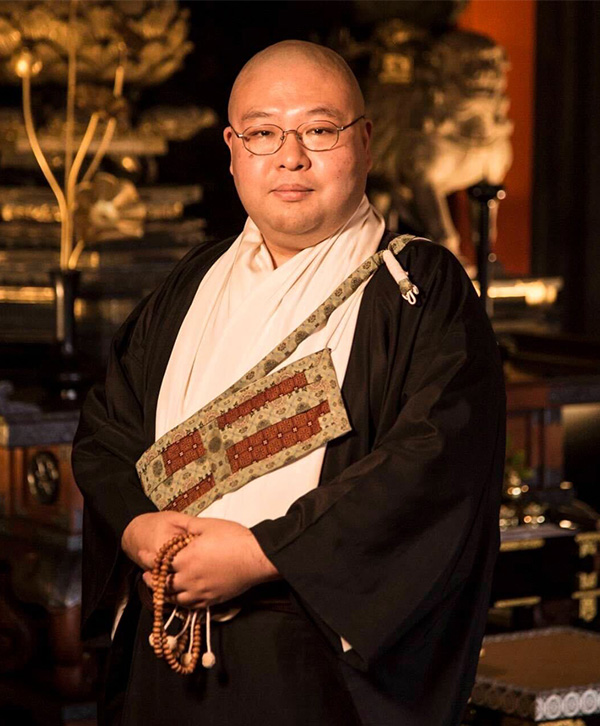
-
Kiyomizu-dera Temple, Kita Hosso Buddhism Director General Kiyomizu-dera Temple Director of Educational Affairs
Seigen Mori
Seigen Mori is a Buddhist priest and scholar with a Ph.D. in Buddhist Studies from Rissho University. He currently serves as Director of Temple Affairs and Director of Educational Affairs at Kiyomizu-dera Temple in Kyoto, and as Chief Priest of Taisan-ji Temple. He is also a visiting fellow and lecturer at the Institute of Grief Care at Sophia University, and a visiting professor in the Tourism MBA Program at Ritsumeikan University. His radio program, Trip around 33, which introduces the Thirty-three Kannon Pilgrimage, received the 2019 JFN Award for excellence in regional broadcasting. He now leads Kiyomizu-dera Gakuho, a new initiative promoting the integration of Buddhism and the liberal arts. He is also the co-author of the book “An Invitation to Kiyomizu-dera Temple.” He is dedicated to bringing Buddhist teachings and Kannon’s path closer to people’s lives through study and experience.
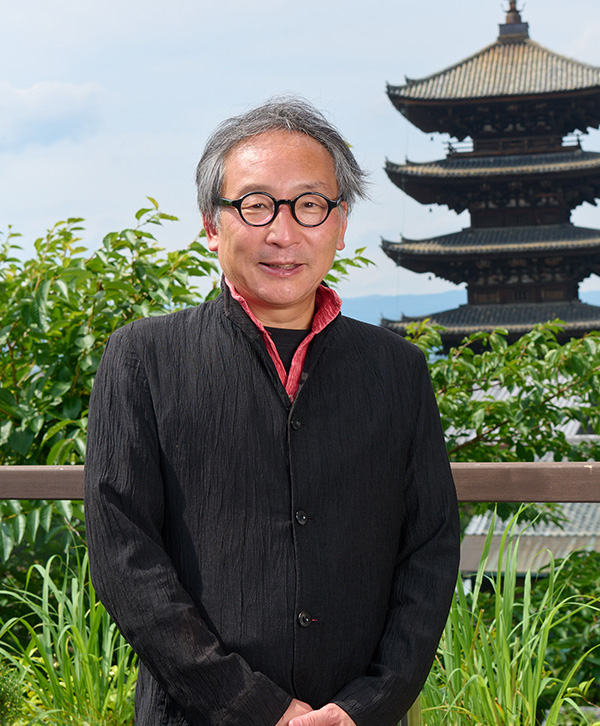
-
Dean and Professor of Philosophy at Graduate School of Letters,Kyoto University
Yasuo Deguchi
Professor of Philosophy and Dean of the Graduate School of Letters, and Vice Director of the Institute for the Future of Human and Society at Kyoto University. He completed his doctoral studies at the Graduate School of Letters, Kyoto University, earning a Ph.D. in Letters. He joined the Philosophy Department at Kyoto University’s Graduate School of Letters in 2002. His research areas include analytical Asian philosophy and philosophy of mathematical science. He is currently advocating a new value system called “WE-turn.” His recent works include AI Best Friend (Tokuma Shoten), What Can’t Be Said: Paradox and Contradiction in East Asian Thought (Oxford UP), and Moon Points Back (Oxford UP).
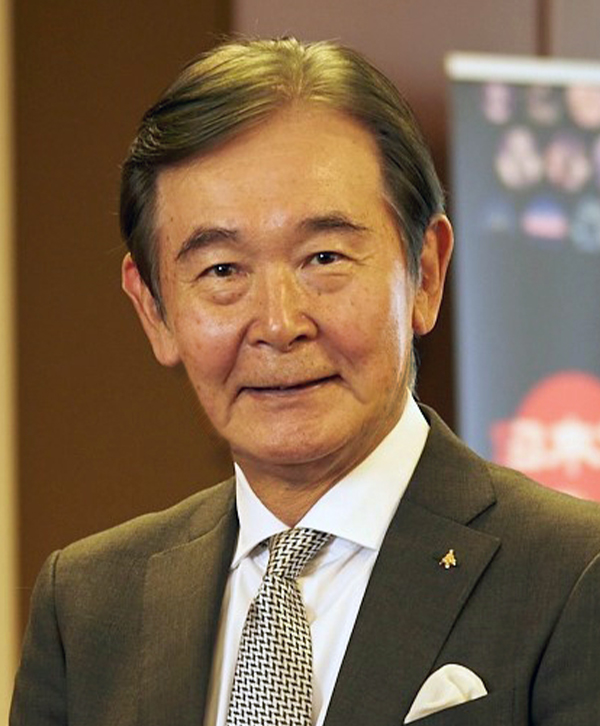
-
Agency for Cultural Affairs, Government of Japan, Commissioner
Shunichi Tokura
Born in Tokyo, Japan.
Tokura’s professional music career started while studying law at Gakushuin University in Tokyo. He then further studied composition, conducting as well as screening and studio production extensively in Japan, Germany, and the United States.
Tokura has won numerous major music awards in Japan, including the "Japan Record Awards" and the "Japan Music Awards" four times each.
He has served in positions such as the chairman of Japanese Society for Rights of Authors, Composers and Publishers (JASRAC), and as a board member of the Council for Cultural Affairs.
In 2018, Tokura was selected Person of Cultural Merit; and in April 2021, he was appointed Commissioner for Cultural Affairs.
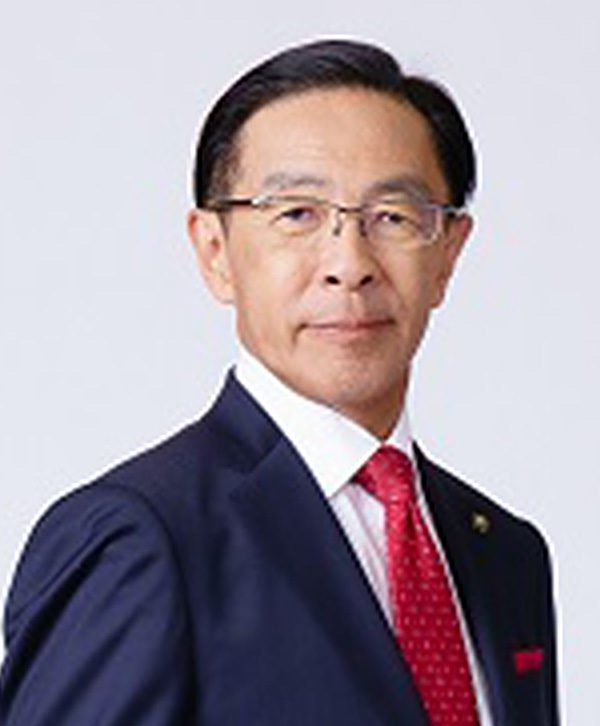
-
Kyoto Prefecture, Governor of Kyoto Prefecture
Takatoshi Nishiwaki
Born in Kyoto on 16 July 1955
March 1979 Graduated from the University of Tokyo (Faculty of Law)
April 1979 Joined Ministry of Construction
April 1987 Director, General Traffic Division, Department of Planning and Coordination Yamagata Prefecture,
January 2001 Director, Community Development Promotion Division, City and Regional Development Bureau, Ministry of Land, Infrastructure, Transport and Tourism
July 2002 Director, Public Relations Division, Minister’s Secretariat, Ministry of Land, Infrastructure, Transport and Tourism
July 2006 Director, Budget and Accounts Division, Minister’s Secretariat, Ministry of Land, Infrastructure, Transport and Tourism
July 2008 Deputy Director-General, Road Bureau, Ministry of Land, Infrastructure, Transport and Tourism
February 2013Director-General, Policy Bureau, Ministry of Land, Infrastructure, Transport and Tourism
July 2014 Deputy Vice-Minister, Minister’s Secretariat, Ministry of Land, Infrastructure, Transport and Tourism
July 2015 Vice-Minister, Ministry of Land, Infrastructure, Transport and Tourism
June 2016 Vice-Minister, Reconstruction Agency
April 2018 Elected as Governor of Kyoto Prefecture
April 2022 Re-elected (currently in the 2nd term)
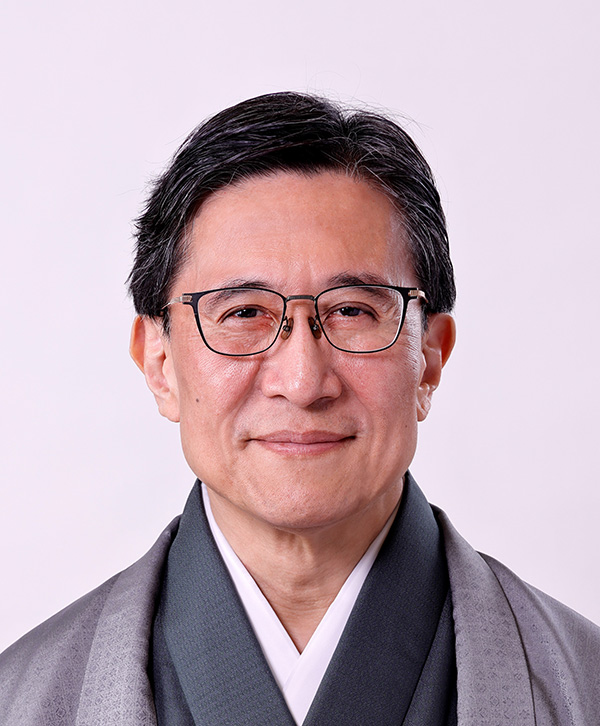
-
Kyoto City, Mayor of Kyoto
Koji Matsui
Date of Birth:April 24, 1960
Birthplace:Kyoto City
Graduated from the University of Tokyo in Social and International Relations, Department of Humanities and Social Sciences, College of Arts and SciencesCareer History
1983 - Entered the Ministry of International Trade and Industry (Current Ministry of Economy, Trade and Industry)
1994 - Deputy Counsellor, Cabinet Secretariat
1996 - Deputy Director, Policy Planning and Coordination Division, Minister’s Secretariat, the Ministry of International Trade and Industry
1998 - Director, Research System Improvement Office, Research Institute of International Trade and Industry
2001 - Member of the House of Councilors (Elected first time)
2007 - Member of the House of Councilors(Re-elected)
2009 - Deputy Chief Cabinet Secretary
2013 - Professor, Faculty of Policy Management, Keio University
Feb 2024 - The 27th Mayor of Kyoto
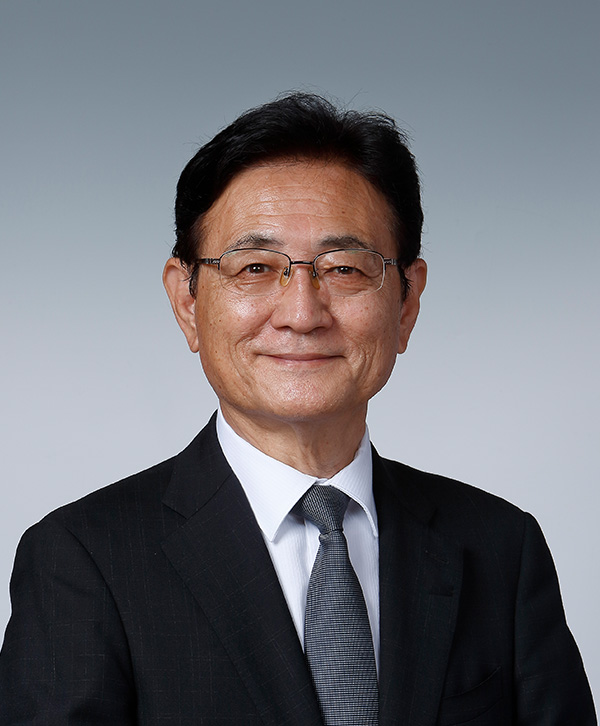
-
President, Kyoto University
Nagahiro Minato
Nagahiro Minato is the president of Kyoto University. Born in 1951, he holds the degree of doctor of medicine. After graduating from Kyoto University’s Faculty of Medicine in 1975, he worked as an associate researcher at the Albert Einstein College of Medicine from 1977-80. In 1992, he was appointed as professor of immunology and cell biology at Kyoto University’s Graduate School of Medicine, where he served as dean from 2010-14. After serving as Kyoto University’s provost and executive vice-president, Dr. Minato was appointed as the 27th president in October, 2020. His main interest is immunology, a field in which he has published approximately 220 scientific papers throughout his career. In 2002, he invented PD-1 checkpoint blockade cancer immunotherapy with Dr. Tasuku Honjo.
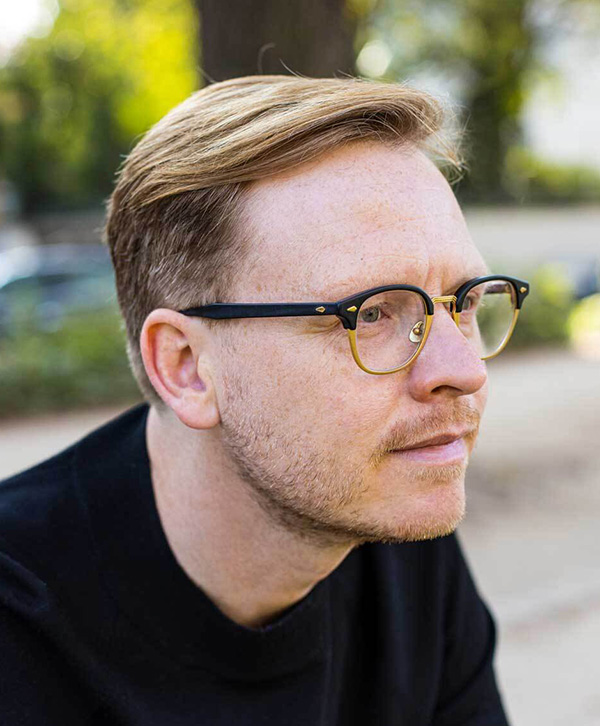
-
Chair in Epistemology, Modern, and Contemporary Philosophy, Director of International Centre for Philosophy Director of Center for Science and Thought, University of Bonn
Markus Gabriel
Markus Gabriel (born 1980) studied in Bonn, Heidelberg, Lisbon, and New York.
He is one of the world’s most prominent representatives of New Realism in philosophy.
At just 29, he became the youngest full professor of philosophy in Germany, having already served as a tenure-track professor at New York’s New School for Social Research since 2008.
Since 2009, he has held the Chair in Epistemology, Modern and Contemporary Philosophy at the University of Bonn. He has served as Director of the International Center for Philosophy since 2012.
In 2017, he founded the Center for Science and Thought together with colleagues from physics. This center facilitates interdisciplinary exchange between philosophy, science, and technology in order to find productive and sustainable solutions to the most pressing questions of our time. In this context, he is Principle Investigator of a project on Desirable Digitalization, which provides a new framework for thinking about AI.
His best-selling books include Why the World Doesn’t Exist (Polity),I Am Not a Brain: Philosophy of Mind for the 21st Century (Polity), The Meaning of Thought (Polity), and Moral Progress in Dark Times: Universal Values for the 21st Century (Polity).
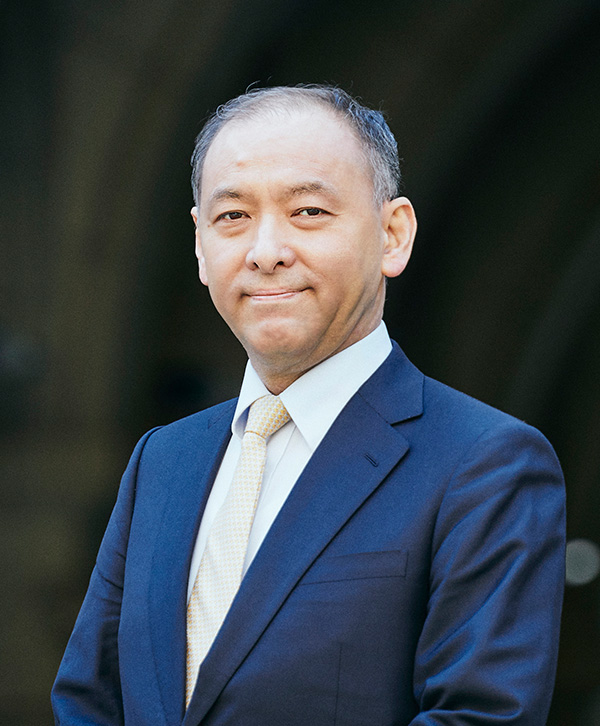
-
Professor, Graduate School of Humanities and Sociology, The University of Tokyo
Noburu NOTOMI
Noburu Notomi, born in Tokyo in 1965, is Professor of Philosophy, Graduate School of Humanities and Sociology, The University of Tokyo. He served as Dean of the Graduate School of Humanities and Sociology and Dean of the Faculty of Letters from April 2023 to March 2025. He was awarded the Medal with Purple Ribbon in 2024.
He has received his B.A and M.A in Philosophy from the University of Tokyo, and his Ph.D. in Classics from the University of Cambridge in 1995. He taught at Kyushu University and Keio University before joining the University of Tokyo, and was invited to give lectures in many universities inside and outside Japan.
As the President of the International Plato Society (2007-2010), he organized the IX Symposium Platonicum, at Keio University in 2010. He had given over seventy papers at various international conferences and seminars, including the Special Session of the 2400 Anniversary of Plato’s Academy at XXIII World Congress of Philosophy (FISP, Athens, August 2013). He is currently President of the Philosophical Association of Japan, President of Philosophical Society, and Representative Secretary of Greek Philosophy Seminar, in Japan.
He published a dozen of monographs, over a hundred articles on Ancient Philosophy in Japanese and English, and a few Japanese translations of Plato and Aristotle. His publications include The Unity of Plato’s Sophist: between the sophist and the philosopher (Cambridge University Press, 1999; Japanese version, Nagoya University Press, 2002; Catalan Translation, 2024), Who is the Sophist? (Japanese, Jinbun-shoin, 2007; Suntory Prize for Social Sciences and Humanities), and A History of Greek Philosophy (Chikuma Shobo, 2021; Watsuji Tetsuro Cultural Award). He co-edited with Luc Brisson, Dialogue on Plato’s Politeia (Republic): selected papers from the Ninth Symposium Platonicum (Academia Verlag, 2013).
In recent years, together with several Japanese scholars, he has promoted “World Philosophy”. His major works in this field are An Introduction to World Philosophy (Chikuma Shinsho, 2024) and A History of World Philosophy (co-edited, 9 volumes, Chikuma Shinsho, 2020).
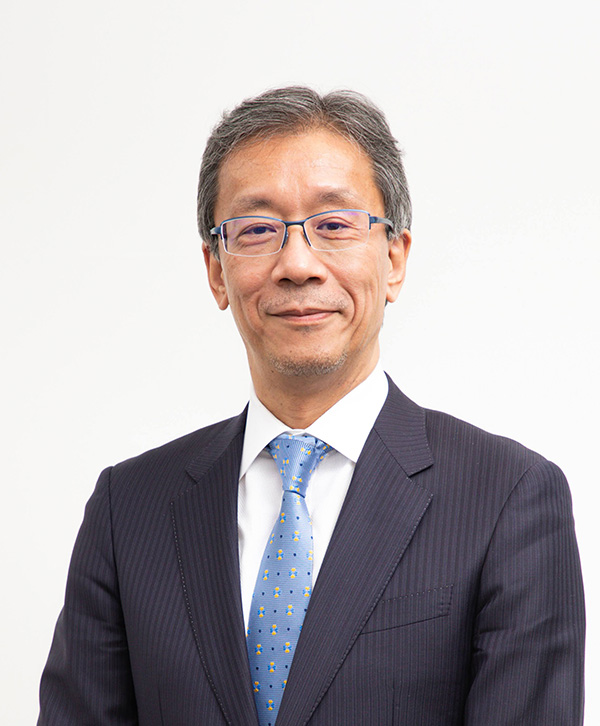
-
President, The University of Tokyo
Teruo FUJII
Dr. Teruo Fujii is the 31st President of the University of Tokyo (UTokyo). Prior to taking the President’s office in April 2021, he was the Executive Vice President in charge of finance and external relations for the university. He also served as the Director General of the Institute of Industrial Sciences (IIS) of the university from 2015 to 2018.
He received his Ph.D. in engineering from UTokyo in 1993 and held research positions at IIS and RIKEN prior to becoming a professor of IIS in 2007.
Dr. Fujii was an advisor to the Ministry of Education, Culture, Sports, Science and Technology (MEXT) from 2005 to 2007, the co-director of LIMMS-CNRS/IIS, a joint research laboratory between CNRS of France, and IIS, from 2007 to 2014, and the President of the Chemical and Biological Microsystems Society (CBMS) from 2017 to 2019. He held the position of an Executive Member (part-time) of the Council for Science, Technology and Innovation, Cabinet Office, Government of Japan from March 2021 to February 2024.
Dr. Fujii’s research specializes in applied microfluidics systems and underwater technology.
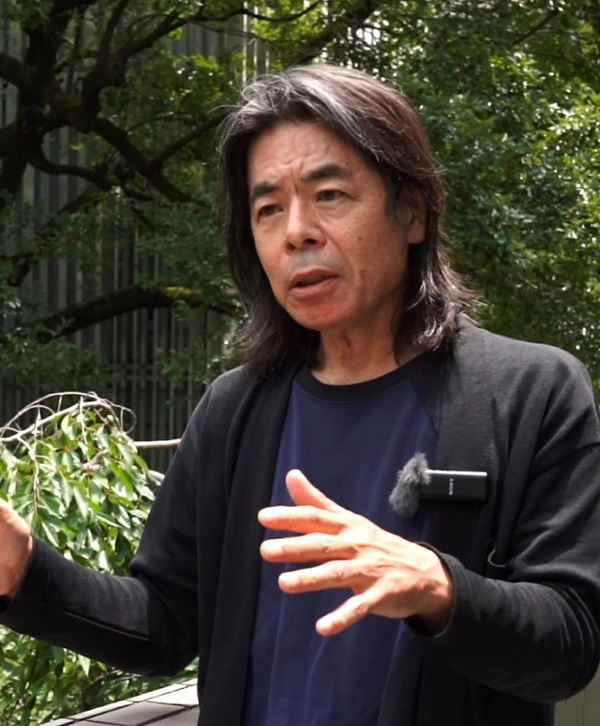
-
President, Tokyo University of the Arts
Katsuhiko Hibino
Born in Gifu Prefecture in 1958.
Began artistic activities while studying at Tokyo University of the Arts in the early 1980s, combining social media and art.
He later participated in numerous group exhibitions and biennales in Japan and abroad, including the Sydney Biennale and the Venice Biennale, actively engaging in a wide range of cross-disciplinary activities that leveraged the unique characteristics of different regions.
Currently, he is the Director of the Gifu Prefectural Museum of Art and a professor at Kumamoto City Museum of Art.
Since 1995, he has been promoting educational research that explores the possibilities of new artistic expression in contemporary society.
In 2022, he became the President of Tokyo University of the Arts, where he continues to conduct and implement research on “living art”—an approach that investigates the potential of art in today’s society, including collaboration with companies and local communities.
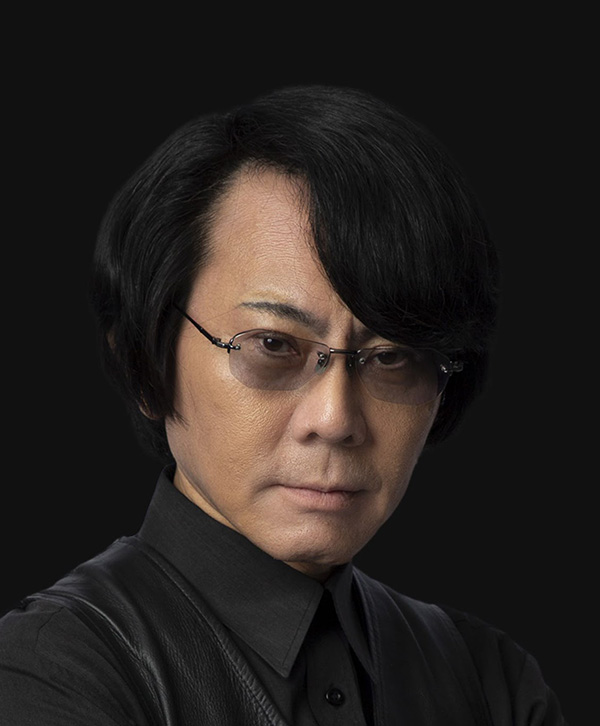
-
Professor, Department of Systems Innovation, The University of Osaka
Hiroshi Ishiguro
Hiroshi Ishiguro received a Ph. D. from Osaka University, Japan in 1991. He is currently Professor of Department of Systems Innovation at Osaka University, Visiting Director of Hiroshi Ishiguro Laboratories at the Advanced Telecommunications Research Institute (ATR), Project Manager of MOONSHOT R&D Project, Thematic Project Producer of EXPO 2025 Osaka, Kansai, Japan, and CEO of AVITA, Inc. His research interests are interactive robotics, avatar, and android science. Geminoid is an avatar android that is a copy of himself. In 2011, he won the Osaka Cultural Award. In 2015, he received the Prize for Science and Technology by the Minister of Education, Culture, Sports, Science and Technology. He was also awarded the Sheikh Mohammed Bin Rashid Al Maktoum Knowledge Award in Dubai in 2015. Tateisi Award in 2020, and honorary doctorate of Aarhus university in 2021.
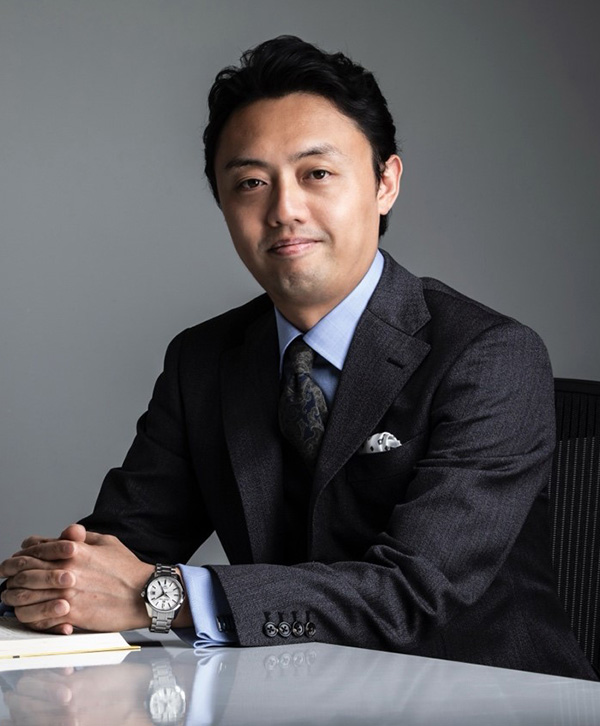
-
Professor, The University of Tokyo
Yutaka Matsuo
Graduated from the University of Tokyo in 1997 and earned a Ph.D. in Engineering in 2002. He has held research positions at the National Institute of Advanced Industrial Science and Technology and served as a visiting researcher at Stanford University. Since 2007, he has been an associate professor, and since 2019, a professor at the University of Tokyo’s Graduate School of Engineering. His research specializes in artificial intelligence, deep learning, and web mining. He has served as the chairman of the Japan Deep Learning Association since 2017, an outside director of SoftBank Group Corporation since 2019, an expert member of the Council for Achieving New Capitalism and the chair of the AI Strategy Conference since 2023, the chair of the AI Institutional Study Group since 2024, and a board director of the AI Robot Association since 2024.
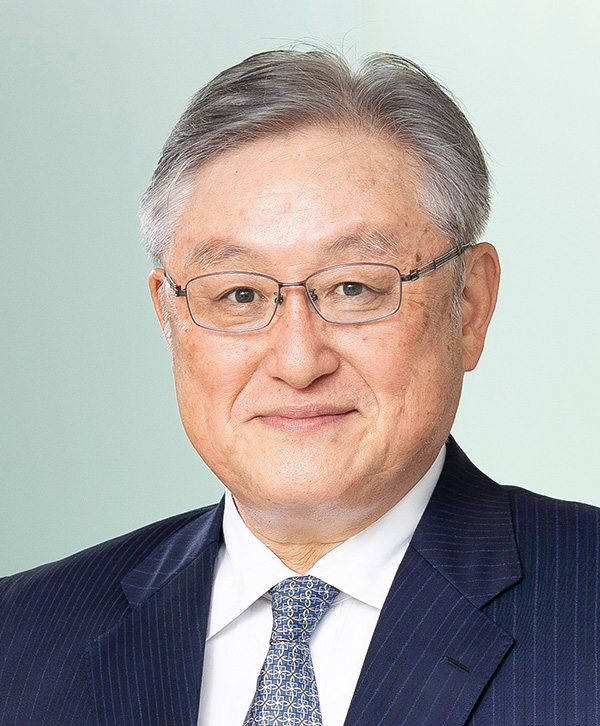
-
Hitachi, Ltd. Executive Chairman
Toshiaki Higashihara
Date of Birth February 16, 1955
Academic Background
September, 1990 Master of Science in Computer Science, Boston University
March, 1977 Graduated from the Faculty of Engineering, Tokushima UniversityBusiness Experience
April, 2022 Director, Executive Chairman, Representative Executive Officer
June, 2021 Director, Representative Executive Officer, Executive Chairman & CEO
May, 2021 Director, Representative Executive Officer, Executive Chairman, President & CEO
April, 2016 Director, Representative Executive Officer, President & CEO
June, 2014 Director, Representative Executive Officer, President & COO
April, 2014 Representative Executive Officer, President & COO
April, 2013 Senior Vice President and Executive Officer, President & CEO of Infrastructure Systems Group and Infrastructure Systems Company
April, 2010 Representative Executive Officer, President and Chief Executive Officer, Hitachi Plant Technologies, Ltd.
April, 2008 President, Hitachi Power Europe GmbH
April, 2007 Vice President and Executive Officer, Chief Operating Officer of Power Systems Group
April, 2006 Corporate Officer, Chief Operating Officer of Information & Telecommunication Systems Group
January, 2006 Corporate Officer, General Manager of Information & Control Systems Division, Information & Telecommunication Systems Group
October, 2001 General Manager of Public Utility and Energy Industry Information Systems Division, Information & Control Systems Division, System Solutions Group
August, 2000 Senior Manager of Public Utility and Energy Industry Information Systems Design Department, Information & Control Systems Division, Power & Industrial Systems Group
April, 1999 Senior Manager of Transportation Systems Design Department, Omika Industrial Systems Division, Power & Industrial System Group
April, 1977 Joined Hitachi, Ltd.
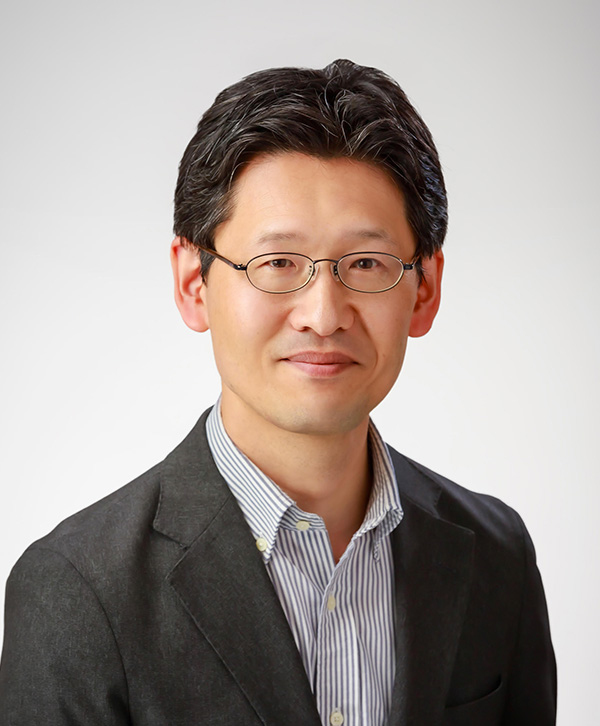
-
Professor, Kyoto University Graduate School of Letters
Satoshi Kodama
Institution: Kyoto University Affiliation: Graduate School of Letters, Department of Ethics Position: Professor
E-mail: kodama.satoshi.4v@kyoto-u.ac.jpWorking Experience
•2022.04 up to now: Professor at the Department of Ethics at Kyoto University Graduate School of Letters
•2012.10 - 2022.03: Associate Professor at the Department of Ethics at Kyoto University Graduate School of Letters
•2007.04 - 2012.09: Senior Lecturer at the Department of Biomedical Ethics at the University of Tokyo Graduate School of Medicine
•2003.03 - 2007.03: Assistant professor at the Department of Biomedical Ethics at the University of Tokyo Graduate School of MedicineEducation:
•1997.03 BA in Philosophy, Kyoto University
•1999.03 MA in Letters, Kyoto University
•2006.01 PhD in Letters, Kyoto UniversityResearch Keywords: Ethics, Bioethics, Utilitarianism
Research interests:
Moral theory (utilitarianism); Moral methodology (the role of intuition in moral reasoning); End-of-life issues; Resource allocation; Public health ethics.Research achievements (in the past 5 years):
•Satoshi Kodama. “International Collaborative Research on Ethical and Legal Issues in End-of-Life Care in East Asia.” (research project,2018~2025);
•Satoshi Kodama. “Archiving the Ethical, Legal, and Social Issues in Pandemic Responses Towards Building an Infectious-Disease-Resilient Society.” (research project, 2020~2025);Publications and Lectures in Japanese
•Satoshi Kodama. The Ethics of Prevention, Minerva Shobo,2023. (publication);
•Satoshi Kodama. Kyoto-University-Style Clinical Ethics Manual, 2023 (edited work);
•Satoshi Kodama,Covid-19 and Ethics, Nakanishiya Shuppan, 2022 (publication)
•Satoshi Kodama, Practical Ethics, Keiso Shobo,2020 (publication)
•Satoshi Kodama. On Moral Progress: The Decline and Revival of Progress Talk, Philosophy, 2023.74 (2023): 22-30. (academic paper)
•Satoshi Kodama, Recent Issues in Medical Ethics—Challenges During the COVID-19 Pandemic. in the 50th Annual Meeting of the Japanese Society of Intensive Care Medicine, 2023.03.02 (invited lecture)
•Satoshi Kodama, The COVID-19 Pandemic and Two Ethical Perspectives. in the 34th Annual Meeting of the Japanese Association for Bioethics.2022.11.20(invited lecture)Publications in English
•Ozeki-Hayashi, Reina, Futoshi Iwata, Satoshi Kodama, and Miho Tanaka, 'Guideline-Based Approach to End-of-Life Care Decisions in Japan: Practice, Regulation and the Place of Advance Directives', in Advance Directives Across Asia: A Comparative Socio-Legal Analysis, ed. by Daisy Cheung and Michael Dunn (Cambridge University Press, 2023), pp. 243-61(academic paper)
•Satoshi Kodama, 'Ethical Challenges of the COVID-19 Pandemic: A Japanese Perspective', Journal of Medical Internet Research, 25 (2023); (academic paper)
•Satoshi Kodama,Campbell M, Tanaka M, et al. Understanding Japan's response to the COVID-19 pandemic. Journal of Medical Ethics 2022;48:173; (academic paper)
•Tanaka, Miho, Satoshi Kodama, Ilhak Lee, and Richard Huxtable. Forgoing life-sustaining treatment-a comparative analysis of regulations in Japan, Korea, Taiwan, and England, BMC Medical Ethics, 21(1),2020, 1-15; (academic paper)
•Tanaka, Miho, and Satoshi Kodama, Ethical Issues Around the Withdrawal of Dialysis Treatment in Japan, Asian Bioethics Review, 12(1), 2020, 51-57; (academic paper)
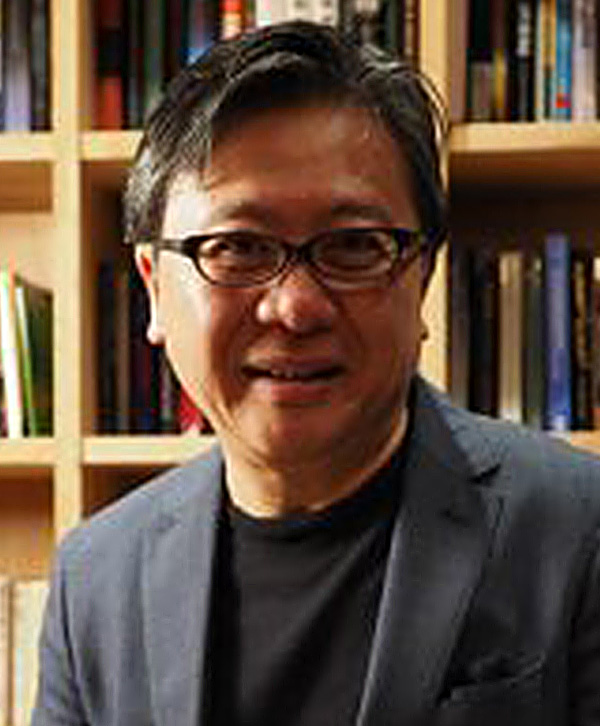
-
Chairperson and President, Graduate School of Leadership and Innovation, Shizenkan University
Tomoyoshi Noda
Dr. Tomoyoshi Noda is the founder of ISL and Shizenkan,Tokyo-based educational institutions dedicated to the development of next-generation leaders with the willpower, character, and creativity necessary to catalyze social and business innovation. Formerly, he was a faculty member of the London Business School (1996-1997), INSEAD in France (1997-2000), INSEAD ASIA in Singapore (2001-2003), and SIMI in Denmark (1996-2005) where he taught organizational strategy and transformational leadership to MBAs and executives. At INSEAD, he won a best teacher’s award for three consecutive years.
In 2001, Dr. Noda came back to Japan and established his own educational institution, ISL, with the support of around 300 top corporate executives, management professionals, and social leaders.
Since then, over 2,400 corporate managers and social entrepreneurs have graduated from ISL’s flagship whole-person leadership programs. Among graduates are CEOs of Mitsubishi Heavy Industries, Fujitsu, Mitsui & Co., Hitachi, Chugai Pharmaceuticals, Shiseido, Kokuyo, Japan IBM, Recruit Holdings, Misumi Holdings, TOTO, Mitsubishi Chemical Holdings, Komatsu, Hakuhodo DY Group, Digital Holdings, Seven Eleven Japan to name a few.By leveraging the resources and networks of ISL, he then launched Shizenkan University, officially approved by Japan’s Ministry of Education, in 2018. Shizenkan offers a unique executive MBA program, both in Japanese and in English, which capitalizes on the strengths of Western business and design school approaches, liberal arts education, and Asian tradition of self-reflection. Shizenkan aims to be a catalyst for change in the global management leadership education paradigm, and leads a global leadership development project, closely working with IESE Business School (Spain), School of Inspired Leadership (India), Oxford Business School (UK), National University of Singapore Business School (Singapore), Fundação Getulio Vargas (Brazil), and other 15 partners in the five continents.
Dr. Noda holds a bachelor’s degree in law from the University of Tokyo, a master’s degree in science in management from the Massachusetts Institute of Technology, and a doctorate in business administration (business policy) from Harvard University.
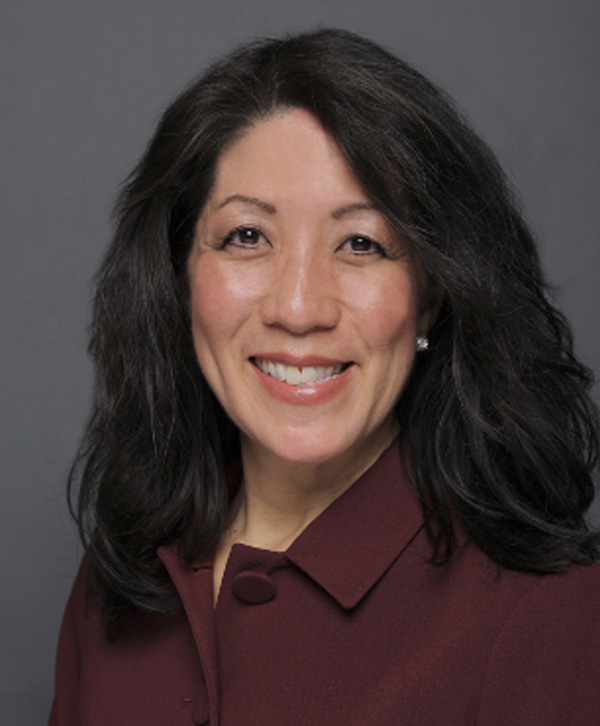
-
U.S.-Japan Council, President & CEO
Audrey Yamamoto
Audrey Yamamoto currently serves as the President & CEO of the U.S.-Japan Council. Prior to joining the Council, Audrey served as the Chief Operating Officer of The Asian American Foundation (TAAF). Founded in response to the rise in anti-Asian hate and violence, TAAF is reversing the longstanding under-investment in the Asian American and Pacific Islander community by addressing the root causes of hate and discrimination.
She has more than 20 years of executive leadership experience in the philanthropic and nonprofit sectors where she has consistently helped organizations maximize their impact while building a collaborative, team-oriented culture.
Prior to joining TAAF, Audrey served as the President and Executive Director of the Asian Pacific Fund, the only foundation dedicated to supporting the San Francisco Bay Area’s most vulnerable Asians and Pacific Islanders. Under her leadership, the Fund reached historic levels of fundraising and grantmaking while launching new programs that increased the Fund’s visibility. Previously, Audrey served as the Executive Director of the Children’s Creativity Museum in San Francisco, where she led the organization through a strategic rebranding initiative that yielded unprecedented growth.
Audrey graduated from the University of California San Diego with a degree in economics and has an MBA from the Anderson School at UCLA with an emphasis in nonprofit management and entrepreneurship. She was selected to be part of the 2023 Japanese American Leadership Delegation, a program funded by Japan’s Ministry of Foreign Affairs, and is an inductee of the Alameda County Women’s Hall of Fame, an alumnus of Leadership California, and recipient of the Asian Business League’s Leadership Award.
Audrey is a fourth-generation Japanese American who was born and raised in the San Francisco Bay Area, where she lives with her family. Audrey and her husband both have played Japanese league basketball throughout their youth, and have enjoyed watching their two sons continue the tradition.
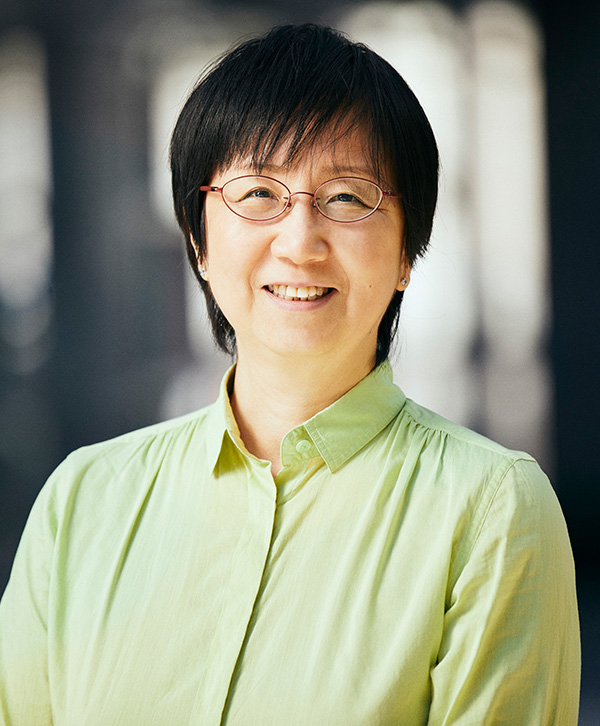
-
Professor, School of Humanities and Sociology, The University of Tokyo
Kaori Karasawa
Born in Kyoto Prefecture. Completed the master's program at the Graduate School of Letters, Kyoto University, and the doctoral program at the University of California, Los Angeles. Ph.D. in Psychology. After serving as an associate professor at the Faculty of Information Culture, Nagoya University, she became a professor at the Graduate School of Humanities and Sociology, University of Tokyo. She is the program director of the JST/RISTEX "Responsible Innovation with Conscience and Agility" and the sub-program director of the third phase SIP project "Construction of Circular Economy Systems." She is a former president of the Japanese Society of Social Psychology and the Japanese Group Dynamics Association. President, The Japanese Psychological Association. Her research interests are the mechanisms of information processing related to self, others, and social events, and the application of social psychological knowledge and methods to solve actual social and ethical issues.
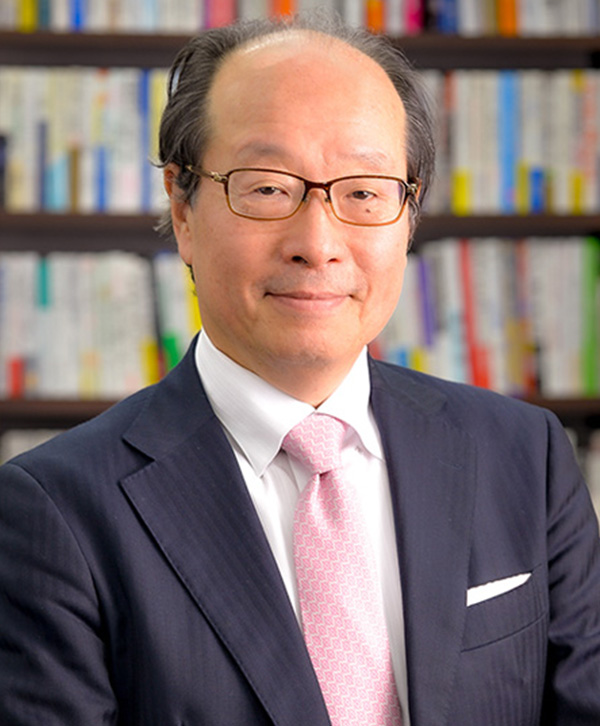
-
Professor, Kyoto University of Advanced Science
Takashi Nawa
Graduated from Tokyo University (Law) and obtained an MBA at Harvard Business School (Baker Scholar). Worked in Mitsubishi Corporation (Tokyo/New York) for 11 years.
Served as a director for McKinsey & Company for 20 years engaged in consultation work. Also held posts as the Practice Leader of the Asia-Pacific region in the automotive and manufacturing sectors, and the Practice Leader of the Japan office in the digital sectors. Works as a consultant for companies in various industries across Japan, Asia, and the US, supporting various projects such as next-generation growth strategies and companywide transformation. Served as a Senior Advisor for Boston Consulting Group for 6 years, and currently acting as a senior advisor for Accenture, Interbrand and Consumer Affairs Agency.
Appointed as professor at Hitotsubashi Business School in June 2010, and at Kyoto University of Advanced Science in April 2022, teaching “Corporate Strategy” , “Entrepreneurship”. “Innovation”, “Creating Shared Value”, “Digital Transformation”, “Global Management” and “Change Management”. Organizing and leading “CSV Forum” with executives of nearly 30 leading Japanese companies since 2014.
Appointed as a board member at Denso (-2019), Fast Retailing (~2022), Ajinomoto、SOMPO Holdings, NEC Capital Solutions and Asahi Shinbun.
Advocates the IPR (Industry Process Redesign) method, announcing in collaboration with METI the course of structural change within six industries, together with the economic impacts. Promotes market evolution and cross-industrial creation in various industries and has supported several M&A and alliance projects.
Has authored many books and articles such as “Purpose Management”, “Management Innovation”, “Textbook of Change Management”, “Schumpeter”, ”Problem Solving and Value Creation Formula”, “Global Growth Giants”, “CSV Management”, “Familiarity Advantage”, “Next-Generation Growth Strategy”, “X Management Model”, “Evolution of Strategy”’, and “High Performing Manufacturers Sell Services”
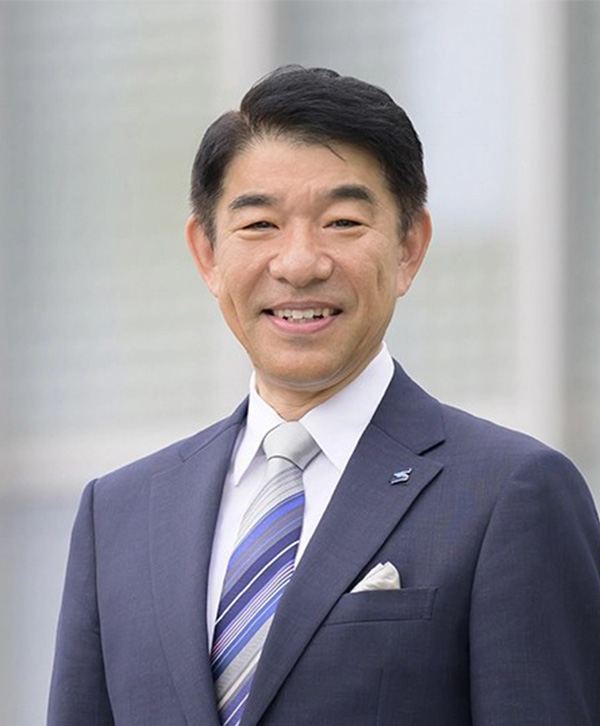
-
President and Chief Executive Officer, Institute of Science Tokyo
Naoto Ohtake
https://www.isct.ac.jp/en/001/about/overview/board/naoto-ohtake
Naoto Ohtake is president and chief executive officer at Institute of Science Tokyo (Science Tokyo).
Before his current position, Ohtake was director-general of the Institute of Innovative Research (IIR) and director of the Organization for Fundamental Research at Tokyo Institute of Technology (Tokyo Tech) from 2022 to 2024. He was also an IIR professor from 2018 to 2024.
Ohtake earned his bachelor’s, master's, and doctoral degrees in mechanical engineering from Tokyo Tech in 1986, 1988, and 1992, respectively. From 1989 to 2000, he was with the Department of Mechanical Engineering and the Department of Mechanical Engineering and Science at Tokyo Tech, first as an assistant professor, then as an associate professor. During this period, he was also a visiting associate professor at the University of Minnesota’s Department of Mechanical Engineering from 1995 to 1996.
From 2000 to 2006, Ohtake was an associate professor at Tokyo Tech’s Department of Mechanical Sciences and Engineering. In 2006, he joined the Department of Materials, Physics, and Energy Engineering at Nagoya University as an associate professor. He returned to Tokyo Tech’s Department of Mechanical Sciences and Engineering in 2009, where he became a professor the following year. He also served as advisor to the Tokyo Tech president from 2012 to 2015.
Ohtake was Tokyo Tech’s vice president for research promotion from 2015 to 2017. During this period, he was also named as a professor at the School of Engineering. From 2017 to 2018, Ohtake served as Tokyo Tech’s vice president for research development. He was also associate director of the Laboratory for Design of Social Innovation Global Networks (DLab) from 2018 to 2024, and director of the Laboratory for Future Interdisciplinary Research of Science and Technology at IIR from 2020 to 2022.
Ohtake's main field of interest is surface engineering and science, including chemical vapor deposition and physical vapor deposition of hard carbon films and their application to industrial uses.
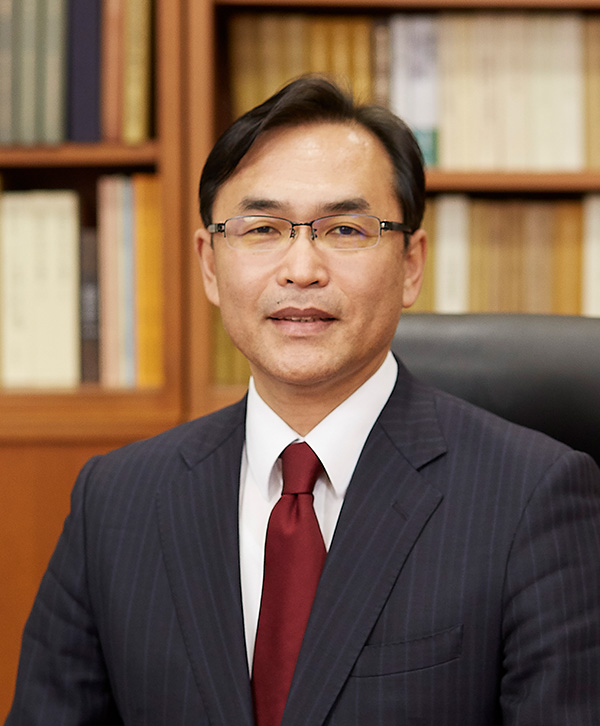
-
Director, Institute for Advanced Studies on Asia, University of Tokyo
Takahiro Nakajima
Professor of Chinese philosophy and world philosophy at the Institute for Advanced Studies on Asia, the University of Tokyo, Japan. Director of the Institute for Advanced Studies on Asia, and Chairperson of the University of Tokyo Press.
Graduated from the Faculty of Law, University of Tokyo. Withdrew from the doctoral program at the Graduate School of Humanities, University of Tokyo. After serving as Associate Professor at the Graduate School of Arts and Sciences, University of Tokyo, became Associate Professor at the Institute for Advanced Studies on Asia in 2012, and Professor at the same institute in 2014. Assumed current position in 2023.
He is currently interested in Chinese philosophy and Japanese philosophy from the viewpoint of world philosophy which goes beyond west-centered philosophy and asks the commitment to the universal from local philosophies, by elaborating indigenous concepts.
His publications include Re-reading of Japanese Modern Thoughts: Philosophy (University of Tokyo Press, 2023), History of Chinese Philosophy (Chikuma-shobo, 2022), Philosophy in Crisis: Discourses of Imagination (University of Tokyo Press, 2021), History of World Philosophy (Eds. Kunitake Ito, Shiro Yamauchi, Noburu Notomi, and Takahiro Nakajima, nine volumes, Chikuma-shobo, 2020) etc.
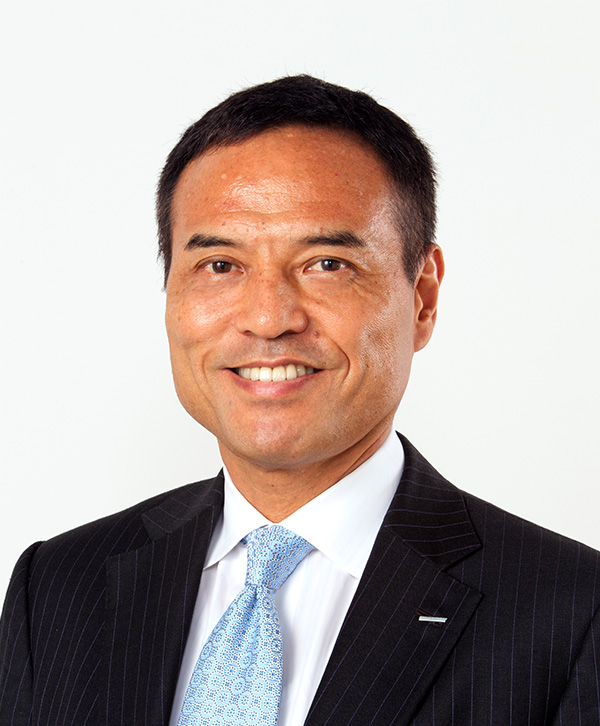
-
Chairman & CEO, Suntory Holdings Limited
Tak Niinami
Tak Niinami is the Chairman and Chief Executive Officer of Suntory Holdings, one of the world's leading consumer products companies with operations across the Americas, Europe, Asia and Oceania.
Tak spent the first 20 years of his career at Mitsubishi Corporation, where he held several management positions and founded Sodex Corporation (now LEOC Co.), a hospital food service joint venture between Mitsubishi and Sodexo of France. He ultimately took the company public in 1999. Prior to joining Suntory in 2014, Tak was the CEO of Lawson, Inc., where he increased revenue and operating profits for 12 consecutive years, transforming Lawson into one of Asia’s major convenience store operators.
Outside of Suntory, Tak has served since 2014 on the Council on Economic and Fiscal Policy—a key advisory body to the Prime Minister of Japan that shapes the nation’s economic and fiscal policies. This makes him the longest-serving business leader in this role. Additionally, he represents Japan’s corporate leadership as Chairman of the Japan Association of Corporate Executives (Keizai Doyukai).
Tak is also a Co-Chair of the Trilateral Commission, a member of the Leadership Council of the World Economic Forum, and serves on the Global Board of Advisors of the Council on Foreign Affairs. An active member of the Asia Business Council, Tak previously served as its Chairman. He is also a member of the World Economic Forum’s International Business Council and The Business Council of the United States. He earned a bachelor’s degree in economics from Keio University and studied at Stanford University as an exchange student during his junior year. Tak received his MBA with distinction from Harvard Business School.
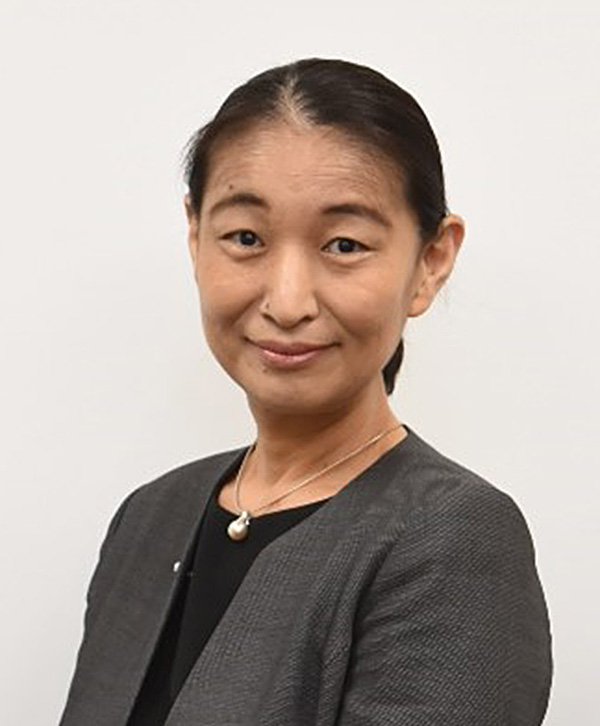
-
NTT,Inc., Vice President Office of CEF
Kumiko Oomori
Career
April 1998, Joined Nippon Telegraph and Telephone Corporation
July 2003, Worked at NTT DATA Corporation, R&D Headquarters
July 2008, Human Resources Development, NTT Information Sharing Laboratory Group
October 2017, Software Innovation Center, NTT Information Sharing Laboratory Group
July 2021, Director, Produce Group, Research and Development Planning Department, NTT
June 2023, Vice President of R&D Marketing Division, NTTResearch Topics
She has specialized in artificial intelligence (AI) and data analysis since she was a graduate student. At NTT corporation, she has been involved in the development of voice dialogue systems at the research laboratory. In her HR and training roles, she has been involved in training software developers, established the Software Innovation Center, the company's 13th research laboratory, and leads a group of software experts. She is also involved in promoting internal digital transformation with data.
In response to the rise of GAFA, she started to study philosophy to criticize the means of centralized system development and find a better way. In philosophy, she is currently researching human rights in virtual societies.External Committee Members and Organizations (mainly):
Director, NTT Comware Corporation (August 2023 - June 2024)
Director, NTT Technocross Service Corporation (July 2021 - March 2024)
Director, Kyoto Philosophical Institute (General Incorporated Association) (June 2023 - Present)
Part-time Lecturer, Chiba Institute of Technology (April 2019 - March 2023)
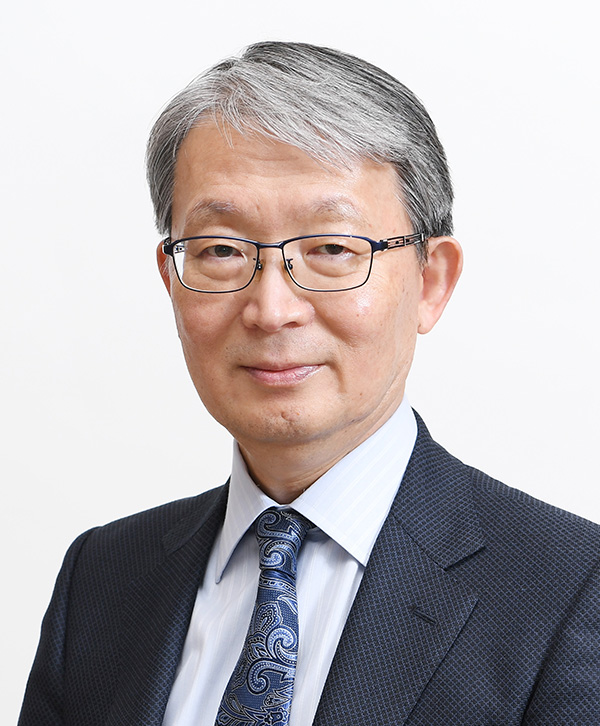
-
THE YOMIURI SHIMBUN HOLDINGS, Representative Director President
Toshikazu Yamaguchi
Date of Birth:March 4, 1957
Education:Graduated from the Political Science and Economics Waseda University in 1979
Professional Background:
1979 Joined The Yomiuri Shimbun and Staff writer at Utsunomiya Bureau and City News Department
1998 eputy Editor, City News Department and Deputy Manager, Legal Affairs Office at Yomiuri Shimbun
2002 Manager, Legal Department at The Yomiuri Shimbun Holdings
2007 Chief, President’s Office at The Yomiuri Holdings Corporate Communication at The Yomiuri Shimbun
2009 Corporate Officer, President’s Office Chief, Compliance at The Yomiuri Shimbun Holdings
2011 Director Chief President’s Office, Compliance at The Yomiuri Shimbun Holdings Managing Director, Corporate Communications, Compliance, and General Manager, Committee on Construction of The New Head Office Building at The Yomiuri Shimbun Standing Auditor at Yomiuri Giants
2012 Director, Corporate Strategy Headquarters Chief Officer, Corporate Communications at The Yomiuri Shimbun Holdings Senior Managing Director, Corporate Communications, Media at The Yomiuri Shimbun
2014 Senior Managing Director, Chief Officer, Corporate Strategy Headquarters, Corporate Communications at The Yomiuri Shimbun Holdings Senior Managing Director, Real Estate Management, Corporate Communications, Media at The Yomiuri Shimbun
2015 Exective Officer, Tokyo Operations at The Yomiuri Shimbun Holdings Representative Director President at The Yomiuri Shimbun
2016 Representative Director President at The Yomiuri Shimbun Holdings
2017 Representative Director President Circulation, The Yomiuri Shimbun Holdings
2018 Owner,Yomiuri Giants
2022 Representative Director Executive Chairman at Nippon Television Holdings
2023 Representative Director Chairman of the Board, The Yomiuri Shimbun
2025 Representative Director President ,Senior Deputy Editor-in-Chief, Circulation, The Yomiuri Shimbun Holdings
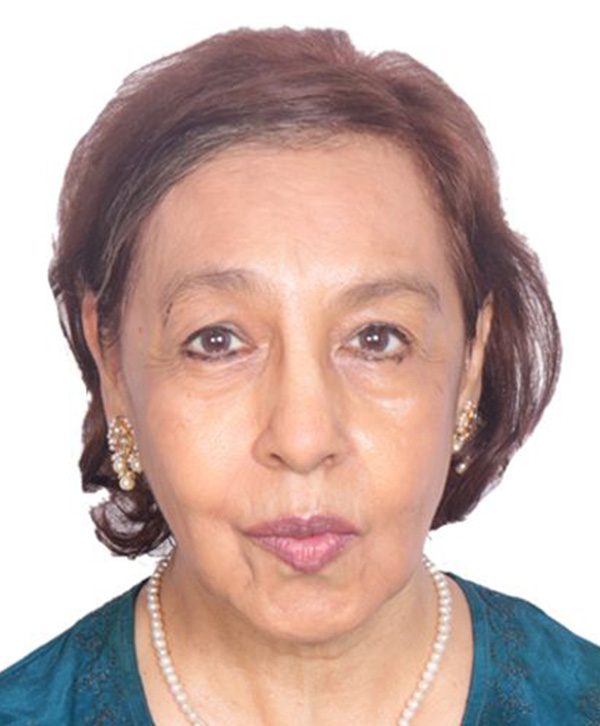
-
Professor (Hon.), Indian Institute of Technology Delhi
Rukmini Bhaya Nair
Rukmini Bhaya Nair is Professor (Hon.) of Linguistics and English at the India Institute of Technology Delhi (IITD). Currently Global Professorial Fellow at QMUL, she received her Ph.D. from the University of Cambridge and was awarded an honorary doctorate by the University of Antwerp for her contributions to narrative theory. Author of 10 books and around 150 articles, her widely acclaimed academic books include: Lying on the Postcolonial Couch: The Idea of Indifference; Narrative Gravity: Conversation, Cognition, Culture; and Poetry in a Time of Terror: Essays in the Postcolonial Preternatural (Oxford University Press, 2002, 2003, 2009). Her most recent book is the reference volume (co-edited with Peter de Souza) Keywords for India: A Conceptual Lexicon for the 21st Century (Bloomsbury Academic, 2020). Her most recent article is “Archewriting: The Symbolic Evolution of Script and Narrative” in The Oxford handbook of Human Symbolic Evolution (2024). Nair’s research interests lie at the intersection of literary, linguistics and cognitive studies, including AI. Her work attempts to bring together what we know of the human mind in its evolutionary aspect and its everyday patterns of behavior with what we know about current cultural patterns of social inclusion and exclusion on the Indian subcontinent and worldwide. Nair writes widely on social issues in national and international popular print and electronic media, and has contributed regularly to forums such as Mary Tully’s BBC Program ‘Something Understood’ and ABC Australia’s ‘The Books Show’ as well as an NDTV Opinion Column. In addition, she is an award-winning poet who has published three volumes of poetry with Penguin: The Hyoid Bone, The Ayodhya Cantos and Yellow Hibiscus. The Oxford Companion to Modern Poetry (2014) writes that her work “widely admired… for its postmodern approach to lyrical meaning and feminine identity”. Her writings, creative and critical, have been included on the syllabi of Chicago, Delhi. Harvard, Kent, Toronto and other universities. Forthcoming books in 2025-2026 are: Deception: Mind, Metaphor, Memes and the Mimicry Machine; In the Name of Rushdie: Postcolonialism, Prophesy and the Platonic Censors and Postcolonial Pragmatics, as well as a book of poems titled Shataka: The Quarantined Tongue. Nair’s writings, creative and critical, have been included on the syllabi of Chicago, Delhi, Harvard, Kent, Toronto and other universities. She says she does research in linguistics for the same reason that she writes poetry - to discover the limits and possibilities of language.
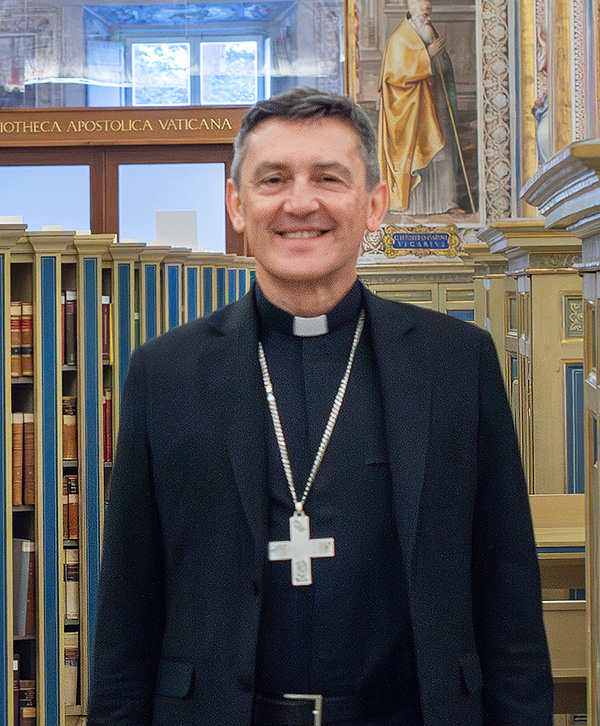
-
Vatican Library, Archivist and Librarian of the Holy Roman Church
Giovanni Cesare Pagazzi
Giovanni Cesare Pagazzi, PhD in theology, obtained at the Pontifical Gregorian University in Rome. He taught systematic theology at the Faculty of Theology in Milan and the Pontifical Lateran University in Rome. He taught philosophy at the Brera Academy of Fine Arts, in Milan. He has published several in the fields of theology and anthropology. From September 2022 to March 2025 he was Secretary of the Vatican Dicastery for Culture and Education. He is currently the Archivist and Librarian of the Holy Roman Church, in Vatican.
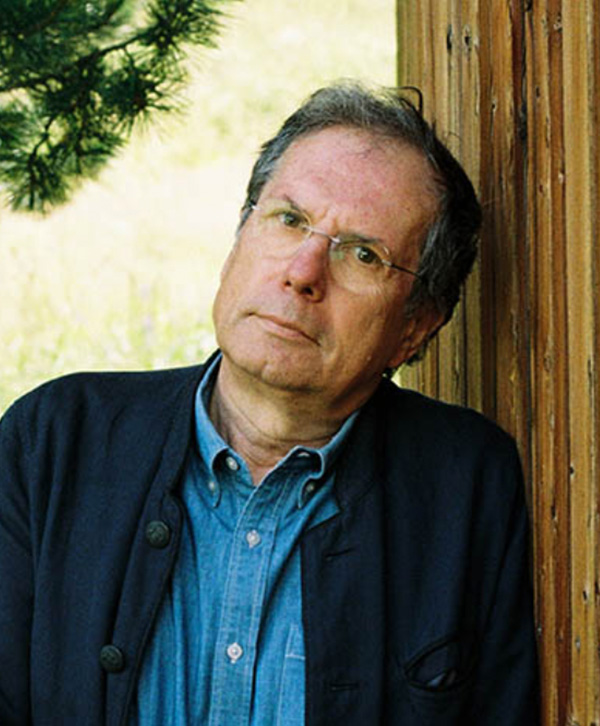
-
Professor, University of Turin
Maurizio Ferraris
Maurizio Ferraris (Torino 1956) wrote more than seventy books that have been translated into several languages. Among the last ones, Documanità. Filosofia del mondo nuovo (Laterza) and Webfare. A Manifesto for Digital Well-Being (2024). Full Professor of Philosophy, he is the President of the Labont - Center for Ontology. He is columnist for ‘Corriere della sera’ and for ‘Neue Zürcher Zeitung’. He is also the president of “Scienza Nuova“, an institute of advanced studies - dedicated to Umberto Eco and uniting the University and the Polytechnic of Turin - aimed at planning a sustainable future, both from a cultural and from a political point of view.
Maurizio Ferraris is advisory member of the Center for Advanced Studies of South East Europe (Rijeka) and of the Internationales Zentrum Für Philosophie NRW. He is doctor honoris causa in Humanities at the University of Flores (Buenos Aires) and at Univesity of Pécs. He has been Fellow of Käte-Hamburger Kolleg “Recht als Kultur” (Bonn) and Fellow of the Italian Academy for Advanced Studies in America (Columbia University, New York) and of the Alexander von Humboldt Stiftung. He has also been Directeur d’études of the Collège International de Philosophie and Visiting Professor at the École des Hautes Études en Sciences Sociales (Paris) as well as other European and American Universities. He is the Director of ‘Rivista di Estetica’, and member of the committee of ‘Critique’, of ‘Círculo Hermenéutico editorial’ and of the ‘Revue francophone d’esthétique’.
Among his books that have appeared in English we quote: History of Hermeneutics (Humanities Press, 1996); A Taste for the Secret (with Jacques Derrida - Blackwell, 2001); Documentality or Why it is Necessary to Leave Traces (Fordham UP, 2012); Goodbye Kant! (SUNY UP, 2013); Where Are You? An Ontology of the Cell Phone (Fordham UP, 2014); Manifesto of New Realism (SUNY UP, 2014); Introduction to New Realism (Bloomsbury, 2014); Positive Realism (Zer0 Books, 2015); Learning to Live: Six Essays on Marcel Proust (Brill - 2020); Doc-humanity (2022, Mohr Siebeck) and Hysteresis (forthcoming, University of Edimburgh Press).
In his long career, Maurizio Ferraris has determined a new course of thought and studies in at least six areas: history of hermeneutics, aesthetics as theory of perception, social ontology (the theory of Documentality), metaphysics (he has been the founder of New Realism, the most prominent philosophical movement of the new millennium), technological anthropology (the theory of Dochumanity), and philosophy of economics (Webfare as Digital Welfare). In 2005 he wrote the first philosophical book on the mobile phone: Where Are You? Ontology of the Mobile Phone.
See Ferraris’ Identity page on WorldCat, the Deutsche National Bibliothek, and perlentaucher.
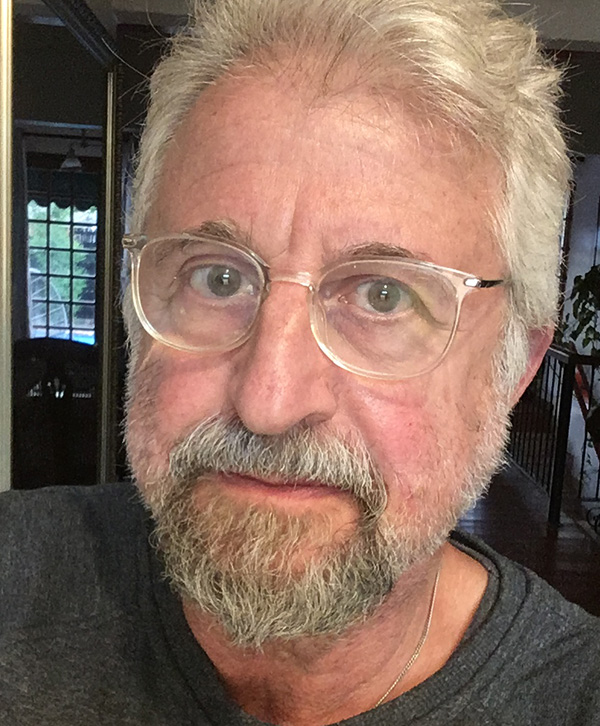
-
Emeritus Professor in Humanities, Rhodes University, South Africa
Michael Neocosmos
Dr. Michael Neocosmos is Emeritus Professor in Humanities at Rhodes University in South Africa and Distinguished Visiting Scholar at the University of Connecticut Humanities Institute in the United States. He was Director of the Unit for the Humanities at Rhodes University (UHURU) from 2014 to 2017 and a member of the African Potentials Project under the direction of Professors Itaru Ohta and Motoji Matsuda at The Center for African Area Studies of Kyoto University. He is the author of many articles and books on development, politics, philosophy, and sociology with reference to Africa. In particular, he is the author of From Foreign Natives to Native foreigners: explaining xenophobia in South Africa (Codesria, 2010) and Thinking Freedom in Africa: toward a theory of emancipatory politics (Wits University Press, 2016). The latter book was awarded the Frantz Fanon Prize by the Caribbean Philosophical Association in 2017. His latest book is entitled Beyond the Neocolonial: Africa and the Dialectics of Human Emancipation due to be published by Daraja Press later this year (https://darajapress.com/publication/dialectics-of-emancipation).
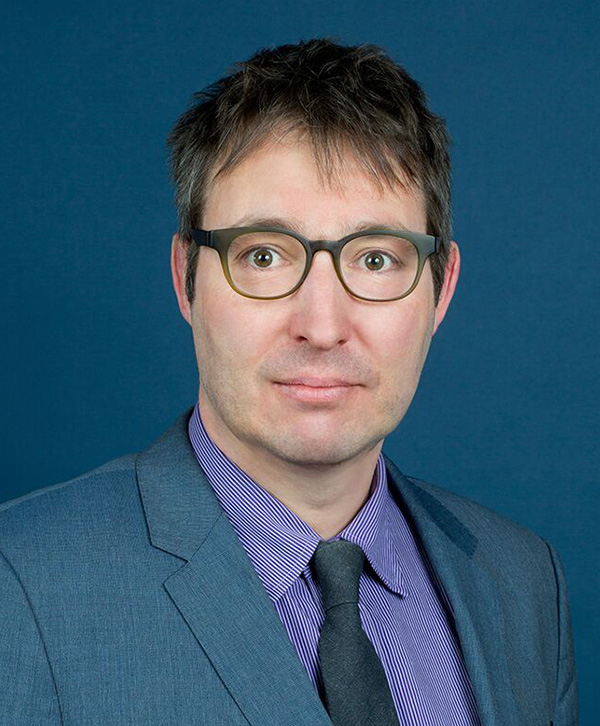
-
Berthold Beitz Professor in Human Rights, Global Affairs and Philosophy, Harvard University
Mathias Risse
Mathias Risse is Berthold Beitz Professor in Human Rights, Global Affairs and Philosophy and Director of the Carr-Ryan Center for Human Rights at Harvard University. His research is primarily in political philosophy and philosophy of technology, and he is currently at work on a book on Indigenous philosophies tentatively called Reckoning and Renewal: Indigenous Philosophy and Global Crisis. In political philosophy his work has addressed questions of global justice ranging from human rights, inequality, taxation, trade, and immigration to climate change, obligations to future generations. In the philosophy of technology Risse has recently offered a comprehensive account of political theory of the digital age. He has also worked on questions in ethics, decision theory and 19th century German philosophy, especially Nietzsche. He is the author or co-author of six books, including the 2012 On Global Justice and most recently the 2023 Political Theory of the Digital Age: Where Artificial Intelligence Might Take Us.
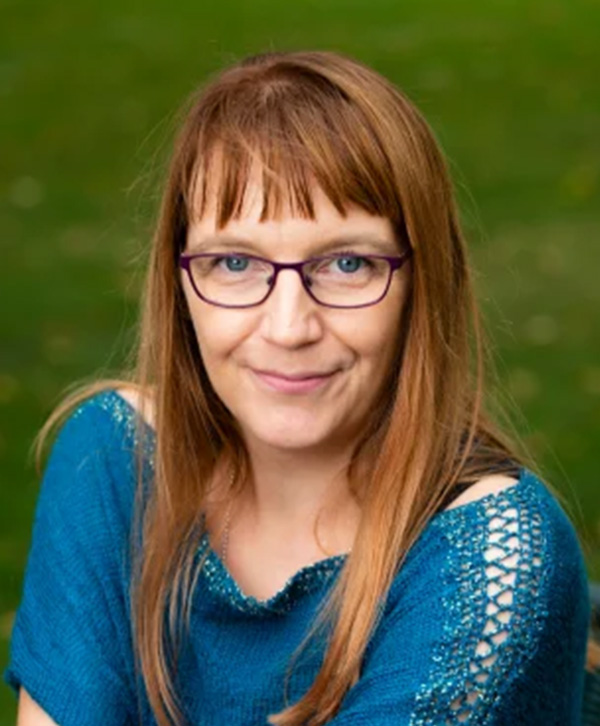
-
Docent,University of Helsinki
Karoliina Snell
Docent Karoliina Snell is a sociologist specialising in science and technology studies and responsible AI at the University of Helsinki. Her research focuses on data literacy, epistemic integrity, and the ethical use of data and AI, particularly in the fields of medicine and healthcare. She serves as the programme director for the large research initiative "Security and Trust in the Age of Algorithms" (SHIELD) and is a member of the Ethical Advisory Board of the Finnish Center for Artificial Intelligence (FCAI).
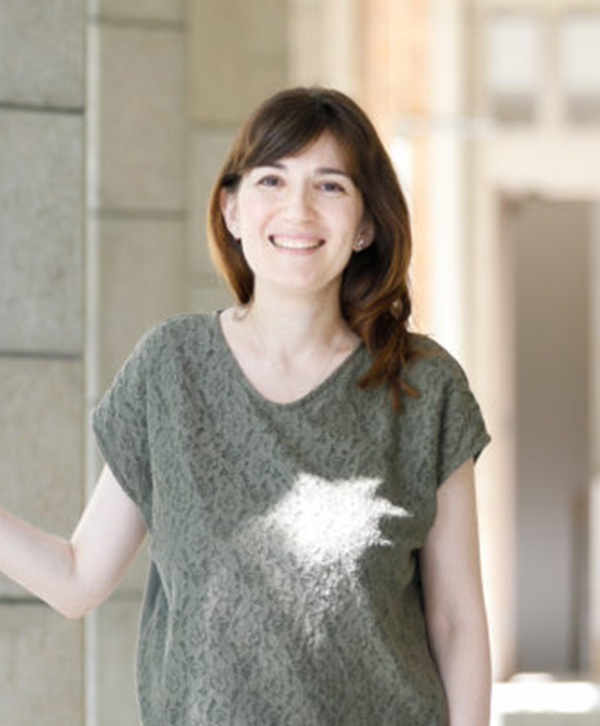
-
Professor, Kyoto University
Asli M. Colpan
Asli M. Colpan is Professor of Corporate Strategy at the Graduate School of Management and Graduate School of Economics, Kyoto University. She is also the Assistant Executive Vice President (for Research) of Kyoto University. Previously, she was the Alfred Chandler Visiting Scholar at Harvard Business School, and visiting scholar at Harvard University and MIT. She was awarded the Tachibana Prize for the most outstanding female scholar at Kyoto University in 2010.
Her research interests include corporate strategy, corporate governance, business history, and especially the evolution of large enterprises in developed and emerging economies. Her work has been published in such journals as Industrial and Corporate Change, Journal of Management Studies, Strategic Management Journal, Strategic Organization, Journal of Business Ethics, Business History and Corporate Governance: An International Review. She is also the co-editor of the Oxford Handbook of Business Groups, Oxford: Oxford University Press, 2010; Business Groups in the West: Origins, Evolution, and Resilience, Oxford: Oxford University Press, 2018; and Business, Ethics and Institutions: The Evolution of Turkish Capitalism in Global Perspectives, 2020.
She is currently the Editor of Corporate Governance: An International Review and Consulting Editor of Journal of International Business Studies. She also sits on the boards of Kansai Paint, Sumitomo Electric Industries and Sumitomo Rubber Industries.
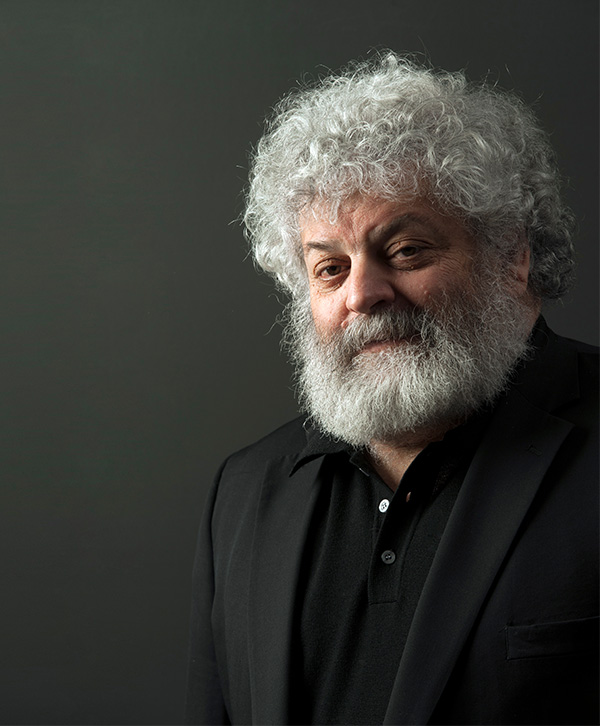
-
Bachand University Professor, The Darden School, University of Virginia
R. Edward Freeman
R. Edward Freeman is Bachand University Professor, Olsson Professor, and Academic Director of the Institute for Business in Society at the University of Virginia Darden School of Business. He is best known for his award winning book, Strategic Management: A Stakeholder Approach (Pitman, 1984; and reprinted by Cambridge University Press in 2010). He has received seven honorary doctorates (Doctor Honoris Causa) from: Radboud University; Universidad Pontificia Comillas; the Hanken School of Economics; Tampere University; Sherbrooke University; Leuphana University; and HEC Paris for his work on stakeholder theory and business ethics. He hosts The Stakeholder Podcast, via Stakeholder Media, LLC.
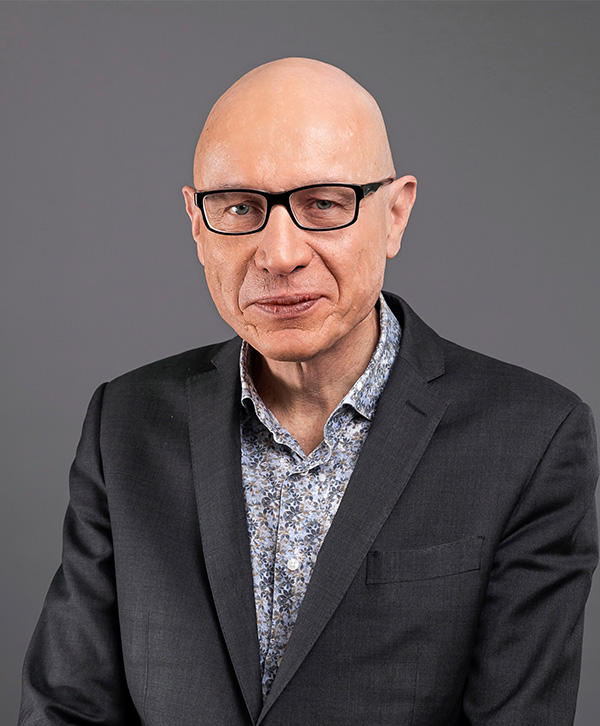
-
News Corp CEO
Robert Thomson
https://newscorp.com/news-corp-leadership/
Robert James Dell'Oro Thomson is chief executive officer of News Corporation. News Corp, headquartered in New York, has global operations across a range of media, including: news and information services, digital real estate services and book publishing.
Mr. Thomson assumed his current role in January 2013, having served as editor-in-chief of Dow Jones & Company and managing editor of The Wall Street Journal from May 2008. He directed the global news operations of the print and digital Journal and Dow Jones Newswires, with an international news staff of over 2,000 journalists in more than 80 bureaus worldwide.
Mr. Thomson’s editorial leadership and Dow Jones’ commitment to quality journalism fueled growth and innovation, with The Wall Street Journal becoming the largest circulation newspaper in the U.S. The Journal expanded its content and added a host of sections to complement its core of unrivalled business and finance coverage. The company’s expansion across content was complemented by a growth across geographies and devices, with numerous digital content and video offerings and local-language Web sites in Europe and Asia, reaching tens of millions of users worldwide.Before joining Dow Jones in December 2007, Mr. Thomson was editor of The Times of London where he presided over a significant expansion of its readership in print and on the Web - the audience of the Times Online grew from less than 1 million monthly to almost 13 million during his editorship. Prior to that, he was editor of the U.S. edition of the Financial Times taking prime editorial responsibility for the FT Group’s ambitious drive into the U.S. market, where the newspaper trebled its sales to almost 150,000. For his work in building the FT’s operations, in print and online, he was named as U.S. Business Journalist of the Year in 2001 by the influential trade journal TJFR.
Mr. Thomson had been editor of the Weekend FT and assistant editor of the Financial Times, orchestrating a successful redesign of the Weekend FT in late 1996 - that edition became the fastest-growing newspaper in the U.K. market during 1997. He also oversaw the evolution of “How to Spend It” magazine into an award-winning monthly. From 1994 to 1996, he was the FT’s foreign news editor in London, leading the paper’s extensive network of correspondents. Mr. Thomson had been a correspondent himself in Tokyo (1989-1994), where he witnessed the rise and fall of the “bubble economy,” and in Beijing (1985-1989), where he reported on the country’s economic and social reforms, and the crushing of the democracy movement in Tiananmen Square.
Mr. Thomson has been a journalist since early 1979, when he joined The Herald in Melbourne, working as a copyboy and a finance and general affairs reporter before becoming the paper’s Sydney correspondent. In 1983, he was hired by the Sydney Morning Herald as a senior feature writer and, two years later, was appointed to a Beijing bureau then shared by the Sydney paper and the Financial Times.
He is the author of The Judges: A Portrait of the Australian Judiciary (Allen & Unwin) and co-author of The Chinese Army (Weldon Owen). He edited a collection of satirical writing titled True Fiction (Penguin Books).
Mr. Thomson was born in Torrumbarry, near Echuca, in southern Australia, and is married with two sons.
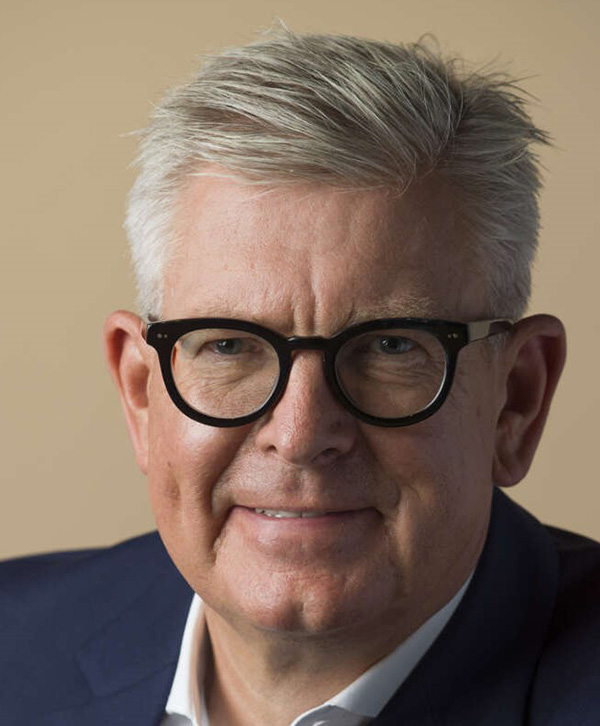
-
Ericsson, President & CEO
Börje Ekholm
President & CEO of the Ericsson Group since 2017
Previous work experience and other information: CEO of Patricia Industries, a division within Investor AB (2015-2017). President and CEO of Investor AB (2005-2015). Chairman of Trimble Inc. Holds honorary Doctorate at KTH Royal Institute of Technology, Sweden. Member of the Steering Committee of the World Economic Forum Digital Communication Governors. Member of the Board of the Swedish-American Chamber of Commerce New York.
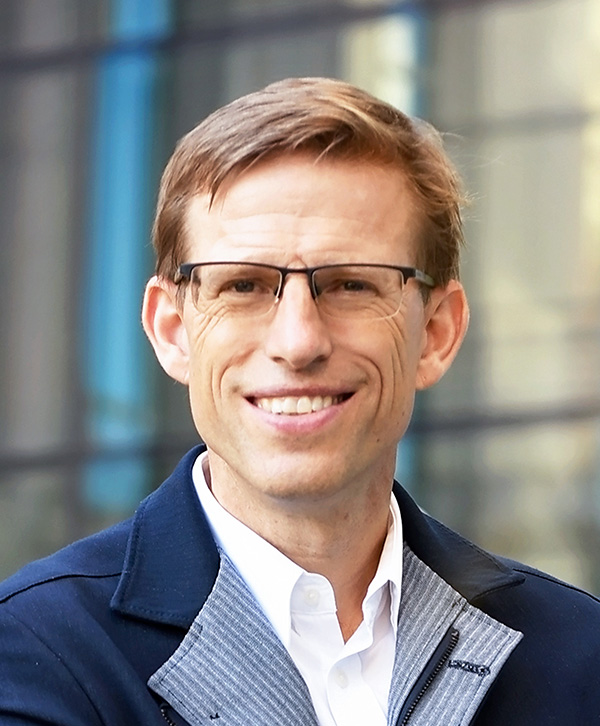
-
Professor, University of Pennsylvania
Fritz Breithaupt
Fritz Breithaupt is both a humanities scholar and a cognitive scientist at the University of Pennsylvania (USA) who works on narratives, empathy, and aesthetics. His books on narrative thinking and empathy have been translated into many languages. He runs the Experimental Humanities Laboratory. His latest book, The Narrative Brain (Yale UP, 2025), won the official prize of Science Book of the Year in Austria. Some of his other books focus on empathy, including The Dark Sides of Empathy (Cornell UP, 2019) and a book on Goethe. He publishes in both science and humanities journals, including PNAS, Scientific Reports, DVJS, and Critical Inquiry. He also frequently is in the press, including NPR, BBC, Der Spiegel, and Die Zeit. His next larger project is a book on how we make experiences as humans, with a focus on first-time experiences, repeated experiences, and repeated experiences.
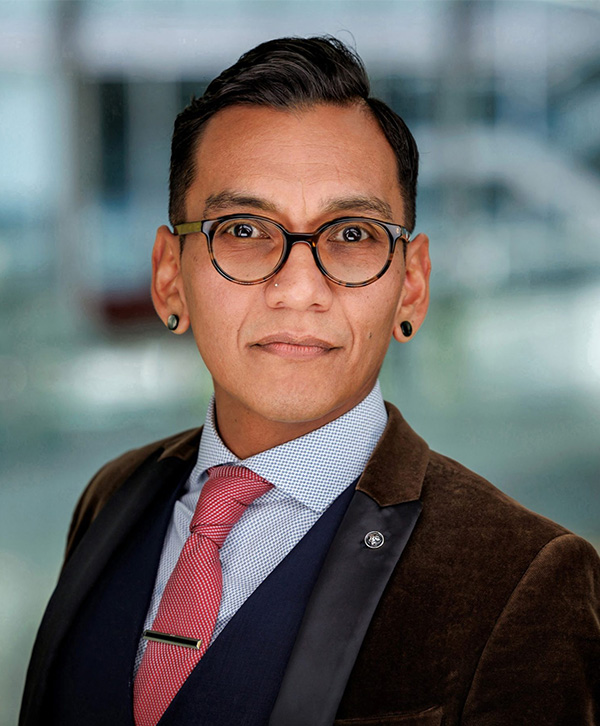
-
GESDA, Science Anticipation Philosophy Lead
Manuel Gustavo Isaac
A program lead in science anticipation philosophy at GESDA, Manuel Gustavo Isaac helps develop the philosophical foundations and framing of our anticipatory work and advance social sciences and humanities research integration into our science anticipation products.
With a PhD in History and Philosophy of Science and Technology from Paris Cité University and MA degrees in philosophy, linguistics, and logic from Paris Sorbonne Universities, his previous academic career spans several distinguished fellowships at leading institutions including the University of Zurich, St Andrews, Barcelona, Amsterdam, and Geneva, as well as research and teaching positions at Sorbonne-Nouvelle University and Paris Diderot University. Combining technology ethics and metaphilosophy, with a particular focus on conceptual engineering applied to emerging sciences and technologies, his research has been published in top academic journals, presented at distinguished conferences worldwide, and translated for impact into many practitioner workshops, public science lectures, and scientific consultancies. His portfolio includes 5 grant-funded research projects as PI, 19 academic awards, 30 peer-reviewed scientific publications, and the development of practical tools such as a published methodology canvas and ethical-by-design workflow process.
Dr. Isaac is a member of the International Science Council's Global Roster of Experts, currently serves as a global expert in the Earth Institute's AI Ethics Task Force at Columbia University, and was a research group member at the Center for AI and Digital Policy in Washington. He is a founder of the Conceptual Engineering Network, and the creator of the Conceptual Engineering YouTube channel.
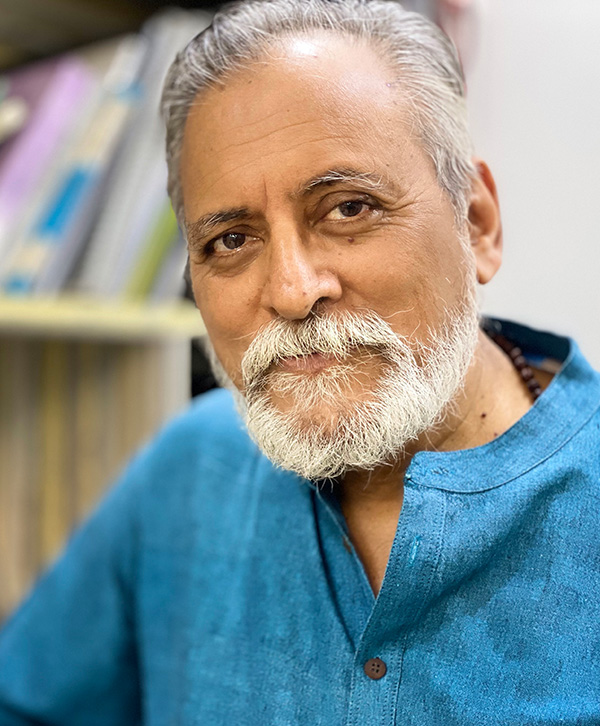
-
Founder, Honey Bee Network/Former Professor and Visiting Faculty, Indian Institute of Management, Ahmedabad
Anil K. Gupta
Professor Anil K Gupta is a visiting faculty, Indian Institute of Management, Ahmedabad; after retiring in 2017, besides IIT Bombay and AcSIR. He is also the founder of Honey Bee Network, SRISTI.org, GIAN.org and Nifindia.org, Ph.D. (Management), MSc. Biochemical Genetics, Fellow, National Academy of Agricultural Sciences (NAAS); Fellow, the World Academy of Art and Science, California; INSA; Hon Fellow, ISAE; CSIR Bhatnagar Fellow, 2018-21
Mission is to expand the global as well as local space for innovations from and for grassroots, link technological ideas in informal and formal STI sector; ensure recognition, respect and reward for creative communities, individuals, children and tech students; augmenting open innovations by individuals, institutions, corporations, and countries through frugal samvedansheel platforms. Unlocking institutional creativity through responsible innovations, support national/international strategic organizations and networks for making breakthroughs innovations;
He facilitated Festival of Innovation (2015-2017) and Festival of Innovation & Entrepreneurship (FINE) through NIFindia.org, hosted by the office of President of India at The President's House (2018). SITARE-GYTI awards & SRISTI GYTI awards given to bright technology students every year in collaboration with BIRAC, DBT till 2022; GYTI award continue. HBNCRIIA awards given by GIAN and HBN to outstanding innovation around the world and the country since 2021. Coordinated five International conferences on Creativity and Innovation at Grassroots-ICCIG (iccig.in 1997-2025) with the support of CMA, IIMA and other partners
Research interests: conservation and augmentation of biodiversity, building global value chain to get the grassroots and youthful creativity its due; promote originality and innovation at different levels through various platforms like techpedia.in, grid.undp.org.in, gian.org/databases; Public policy for inclusive development; He has pursued Shodhyatra, learning walk in every state of India at least once, some multiple times, covering more than 7000 km during 1998-2025 with Honey Bee Network volunteers in addition to with students of IIMA.
CV Sheshadri memorial lecture, 2024, invited address at convocation Kanpur University, Central University, Koraput, Tribal University, Chhattisgarh; Viacom, Endurance Technology, DHL, JCB, SAP Labs, ORACLE, CISCO, HP, GE Research Centre, Siemens, Volvo, Biocon Bristol-Myers Squibb Research Center, Dr Reddy’s Lab, Zydus Cadilla, JSW, D E Shaw investment firm, Tata Innovation Awards, ZEF, CGIAR, FAO, IFAD, World Bank, LBSNAA, IISc, ISI, IITs, JNU, Harvard, MIT Boston, UC Berekely, Davis; Cornell Univ., Indian Oil, Global IP Convention 2018, Barclays, Welcome Trust/DBT India Alliance, THSTI, NIPGR, NII, IIMs etc., apart from numerous top academic and public policy institutions worldwide.
His book, Grassroots Innovation: Mind on the margin are not marginal minds, New Delhi Penguin RandomHouse; 2016, http://www.amazon.in/Grassroots-Innovation-Minds-Margin-Marginal/dp/8184005873, received best Business Book Award at Tata Lit Live festival, Nov 20, 2016.
Positions: Member, Review committee of Biotech clusters, DRIIV, PSA office, 2023 continuing, Member, National Innovation Council, Chaired by Adviser to Prime Minister (2010-2013); Director, Dena Bank, 2006-09; Kasturbhai Lalbhai Chair in Entrepreneurship, IIMA (2003-2008); Chairperson, Ravi J Matthai Centre for Educational Innovation, IIMA, 1993-1994; Chairperson, Research and Publications, IIMA, 1990-92; Exec Vice Chair, National Innovation Foundation (2000-2018); Coordinator, SRISTI and Secty., GIAN.
Teaching: PPIDI with Hon'ble Former President of India Shri Pranab Mukherjee jointly with Prof VS Chand, Globalising and Resurgent India through Innovative Transformation (GRIT) with Bharat Ratna Dr. A P J Abdul Kalam, former President of India (2008-12), Shodhyatra (learning walk in Himalayan region), Strategic Management of Intellectual Property Rights (SMIPR), Indian Social and Political Environment (ISPE, 1995-2007), Design and Development of Development Organizations (DDDO, 1981-90), Economic Environment and Policy (1981-1994), "Understanding Creativity, Innovation, Knowledge Networks and Entrepreneurship (CINE), Introduction to Agriculture & Agri-Business Leadership. ISIKG (Institutions, social innovations and knowledge at grassroots), Meeting the unmet Needs through grassroots innovations, for doctoral scholars of CSIR labs, AcSIR with Dr Anamika Dey; MIIST (Management of Inclusive Innovations for Social Transformation also with Dr Dey for 91 UNDP acc labs in 115 countries.
Honours: Lifetime Achievement Award 2024, FICCI; CSIR Bhatnagar Fellowship 2018-21, Best Researcher award at IIMA, 2015, Humanistic Management Lifetime Achievement Award by the Humanistic Management Network, at the 73rd Annual meeting of the Academy of Management, USA, 2013; Ph.D Honoris Causa, San Martin de Porres University, October, Peru 2015; Doctor of Letters from Central University of Orissa, July, 2012; Hermes Award European Institute for Creative Strategies and Innovation, Paris, 2012; Padma Shri, 2004, a national civil award by The President of India; Adjudged as one of the fifty most influential people in the field of intellectual property rights around the world in 2003, Managing Intellectual Property 2003, Adjudged as one of the Star Personalities of Asia, Business Week, 2001, apart from several other national and international honours. Member of many governmental and corporate bodies, Prof. Gupta is a widely published author; also see some at https://gian.org/prof-anil-gupta-papers/ and anilg.sristi.org

-
Udo Keller Foundation Forum Humanum, Chairman of the Board
Cai Werntgen
Born in 1967.
Studied Philosophy, Religious Studies and Literature as well as Media Theory at the Universities of Freiburg and Tübingen and the Karlsruhe University of Design.
2003 Completion of the doctorate in the subject “Philosophy” with Peter Sloterdijk and Boris Groys. Since 2003 Chairman and Managing Director of the Udo Keller Foundation FORUM HUMANUM, Hamburg. In this function co-founder of the Forum Scientiarum and the Carl Friedrich von Weizsäcker Center at the University of Tübingen and the Verlag der Weltreligionen at Suhrkamp Verlag, Berlin.
Lecturer for Philosophy & Aesthetics at the Karlsruhe University of Design 2003-2018. Author of numerous publications and books with a focus on contemporary philosophical diagnostics.Selection:
Monographs:
1.Kehren, Martin Heidegger und Gotthard Günther - Europäisches Denken zwischen Ost und West, Fink, 2006
2.Szenen des Heiligen, Suhrkamp, Berlin, 2012
3.Heidegger after Duchamp - Skizzen einer Philosophie der Geste, Matthes & Seitz, Berlin, 2016Articles / Essays
1.Neuro-Iconography - Anmerkungen zum Bildkult im Zeitalter bildgebender Verfahren - in: Mystik und Medien IV, Ingo Berensmeyer (Hg.), Fink, 2009
2.Die kybernetische Moderne als Friedhof der Mystik - in: Mystik und Medien III, Luca Di Blasi (Hg.), Fink, 2007
3.Apokalypse Now - Völker im Hyperraum - in: LETTRE International 55
4.Die Arena-Gesellschaft - in: LETTRE International 90
5.Denken am Nullpunkt der Geschichte - Notizen zur Philosophie Peter Sloterdijks - in: M. Jongen/S. v. Tuinen (Hg.), Vermessung des Ungeheuren, Fink, 2009
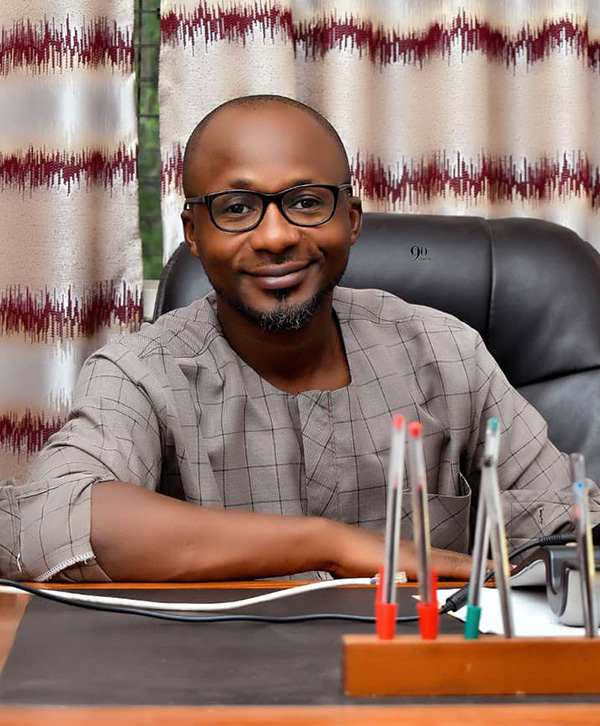
-
Associate Professor, University of Cape Coast
Husein Inusah
Husein Inusah, PhD, is an Associate Professor of Philosophy in the Department of Classics and Philosophy at the University of Cape Coast Ghana. He earned his PhD from the University of Ghana in 2014 and received the 2015/16 University of Ghana Vice-Chancellor's Award for the Most Outstanding PhD Dissertation in the Humanities Category. Additionally, he was a Dissertation Completion Fellow at the University of Rochester during the 2013/14 academic year, where he studied under the renowned American epistemologist Richard Feldman. Prof. Inusah is a fellow of the African Humanities Program of the American Council of Learned Societies (ACLS) in the USA, an Iso Lomso Fellow at the Stellenbosch Institute for Advanced Study (STIAS) in South Africa, and a fellow of the Wissenschaftskolleg zu Berlin Institute for Advanced Study in Germany. Currently, he is researching the epistemology of decoloniality, the concept of rationality in traditional African political deliberations, indigenous knowledge systems, epistemic vices and their obstruction of knowledge, African philosophy, the infinitist notion of the regress of justification, and AI Ethics as well as the negative impact of intelligent technologies on the Global South.
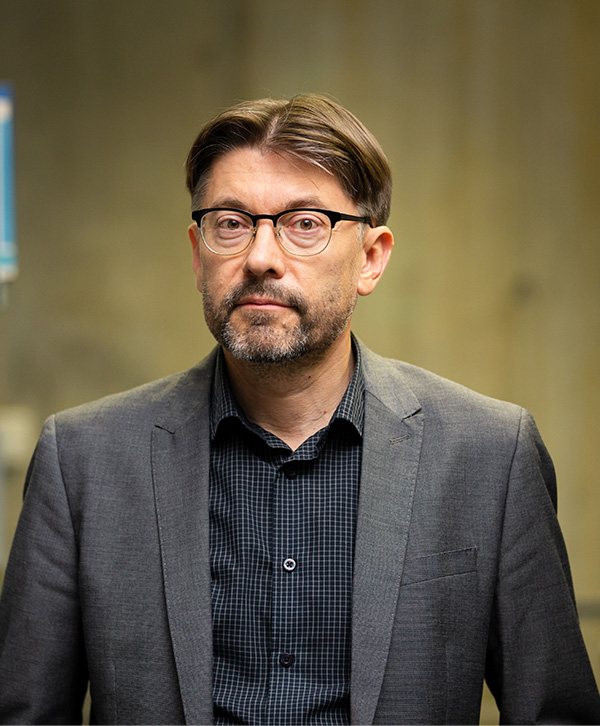
-
rector, professor of philosophy, Tallinn University
Tõnu Viik
CURRICULUM VITAE
Born on July 12, 1968 in Jõhvi, Estonia.Education
1998-2003 Emory University, Atlanta PhD (2003)
2001-2002 Humboldt Universität Berlin (Emory scholar)
2000-2001 Philipps Universität Marburg (Emory scholar)
1997-1998 University of Helsinki (SIMO scholar)
1986-1993 Moscow State University (diploma studies 5 years) Diploma (1993)
1978-1986 Nõmme Gymnasium
1975-1978 Jõhvi GymnasiumCareer
2021 - Tallinn University Rector
2020 -...Tallinn University Distinguished Professor of Philosophy
2015 - 2020 Tallinn University School of Humanities Director
2014 - 2015 Tallinn University Estonian Institute of Humanities Director
2007 - 2015 Tallinn University Estonian Institute of Humanities Professor of Philosophy
2004 - 2007 Estonian Institute of Humanities Rector
2003 - 2004 Estonian Institute of Humanities Professor of Philosophy
2002 - 2003 Lecturer - Emory University (Atlanta)
1999 - 2000 Study Assistent - Emory University (Atlanta)
1994 - 1998 Lecturer at the Estonian Institute of Humanities
1993 - 1994 Lecturer at the Tallinn University of TechnologyMain research and teaching areas
My academic work has been focusing on the following fields: philosophy of culture and cultural theory, phenomenology, history of philosophy (primarily Plato, Aristoteles, Aquino Thomas, Kant, Hegel, Husserl, Heidegger, Foucault), culture-dependent meaning formation, collective emotions, happiness, love and self-deception.
The list of research articles, titles of supervised theses and courses I have taught, and other relevant matter can be found in the Estonian Research Information System ETIS.Public engagement and social activity
I have published opinion articles and essays on topics of my research, book reviews, forewords and epilogues, textbooks and study materials. I have also spoken in public debates and discussions, many of these concern higher education and the role of university in the society. I participated in the creation process of Tallinn University in 2005. I was one of the signatories to Charter 12 and participants in the Ice Cellar Initiative, and one of the authors of the initiative A Viable State (Elamisväärne Riik).
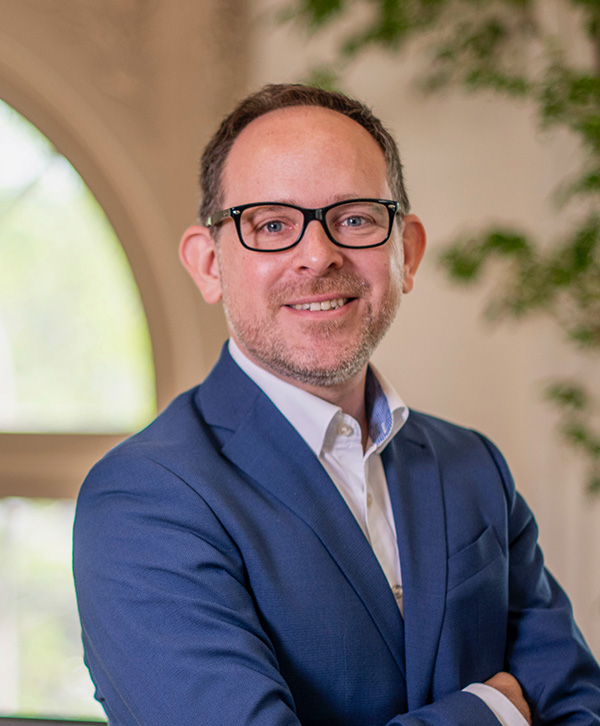
-
Professor / Director of Research, University of Groningen
Andrej Zwitter
Andrej Zwitter is Professor of Political Theory and Governance and Director of Research, as well as a co-founder and former dean of the inter- and transdisciplinary branch Faculty Campus Fryslân at the University of Groningen. He earned his PhD in Legal Philosophy and International Law from the University of Graz in Austria and began teaching at the University of Groningen in 2008. Zwitter became a Professor of International Law and International Relations in 2012. Since 2017, he has served as Dean of Campus Fryslân, promoting interdisciplinary research and education. In 2023, he became Program Chair at THE NEW INSTITUTE in Germany. He is the founding Director of the Data Research Centre (2017), the Cyan Centre on Climate Adaptation 2020), and the Centre on Innovation Technology and Ethics (2024). He specializes in ethics, technology, and society, and serves as Ethics Advisor to the EU Green Deal Data Spaces and as Senior Fellow at the Global Centre on Adaptation.Andrej earned his PhD in Law, Legal Philosophy, and International Law. His research foci include Big Data ethics, cyber governance, humanitarian action, and state of emergency politics. Andrej has also published extensively on subjects such as humanitarian action or just war and Meta-Science. He is passionate about understanding how modern technology affects society and how it can contribute to solving global challenges.
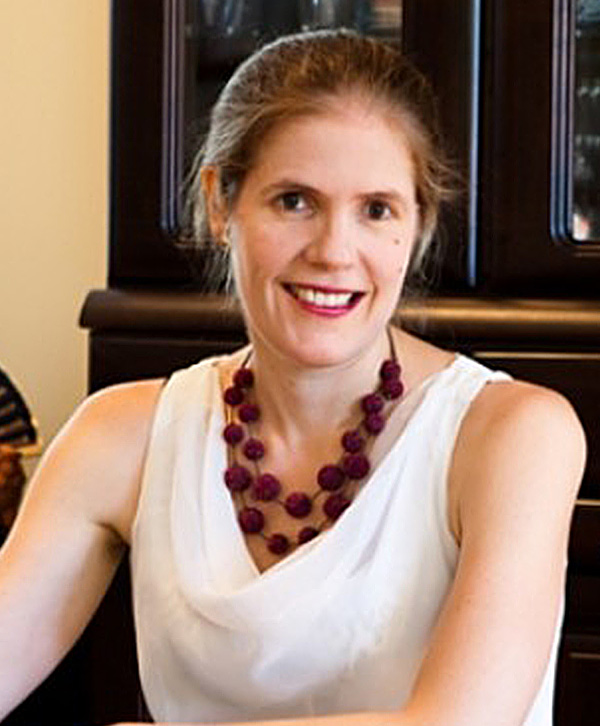
-
Professor of Chinese, Japanese, and Korean Literatures & Philosophies, S. C. Fang Chair, Massachusetts Institute of Technology
Wiebke Denecke
Wiebke Denecke is S. C. Fang Professor of Chinese Language and Culture and Professor of East Asian Literatures and Philosophies at MIT. She studies the literary and philosophical traditions of China, Japan and Korea, comparative studies of East Asia and the premodern world, world literature, the politics of cultural heritage and memory, and the transformation of the Humanities in an age of STEM.
Her books include The Dynamics of Masters Literature: Early Chinese Thought from Confucius to Han Feizi, Classical World Literatures: Sino-Japanese and Greco-Roman Comparisons, The Norton Anthology of World Literature, The Wiley-Blackwell Companion to World Literature, The Oxford Handbook of Classical Chinese Literature, a three-volume literary history of Japan from an East Asian perspective (Nihon “bun”gakushi. A New History of Japanese “Letterature”; in Japanese), and Shared Pasts for Shared Futures: Prototyping a Comparative Global Humanities (special issue of History of Humanities).
Denecke is Founding Editor-in-Chief of The Hsu-Tang Library of Classical Chinese Literature, which features smartly scholarly and eminently readable translations of three millennia of East Asia's literary heritage. She leads the MIT Comparative Global Humanities Initiative, which spearheads the global transformation of the humanities in an age of STEM and brings stakeholders from across academia, the public sector and society together to work towards a shared future in challenging times
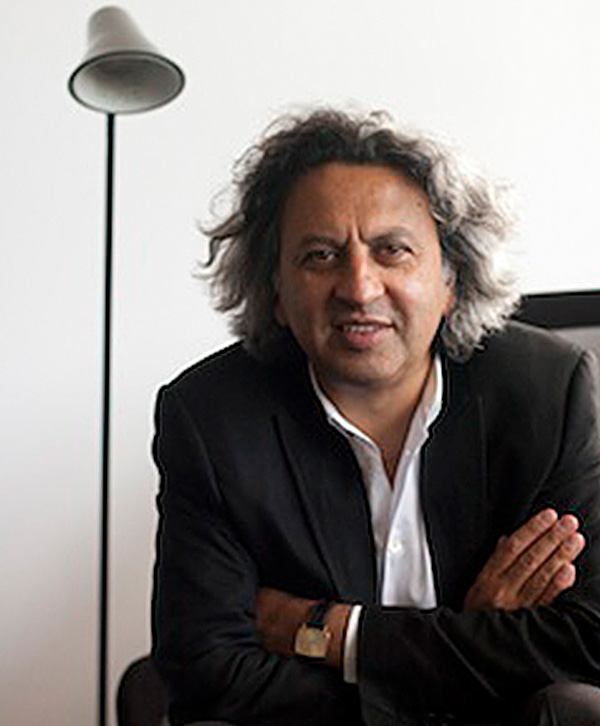
-
Professor, Harvard
Mohsen Mostafavi
Mohsen Mostafavi, architect and educator, is the Alexander and Victoria Wiley Professor of Design and Harvard University Distinguished Service Professor, and served as Dean of the GSD from 2008-2019. His work focuses on modes and processes of urbanization and on the interface between technology and aesthetics.
He was formerly the Gale and Ira Drukier Dean of the College of Architecture, Art and Planning at Cornell University where he was also the Arthur L. and Isabel B. Wiesenberger Professor in Architecture. Previously, he was the Chairman of the Architectural Association School of Architecture in London. He studied architecture at the AA, and undertook research on counter-reformation urban history at the Universities of Essex and Cambridge. He has been the Director of the Master of Architecture I Program at the GSD and has also taught at the University of Pennsylvania, University of Cambridge, and the Frankfurt Academy of Fine Arts (Städelschule).
Mostafavi is a Trustee of Smith College, an Honorary Trustee of the Norman Foster Foundation, and served on the Board of the Van Alen Institute as well as the Steering Committee and the Jury of the Aga Khan Award for Architecture. At Harvard, he co-chaired the Harvard University Committee for the Arts, served on the Smith Campus Center Executive Committee, the Harvard Allston Steering Committee, and co-chaired the Steering Committee on Common Spaces. He is also a member of the Executive Committee of the Mahindra Humanities Center, the Harvard Innovation Lab Advisory Board, the Executive Board of The Laboratory at Harvard, and the Committee on Middle Eastern Studies.
Mostafavi has chaired the jury of the Mies van der Rohe Prize for Architecture and the European, Global, and North American juries of the LafargeHolcim Awards for Sustainable Construction. He served on the design committee of the London Development Agency (LDA), the juries for the Royal Institute of British Architects (RIBA) Gold Medal and Annie Spink Award, and the advisory committee on campus planning of the Asian University for Women.
He is a consultant on a number of international architectural and urban projects. His research and design projects have been published in many journals, including The Architectural Review, AAFiles, Arquitectura, Bauwelt, Casabella, Centre, Daidalos, and El Croquis. His books include On Weathering: The Life of Buildings in Time (co-authored 1993), which received the American Institute of Architects prize for writing on architectural theory; Delayed Space (co-authored 1994); Approximations (2002); Surface Architecture (2002); Logique Visuelle (2003); Landscape Urbanism: A Manual for the Machinic Landscape (2004); Structure as Space (2006); Ecological Urbanism (co-edited 2010 and recently translated into Chinese, Portuguese, and Spanish); Implicate & Explicate (2011); Louis Vuitton: Architecture and Interiors (2011); In the Life of Cities (2012); Instigations: Engaging Architecture, Landscape and the City (co-edited 2012); Architecture is Life (2013); Nicholas Hawksmoor: The London Churches (2015); Architecture and Plurality (2016); Portman’s America & Other Speculations (2017); and Ethics of the Urban: The City and the Spaces of the Political (2017).
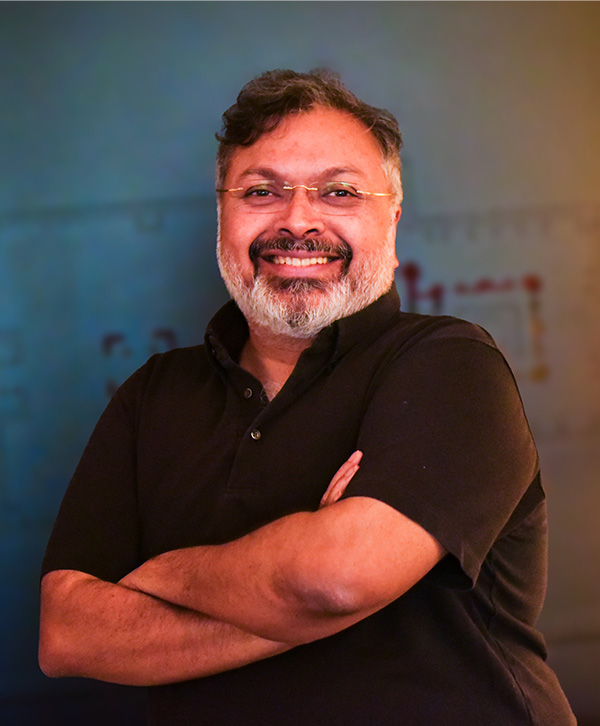
-
Speaker and Culture Consultant, Mythologist
Devdutt Pattanaik
Devdutt Pattanaik is a much sought after speaker and culture consultant, who uses mythology as a toolkit to make sense of work, life, business and entrepreneurship. He has written over 50 books on the relevance of Indian and World mythology in modern times. These include the bestselling Jaya, Sita, Olympus, Eden, Shikhandi, Sati Savitri, My Gita, Business Sutra, Faith, Shiva to Shankara, Seven Secrets of Hindu Calendar Art, Fun in Devlok many of which have been translated in various Indian and foreign languages. Trained in medicine, he worked in the pharma and healthcare industry for 15 years, before plunging full time into the world of stories, symbols and rituals. His TV shows include Business Sutra on CNBC-TV18 and Devlok on Epic TV. He has written over 1000 newspaper columns that appear regularly in Times of India, Economic Times, The Hindu, New Indian Express, Deccan Herald, Dainik Bhaskar (Hindi), Star of Mysore (Kannada) and Dharitri (Odia).
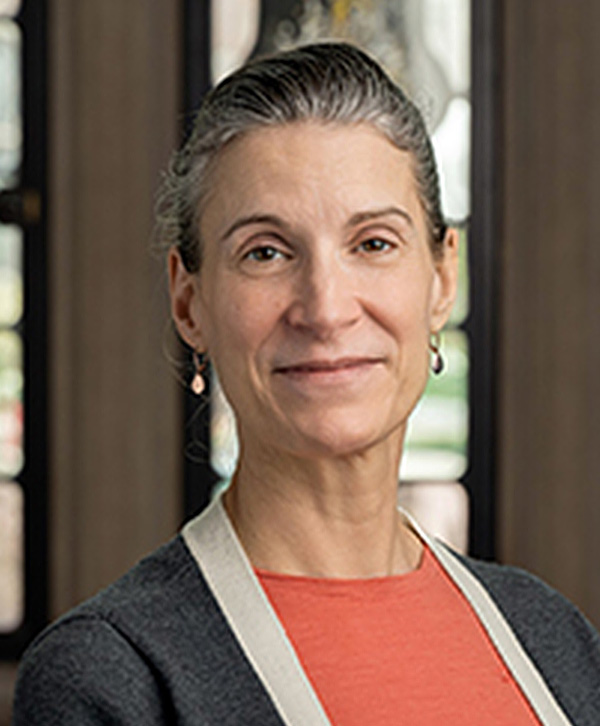
-
Millstone Family Professor of Philosophy and Cognitive Science, Yale University
L.A. Paul
L.A. Paul is the Millstone Family Professor of Philosophy and Professor of Cognitive Science at Yale University and leads the Self and Society Initiative for Yale’s Wu Tsai Institute. Her research explores questions about the nature of the self and decision-making, and the metaphysics and cognitive science of time, cause, and experience.
She is the recipient of fellowships from the Guggenheim Foundation, the National Humanities Center, and the Australian National University. She is also the author of three books, including Transformative Experience (Oxford University Press, 2014), and Causation: A User’s Guide (Oxford University Press, 2013), which was awarded the American Philosophical Association Sanders Book Prize. In 2020 she received the Dr. Martin R. Lebowitz and Eve Lewellis Lebowitz Prize for Philosophical Achievement and Contribution from the American Philosophical Association and Phi Beta Kappa Society, and in 2023 she received a Research Award, for academic achievement, from the Alexander von Humboldt Foundation.
Her work on transformative experience has been covered in major media venues such as The New York Times, The Wall Street Journal, The New Yorker, The Guardian, The Times Literary Supplement, Slate, the LA Times Book Review, NPR, and the BBC, and explored artistically, in "The Missing Shade of You", a dance and spoken word performance by the Logos Dance Collective, performed in New York City in 2017, in the documentary film “Comfort Zone”, about off-piste/extreme skiing in Scotland, and as the defining theme of the 2022 contemporary art fair Artissima, in Turin, Italy. She is currently working on a book, under contract with Farrar, Straus and Giroux, about self construction, transformative experience, humility, and fear of mental corruption.
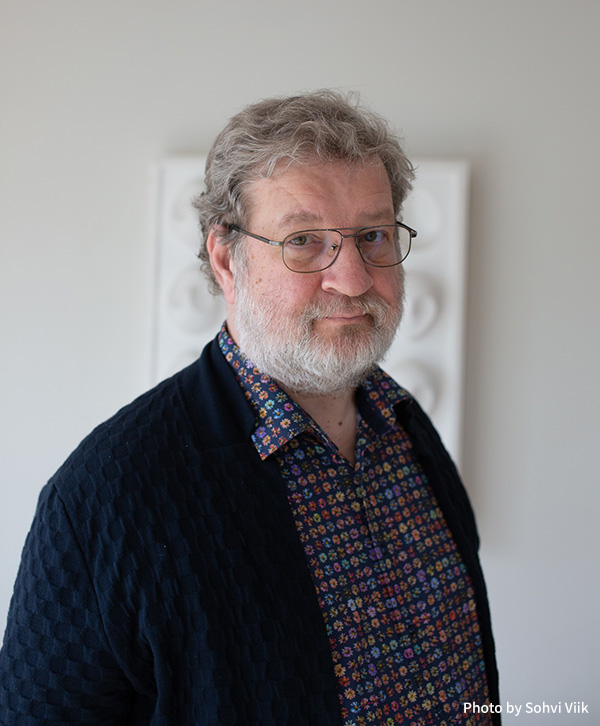
-
Professor of Asian and Cultural Studies, Tallinn University
Rein Raud
Rein Raud (born in 1961 in Tallinn, Estonia) is a scholar (philosophy, cultural theory, Asian studies with a focus on Japan) and an award-winning novelist. He studied Japanese at the St. Petersburg University (1980-85) and defended his doctoral dissertation at the University of Helsinki (1994) with classical Japanese poetry as his topic. More recently, his focus has shifted towards philosophy and cultural theory. “Meaning in Action” (2016, Polity Books) presents an innovative theory of culture and a methodology that can be used for the study of cultural phenomena across cultures and historical periods. “Being in Flux” (2021, Polity Books) summarizes his take on process philosophy and applies his version of it to the study of subjectivity, and “Linguistic Carnival of Thought” (2025, Bloomsbury) studies the varied and complicated relations between linguistic structures and philosophical thought, addressing both Western and Asian ideas as well as the linguistic phenomena underlying them.
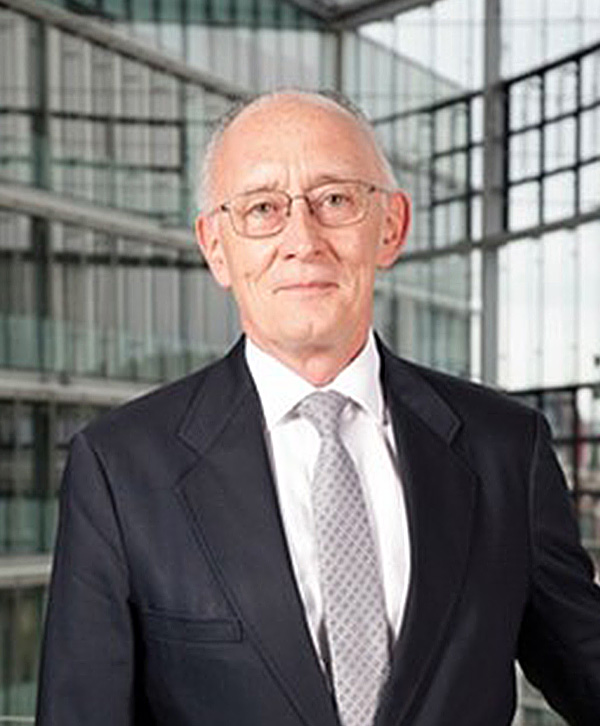
-
GESDA, Member & Secretary General of the Board of Directors
Stéphane Decoutère
Member and Secretary General of GESDA Foundation Board of Directors
Born in Brussels, Belgium, in January 1960, to a Belgian father and a Swiss mother, Mr. Stéphane Decoutère moved to Switzerland ten years later where he first completed the high-school program in Sion from 1971 to 1979 in the Latin English section.
A geographer and sociologist by training with a master degree of the University of Fribourg in these two fields as well as in French Literature, Stéphane Decoutère started his career in 1985 by working in science and communications through positions at the University of Fribourg and the Swiss Institute of Technology in Lausanne (EPFL), as well as in the private sector; he also served from 1996 to 2000 as a scientific advisor and project lead on public management to the government in Valais, one of the 26 Swiss Cantons.
Mr. Decoutère was then involved in developing Switzerland’s educational, research and innovation policy, both nationally and internationally.
•In December 2000, he joined the Swiss federal administration as personal advisor to Eric Fumeaux, the Director of the Federal Office for Vocational Education and Technology as well as President of the Swiss Innovation Agency.
•In June 2005, he was appointed as personal advisor to Federal Councillor Pascal Couchepin, the Swiss Minister of Education, Research, Culture, Health, and Social Affairs, as well as President of the Swiss Confederation in 2003 and 2008.
•In May 2010, he returned to EPFL as Head of External and Governmental Affairs to the EPFL President, first to Patrick Aebischer till end 2016 and then to Martin Vetterli.
In June 2019, Stéphane Decoutère was appointed Secretary General and acting CEO of the Geneva Science and Diplomacy Anticipator Foundation (GESDA) he had helped designing between 2017 and 2019. He was tasked by the Foundation’s Chairman Peter Brabeck-Letmathe to launch the operations from scratch and make the three-year pilot phase of GESDA a success.
After the Foundation was renewed for ten years (2022-2032) by its Founders, the Swiss and Geneva governments, Stéphane Decoutère joined GESDA's Board of Directors in October 2022 as a Member and Secretary General of the Board, his current position.
About the Geneva Science and Diplomacy Anticipator Foundation (GESDA)
An independent, private non-profit foundation under Swiss law and a private-public partnership with the Swiss and Geneva authorities, GESDA was created in 2019 to strengthen the international community's preparedness & impact through developing an instrument of anticipation and action allowing scientists, politicians, diplomats, entrepreneurs, philanthropists and citizens of the world to benefit as early as possible from emerging science disruptions.
GESDA’s Foundation’s Board of Directors is chaired by Peter Brabeck-Letmathe, Chairman Emeritus of Nestlé Group SA; Patrick Aebischer, President Emeritus of EPFL, is the Foundation’s Vice-Chairman as well as Chair of GESDA Impact Forum while GESDA’s Academic Forum is run by Michael Hengartner, Chairman of the ETH-Board in Zurich. GESDA’s Diplomatic Forum is chaired by Enrico Letta, former Italian Prime Minister as well as President of the Jacques Delors Foundation in Paris and Dean of International Affairs at IE University in Madrid. GESDA Citizen’s Forum is chaired by Mrs. Henrietta Fore, Chairman & CEO of Holsman International, former Director General of UNICEF and Administrator of USAID. Further members of the Board include Micheline Calmy-Rey, Urs Gasser, John-Arne Røttingen, Anton Rupert, Lindiwe Majele Sibanda, Magdalena Skipper and Eng Chye Tan while Prof. Marilyne Andersen serves as the Foundation’s Director General.
More information on www.gesda.global.
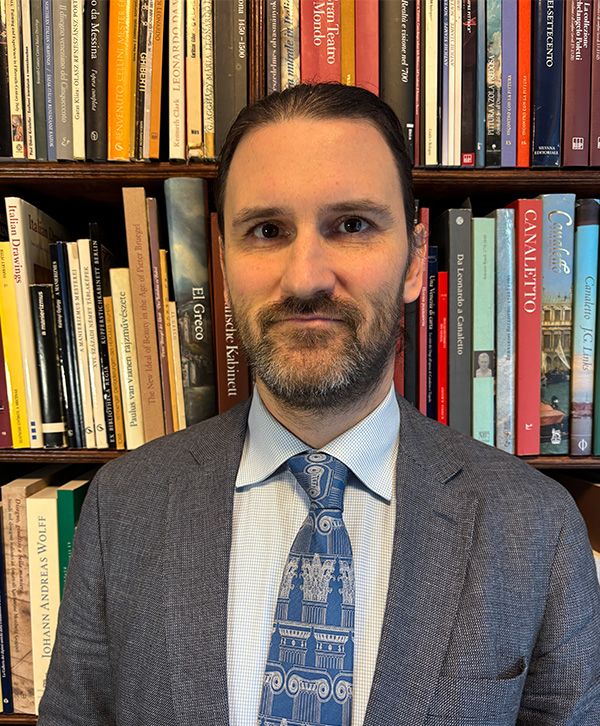
-
Associate Professor, Department of Philosophy, University of Szeged
Zoltan Somhegyi
Zoltán Somhegyi is an art historian with a Ph.D. in aesthetics and a Habilitation (venia legendi) in philosophy, and is Associate Professor at the Department of Philosophy of the University of Szeged. He was the Secretary General (2016-2022) and still is Website Editor of the International Association for Aesthetics (IAA), and he is the Deputy Secretary General of the International Council for Philosophy and Human Sciences (CIPSH) since 2023. His current research project on Art and Catastrophe - Challenging Aesthetics Around Environmental Destruction is supported by the János Bolyai Research Scholarship of the Hungarian Academy of Sciences through a three-year grant (2024-2027). Among his recent books are Reviewing the Past. The Presence of Ruins (Rowman & Littlefield International, 2020); Aesthetic Theory Across the Disciplines (Rowman & Littlefield, 2023; co-edited with Max Ryynänen) and The Routledge Companion to The Philosophy of Architectural Reconstruction (Routledge, 2024; co-edited with Lisa Giombini).
www.zoltansomhegyi.com
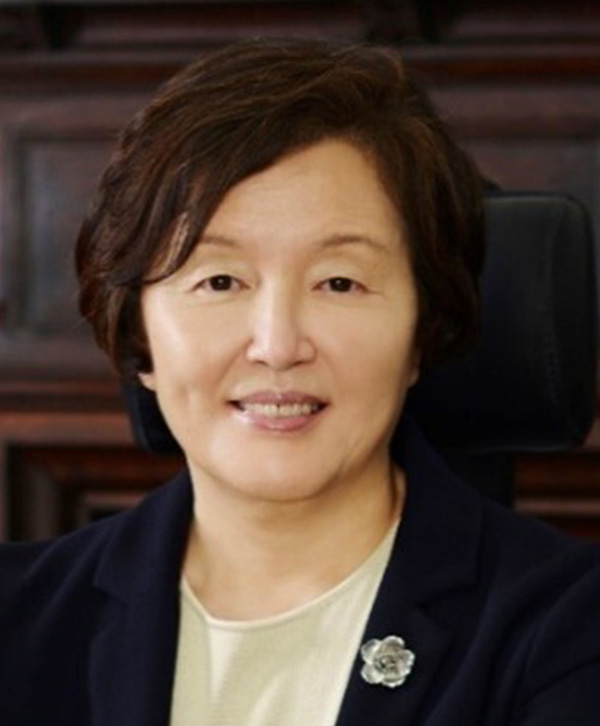
-
Professor Emerita, Ewha Womans University
Heisook Kim
Dr. Heisook Kim is currently the President of FISP (Fédération Internationale des Sociétés de Philosophie). She previously served as the 16th President of Ewha Womans University in Seoul, Korea, a position she held until February 2021. Dr. Kim earned her B.A. and M.A. from Ewha Womans University and completed her Ph.D. in philosophy at the University of Chicago in 1987.Throughout her career at Ewha, she has held leading roles in numerous academic societies, including serving as President of both the Korean Philosophical Association and the Korean Association of Feminist Philosophy. She has also contributed to several governmental advisory committees in the areas of education, law, and presidential commission on policy planning.
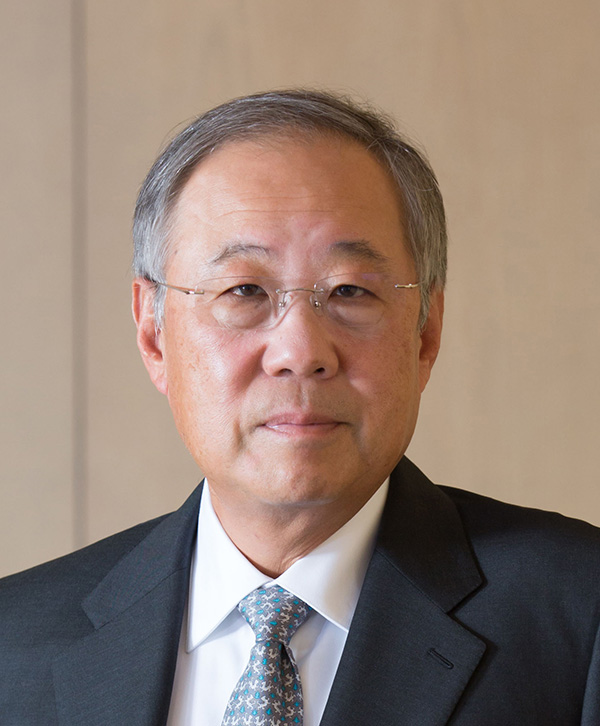
-
Chairman, Federation of Korean Industries
Jin Roy Ryu
Mr. Jin Roy Ryu succeeded his late father and founder of Poongsan Group, one of the largest manufacturers of copper products and munitions worldwide, as Chairman and CEO in 2001. He currently serves as Chairman of the Federation of Korean Industries (FKI), Chairman of the Korea-US Business Council, and Chairman of the Seoul Forum for International Affairs (SFIA). He is also a Trustee of the Center for Strategic and International Studies (CSIS), and a Member of Board of Directors of PIIE (Peterson Institute for International Economics).
Mr. Ryu actively supports numerous philanthropic and educational organizations, including as a member of the Board of Trustees at the George & Barbara Bush Foundation and the Board of Governors for the PGA Tour's First Tee Program. Domestically, he is Chairman of the Board of Trustees for both the Pearl S. Buck Foundation and the Seoae Memorial Foundation, the latter having been established in honor of Mr. Ryu's ancestor thirteen generations prior, a respected Confucian scholar and statesman of sixteenth-century Korea. Mr. Ryu remains actively connected to his alma mater, Seoul National University
In 2005, the Korean Government awarded Mr. Ryu the Order of Industrial Merit, the Gold Tower Award. In 2012, he received the Order of Civil Merit, the Moran (Peony) Medal, in recognition of his distinguished service and steadfast efforts to enhance Korea's global visibility and participation in the global community.
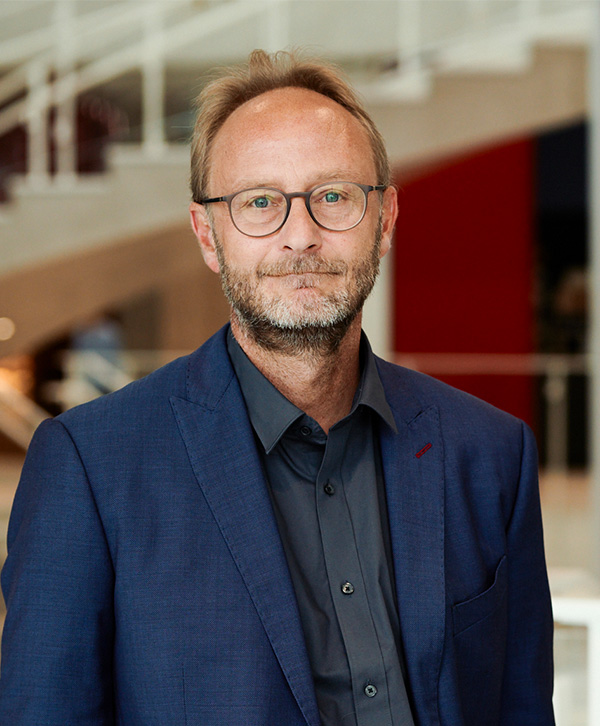
-
Professor and Director, University of St.Gallen
Thomas Beschorner
Thomas is a Professor of Business Ethics and Director of the Institute for Business Ethics at the University of St.Gallen, Switzerland. He works on topics at the intersection of social sciences and ethics in general, particularly in the fields of Business Ethics and Ethics & AI. He has published over 100 research articles and also regularly writes in leading newspapers in the German-speaking world.
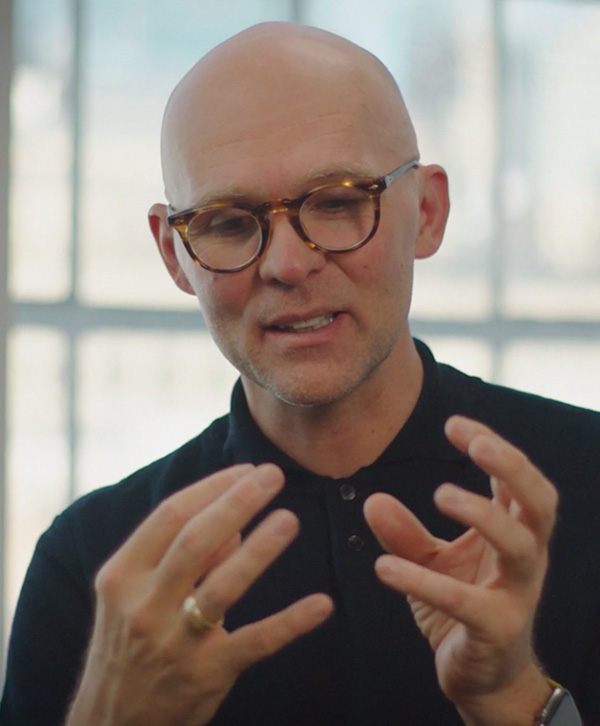
-
limn, philosopher
Tobias Rees
Tobias Rees is founder of Limn, a philosophical R&D lab dedicated to AI. He is a Senior AI 2050 Fellow of Schmidt Sciences; a Global Philosophy Scholar at Peking University; and a Senior Visiting Fellow at Google.
Prior to founding Limn, Rees was William Dawson Chair at McGill University; Reid Hoffman University Professor of Humanities at Parsons/The New School; Founding Director at the Berggruen Institute in Los Angeles; and founder and CEO of ToftH School, a short lived but insightful attempt to build a new Bauhaus.
Rees has written 7 books, over 50 articles, and is the recipient of multiple prizes and fellowships, nationally and internationally. His work appeared in the Washington Post, the Huffington Post, the NYT, Wired, NZZ, Vice, SZ, Vanity Fair, and more. He has worked as advisor to many European and North American Universities and Art Institutions and has a long history of collaborations with artists.
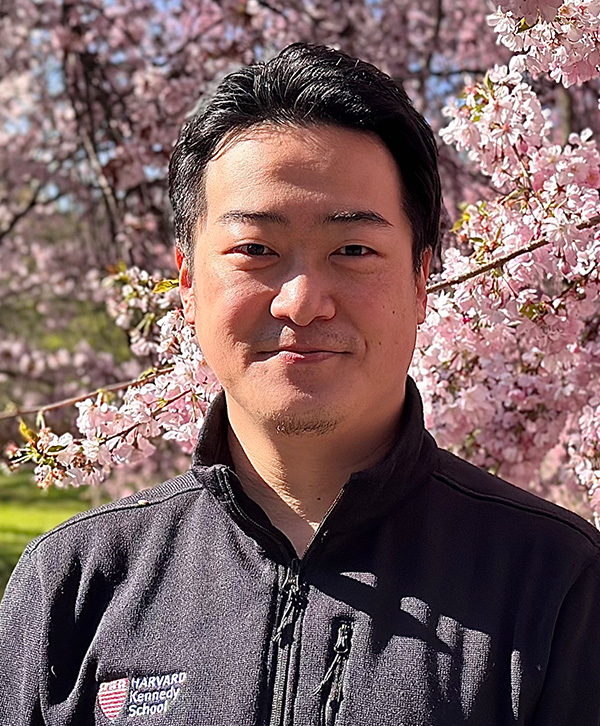
-
Executive Advisor, Chief Strategist, Kyoto Institute of Philosophy/Harvard University Graduate School of Design/ Yamauchi No.10 Family Office
Masaki Nomura
Masaki Nomura is a researcher bridging Japanese philosophy with architecture and urbanism. His research explores the potential applications of Japanese philosophy—pursuing the non-duality of subject and object, self and others, humans and nature, body and mind, and beyond—to global agendas and the conceptual frameworks that underpin them.
His professional background includes service as a national government official at Japan’s Ministry of Economy, Trade and Industry, and as a C-suite executive at the medical AI venture Aillis, Inc., which won the Grand Prix at the Startup World Cup 2023. He is also co-author of the Harvard Business School case study “The Pokémon Company: Evolving into an Everlasting Brand,” which examines a Japanese management philosophy that emphasizes long-term and mutual prosperity over short-term and individual profit.
He currently serves as Executive Advisor and Chief Strategist at the Kyoto Institute of Philosophy, Executive Advisor to the Yamauchi No.10 Family Office (the Nintendo founding family), a Special Committee Member of the Kyoto City Government’s Deliberative Council, where he is responsible for drafting the Kyoto Grand Vision 2050, and an Affiliated Research Fellow at Kyoto University. A practitioner of kendo (Japanese swordsmanship) for 29 years, he continues to cultivate its discipline as part of his philosophical practice.
He received a Master in Public Administration from Harvard Kennedy School, a Master of Philosophy from Kyoto University, and a Bachelor of Arts from the University of Tokyo, and is currently enrolled in the doctoral program at the Harvard Graduate School of Design, focusing on Japanese non-dualistic philosophy in relation to architecture and urbanism.
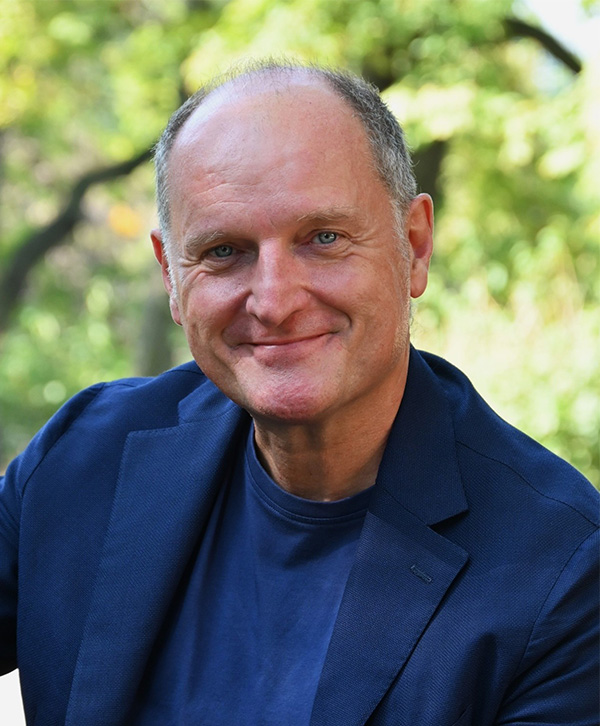
-
Full Professor, Politecnico di Torino
Guido Saracco
Full Professor of Chemical Foundations of Technology at the Polytechnic University of Turin.
He is a member of the Academy of Sciences of Turin since 2015, Guido Saracco served as Rector of his university from 2018 to 2024. He has conducted research in the areas of photochemistry, catalysis, and green chemistry, with over 500 publications to his credit. He is the curator of the Biennale Tecnologia festival and the Prometeo Tech Cultures cultural content production platform, which focus on the mutual relationships between technology and humanity.
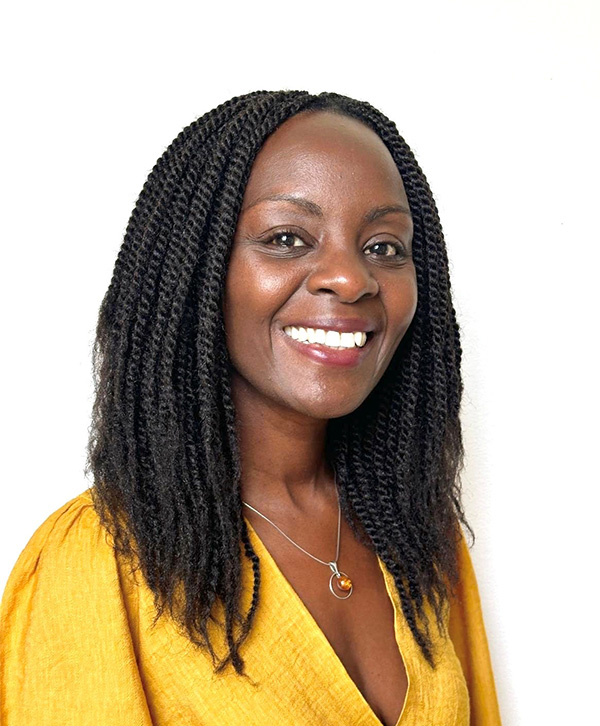
-
Head of African AI Ethics Research, Utrecht University, Netherlands (Inclusive AI Lab)
Wakanyi Hoffman
Wakanyi Hoffman is an African Scholar of Ubuntu Philosophy whose pioneering work is at the forefront of integrating Ubuntu Ethics into AI systems, leveraging it as an essential ethical framework for ensuring that these technologies promote collective human values. This approach highlights how the African indigenous principles of interconnectedness, compassion and dignity inherent in Ubuntu can guide AI to reflect ethical ways of being human, thus fostering inner well-being and planetary flourishing. Wakanyi is the lead researcher for Sustainable African AI Design for the Inclusive AI Lab at the Centre for Global Challenges (UGlobe) at Utrecht University, Netherlands.
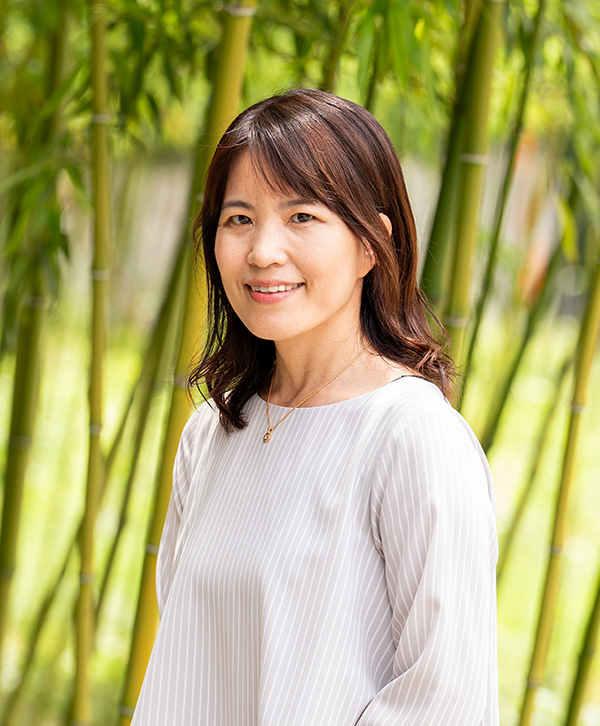
-
Director/Professor, Kyoto University Institute for the Future of Human Society
Yukiko Uchida
Yukiko Uchida is a director and professor at the Institute for the Future of Human Society (IFoHS) at Kyoto University, where she also leads the Cultural Psychology lab. She is affiliated with the Graduate School of Human and Environmental Studies at Kyoto University, where her students are enrolled. Dr. Uchida has conducted extensive empirical research in cultural psychology, focusing on international and regional comparative studies on "happiness and well-being," "self and social relations," and "emotions." Here work has resulted in numerous high-impact publications and significant contributions to social activities.
Dr. Uchida has authored over 200 academic papers published in top social psychology journals, including JPSP and Psychological Science. She has served on the editorial boards of international journals such as Cognition and Emotion and has been an invited keynote speaker at various international conferences. She has received many awards, including Kyoto University's Best Female Researcher Award, the Japanese Psychological Association International Encouragement Award, and several paper and presentation awards from academic societies. She was also selected as an APS Fellow. Currently, she is a member of the program committee for the APS annual conference.
Her achievements extend to numerous international collaborative research projects and co-authored papers with interdisciplinary researchers, though which she has disseminated impactful research results.
Dr. Uchida has established solid relationships with corporations and national governments, showcasing outstanding abilities in research exchange and the social dissemination of research findings. She was a member of the Cabinet Office's Study Group on Well-being, contributing to the development of well-being indices. She also drafted initiatives for the Ministry of Education’s Central Commission about well-being in education, where she continues to significantly influence the implementation of well-being in society. Throughout her experience, she believes it is important to foster global and interdisciplinary discussions within the APS, especially as current social issues become increasingly complex.
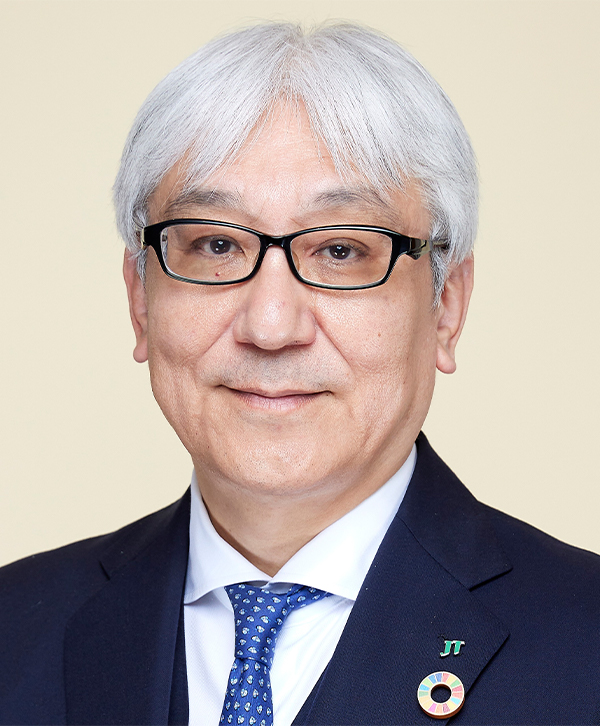
-
JAPAN TOBACCO INC
Chairperson of the BoardMutsuo Iwai
PROFESSIONAL EXPERIENCE
April 2024 – Present Representative Director, KEIZAI DOYUKAI
March 2022 – Present Chairperson of the Board
March 2020 Deputy Chairperson of the Board
March 2016 Representative Director, Executive Vice President President, Tobacco Business
June 2013 Senior Vice President, Chief Strategy Officer
June 2011 Executive Vice President and Deputy CEO JT International S. A., Geneva
June 2010 Member of the Board, Chief Strategy Officer and Executive Vice President in charge of Food Business
June 2008 Executive Vice President, Chief Strategy Officer
June 2006 Member of the Board, Executive Vice President, Food Business
June 2005 Senior Vice President, Food Business
July 2004 Vice President, Corporate Strategy Division
June 2003 Vice President, Corporate Planning Division
April 1983 Joined Japan Tobacco and Salt Public Corporation
EDUCATION
March 1983 Bachelor, Faculty of Economics Tokyo University
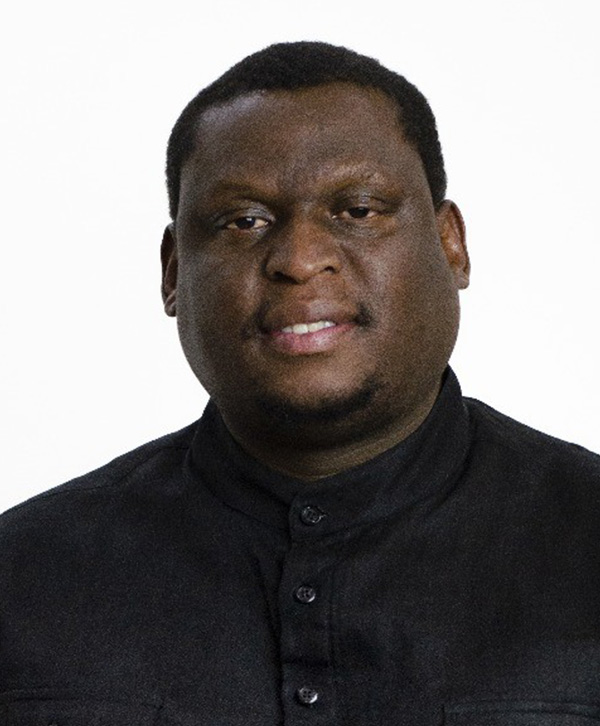
-
Professor, University of South Africa
Motsamai Molefe
Professor Motsamai Molefe is an accomplished academic leader serving as the Associate Professor and Chair of the Department for Intra-Africa Trade and Responsible Leadership at the UNISA Graduate School of Business Leadership. In addition to his role as Chair, he is the Programme Manager for the PGDipBA, MBA, and MBL programmes, where he also lectures on ethics, leadership, and governance.
His research expertise lies at the intersection of African philosophy, applied ethics, political theory, and governance. Professor Molefe has published over 50 peer-reviewed articles and book chapters, and his recent monographs include Ubuntu Ethics: Human Dignity, Moral Perfectionism, and Needs (Routledge, 2024) and Human Dignity in African Philosophy (Springer, 2022). His leadership extends beyond academia through his position as a Board Member of the Methano Group and an Advisory Council Member for the Inclusive Society Institute. He has also made significant contributions to the academic community as the former Editor-in-Chief of the South African Journal of Philosophy.
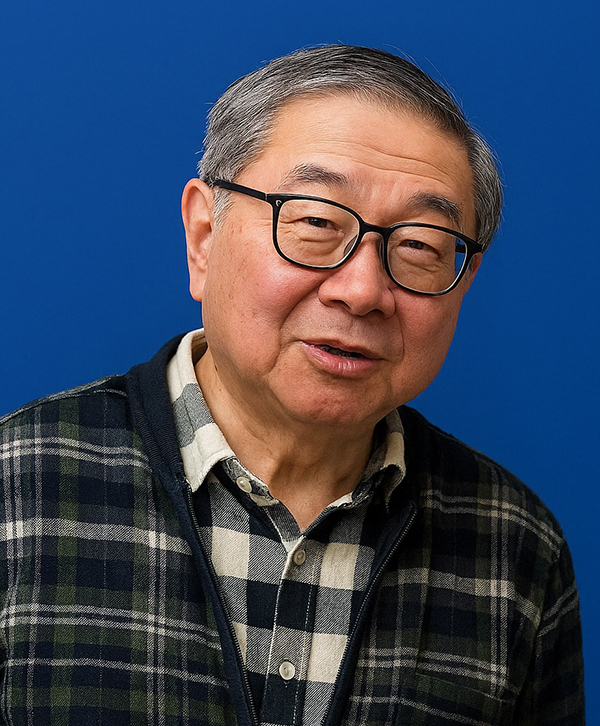
-
Professor, Senior Research Fellow, Institute for InfoSocinomics, Tama University
Izumi Aizu
Born in 1952, Izumi Aizu specializes in InfoSocionomics—the study of the Information Society. He has long explored the societal impact of emerging technologies, starting with the promotion of PC-based communication in the 1980s and the Internet in the 1990s. Since the 1990s, he has actively contributed to global policy debates on "Internet Governance" and the "Information Society," representing the civil society perspective.
Aizu has consistently focused on identifying “the new and the unknown”— developments with the potential to significantly transform society. In the 2010s, his focus shifted from an Internet-centric view to broader social innovations. He began exploring the social potential of digital fabrication, engaging with trends such as FabLabs and the Maker Movement.
Currently, he is engaged in policy and governance issues surrounding Artificial Intelligence (AI), the historical development of the Information Society in Japan, and broader topics related to open and social innovation.
He also began pro bono activities to support communities affected by the Great East Japan Earthquake and Tsunami in 2011, focusing on ICT-related assistance. He continues to visit the families of the victims at Okawa Elementary School in Ishinomaki City, where 74 students and 10 teachers lost their lives.
Career Highlights
• GLOCOM, International University of Japan (1991):branch Joined the newly established Center for Global Communications (GLOCOM), providing strategic advice on Internet policy to industry leaders and government agencies, with a strong emphasis on Asia’s role in the global context.
• Asia Network Research, Kuala Lumpur (1997):
Founded an independent research unit promoting internetworking in the Asia-Pacific, focusing on societal dimensions such as digital divide and global governance.
• Secretary General, Asia & Pacific Internet Association (1998–2000):
Represented the Internet business community and contributed to the formation of ICANN (Internet Corporation for Assigned Names and Numbers). He played an active role in Internet governance forums including the UN World Summit on the Information Society (WSIS), the Internet Governance Forum (IGF), and the Asia Pacific regional IGF (APrIGF).
• Information Support Pro Bono Platform (2011):
Co-founded this initiative to support recovery from the Great East Japan Earthquake and Tsunami using ICT.
Selected Publications
• "Co-Emulation: The Case for a Global Hypernetwork Society"
Co-authored with Prof. Shumpei Kumon. In Global Networks: Computers and International Communication, edited by Linda M. Harasim, Chapter 19. Cambridge, MA: The MIT Press, 1993.
• "Not Problems, Opportunities"
Interview with NTT President Masashi Kojima. WIRED Japan, December 1994.
• "The Emergence of Netizens: The Cultural Impact of Network Evolution in Japan"
NIRA Review, Fall 1995.
• "Why Asians Should Join the Domain-Name Fray"
The Asian Wall Street Journal, February 28, 2000.
• "A Comparative Study of Broadband in Asia: Deployment and Policy"
Discussion Paper, 2002.
• "Beyond Network Neutrality: The State of Play in Japanese Telecommunication Competition"
Co-authored with Judit Bayer. Telecommunications Journal of Australia, July 2009.
• "Digital Platform Regulation in Japan – Does the Soft Approach Work?"
In Perspectives on Platform Regulation: Concepts and Models of Social Media Governance Across the Globe, edited by Judit Bayer et al. Baden-Baden: Nomos Verlagsgesellschaft mbH & Co. KG, 2021.“Co-Emulation: The Case for a Global Hypernetwork Society”, co-authored with Prof. Shumpei Kumon, Chapter 19 of “Global Networks Computers and International Communication”, edited by Linda M. Harasim, The MIT Press, 1993
"Not problems, opportunities", An interview with NTT President Masashi Kojima, WIRED, Dec. 1994
"The Emergence of Netizens: The Cultural Impact of Network Evolution in Japan", NIRA Review, Fall 1995.
“Why Asians Should Join The Domain-Name Fray”, in THE ASIAN WALL STREET JOURNAL, Feb 28, 2000
“A Comparative Study of Broadband in Asia: Deployment and Policy” A Discussion Paper, 2002
“BEYOND NETWORK NEUTRALITY, The State of Play in Japanese Telecommunication Competition”, co-authored with Judit Bayer, Telecommunication Journal of Australia, July 2009
“Digital Platform Regulation in Japan – does the soft approach work in?” in “Perspectives on Platform Regulation – Concepts and Models of Social Media Governance Across the Globe”, edited by Judit Bayer et al, Nomos Verlagesellschaft mbH & Co. KG, 2021
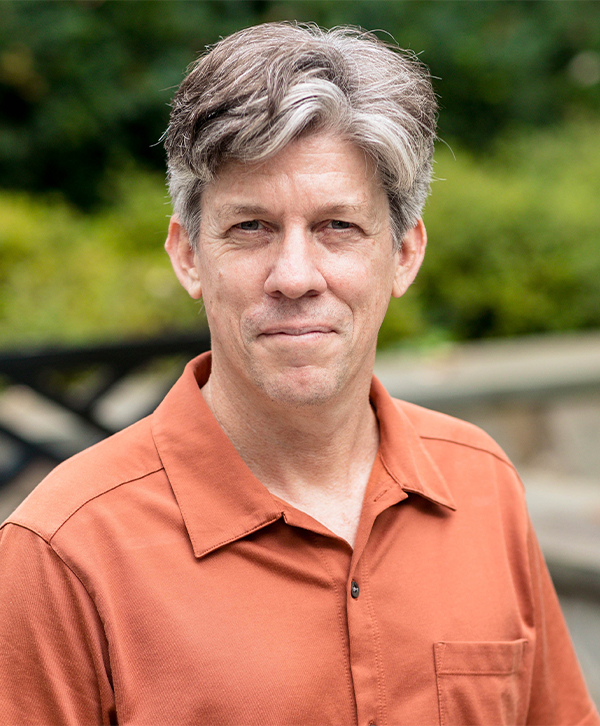
-
Professor and Higgins Chair of Philosophy, Loyola University Maryland
Bret Davis
Bret W. Davis is Professor and Higgins Chair in Philosophy at Loyola University Maryland, USA, where he teaches courses on Asian, Western, and cross-cultural philosophy, and directs The Heart of Zen Meditation Group. In addition to attaining a Ph.D. in philosophy from Vanderbilt University in the United States, he has studied, researched, and taught in Germany and Japan. While living in Japan for more than a dozen years, he studied Buddhist philosophy at Otani University and Japanese philosophy at Kyoto University, taught at various universities, and practiced Rinzai Zen at Shōkokuji monastery. Recently he spent five months at the Freiburg Institute for Advanced Studies as a Senior Fellow, working on a project entitled “Wissen über Grenzen” (Knowledge across Borders), and taught intensive seminars on Japanese Philosophy at Tokyo University and Kyoto University. He has published widely on Zen Buddhism and the Kyoto School as well as on various topics and figures in continental and cross-cultural philosophy. His recent books include 『日本哲学――世界哲学への貢献』(Japanese Philosophy: Contributions to World Philosophy, Chikuma Sensho, 2025), Zen Pathways: An Introduction to the Philosophy and Practice of Zen Buddhism (Oxford University Press, 2022), and The Oxford Handbook of Japanese Philosophy (ed., Oxford University Press, 2020).
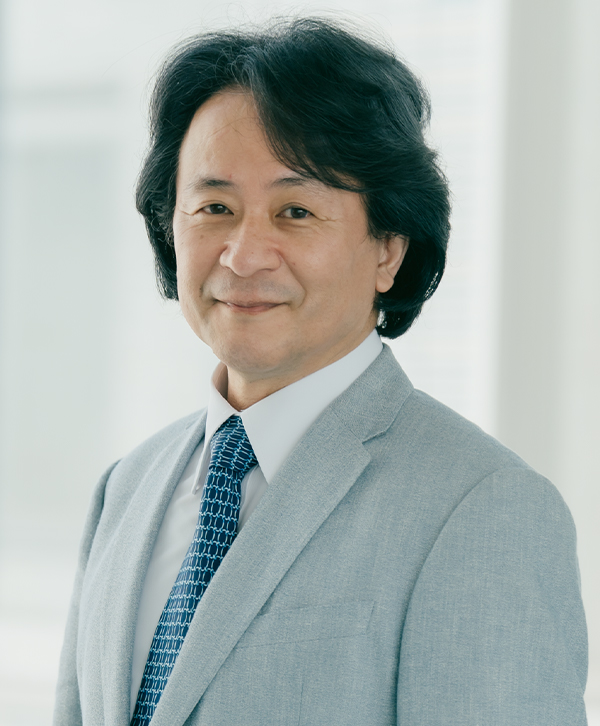
-
Advisor to the president, University of Osaka
Takuo Dome
Takuo Dome received his Ph.D. in Economics from the Graduate School of Economics at Kyoto University. He has served as Professor at The University of Osaka since 2001 and as Specially Appointed Professor since 2025. His areas of expertise are the history of economic thought and economic philosophy. His book Political Economy of Public Finance in Britain 1767–1873 (Routledge, 2004) was awarded the Nikkei Economic Book Culture Prize, and his Japanese publication Adam Smith: The World of The Theory of Moral Sentiments and The Wealth of Nations (Chuokoron-Shinsha, 2008) received the Suntory Prize for Social Sciences and Humanities. In 2019, he was awarded the Medal with Purple Ribbon by the Japanese government. In 2018, he established the think tank Social Solution Initiative (SSI) at The University of Osaka. In 2023, he was appointed Vice Chair of the Executive Committee of the Inochi Forum, and has served as Chair since 2025. He is currently leading the preparation of the Inochi Declaration, to be presented at the Osaka-Kansai Expo.
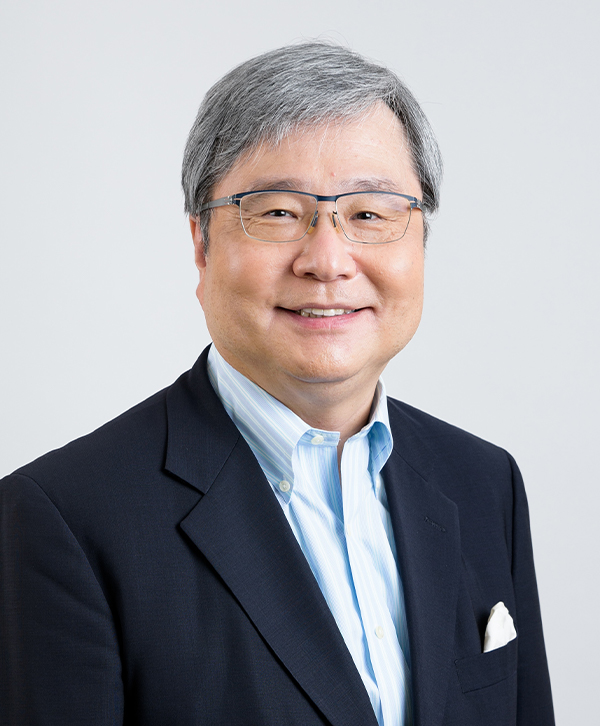
-
Professor, Tama University Graduate School of Business
Tsutomu Horiuchi
Professor at Graduate School of Management and Information Sciences, Tama University; Director of the Center for Sustainability Management, Tama University; Director of 100-Year Corporate Strategy Research Institute; Board Member of Tama University; Advisor to the President’s Office, The University of Tokyo; Member of the Management Council, Tokyo University of Science; Councilor of Social Innovation and Investment Foundation (SIIF); Board Member of Kawamura Cultural and Artistic Promotion Foundation; Executive Member and Co-Chair of the Liberal Arts Program, Japan Association of Corporate Executives (Keizai Doyukai); Board Member and Co-Chair of the Arts & Culture Committee, Asia Society Japan Center; Steering Committee Member of the “Humanity and Capitalism” Research Project at the Inamori Institute for Ethical Management, Ritsumeikan University; Member of the Japan Society for Business Ethics Study, among others. His major publications include: “Corporate Finance: A Practical Guide”, “The Philosophy of Finance: Ten Essential Concepts for a Fundamental Understanding of Capitalism”, “Where is Capitalism Headed? The Future of Capitalism and Humanity”, “200 great books in human history on economy, philosophy, history and science for world business leaders”, “Reading That Changes Lives: Transforming 3,000 Years of Human Wisdom into Power”
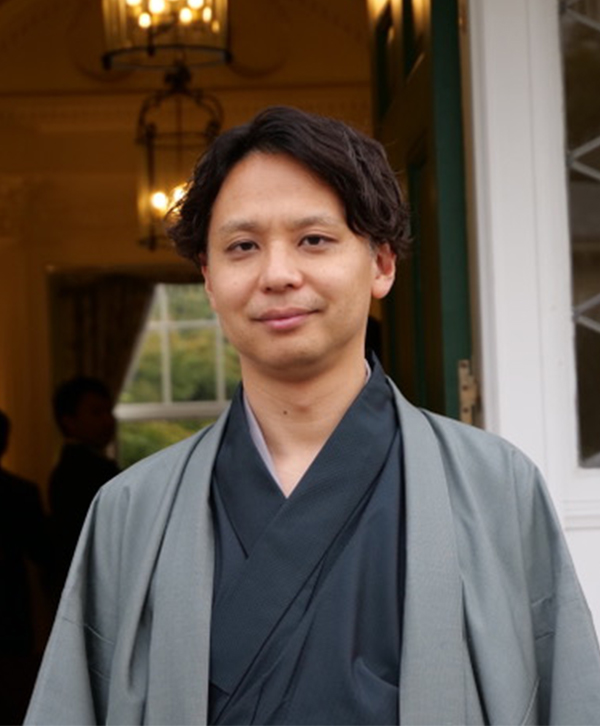
-
Professor, Kyoto University
Tatsuhiko Inatani
Tatsuhiko Inatani is a professor at Kyoto University Graduate School of Law. He specializes in digital law and criminal justice. In particular, his research focuses on the legal governance of advanced science and technology and corporate crime. He employs an interdisciplinary research methodology, applying knowledge from adjacent fields such as neurocognitive science, economics, anthropology, and contemporary philosophy. He is also the PI of the research team on Artificial Intelligence and Law at the Center for Interdisciplinary Studies on Law and Policy, Kyoto University. He is also a visiting researcher at RIKEN AIP. He has served on various committees of the Cabinet Secretariat, METI, Digital Agency, IPA-DADC, and WEF. He has also conducted joint research with several companies and with several international research institutions. His significant publications include Protection of Privacy in Criminal Procedure: For Due Process and Deliberative Democracy (2017), A Novel Governance System in Society 5.0 and the Role of Its Sanction System in E. Chiba ed, Digital Platform and Rulemaking (2023), "Legal Being": Going Beyond the Debate of Legal Personhood for "Intelligent" Nonhumans, in Woodrow Barfield, Yueh, Hsuan Weng & Ugo Pagallo eds., The Cambridge Handbook on the Law, Policy, and Regulation of Human-Robot Interaction (2024), and Agile Governance: Japanese Approach to Governing Cyber-Physical Systems, in Ugo Pagallo & Massiom Durante eds., De Gruyter Handbook on Law and Digital Technologies (2025 forthcoming). He holds a Bachelor of Arts degree from the University of Tokyo and a Juris Doctor degree from Kyoto University Law School. He was also a visiting researcher at the law school of the SciencesPo. Paris (2013-2014) and at the Department of Political Science at the University of Chicago (2014-2015).
CURRICULUM VITAE
EDUCATION
Kyoto University School of Law, Kyoto, Japan
J.D. (2008)The University of Tokyo, Tokyo, Japan
B.A. in Linguistics (2005)EXPERIENCE
Kyoto University School of Law, Kyoto, Japan
Professor of Law, 2021-present
Associate Professor of Law, 2011-2021
Assistant Professor of Law, 2008-2011
Sciences Po. École de droit, Paris, France
Professeur Invité, 2013-2014The University of Chicago, Department of Political Science
Visiting Scholar, 2014-2015PUBLICATIONS
Books
Tatsuhiko Inatani, PROTECTION OF PRIVACY IN CRIMINAL PROCEDURE: FOR DUE PROCESS AND DELIBERATIVE DEMOCRACY (2017)
Tatsuhiko Inatani, Moralizing Technology and Criminal Law in Y. Matsuo ed., ARCHITECTURE AND LAW (2017)
Tatsuhiko Inatani, Criminal Law of Post-humanism, M. Usami ed., LAW AND SOCIETY CHANGING WITH AI (2020)
Tatsuhiko Inatani, Methodology of Interpretation of Criminal Procedure in K. Yamamoto & T. Nakagawa eds., METHODOLOGY OF LEGAL INTERPRETATION (2021)
Tatsuhiko Inatani, “Moralizing Technology" and Criminal Law Theory in G. Borges & C. Sorge eds., LAW AND TECHNOLOGY IN A GLOBAL DIGITAL SOCIETY (2022)
Tatsuhiko Inatani, A Novel Governance System in Society 5.0 and the Role of Its Sanction System in E. Chiba ed, DIGITAL PLATFORM AND RULEMAKING (2023)
Tatsuhiko Inatani, "Legal Being": Going Beyond the Debate of Legal Personhood for "Intelligent" Nonhumans, in Woodrow Barfield, Yueh, Hsuan Weng & Ugo Pagallo eds., THE CAMBRIDGE HANDBOOK ON THE LAW, POLICY, AND REGULATION OF HUMAN-ROBOT INTERACTION (2024)
Tatsuhiko Inatani, Agile Governance: Japanese Approach to Governing CyberPhysical Systems, in Ugo Pagallo & Massiom Durante eds., DE GRUYTER HANDBOOK ON LAW AND DIGITAL TECHNOLOGIES (2025 forthcoming)
Tatsuhiko Inatani, METHODOLOGIES AND CHALLENGES OF CRIMINOLOGY (2025 forthcoming)Articles
Protection of Privacy in Criminal Procedure: For Due Process and Deliberative Democracy (1)-(8), HOGAKURONSOU (KYOTO LAW REVIEW) 169-1-1, 169-5-1(2011), 171-5-26, 171-6-1, 172-2-1(2012), 173-2-1,173-3-1,173-6-1(2013)
Criminal Procedure and IT Revolution in Masahito Inoue ed., THE ISSUES ON CRIMINAL PROCEDURE (4th ed.) (2013)
Protection of Privacy in Criminal Procedure: For Due Process and Deliberative Democracy in KEIHO-ZASSHI (JOUNAL OF CRIMINAL LAW SOCIETY OF JAPAN) 52-3 (2014)
Co-author of Osawa Hideyuki et.al ed., KAKUNIN-KENPO-YOGO300 (2014) BEWEISVERBOT AND THE RIGHT TO REJECT TESTIMONY IN JAPANESE CRIMINAL PROCEDURE (2014)
The Regulation of Informational Process in Police Institution, in Co-author of Osawa Hideyuki et.al ed., NYUMON-ANZEN-TO-JYOUHOU (2015)
Contemporary Problems of Countermeasures against Corporate Crime: The impact of DPA/NPA on Modern Criminal Justice, HOGAKURONSOU (KYOTO LAW REVIEW) (2016 - present)
Innovative Criminal Procedure for Corporate Crime: DPA/NPA in the U.S., 58 CRIMINAL LAW JOURNAL JAPAN 69 (2018)
A Novel Criminal Justice System for Artificial Intelligence, 91-4 HOURITSU-JIHO 54- 59 (2019)
A Transactional Criminal Justice for Corporate Crime, 58-1 Keiho-Zasshi 44-54 (2019)
On the Future Governance System: Governance Innovation and Beyond, 44 Nextcom15-25(2020)
Intervention into Child Abuse and Multi-Agency Approach, 60-1 Keiho-Zasshi 20- 33 (2021)
Contemporary Legal Issues and Hegel’s Legal Theory, 27 Research on Hegel Philosophy, 41-53 (2021)
Justice and Injustice of Punishment: Examination of the International Criminal Court from the Domestic Criminal Justice, 93-7 Horitsu-Jiho 41-46 (2021)
Is Digital Criminal Justice Criminal Justice?: Criminal Justice by Design, 94-3 Horitsu-jiho 46-51 (2022)
Agile Governance and Its System Design, 2289 Jyunkan-Shoji-Homu, 24-35 (2022) (with Daisuke Fukamizu)
Contemporary Issues on Robot ELSI: Toward Transdisciplinary Studies, 41-1 Journal of Robotics Society of Japan 5-8 (2023)
Human-Law-Robot: Toward Co-evolving Legal System with Science and Technology, 41-5 Journal of Robotics Society of Japan 432-436 (2023)PROFESSIONAL AFFILIATIONS
Member, The Criminal Law Society of Japan,
Member, Association Internationale de Droit Pénal
Member and Journal Editor (2021-2025), The Robotics Society of Japan
Member, The Japanese Society for Cognitive Psychology
Director, The Japanese Society of Artificial Intelligence
Director, The Japanese Society of Law and EconomicsEXTERNAL ACTIVITIES, PRESENTATIONS AND WORKSHOPS
Member of the Academic Advisory Board of the Judiciary Conference in Osaka Prefectural Court (2009-)
Member of the Academic Advisory Board of Police in Kansai Region (2011-)
Visiting researcher at RIKEN Institute of Advanced Intelligence Center (2019-)
Member of Study Group of Novel Governance System for the Society 5.0 at METI (2019-)
Member of the Working Group of Regulatory Institutional Reform for Digitalization at Digital Agency (2020-2024)
Member of Global Future Council on the Future Technology Policy at WEF (2023- 2024)
Member of the Sub-working Group on Novel Social Rules for Automated Driving Systems in AI-Era (2023-2024)
Member of the Study Group of International Data Governance at Digital Agency (2023-)
Member of the Advisory Group of International Data Governance at Digital Agency (2024-)
Member of Expert Group for DFFT at OECD IAP (2024-)
Chair of the Working Group of Data Security at Digital Agency (2024-)
Member of the Study Group on the Legal Framework and Architecture for Utilization of Data at Cabinet Secretariat (2024-)
Chair of the Study Group on Institutional Reform for Digitalization at Digital Agency (2025-)
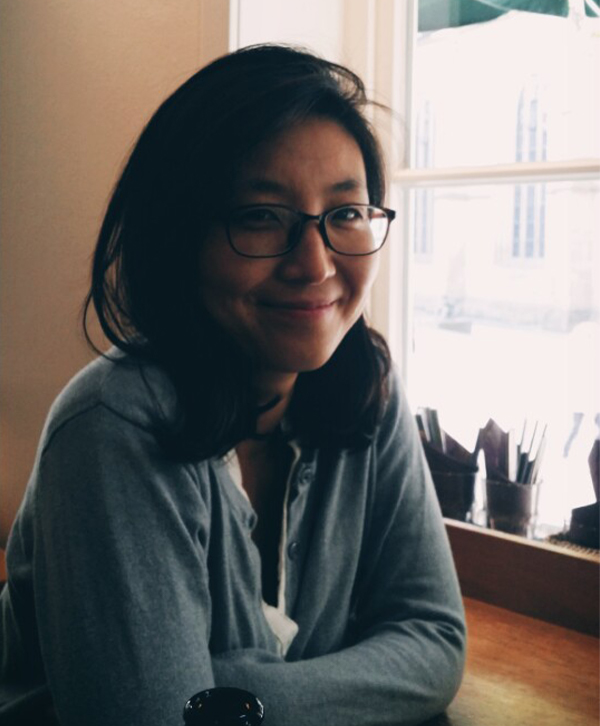
-
Associate Researcher, Ecole Normale Superieure
Hye Young Kim
Hye Young Kim is an associate researcher in philosophy at the École Normale Supérieure in Paris, affiliated with the Husserl Archives. She holds a PhD in philosophy from the Freie Universität Berlin. Her research focuses on phenomenology, consciousness, intercultural philosophy, and the intersection of philosophy and mathematical modeling. She is the author of We as Self: Ouri, Intersubjectivity, and Presubjectivity (Routledge, 2021) and Sorge und Geschichte: Phänomenologische Untersuchung im Anschluss an Heidegger (Duncker & Humblot, 2015). She is currently collaborating with mathematician Louis Kauffman on a joint project exploring shared consciousness through mathematical modeling. She also co-organizes the Symbolon seminar series in collaboration with Intel, fostering interdisciplinary dialogue between philosophy and science.
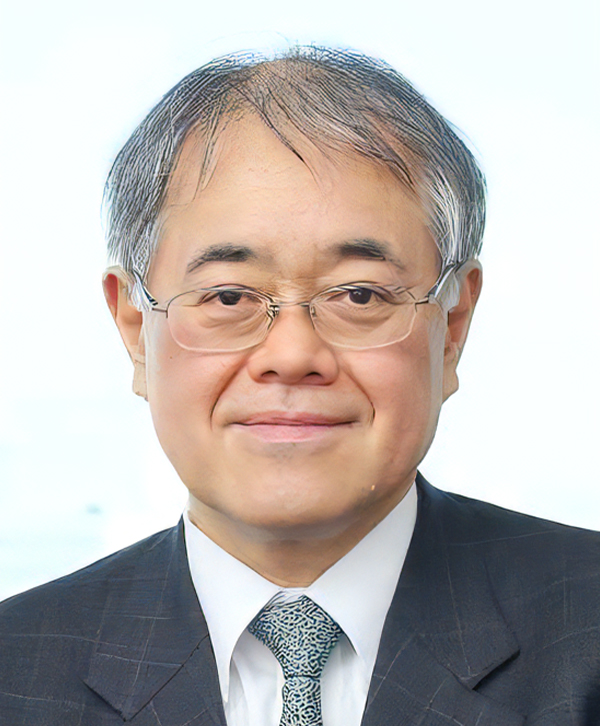
-
Professor, Kyoto University Graduate School of Education
Hiroto Koda
Adjunct Professor, Hitotsubashi University Business School, Professor, SBI Graduate School
He joined The Industrial Bank of Japan, Ltd. (currently Mizuho Bank, Ltd.) in 1982. In 2009, he served as Executive Officer, Managing Executive Officer, Senior Executive Managing Director Deputy President and advisor of Mizuho Securities. In July 2018, he became President and CEO of the Innovation Intelligence Research Institute Inc. and President and CEO of Reading Skill Test, Inc. He also serves as outside director of Japan Investment Corporation and Polaris Capital Group Co., Ltd., as well as Chairman of the Financial Council's Asset Management Task Force and the Venture Capital Advisory Council.
BA in Economics from Hitotsubashi University
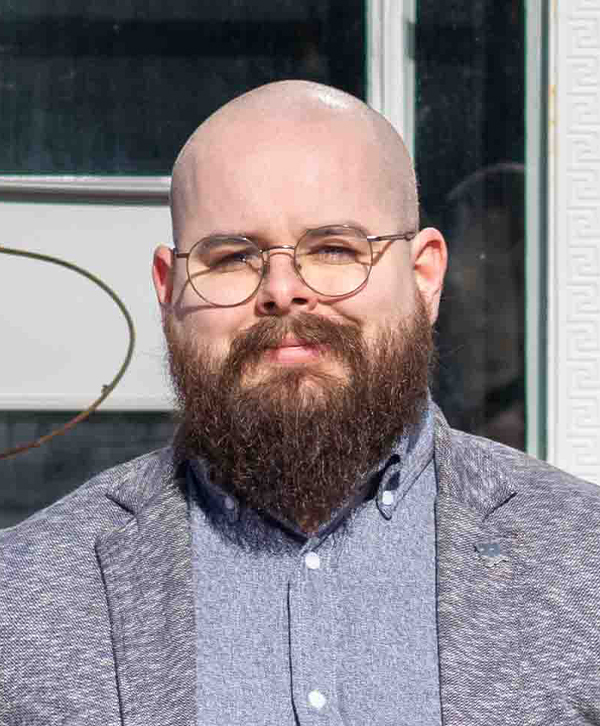
-
Japan Affairs Manager, Innovation & Ecosystems, University of Helsinki
Mikael Malmivaara
Mikael Malmivaara works at the University of Helsinki’s Department of Innovation Ecosystems, where he manages East Asian Affairs, helping connect corporations, investors, academic & research organisations, and public sector institutions from Japan, South Korea, Singapore, and beyond with University of Helsinki’s research & innovation ecosystem to facilitate open innovation and collaboration. He is also the Head of Communications & Community Relations at the Helsinki Incubators, the University of Helsinki’s startup programmes, and is working on a PhD on Food Systems Innovations.

-
President, Kyoto University
Nagahiro Minato
Nagahiro Minato is the president of Kyoto University. Born in 1951, he holds the degree of doctor of medicine. After graduating from Kyoto University’s Faculty of Medicine in 1975, he worked as an associate researcher at the Albert Einstein College of Medicine from 1977–80. In 1992, he was appointed as professor of immunology and cell biology at Kyoto University’s Graduate School of Medicine, where he served as dean from 2010–14. After serving as Kyoto University’s provost and executive vice-president, Dr. Minato was appointed as the 27th president in October, 2020. His main interest is immunology, a field in which he has published approximately 220 scientific papers throughout his career. In 2002, he invented PD-1 checkpoint blockade cancer immunotherapy with Dr. Tasuku Honjo.
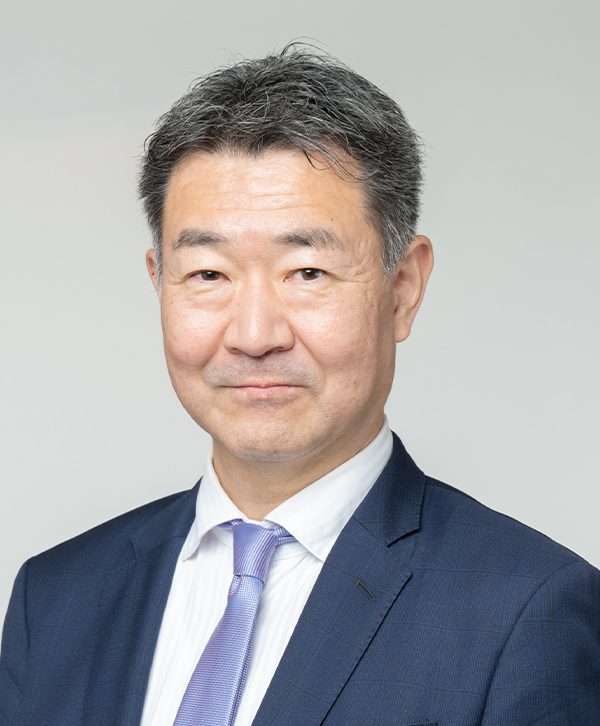
-
Professor, The University of Tokyo, Department of Systems Innovation, School of Engineering
Akihiro Nakao
Akihiro Nakao received his B.S. (1991) in Physics, M.E. (1994) in Information Engineering from the University of Tokyo. After working at the IBM Austin Research Laboratory in Texas and the IBM Tokyo Research Laboratory, he earned both his M.S. and Ph.D. degrees in Computer Science from Princeton University. In 2005, he was appointed as Associate Professor, and in February 2014, as Professor in Applied Computer Science, at Interfaculty Initiative in Information Studies, Graduate School of Interdisciplinary Information Studies, the University of Tokyo. Since 2020, he has been a special adviser to the President of the University of Tokyo (-present). In April 2021, he has moved to School of Engineering, the University of Tokyo (-present), and since then he has been serving as Director, Collaborative Research Institute for NGCI,(Next-Generation Cyber Infrastructure), the University of Tokyo (-present). In 2024, he was appointed Co-Chair of XGMF (XG Mobile Promotion Forum) (-present). His research interests lie in information science and information and communication.
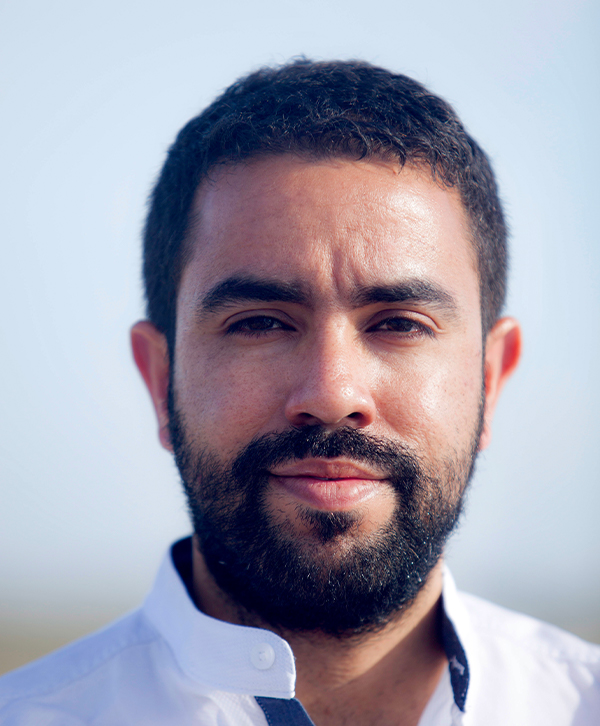
-
Professor of Philosophy, University of Cape Town
Ryan Nefdt
Academic Positions Jul 2019 - Present Professor - Department of Philosophy
University of Cape Town
Sep 2024 - Sep 2027 Senior Research Fellow - Department of Philosophy
University of Bristol
Sep 2023 - Jan 2024 Acting Deputy Dean of Research - Faculty of Humanities
University of Cape Town
Jan 2018 - Jun 2019 Andrew Mellon Senior Lecturer
Department of Philosophy
University of the Western Cape
Jan 2017 -Dec 2017 Oppenheimer & UCT Post-Doctoral Fellow in Philosophy
Department of Philosophy
University of Cape TownAcademic Focus
AOS: Philosophy of Linguistics; Cognitive Science; Philosophy of AI
AOC: Philosophy of Language; Logic; Philosophy of Science; African PhilosophyEducation
Jan 2014 - Dec 2016 PhD in Philosophy
University of St Andrews and University of Stirling, United Kingdom
Thesis: The Foundations of Linguistics: Mathematics, Models, and Structures
Supervisors: Dr. Ephraim Glick (St Andrews) and Prof. Josh Dever (Texas, Austin)
Examiners: Prof. Zoltán Szabó (Yale) and Assoc. Prof. Patrick Greenough (St Andrews)
Aug 2011-Aug 2013 Master of Science (MSc) in Logic and Linguistics
Institute for Logic, Language and Computation (ILLC), University of Amsterdam,
the Netherlands
Feb 2009 - Jun 2011 Master of Social Science (MSocSc) in Philosophy - Cum Laude
University of Cape Town (UCT), South Africa
Feb 2008 - Dec 2008 BSocSc (Honours) in Philosophy - Cum Laude
University of Cape Town (UCT), South Africa
Feb 2005 - Dec 2007 Bachelor of Social Science (BSocSc) in Philosophy and Political Science,
minor in Greek
University of Cape Town (UCT), South AfricaResearch Positions
Oct - Nov 2022 Visiting Fellowship, Department of Linguistic and Cultural Evolution
Max Planck Institute for Evolutionary Anthropology
Sep 2022 - Nov 2022 Visiting Fellowship, Department of Translation & Language Sciences
Universitat Pompeu Fabra, Barcelona
Nov 2021 - Apr 2022 Visiting Fellowship, Department of Linguistics & Philosophy
Massachusetts Institute of Technology
Jan 2021 - Apr 2021 Visiting Fellowship, Center for the Philosophy of Science
University of Pittsburgh
Nov 2018 - Jan 2019 Visiting Professorship, Interdisciplinary Center for Global Change
University of Minnesota, Twin Cities
Oct - Nov 2018 Research Scholar, Department of Linguistics
University of Edinburgh
Mar - May 2016 Visiting Scholar, Department of Philosophy
Yale University
Jul -Nov 2015 Research Scholar, Department of Philosophy
University of Texas at Austin
Jun -Sep 2012 Research Scholar, Department of Philosophy
University of Leeds
Dec 2010 -May 2011 Rackham Non-degree Student in Philosophy and Linguistics
University of Michigan, Ann Arbor
Aug 2009 -May 2010 Research Scholar, Department of Philosophy
University of Michigan, Ann ArborSelected Scholarships, Awards, Grants
2024 University of Bristol 3 year Senior Fellowship
2021 Carnegie New York African Diaspora Project Award
2021 JCI Top 10 Outstanding Young South Africans
2021 Dean’s Teaching Award
2021 Vice Chancellor’s 2030 Vision Fellowship (2021-2026)
2021 NRF Presidential rating Researcher (2021-2026) [highest rating for under 35s]
2021 HSRC Medal for Emerging Researcher in Humanities and Social Science
2020 UCT College of Fellows Young Researcher Award
2020 UCT Grant Seeker Excellence Award
2019 UCT Humanities Emerging Researcher Award
2018 AW Mellon Visiting Professorship at University of Minnesota
2017 Harry Oppenheimer Postdoctoral Fellowship
2015 Arché Research Scholar Award
2015 CAPOD Conference Award - provided by University of St Andrews career centre
2015 St Leonard’s Doctoral Scholarship - tuition award administered by St Andrews
2014 Golden Key International Summit Travel grant - provided for accepted workshop
2014 St Andrews and Stirling Scholarship (SASP) - PhD maintenance scholarship
2014 National Research Foundation (NRF) Doctoral Abroad Scholarship
2011 Erasmus Mundus Scholarship for Study in the Netherlands (2011-2013) - MSc award
2010 Harry Oppenheimer Memorial Trust Scholarship
2009 Reese-Miller International Scholarship (2009-2010) - UCT to Michigan
2009 McKinsey & Company’s Golden Key Chapter Award Winner for Academic MeritResearch and Publications
Monographs
June 2023 Language, Science & Structure.
New York: Oxford University Press
April 2024 The Philosophy of Theoretical Linguistics.
Cambridge University Press
May 2025 Linguistic Relativity: A guide to past debates and future applications.
(With Jeff Pelletier)
Oxford University Press
Aug 2025 The Philosophy of Linguistics.
Cambridge Elements Series in the Philosophy of Science
Edited Volumes
forthcoming Nefdt, R., Dupre, G., & Stanton, K. Oxford Handbook of the Philosophy of
Linguistics.
Oxford University Press.
2020 Nefdt, R., Klippi, C., & Karstens, B. (2020). Philosophy and Science
of Language: Interdisciplinary Perspectives. Palgrave Mcmillan, UK.
Special Issues
2025 Nefdt, R. (with Brett Reynolds, Chris Potts & James McDonald)
English Language and Linguistics: Articles in Honour of Geoffrey Pullum
The Journal of Linguistics.
Entries
2022 Philosophy of Linguistics. the Stanford Encyclopedia
of Philosophy (with Geoff Pullum and Jeff Pelletier).
2024 Compositionality. MIT Open Encyclopedia of Cognitive
Science (with Chris Potts).
Peer-reviewed Publications
2025 Chomsky, Naturalism, and Conceptual Engineering.
The Monist. (forthcoming)
2024 Qualifying Knowledge and Knowledge Sharing in Multilingual Models.
Transactions on Machine Learning Research (with Guerin, N & Chemla, E)
2024 Pullum’s philosophy of linguistics: a unified account.
Journal of Linguistics.
2024 Theoretical Linguistics and the Philosophy of Linguistics.
Theoretical Linguistics.
2024 Concepts and Conceptual Engineering.
Inquiry 67(1): 400-428
2023 Motivating a Scientific Modelling Continuum: The case of natural
models in the Covid-19 pandemic.
Philosophy of Science 90(4): 880-900
2023 Biolinguistics and Biological Systems: a complex systems analysis of language
Biology & Philosophy 38:12
2023 Notational variants and cognition: the case of dependency grammar
Erkenntnis (with Giosuè Baggio)
2022 Conceptual Engineering: A Roadmap.
Philosophy Compass (with Gustavo, M & Koch, S), 17(10): e12879
2022 Are Machines Radically Contextualist?
Mind & Language 38(3): 750-771
2021 Scientific Models and Political Theory: The Ideal Theory Debate Revisited
Theoria 87(6): 1585-1608.
2021 Structural Realism and Generative Grammar.
Synthese, 199: 3711-3737.
2020 A Puzzle concerning Compositionality in Machines
Minds and Machines 30: 47-75.Research and Publications (continued)
2020 Formal Semantics and Applied Mathematics: An Inferential Account.
Journal of Logic, Language and Information, 29(2): 221-253.
2019 The Philosophy of Linguistics: Scientific Underpinnings and
Methodological Disputes.
Philosophy Compass 14(12): e12636
2019 The Ontology of Words: A Structural Approach.
Inquiry, 62(8): 877-911.
2019 Why philosophers should do formal semantics (and a bit of syntax too): a reply to Cappelen. Review of Philosophy and Psychology, 10(1): 243–256.
2019 Infinity and the Foundations of Linguistics.
Special Issue on Infinite Idealizations in the Sciences,
Synthese, 196(5): 1671–1711.
2018 Structuralism and Inferentialism: A Tale of Two Theories.
Logique et analyse, 61(244): 489-512.
2016 Scientific Modelling in Generative Grammar and the Dynamic
Turn in Syntax.
Linguistics and Philosophy, 39(5): 357-394.
2016 Linguistic Modelling and the Scientific Enterprise.
Language Sciences, 54: 43-57.
Book Chapters
2025 Real patterns: causality and discreteness (with H. Kincaid).
In Ross, D., & Millhouse, T. (eds) Real Patterns in Science and Nature. MIT Press.
2025 On Formalization in Linguistics (with M. Kac).
In Nefdt, R., Dupre, G., & Stanton, K. (eds.) The Oxford Handbook of the
Philosophy of Linguistics. Oxford University Press.
2025 Sociolinguistics as de-idealisation (with R. Mesthrie).
In Nefdt, R., Dupre, G., & Stanton, K. (eds.) The Oxford Handbook of the
Philosophy of Linguistics. Oxford University Press.
2025 Formal Language and Philosophy.
In Okere, J., & Whitaker, M. (eds.), Contemporary Issues in Language,
Logic, and Metaphysics: African and Western Approaches.
Bloomsbury Press.
2020 The Role of Language in the Cognitive Sciences.
In Nefdt, R., Klippi, C., & Karsten, B, (eds.), Philosophy & Science of
Language: Interdisciplinary Perspectives. Palgrave Mcmillan
2019 Linguistics as a Science of Structure.
In McElvenny, J. (ed) Form and Formalism in Linguistics.
Berlin: Language Sciences Press.
2018 Languages and Other Abstract Structures.
In Behme, C. & Neef, M. (eds) Essays on Linguistic Realism.
John Benjamins Publishing, Amsterdam.
Book Reviews
2019 Review of Recursion: A Computational Investigation into the
Representation and Processing of Language by Lobina, D. (OUP)
Philosophical Quarterly, Vol. 69, No. 274: 206-209.
2019 Review of Review of Semantics, Metasemantics, Aboutness
by Ori Simchen (OUP). Philosophical Quarterly Vol. 69, No. 277: 871-874.
2019 Review of The Social Evolution of Human Nature: From Biology to Language
by Harry Smit (CUP). Philosophical Quarterly, No. 277: 874-877.Selected Keynotes and Conferences
Nov 2025 Natural Language Processing seminar, University of Bristol,
“Are AI language models scientific models of language?”
May 2025 Book launch for Linguistic Relativity: a guide to past debates and future prospects,
Aubrey’s Book Store, Canada
Nov 2025 Language and Mind seminar, University of St Andrews,
“The Boundaries of Learning in Humans and Machines”
Nov 2024 Linguistics department seminar, University of Geneva,
“LLMs and Impossible Grammars”
Oct 2024 Philosophy of Linguistics Workshop Durham University,
“LLMs and Impossible Grammars”
Feb 2024 Construction of Meaning seminar, Stanford University,
“LLMs and Theories of Meaning”
Oct 2023 Computational Linguistics Seminar, University of Pisa,
“Real Patterns and Large Language Models”
Sep 2023 Faculty of Science Reasoning seminar, University of Lisbon,
“Mental Imagery and the Transformer Revolution in AI”
Sep 2023 SOPhiA-2023-Workshop on the Philosophy of Linguistics University of Salzburg,
“Natural Languages and Biological Systems”
Aug 2023 Workshop in honour of Geoff Pullum, University of Edinburgh,
“How to be neutral about linguistic infinity: the Pullum Paradox”
May 2023 Book launch for Language, Science, and Structure, Yale University.
Jan 2023 Cape Town Philosophy of Social Science Workshop, University of Cape Town,
“Intersectionality and Mereology”
Nov 2022 Invited Talk, Norwegian University of Science and Technology, Trondheim.
“What is a Possible Human Language?”
Mar 2022 Miami Philosophy Colloquium, University of Miami
“Biolinguistics and Biological Systems: a complex systems analysis of language”
Mar 2022 Kleiner Lecture Series, University of Georgia, USA
“Biolinguistics and Biological Systems: a complex systems analysis of language”
Feb 2022 Sante Fe Workshop on Real Patterns, Sante Fe Institute
“A Localist Approach to Real Patterns: Causal and Discrete Structures” (with H. Kincaid)
Jan 2022 Durham Centre for Humanities Engaging Science seminar, Durham University
“Biolinguistics and Biological Systems: a complex systems analysis of language”
Nov 2021 New York Philosophy of Language Workshop, New York University
“Real Patterns and Natural Language”
Nov 2021 MIT Work-in-progress seminar, MIT
“Real Patterns and Natural Language”
Mar 2021 Lunchtime Talk, Center for the Philosophy of Science,
“Structures and the Special Sciences: The case of linguistics”
Mar 2021 The Implementation Challenge II, University of St Andrews
“I-language: Linguistics as a Case Study of Successful Implementation”
Feb 2020 HUMA Seminar Series, University of Cape Town
“Logic versus Learning: What the paradigm shift in AI means for Africa”
Sep 2019 Workshop on Language, Concepts & Science, University of Johannesburg
“A Puzzle about Compositionality in Machines”
Jan 2019 Semantics Seminar, Yale University
“Structural Realism and Formal Linguistics”
Dec 2018 Brownbag Seminar Series, University of Minnesota
“Ideal Theory in Politics”
Sep 2018 Philosophy of Linguistics Seminar, University of Edinburgh
“Ontology of words”
Aug 2018 Form and Formalism in Linguistics Workshop, University of Edinburgh
“Linguistics as a Science of Structure”Selected Activities
Jun 2023 - current Member of the Holberg Prize Committee,
University of Bergen
Jun 2023 Co-organiser Philosophy of Linguistics Workshop (with Zoltán Szabó)
Sourced funding, invited speakers and arranged logistics
Yale University
Jan 2023 Co-organiser Philosophy of Social Science Workshop (with Harold Kincaid)
Sourced funding, invited speakers and arranged logistics
University of Cape Town
Jan 2022 - current Member of the Senate & Member of Transformation Committee
University of Cape Town
Sep 2021 - current PPE Undergraduate Convenor
University of Cape Town
Sep 2020 - current Board Member
Executive member of the Ethics board for the centre’s activities
Institute for Humanities in Africa, UCT
Jun 2018 - Aug 2019 Co-organiser Arché 20th Anniversary Conference
Sourced funding, invited speakers and arranged logistics
University of St Andrews
Jun 2019 - Sep 2020 Invited research project reviewer for the Croatian Science Foundation &
Czech Academy of the Sciences & The Polish Academic of Sciences
Apr 2017 - Jun 2019 Academic Fellow at the Centre for Humanities Research
AW Mellon funded project on changing the political philosophy curriculum
University of the Western Cape
Jan 2016 - Present Reviewer for Ergo, Analysis, Mind & Language, Language Sciences, Erkenntnis,
Cognitive Systems Research, Philosophia, Synthese, Inquiry, Minds & Machines,
Philosophical Quarterly, Thought: A Journal of Philosophy, Analytic Philosophy,
Philosophy & Phenomenological Research, Philosophy Compass, Linguistics & Philosophy,
Stellenbosch Papers in Linguistics, South African Journal of & Philosophy,
Croatian Journal of Philosophy, Philosophical Psychology, Philosophical Papers,
Studies in the History & Philosophy of Science, Journal of Cognitive Science,
Philosophy & Technology, Language & History, European Journal for the
Philosophy of Science, Social Dynamics
Feb 2017 - Dec 2021 Academic mentor for Mellon Mays scholarship for next generation
black scholars (three times)
University of Cape Town
Feb 2017 - Dec 2017 Member of the Transformation working group in Philosophy
Philosophical Society of South Africa
Feb 2015- Feb 2016 Mentor for Women and Minorities Scheme in Philosophy
University of St Andrews
June 2010- Feb 2021 Telluride Association in Ithaca, NY, USA
Elected to Board of Trustees of 501(c)3 non-profit focused on higher education
($2M annual budget; $60M endowment) Managed Association’s overseas exchange
scholarship at University of Cape Town and University of Michigan
Oct 2011- Aug 2013 Master of Logic Oversight Committee
University of Amsterdam, the Netherlands
Student representative, Responsible for review and recommendations
on course offerings and staff hiring for MSc programme
Selected Teaching Experience
Feb 2020 - Current Lecturer, Introduction to Philosophy (PHI1024F)
First year course in philosophy
University of Cape Town
Aug 2019 - Current Lecturer, Topics in Theoretical Philosophy (PHI5010S)
Graduate course on philosophy of mind and cognitive science
University of Cape Town
Aug 2019 - Current Lecturer, Epistemology (PHI3024S)
Third year course on epistemology
University of Cape Town
Feb 2019 - May 2019 Lecturer, Philosophy of Language (PHI311)
Third year course on language
University of the Western Cape
Aug 2018 - Nov 2018 Lecturer, Epistemology (PHI3024S)
Third year course on epistemology
University of Cape Town
Feb 2018 - Jun 2018 Lecturer, Contemporary Philosophy (PHI735)
Graduate course on current issues in philosophy
University of the Western Cape
Aug- Dec 2017 Lecturer, Philosophical Texts (PHI4000H)
Graduate course on Noam Chomsky’s New Horizons for the
Study of Mind and Language
University of Cape Town
Aug- Dec 2017 Lecturer, Moral Philosophy and Political Theory
1st year course in Moral and Political Philosophy
University of the Western Cape
Mar- Dec 2017 Lecturer, Philosophical Texts (PHI4000H)
Graduate course in African Philosophy through the
works of Kwame Appiah
University of Cape Town
Mar - May 2017 Lecturer, Critical Thinking (PHI1025F)
1st year course in Critical thinking
University of Cape Town
May-Jul 2016 St Andrews Foundation Programme Lecturer, Philosophy
Designed curriculum, lectured and conducted tutorials for international
student programme in political philosophy
University of St Andrews, UKStudent Supervision University of Cape Town Sanelisiwe Ndlovu (PhD Philosophy)
University of Cape Town Kyle Seakwga (PhD Philosophy)
University of Cape Town Matt White (PhD Philosophy)
University of Cape Town Jaimee Moore (MA Philosophy)
University of Cape Town Keldt Schoeman (MA Philosophy)
University of Cape Town Ryan Van Litsenborgh (MA Philosophy)
University of Cape Town Kent Fobian (MA Philosophy)
University of Cape Town Nbajulo Mabena (MA PPE)
University of Cape Town Adam Schroeder (MA Philosophy)
University of Cape Town Bunmi Balogun (MA Linguistics)
University of the Western Cape Kyle Seakgwa (MA Philosophy)
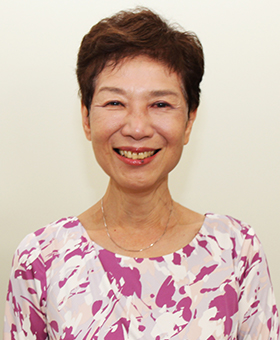
-
Executive Vice-President for Public Relations, Kyoto University
Haruko Nozaki
Haruko Nozaki, Executive Vice-President
Haruko Nozaki graduated from the Faculty of Pharmaceutical Sciences at Kyoto University in 1978. She joined HORIBA Community Inc. in the same year, and transferred to HORIBA, Ltd. in 1980.
In 2001, she was appointed General Manager of the Human Resources and Education Department. She became Deputy General Manager of the Corporate Human Resources Management Division in 2008. In 2014, she was appointed the company's first female Executive Officer (Junior Corporate Officer), where she was involved in building a corporate culture and systems that embodied the company's motto, "Omoshiro-Okashiku" (Joy and Fun).
Since April 2022, she has served as an Executive Vice-President at Kyoto University, overseeing Public Relations, Community Engagement, and Social Outreach.
During this time, she has also held positions as an Outside Director at West Japan Railway Company (current), a Distinguished Professor at the Institute for Advanced Study of Kyoto University of Advanced Science, and an Outside Director at Sekisui Chemical Co., Ltd. (current).Haruko Nozaki's Professional Experience
1978.3 Graduated from the Faculty of Pharmaceutical Sciences, Kyoto
University
1978.4 Joined HORIBA Community Inc.
1980.3 Transferred to HORIBA, Ltd.
2001.4 General Manager, Human Resources and Education Department,
HORIBA, Ltd.
2014.4-2022.3 Junior Corporate Officer, HORIBA, Ltd.
2020.6-present utside Director, West Japan Railway Company
2021.6-2022.3 Distinguished Professor, Institute for Advanced Study, Kyoto
University of Advanced Science
2022.4-present Executive Vice-President, Kyoto University
2022.6-present Outside Director, Sekisui Chemical Co., Ltd.
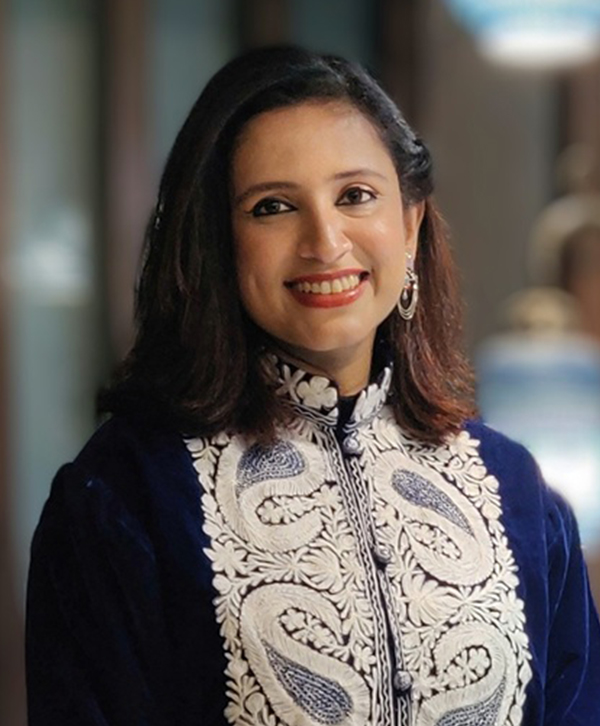
-
Assistant Professor, Jamia Millia Islamia
Abhiruchi Ojha
Dr Abhiruchi Ojha is an Assistant Professor at the MMAJ – Academy of International Studies, Jamia Millia Islamia. She completed her PhD in International Studies at Jawaharlal Nehru University (JNU) where she was awarded the Indian Council of Social Science Research (ICSSR) Doctoral Fellowship. Her doctoral thesis was on the dynamics of gender and citizenship in post-apartheid South Africa. She has been a visiting research fellow at the Centre for the Advancement of Non-racialism and Democracy (CANRAD), Nelson Mandela Metropolitan University, Port Elizabeth, South Africa. She is presently a Visiting Fellow at Nepal Institute for International Cooperation and Engagement (NIICE), Kathmandu. She has previously taught at Sarojini Naidu Centre for Women’s Studies (Jamia Millia Islamia), Department of Politics & Governance (Central University of Kashmir), Lady Shri Ram College for Women (University of Delhi), Nelson Mandela Centre for Peace and Conflict Resolution (Jamia Millia Islamia), and Ambedkar University Delhi (AUD). Her research interests span political philosophy and Gender Studies with a specific focus on women’s participation in politics, gender dynamics of conflict & peace, gendering Artificial Intelligence and developing non-western perspectives on International Relations. She combines her research and teaching with gender advocacy. Her publications have explored the linkages of gender, politics, and identity. Her latest publication is the edited book ‘South Asian Women and International Relations’ from Palgrave Macmillan, Singapore. She has been part of several research projects, including one on the impact of Dalit women in Indian politics for the International Development Research Centre (IDRC), Canada and the Indian Institute of Dalit Studies (IIDS). She recently finished a project for National Commission for Women (NCW-India) on Domestic Violence in Kashmir. She is presently the project director of an ICSSR Major Research Project on building Gender and Disability sensitive Artificial Intelligence systems.

-
Public Relations Advisor, KYOTO University
Mikio Ozaki
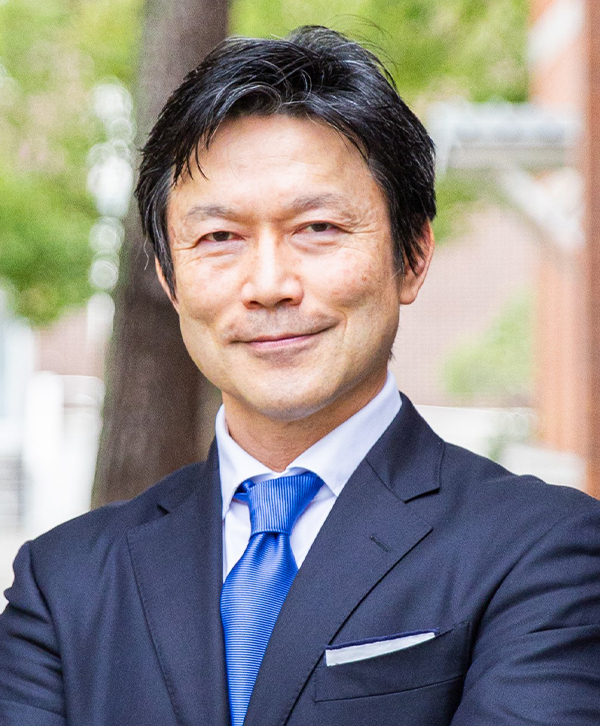
-
Dean, Kyoto University, Graduate School of Management
Norio Sawabe
Norio Sawabe specialises in accounting research, covering both management and financial accounting, and has a particular interest in developing institutional evolutionary perspectives to understand the evolution of accounting practices. He has been conducting action research on the development of management accounting profession in Japan lately.
He has published in leading international journals, including Accounting, Organizations and Society, Accounting, Auditing and Accountability Journal, Critical Perspectives on Accounting, Journal of Evolutionary Economics, while publishing books and articles in Japanese.
Sawabe served as a president of Japan Cost Accounting Association a vice president of Japan Management Accounting Association, and, and a board member of Japan Evolutionary Economics Association, and European Accounting Association representing Asia. He is a founding member and a director of Maki Makoto Foundation which supports management accounting research in Japan. He is currently the Dean at the Graduate School of Management, Kyoto University, Japan.
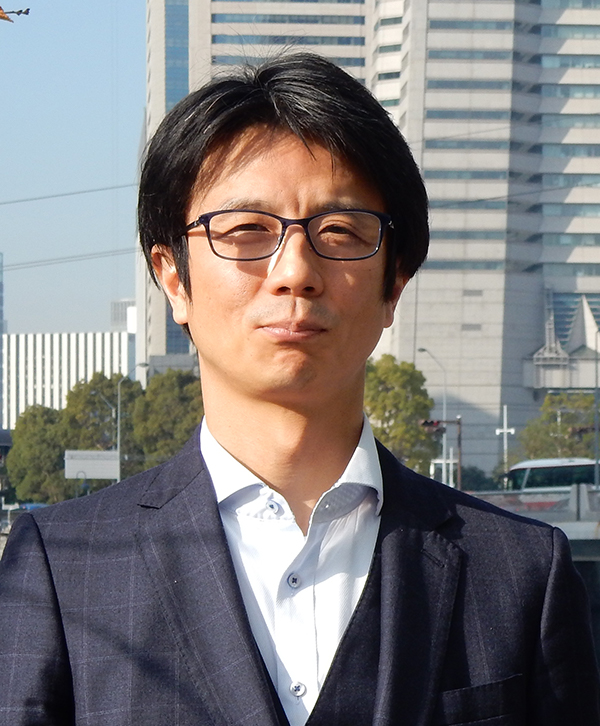
-
Professor, National Graduate Institute for Policy Studies
Kazuaki Takahashi
Dr. Kazuaki Takahashi is currently a Professor at the National Graduate Institute for Policy Studies. Dr. Takahashi joined the Ministry of the Environment in 1998 and dedicated over 20 years to various roles within the Ministry. His experience includes working on chemical management and mercury management based on the Minamata Convention on Mercury in the Office of Mercury Management, Environmental Health Department. He also contributed to aquatic environment conservation in the Water Environment Division, a branch of the Environment Management Bureau, and was involved in the interim storage of soil and waste generated from decontamination works at the Fukushima Regional Environment Office. Furthermore, he served as the Director of the Climate Change Adaptation Office, a branch of the Global Environment Bureau. Prior to his current position, Dr. Takahashi was the Executive Director for the Planning and Coordination Department of the Climate Change Policy Headquarters in the City of Yokohama, a role he held from 2021. He assumed his professorship at the National Graduate Institute for Policy Studies in 2024 and is responsible for teaching and supervising research on energy and environmental policy to students, who are mainly government officials from Japan and the Asia-Pacific region. His current research interest is the co-creation of business models and local models to promote local action on climate change. Dr. Takahashi holds a Doctor of Philosophy (Engineering) degree from Kyoto University.
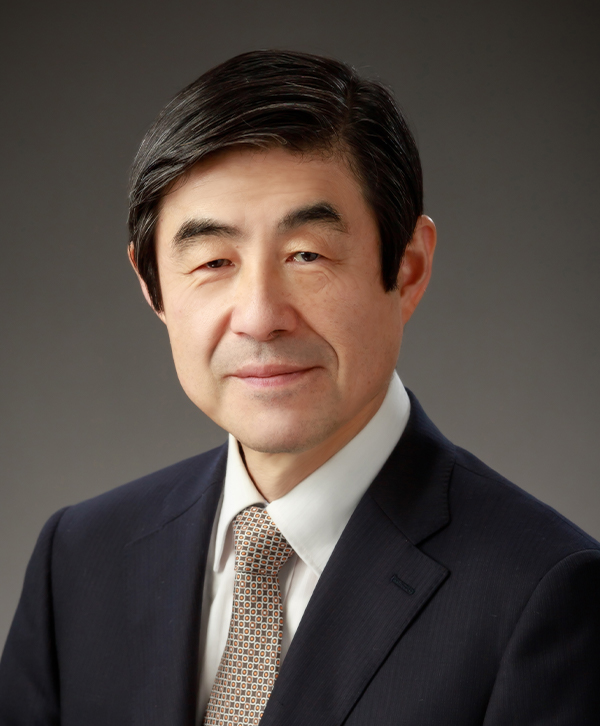
-
Director, The Hakubi Center for Advanced Research, Kyoto University
Yoshinobu Takakura
Current Position: Director, Hakubi Center for Advanced Research, Vice President, Kyoto University
Kyoto University Professor EmeritusEducation: Ph.D.: Pharmaceutical Sciences, Kyoto University, 1987
M.S.: Pharmaceutical Sciences, Kyoto University, 1983
B.S.: Pharmaceutical Sciences, Kyoto University, 1981Research and Teaching Experience:
2023 Present : Director, Hakubi Center for Advanced Research, Kyoto University
2023 Present Kyoto University Professor Emeritus
2022-Present Director, Agency for Student Support and Disability Resources
2020 Present Vice President, Kyoto University
2014-2016 Dean, Graduate School of Pharmaceutical Sciences, Kyoto University
1997-2023 Professor, Department of Biopharmaceutics and Drug Metabolism, Graduate School of Pharmaceutical Sciences, Kyoto University
1992-1997 Associate Professor, Department of Drug Delivery Research, Faculty of Pharmaceutical Sciences, Kyoto University (Professor Mitsuru Hashida)
1989-1990 Postdoctoral, Department of Pharmaceutical Chemistry, University of Kansas (Professor Ronald T. Borchardt)
1984-1992 Assistant Professor, Department of Basic Pharmaceutics, Faculty of Pharmaceutical Sciences, Kyoto University (Professor Hitoshi Sezaki)Scientific Journals:
Executive Editor: Advanced Drug Delivery Reviews (2006-2012)
Editorial Board: European Journal of Pharmaceutical Sciences (2002-)
Editorial Board: Drug Metabolism and Pharmacokinetics (2002-)
Editorial Advisory Board: Pharmaceutical Research (2001-)
Editorial Advisory Board: Journal of Biochemistry (2000-)
Editorial Board: Biological and Pharmaceutical Bulletin (1999-2003)Scientific Societies:
President, Japanese Pharmaceutical Science Federation (JPSF)
President, The Pharmaceutical Society of Japan (PSJ)
Chair of the Board of Directors and Councilor, The Japanese Society of Drug Delivery System (JSDDS)
President, The Pharmaceutical Society of Japan (PSJ)
Councilor, Academy of Pharmaceutical Science and Technology, Japan (APSTJ)
Councilor, Japanese Society for The Study of Xenobiotics (JSSX)
Member-at-Large, Board of Director, Globalization of Pharmaceutics Education Network (GPEN)Memberships:
1981-Present Pharmaceutical Society of Japan (PSJ)
1981-Present Japanese Cancer Association (JCA)
1985-Present Academy of Pharmaceutical Science and Technology, Japan (APSTJ)
1986-Present Japanese Society for The Study of Xenobiotics (JSSX)
1988-Present The Japanese Society of Drug Delivery System (JSDDS)
1989-Present American Association of Pharmaceutical Scientists (AAPS)
1990-Present Controlled Release Society (CRS)
2002-Present American Society of Gene and Cell Therapy (ASGCT)Awards: The APSTJ (Academy of Pharmaceutical Science and Technology, Japan) Award, 2019
The APSTJ Takeru & Aya Higuchi Memorial Prize, 2011
AAPS (American Association of Pharmaceutical Scientists) Fellow, 2009
Young Investigator Award, Japanese Society for The Study of Xenobiotics, 1995
Young Investigator Award, Pharmaceutical Society of Japan, 1996Licensure: Registered pharmacist (July, 25, 1981: No. 195140)
Research Interests:
Development of nucleic acid drugs for optimized gene therapy and DNA vaccination therapy
Development of nucleic acid-based nano-device and hydrogels
Development of exosome-based drug delivery systemPublications:
Dr. Takakura is the author and co-author of 346 scientific original and 48 review articles, 3 textbooks, and chapters of 60 books.
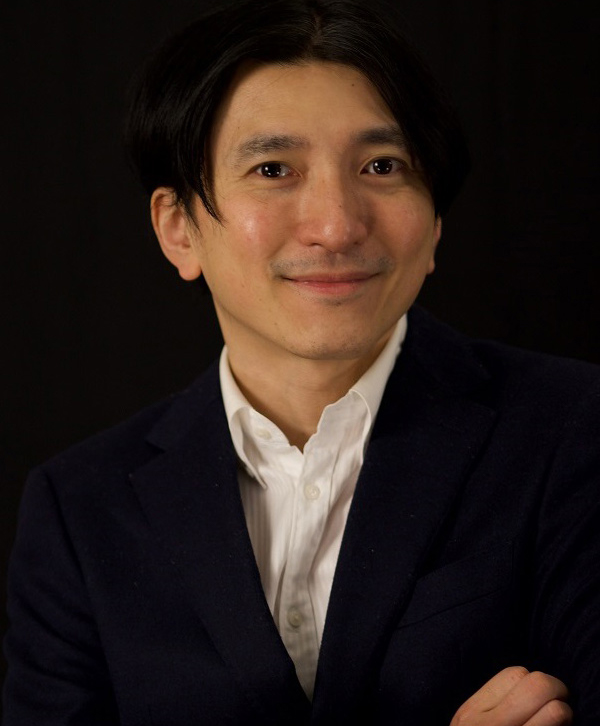
-
Professor, Kyoto University
Tadahiro Taniguchi
Tadahiro Taniguchi received his M.E. and Ph.D. degrees from Kyoto
University in 2003 and 2006, respectively. From April 2005 to March
2006, he was a Japan Society for the Promotion of Science (JSPS)
Research Fellow (DC2) at the Department of Mechanical Engineering and
Science, Graduate School of Engineering, Kyoto University. He
continued as a JSPS Research Fellow (PD) in the same department from
April 2006 to March 2007 and then at the Graduate School of
Informatics, Kyoto University, from April 2007 to March 2008.
From April 2008 to March 2010, he was an Assistant Professor in the
Department of Human and Computer Intelligence at Ritsumeikan
University. He was promoted to Associate Professor in the same
department, serving from April 2010 to March 2017. During this period,
he also spent a year as a Visiting Associate Professor at Imperial
College London, from September 2015 to September 2016.
From April 2017 to March 2024, he was a Professor in the Department of
Information and Engineering at Ritsumeikan University. Concurrently,
he served as a Visiting General Chief Scientist at Panasonic Holdings
Corporation. Since April 2024, he has been a Professor at the Graduate
School of Informatics, Kyoto University, while also serving as an
Affiliate Professor at the Research Organization of Science and
Technology, Ritsumeikan University. Additionally, he is a Senior
Technical Advisor at Panasonic Holdings Corporation and Chair of the
IEEE Cognitive and Developmental Systems Technical Committee.
Throughout his career, Taniguchi has been deeply engaged in research
on machine learning, emergent systems, cognitive robotics, and symbol
emergence, making significant contributions to these fields.
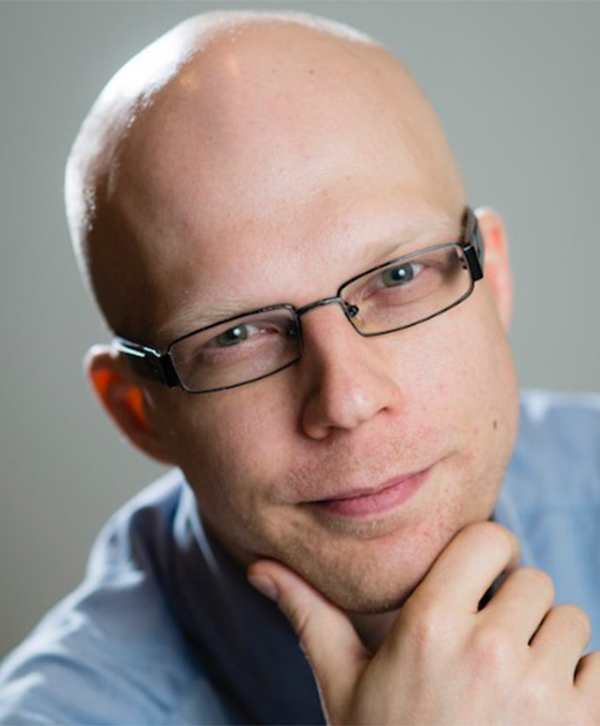
-
Dean of the Faculty of Science, University of Helsinki
Sasu Tarkoma
Professor Sasu Tarkoma is a Professor of Computer Science at the University of Helsinki and Dean of the Faculty of Science. He was Director of the Helsinki Center for Data Science. He is affiliated with the Helsinki Institute for Information Technology HIIT and the Finnish Center for AI (FCAI), and has several ongoing projects researching applications for agentic AI, including AgentFormers, a project for customisable AI agent software solutions for organisations. He is chairman of the Finnish Scientific Advisory Board for Defence (MATINE).
Tarkoma has published over 200 scientific articles that have been cited over 8000 times in total (Scholar). The most cited articles pertain to Internet and distributed systems, Internet of Things, and mobile systems. He has authored or co-authored four international scientific books published by Wiley, CRC Press, and Cambridge University Press. He has 11 granted US patents and over 20 international patent applications. He has supervised over 120 M.Sc. theses and 12 PhD theses. His research has received a number of Best Paper awards and mentions, for example at IEEE PerCom, ACM CCR, and ACM OSR.
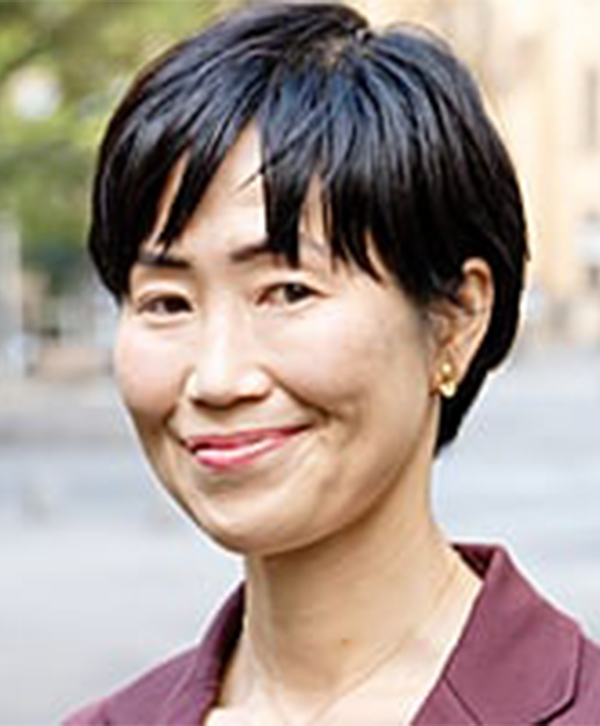
-
Co-Director, Keio University X Dignity Center
Satoko Tokunaga
Satoko Tokunaga, PhD, is a Professor at the Faculty of Letters and a Co-Director of the X Dignity Center at Keio University, Japan. She was Beaufort Visiting Fellow at St John’s College, Cambridge, during the Lent Term 2025. Her research focuses on medieval English literature and book history. Her recent major publications include Production and Provenance: Copy-Specific Features of Incunabula (co-ed. Brill, 2025) and Caxton’s Golden Legend (co-ed. Oxford University Press, 2021-22).
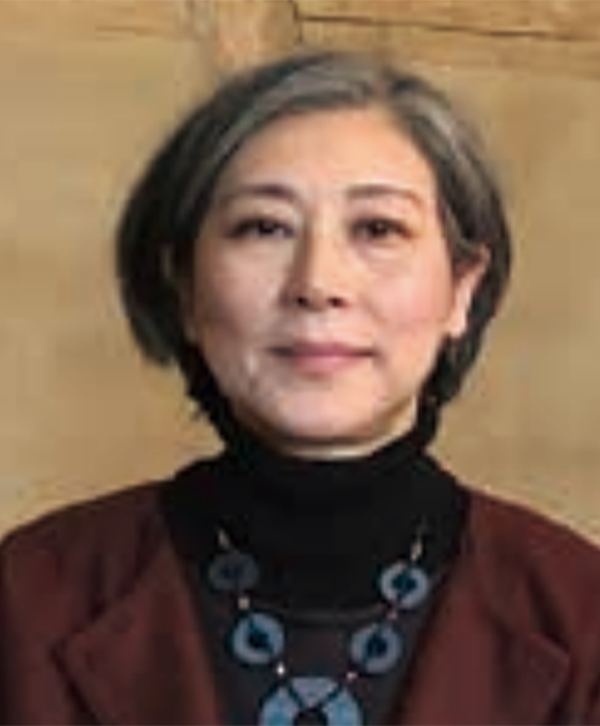
-
Professor, Kyoto University Graduate School of Letters
Mayuko Uehara
Professor, Graduate School of Letters, Kyoto University. Visiting Professor, Research Institute for Humanity and Nature. Editor-in-Chief of the Journal of Japanese Philosophy (State University of New York Press). Affiliated member of the Science Council of Japan.
Specializes in Nishida philosophy, Modern Japanese Philosophy centered on the Kyoto School, Philosophy of Translation, and Philosophy of Women.
Ph.D. in Philosophy and Translation Studies from the École des Hautes Études en Sciences Sociales (EHESS) in France.
Co-author of How Modern Humanities Were Formed: Knowledge, Translation, and Book Collections (Bensei shppan, 2019). Co-author of The Age of Crisis
and Tanabe's Philosophy (Hosei University Press, 2022). Co-author of The Concept of Dignity as a Question (Hosei University Press, 2024).
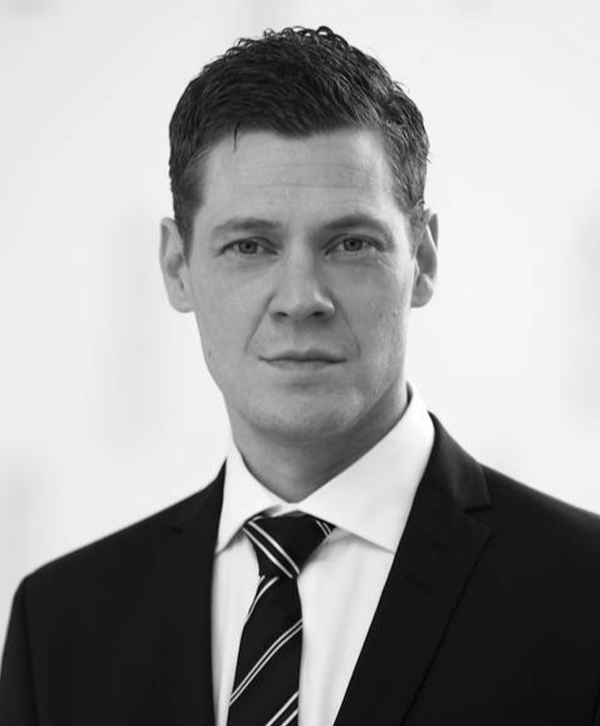
-
Director, Innovations & Ecosystems, University of Helsinki
Santtu von Bruun
Santtu von Bruun (M.sc., eMBA), is the Director of Innovations and Ecosystems at the University of Helsinki. His core responsibilities encompass the University’s innovation strategy, the development of innovation ecosystems and hubs, including the University’s AI innovation hub, innovation and incubation services, and the development of campuses as innovation environments. He is also in charge of innovation partnerships and collaboration with the wider regional innovation ecosystem and international networks. He formerly worked for the City of Helsinki’s Office of Economic Development and was the founding Chairman of the Board of Maria01, a leading global startup hub located in Helsinki.
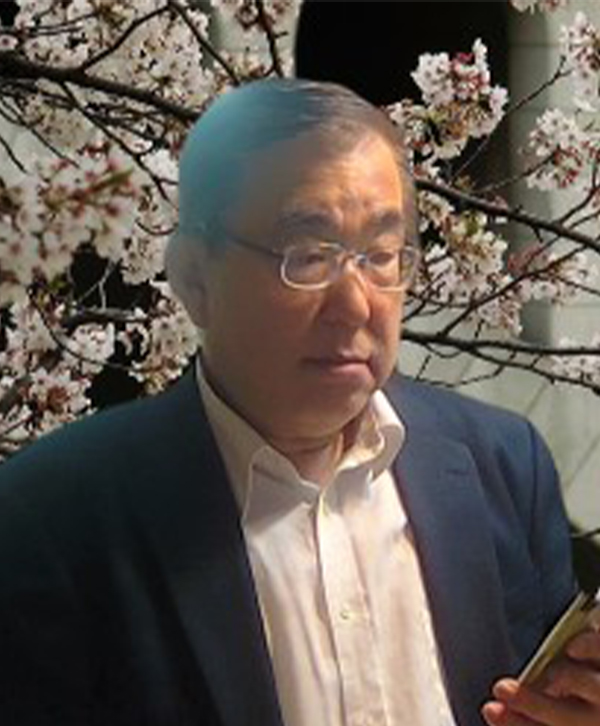
-
Professor, ZEN University
Yasuhide Yamanouchi
Education
1983: Graduated from the College of Arts and Sciences, University of Tokyo (Major in International Relations)
1992: Completed Doctoral Program at the Graduate School of Arts and Sciences, University of Tokyo / Ph.D. (Interdisciplinary Cultural Studies - Specialization in International Relations)Professional Experience
1989–1991: Research Fellow, Nakasone Peace Institute
2005–present: Professor and Deputy Director, Institute of Infosocionomics, Tama University
2025–present: Professor, Faculty of Social Infomatics, ZEN University; Visiting Research Fellow, Graduate School of Public Policy, University of Tokyo
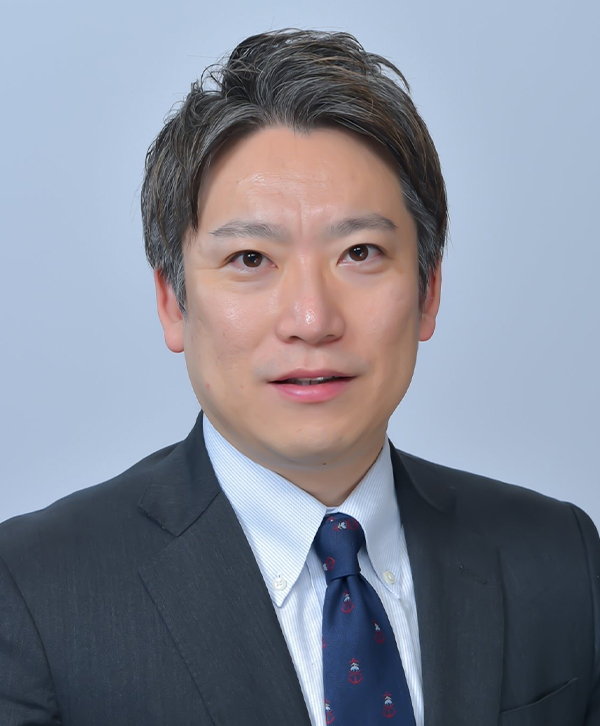
-
Co-Director, Professor, Keio University X Dignity Center
Tatsuhiko Yamamoto
Born in 1976. Graduated from Keio University Faculty of Law. D. in Law from Keio University. D. in Law from Keio University. Vice President of Keio Global Research Institute (KGRI), Keio University. He is also the chairperson of the “Study Group on Improvement of Literacy for ICT Utilization” of the Ministry of Internal Affairs and Communications (MIC), the chairperson of the “Study WG on How to Ensure Soundness of Information Distribution in Digital Space” of MIC, the chairperson of the “User Information WG” of MIC, and the chairperson of the “International Data Governance Study Group” of the Digital Agency. His major publications include “How to Deal with Digital Space” (Nikkei BP, co-author), “Awesome Big Data” (Asahi Shinbun Publishing), and “AI and Constitution” (Nikkei Publishing).
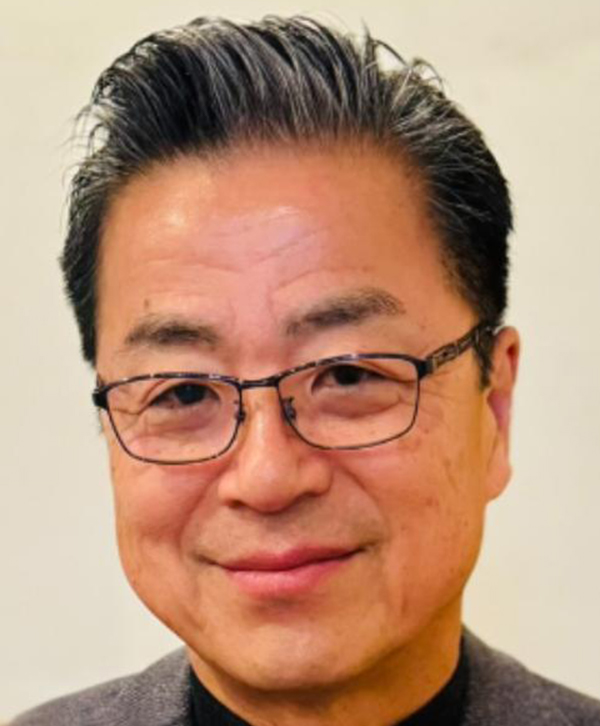
-
Auditor, Kyoto University
Hiroyoshi Yoshiki
Date of Birth: January 4, 1957
Final Education: Graduated from Kyoto University, Faculty of Law, March 1980
Work History:
• April 1980: Joined Toyota Motor Corporation (then Toyota Motor Co., Ltd.)
• July 1982: Human Resources Department, Toyota Motor Corporation (name changed due to merger)
• December 1985: Washington DC Branch, Toyota Motor Corporation USA Office (Trainee in Human Resources and Labor Law, worked at a local law firm)
• July 1989: Toyota Motor Manufacturing USA
• January 1999: General Manager, Production Control Department
• January 2001: Vice President and CFO, Toyota Motor Manufacturing Kentucky
• January 2007: General Manager, Plant Administration Department, Kinuura Plant
• April 2009: Deputy Chief Officer, Production Control Division
• April 2011: Deputy Chief Officer, Technical Administration Division
• April 2012: Chief Officer, Technical Administration Division,
• April 2015: Advisor, Futaba Industrial Co., Ltd.
• June 2015: Executive Vice President, Futaba Industrial Co., Ltd.
• June 2016: President, Futaba Industrial Co., Ltd.
• June 2022: Special Advisor, Futaba Industrial Co., Ltd.
• September 2024-Present: Auditor, Kyoto University
• Other References: Fellow, Society of Automotive Engineers of Japan
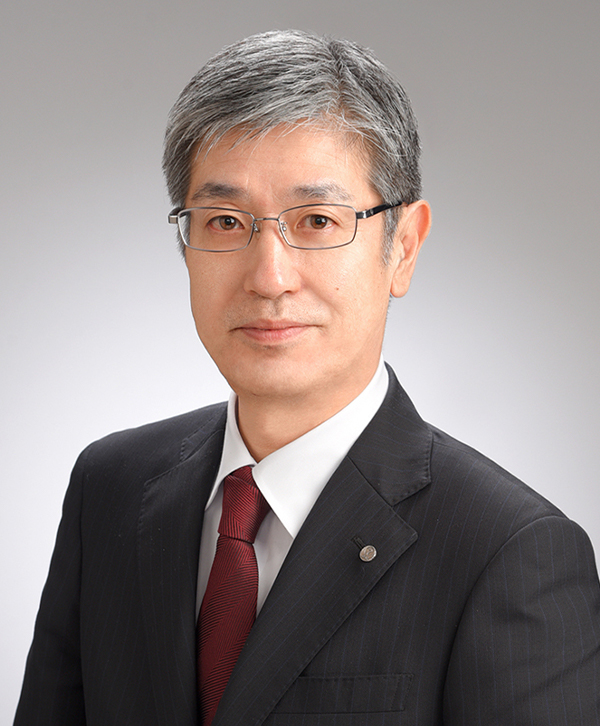
-
Japan Airlines Co., Ltd, Director, Chairperson
Yuji Akasaka
Date of Birth:January 3, 1962
Place of Birth:Hokkaido■Career Summary
March 1987 Graduated from the University of Tokyo,
Graduate School of Engineering, Master’s Degree in Aeronautics
April 1987 Joined the Company
December 2001 Director,
Production Planning, Aircraft Maintenance Business Division, Haneda
April 2005 Director, Planning, Quality Assurance, Engineering and Maintenance
April 2008 Director, Planning, Maintenance Planning and Administration
April 2009 Vice President, Corporate Safety and Security
Senior Director, Family Assistance and Support
April 2012 Director, Haneda Aircraft Maintenance Center, JAL Engineering Co., Ltd.
April 2013 Executive Officer, JAL Engineering Co., Ltd.
April 2014 Executive Officer, Senior Vice President, Engineering and Maintenance
Representative Director, President, JAL Engineering Co., Ltd.
April 2016 Managing Executive Officer
Senior Vice President, Engineering and Maintenance
Representative Director, President, JAL Engineering Co., Ltd.
April 2018 President
June 2018 Representative Director, President
April 2023 Representative Director, President
Chief Executive Officer
April 2024 Representative Director, Chairperson
April 2025 Director, Chairperson (to present)
as of April 1, 2025
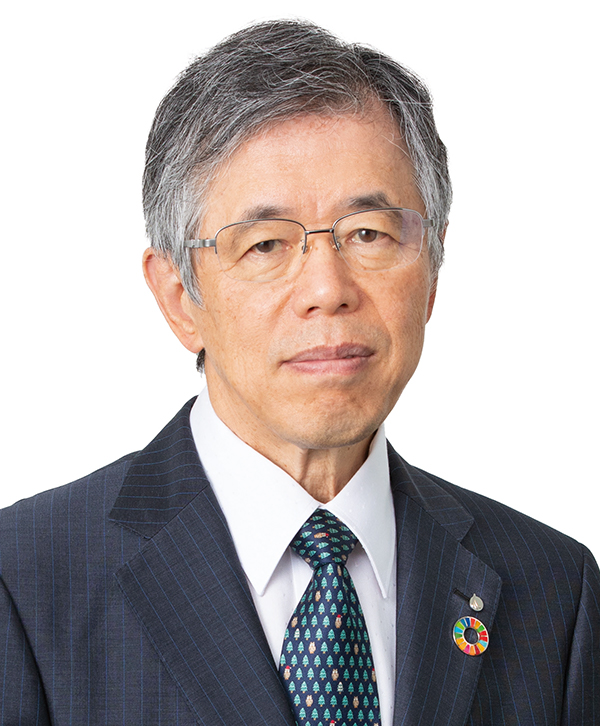
-
Tokyo Century Corporation, Honorary Advisor
Shunichi Asada
Education:
March 1972 Earned a Bachelor of Laws from The University of Tokyo
Career Summary:
June 2022 Director (to present)
April 2020 Chairman, Representative Director of the Company
April 2009 President & CEO, Representative Director of the Company
April 2008 President & CEO, Representative Director of Tokyo Leasing Co., Ltd. (*1)
June 2007 Deputy President, Representative Director of Tokyo Leasing Co., Ltd
June 2005 Director and Deputy President
Head of Internal Audit Group of Mizuho Financial Group, Inc.
April 2005 Deputy President
Head of Internal Audit Group of Mizuho Financial Group, Inc.
April 2004 Managing Director of Mizuho Bank, Ltd.
April 2002 Managing Executive Officer
Officer in charge of Sales of Mizuho Corporate Bank, Ltd.(*2)
September 2000 Executive Officer of The Dai-Ichi Kangyo Bank, Limited (*3)
(transferred to Mizuho Holdings, Inc.(*4))
August 2000 Executive Officer of The Dai-Ichi Kangyo Bank, Limited
June 2000 Executive Officer
Head of Market and Trading Planning Office of
The Dai-Ichi Kangyo Bank, Limited
April 1999 Head of Market and Trading Planning Office of
The Dai-Ichi Kangyo Bank, Limited
April 1972 Joined The Dai-Ichi Kangyo Bank, Limited(Note)
*1: Currently Tokyo Century Corporation
*2: Currently Mizuho Bank, Ltd.
*3: Currently Mizuho Bank, Ltd.
*4: Currently Mizuho Financial Group, Inc.
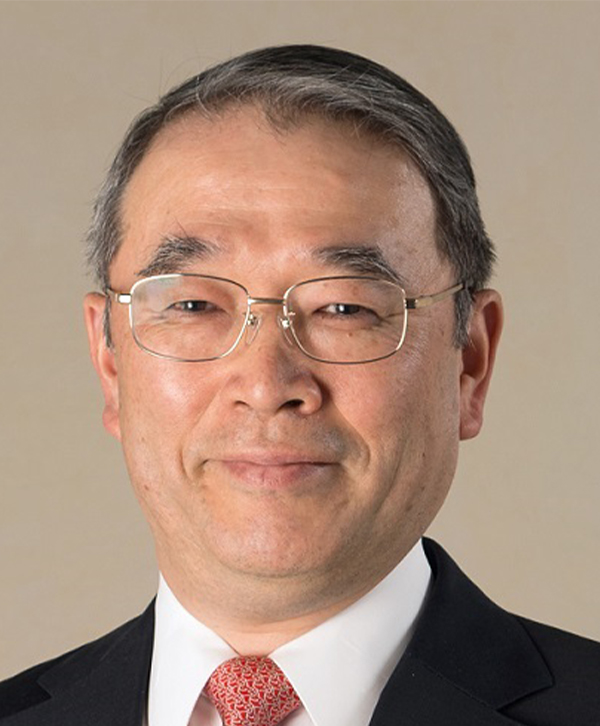
-
NEC Corporation, Executive Advisor
Nobuhiro Endo
Dr. Nobuhiro Endo was appointed Executive Advisor of NEC Corporation after serving as Chairman of the Board of the company from April 2016 to June 2022, as well as President and Chairman of the Board (Representative Director) from April 2010 to June 2019.
Dr. Endo joined NEC in 1981 after receiving his doctorate degree from the Graduate School of Science and Engineering at Tokyo Institute of Technology. Over the next two decades he engaged in the development of wireless communication systems for satellite communication systems and mobile phone base stations. In June 2022, Keidanren (Japan Business Federation) appointed Dr. Endo as a Vice Chair.
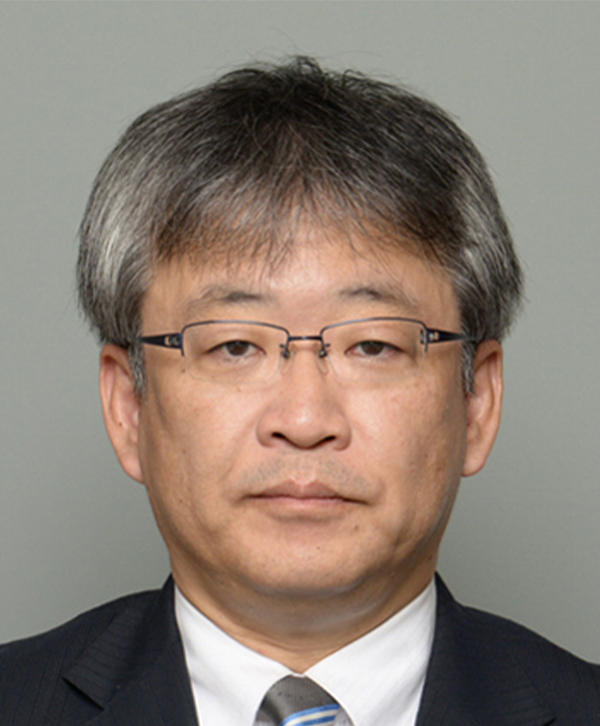
-
Nikkei Inc., Managing Director
Kazuaki Fujii
Date of Birth September 7 1967
Place of Birth Kyoto , Japan
Education 1990/3 Graduated from Kyoto University
Business Career 1990/4 Joined Nikkei Inc.
2019/4 Deputy General Manager, Editorial Division, Tokyo
2021/4 Executive Officer, Political and Economic News Uni,
Editorial Division
2022/4 General Manager of Corporate Planning Office
2023/3 Executive Officer, General Manager of Corporate Planning
Officer
2024/3 Managing Director, Corporate Planning, Legal Affairs
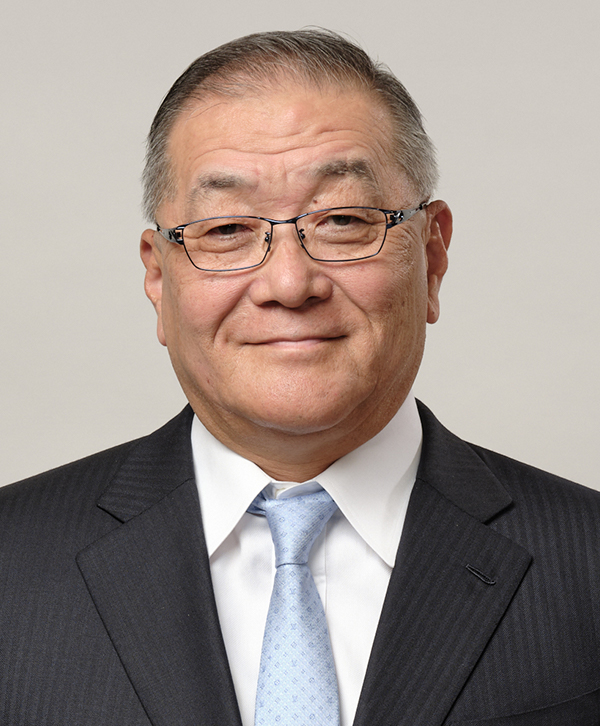
-
OSAKA GAS CO.,LTD, President
Masataka Fujiwara
Mr. Fujiwara was appointed President of Osaka Gas on January 1, 2021. Prior to the CEO position of the company, he served as Executive Vice President (April 2016 – December 2020), overseeing broad fields of Osaka Gas and the Daigas Group companies, including corporate planning/finance, R & D, energy marketing, and operations of chemicals/materials and IT businesses.
Before his assignment as executive vice president, Fujiwara worked as CEO of Osaka Gas Chemicals Co., Ltd., a major subsidiary group of companies specializing in carbon materials and other functional and chemical materials, to which he was seconded between April 2013 and March 2016.
His other executive responsibilities include Senior Executive Officer and Executive Officer as well as heads of commercial and industrial energy market development and gas marketing between 2009 and 2013.
Fujiwara’s middle management positions were also held in the field of commercial and industrial marketing in different parts of the service area of Osaka Gas (2003 – 2009).
Having his background in engineering, Fujiwara worked in the technical fields of the company, namely in strategic and business planning for research and development for over a decade after
joining the company in 1982.
Fujiwara graduated from Kyoto University with a bachelor’s degree in petrochemical engineering in 1982. He also studied at Stanford University where he earned MSc degree in material science and engineering in 1989.
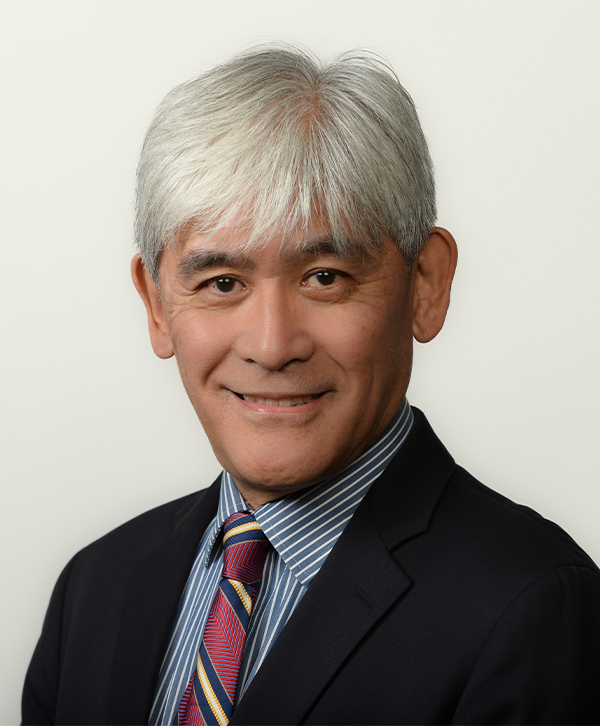
-
NTT Research, CEO
Kazuhiro Gomi
Kazuhiro Gomi leads NTT Research, Inc. as president and chief executive officer (CEO). Mr. Gomi has been with NTT for more than 40 years and was involved in product management activities at the beginning of his tenure. In September of 2009, Mr. Gomi was first named to the Global Telecoms Business Power100 — a list of the 100 most powerful and influential people in the telecoms industry. He was the CEO of NTT America Inc. from 2010 to 2019 and also served on the Board of Directors at NTT Communications from 2012 to 2019.
Mr. Gomi became the CEO of NTT Research Inc. in 2019 when the organization was established. This organization conducts basic/fundamental research in the areas of Physics and Informatics, Cryptography and Information Security, Bio-Digital Twin and Physics of AI (exploring AI’s fundamental mechanism). Mr. Gomi received a MSIE from the University of Illinois at Urbana-Champaign, and a MSEE from Keio University, Tokyo. Mr. Gomi is the president of Japanese Chamber of Commerce in Northern California since April 2024. He is also a member of the board at Japan Society of Northern California.
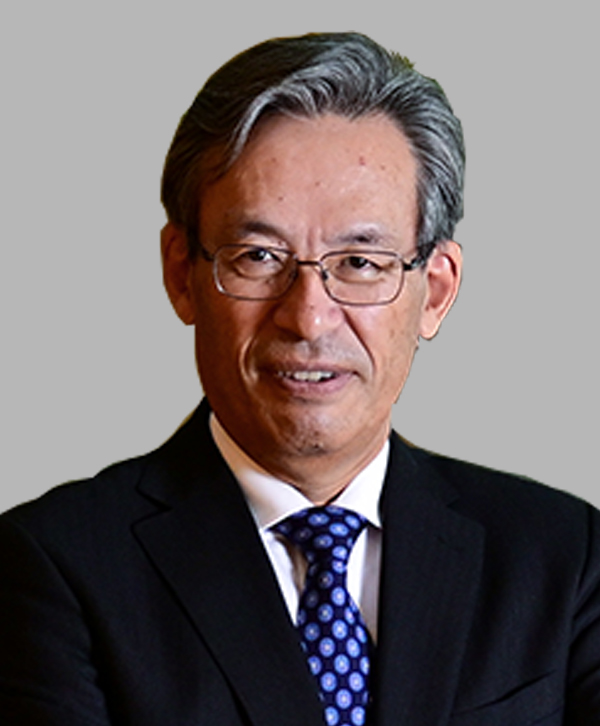
-
Nikkei Inc., President & CEO
Tsuyoshi Hasebe
Date and place of birth: August 22, 1957, Aomori prefecture, Japan
Position:
President & Chief Executive Officer of Nikkei Inc. (March 25, 2021-present)Work Experience:
March 2021 President & Chief Executive Officer
March 2020 Executive Vice President
March 2019 Senior Managing Director
Digital Business,Information Technologies
March 2016 Senior Managing Director
Editor-in-chief, Tokyo
March 2015- Senior Managing Director
Corporate Planning, Public Relations, Legal Affairs, Index Business
March 2012- Managing Director
Corporate Planning, Public Relations, Legal Affairs, Index Business
March 2011- Executive Officer
April 2009- General Manager, Corporate Planning Office
April 1980- Joins Nikkei Inc.
Staff writer, City News Department, Osaka Head Office
Education:
March 1980 BA in Political Science, Faculty of Political Science and Economy,
Waseda University
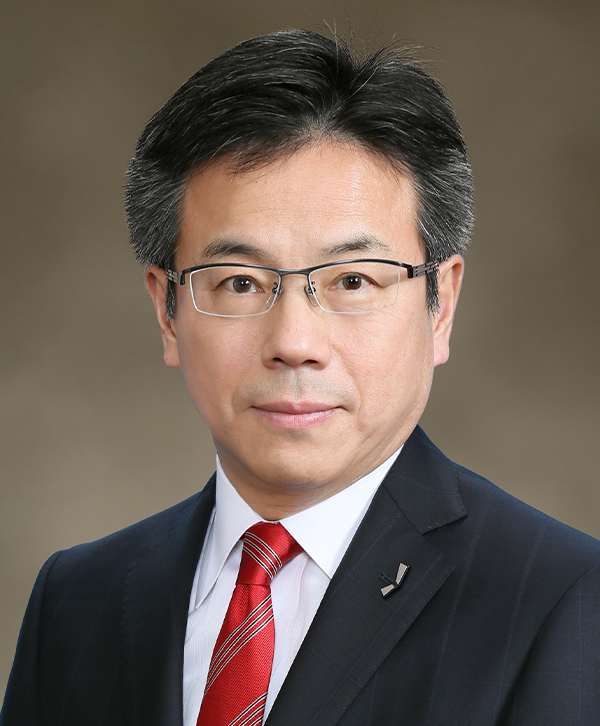
-
Chubu Electric Power Co.,Inc., President & Director
Kingo Hayashi
Professional Career
April 2020-current President & Director
June 2018- March 2020 Director & Senior Managing Executive Officer,
President of Customer Service & Sales Company
April 2018- June 2018 Senior Managing Executive Officer
President of Customer Service & Sales Company
April 2016- March 2018 Executive Officer
General Manager of Tokyo Office
July 2015-March 2016 Executive Officer
General Manager of Customer Services Division
July 2013-June 2015 General Manager of Customer Services Division
April 1984- Joined Chubu Electric Power Co., Inc.Date of Birth January 9, 1961
Education
Bachelor of legal study
Kyoto University, Kyoto Japan, 1984
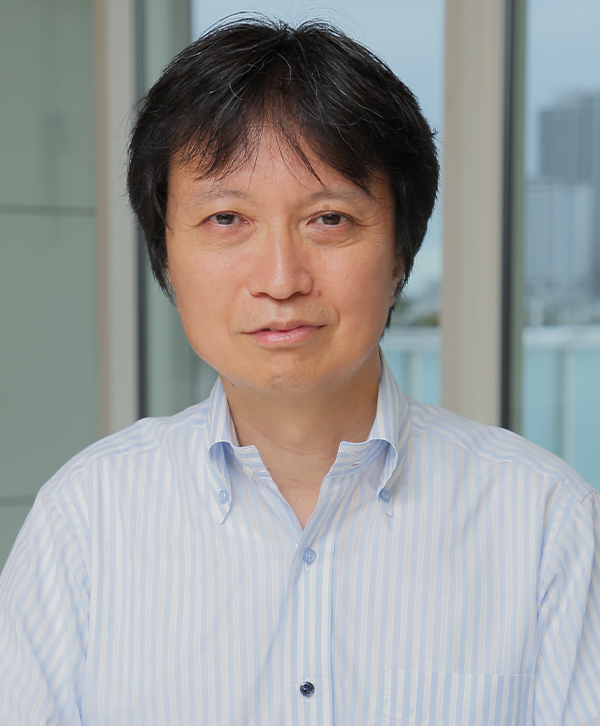
-
Office 134, Founder
Isao Hosoya
Isao Hosoya is a Japanese author, consultant, and specialist in abstract thinking, problem-solving, and innovation. He has written over 30 books, including Abstract and Concrete and Analogy Thinking, which have been well received in business and education circles. With a background in business consulting, he now delivers training and lectures to corporate leaders and professionals. His work focuses on broadening perspectives, asking the right questions, and fostering creative thinking to address complex challenges in the age of AI.
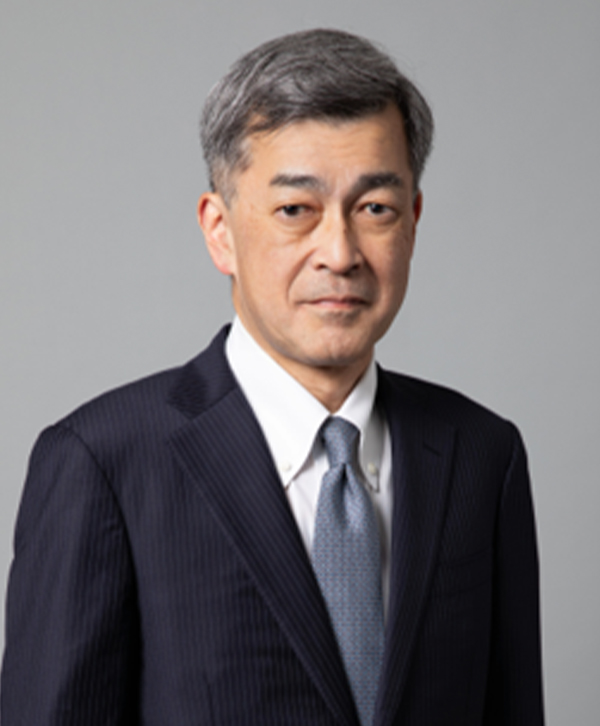
-
US-Japan Council, Chief Operating Officer (COO)
Masahiro Ikeno
[Professional Career]
•Chief Operating Officer, U.S.-Japan Council (Japan) (2023–present)
•Former President & CEO, NEC Corporation of America and Chief Representative for North America (2018–2023)
•Former President and director, NEC Foundation of America (2018–2023)
•Former President & CEO, NEC Europe Ltd. and Head of EMEA region (2016–2017)
*Joined NEC after graduating from university and consistently engaged in overseas business operations. In addition to the above senior management positions at overseas subsidiaries, served at NEC’s Tokyo headquarters overseeing business strategy and management for North America, Latin America, Europe, Russia, the Middle East, and Africa. Responsibilities also included global alliances, international institutional relations, and management of local subsidiaries.
[Education]
•Bachelor of Science in Physics, Faculty of Science, Kyoto University
[Certifications]
•CTI Certified Professional Co-Active Coach (CPCC)
•Master Practitioner of Neuro-Linguistic Programming (NLP), certified by the U.S. NLP Association
[Awards]
•Bridge-to-Friendship Award, America-Japan Society (2024)
•Best Community Service Award, City of Irving, Texas (2020)
[Principle]
Majored in theoretical physics at university, with a broad interest in liberal arts including fundamental science, philosophy, and anthropology. Holds a strong interest in envisioning the ideal state of humanity and society, and in realizing value through practical social implementation.
Holds that “people and the material world are constituted and revealed through relationships,” and that “the essence of our humanity resides in empathy and mutual aid.” Affirms the principle of plurality, cherishing the creation of new value through the interplay of diverse individuals who, with goodwill, complement and support one another. Regards corporations as public instruments—the living embodiment of society itself—entrusted with the responsibility of actualizing such value within the fabric of the real world.
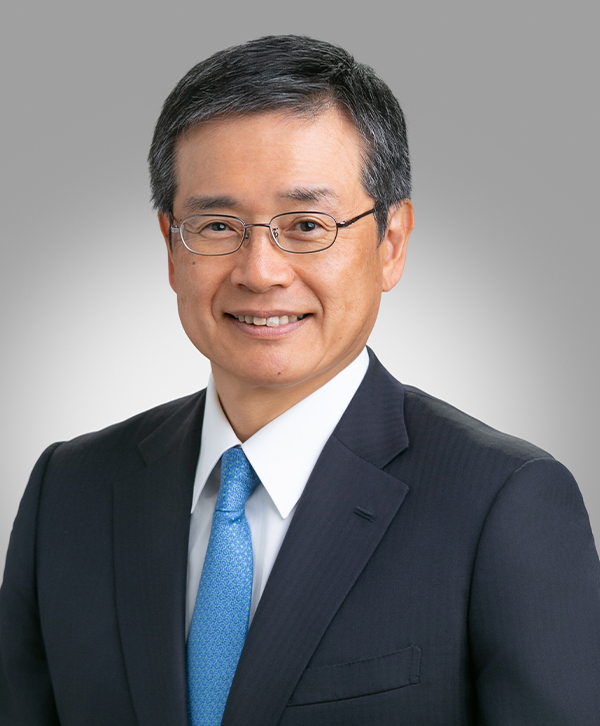
-
The Dai-ichi-Life Insurance Company,Limited, Director, Chair of the Board
Seiji Inagaki
Seiji Inagaki is the Chair of the Board of Dai-ichi Life Holdings (DLHD) and Dai-ichi Life Insurance Co Ltd (DLIC) since April, 2023.
He joined the Dai-ichi Mutual Life Insurance Company (currently DLHD) in April 1986. He had been the President of both DLIC and DLHD since 2017, before he took his current position in 2023.
Currently, he also participates in Principals Group meetings of GFANZ (Glasgow Financial Alliance for Net Zero), as well as an Executive Board Vice Chair of BIAC (Business at OECD).
He has an MBA from Harvard Business School and Bachelor’s Degree in Economics from Keio University in Japan.
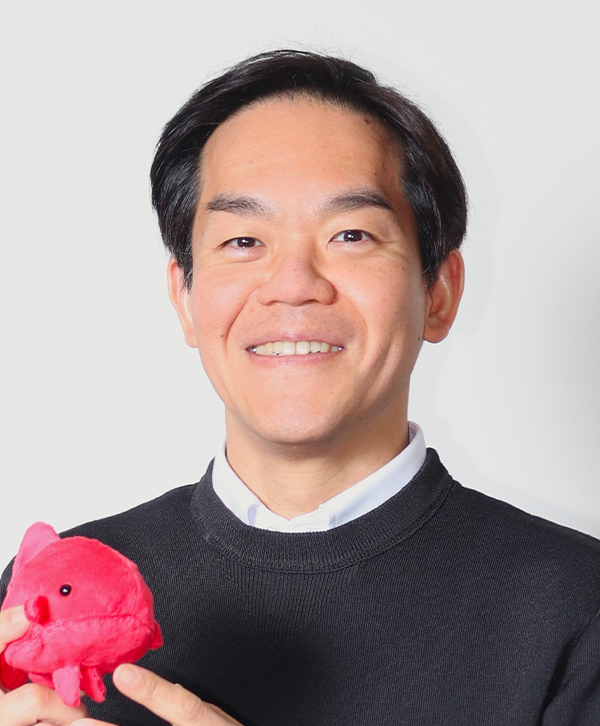
-
Sakana AI, Founder COO
Ren Ito
Basic Short
Ren co-founded Sakana AI in 2023, a Tokyo-based AI company creating a new kind of foundational AI models based on nature-inspired intelligence. Sakana AI has become Japan’s fastest unicorn after one year in business, backed by Nvidia and a broad spectrum of Japanese enterprises including the 3 Japanese Megabanks (MUFG, SMBC, Mizuho) and other leading companies in each of Japan’s industry sectors.Previously, Ren took the lead on the global expansion of Mercari, Japan's first unicorn start-up as CEO of Mercari Europe, as well as successfully orchestrated its IPO of $6bn in 2018.
Before tech, Ren spent 15 years as a Japanese diplomat, working on the security alliance with the US, negotiating a free trade agreement with the EU, and representing Japan at the World Bank board. Ren is Senior Fellow at NYU Law School and is the youngest member of the Trilateral Commission.
Ren received his LLM (NYU 2004) and LLB (University of Tokyo 2001) and is admitted to practice law in New York. Ren also holds his MA (Stanford University 2005).
Ren is an entrepreneur, investor and former diplomat.
Ren founded Solaris Fund Management and has invested in a number of leading unicorn start-ups in fintech and AI space, including AI unicorns like Afiniti and Stability AI.
held key positions in the Japanese Foreign Service (2001-2015)
Shortest
Ren Ito is the Co-Founder and COO of Sakana AI, Japan’s fastest unicorn after one year in business, backed by Nvidia and a broad spectrum of Japanese enterprises. Previously, Ren was CEO of Mercari Europe, Japan's first unicorn. Before tech, Ren spent 15 years as a Japanese diplomat where he worked on the security alliance with the US, negotiated a free trade agreement with the EU, and represented Japan at the World Bank board.Ditchley
Co-founder, Sakana AI; entrepreneur, investor and former diplomat; Senior Fellow, New York
University School of Law, where he continues to be involved in public policy debates on
technological innovation and international politics; youngest member of the Trilateral Commission.Sakana AI is a Tokyo-based AI company creating a new kind of foundational AI model based on nature-inspired intelligence. Sakana AI has become Japan’s fastest unicorn after one year in business, backed by Nvidia and a broad spectrum of Japanese enterprises.
Formerly: took the lead on the global expansion of Mercari, Japan's first unicorn start-up running the fastest-growing marketplace app; CEO, Mercari Europe, successfully orchestrating its IPO valuing the company at $6bn; he spent 15 years in diplomacy, holding key positions in the Japanese Foreign Service where he worked on the security alliance with the US, negotiated a free trade agreement with the EU, and represented Japan at the World Bank board.
Ito LLB LLM MA Mr Ren
Ito (CBE) LLB LLM MA (FRSA) Mr Ren
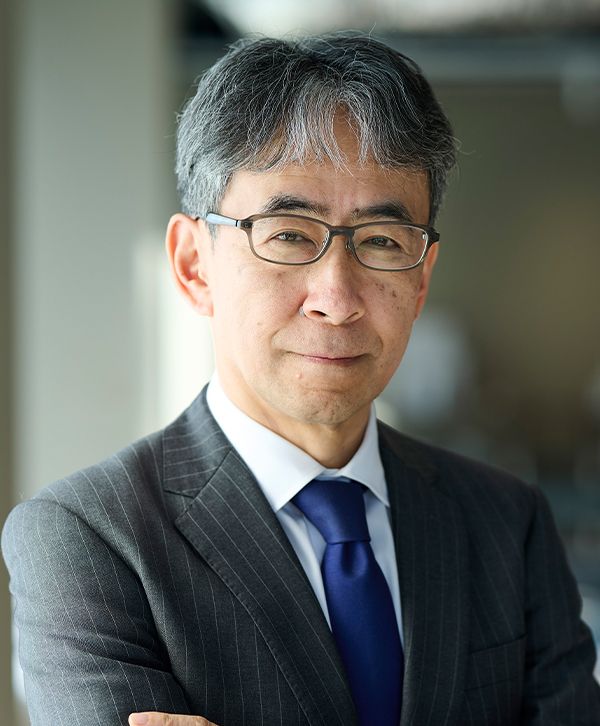
-
HAKUHODO inc., Senior Corporate Officer
Taku Iwasaki
After graduating from university, he joined Hakuhodo in 1987 as a planner/consultant and has been in charge of brand strategies, marketing strategies, and business strategies for a wide range of client industries. He became Director of the Third Planning Department in 2010, Director of Marketing Strategy Planning in 2015, Director of MD Management Department in 2016, Executive Officer and Head of Marketing Planning Unit in 2019. In April 2024, he was appointed Managing Executive Officer and Head of Brand Design Business Unit. He also serves as Fellow at Kyoto University's Growth Strategy Headquarters (Owner of Hakuhodo DY - Kyoto University Lab), Part-time Lecturer at Keio University's Institute of Media and Communications, and Instructor at Fushiki Juku (liberal arts education for corporate executives).
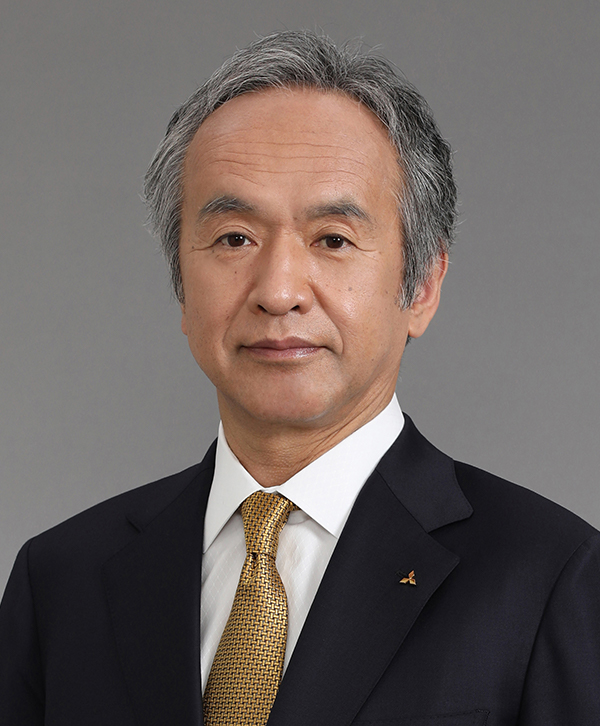
-
Mitsubishi Heavy Industries, Ltd., Chairman of the Board
Seiji Izumisawa
Date of Birth September 3, 1957
Date of Join Apr. 1, 1981 Joined Mitsubishi Heavy Industries, Ltd.
Career
Apr. 1, 2008 General Manager, Technology Planning Department of Technical Headquarters
Apr. 1, 2011 General Manager, Technology Planning Department of Technology & Innovation Headquarters
Mar.31, 2013 Retired Mitsubishi Heavy Industries, Ltd.
Apr. 1, 2013 Senior Executive Officer of Mitsubishi Motors Corporation
Jun.25, 2013 Member of the Board of Mitsubishi Motors Corporation
Mar.31, 2016 Retired Member of the Board of Mitsubishi Motors Corporation
Apr. 1, 2016 Senior Vice President, Senior General Manager, Technology Strategy Office
Jun.22, 2017 Director (Member of the Board), Full-time Audit and Supervisory Committee Member
Jun.21, 2018 * Director (Member of the Board), Executive Vice President, CSO, Head of Business Strategy Office
Apr. 1, 2019 * Director (Member of the Board), President and CEO, CSO
Apr. 1, 2020 * Director (Member of the Board), President and CEO
Dec.21, 2022 Held also the post of Director of Mitsubishi Research Institute,Inc. (Present Positions)
Apr. 1, 2025 Chairman of the Board (Present Positions)
(Note 1) An asterisk mark (*) indicates a Representative Director.
(Note 2) Positions not followed by corporate name are positions in Mitsubishi Heavy Industries, Ltd.
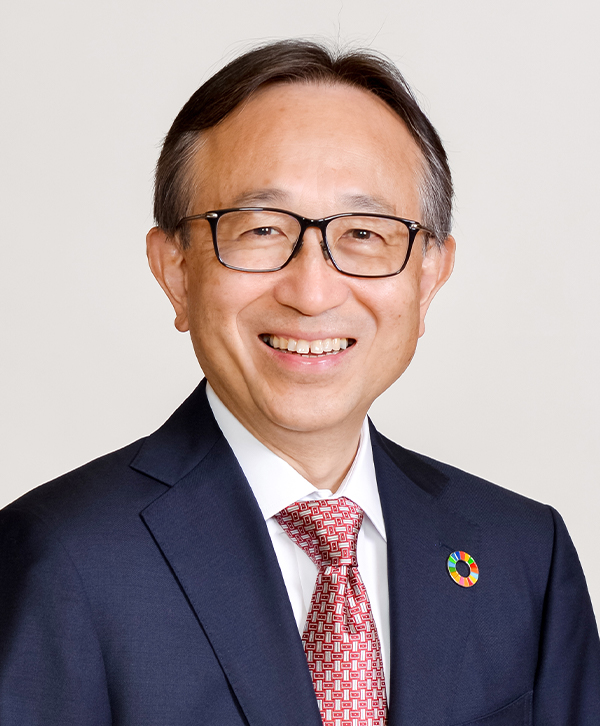
-
Mitsubishi UFJ Financial Group, Inc., President & Group CEO
Hironori Kamezawa
Since joining the company in 1986, Hironori “Hiro” Kamezawa has been a pioneer in financial services and a leader in crisis management, in a career marked by groundbreaking roles.
Early in his career, Hiro spearheaded the field of derivative trading and Asset-Liability-Management at the Bank, and equity secondary business at Securities. Since 2004, Hiro has developed the Bank’s credit portfolio management business, and later navigated MUFG through the global financial crisis, the Great East Japan Earthquake, and the introduction of negative interest rates, while serving as General Manager.
In 2014, he was appointed Deputy CEO of the Americas, based in New York, also assuming the region’s role of Chief Risk Officer and leading seminal risk-management enhancement projects. In 2016, Hiro returned to Tokyo to serve as Chief Data Officer; and later as Global Chief Information Officer and Chief Digital Transformation Officer, driving the transformation of existing businesses, processes, and culture of MUFG.
Hiro earned a master’s degree in mathematics, from the Graduate School of Mathematical Sciences at the University of Tokyo in 1986.
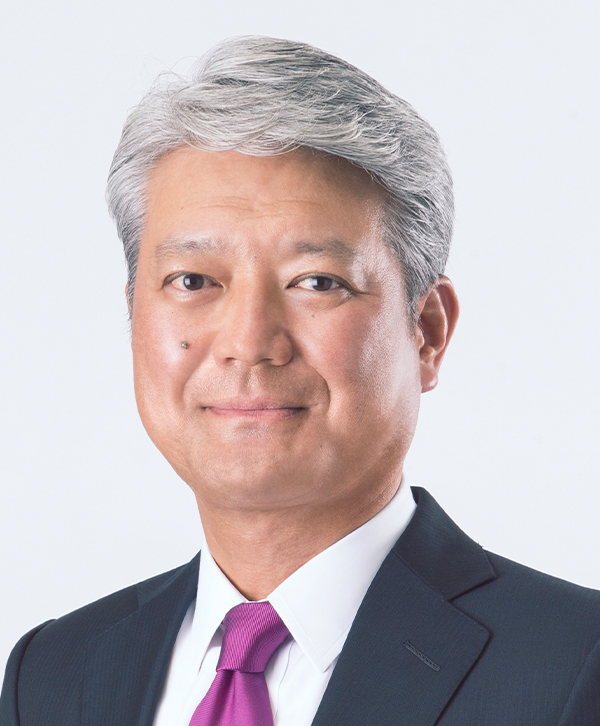
-
Nokia Solutions and Networks G.K, President
Tetsuo Kamoshita
Over 24 years of technical sales, customer relationship management and business development experience in the telecommunication industry, Tetsuo Kamoshita has been appointed as President of Nokia Solutions and Networks G.K from January 1, 2024.
Previously was Japan Country Head of Orange Business, the largest CSP`s Group Company in France, developing communication services business with global multinational enterprises together with NTT and KDDI as partners. His role at Orange on the operator side is however an exception, as throughout his career he has held successful sales and business leadership roles at major telecom infrastructure vendors where he pursued business with Softbank and KDDI.
As the Head of the Japan Market Unit, Tetsuo will take the helm of the one of the most important businesses at a very critical juncture.
He began his career with IBM in 1987, and has held various sales management and executive roles with companies such as Ericsson, Motorola, Nokia Siemens Networks, and Huawei Technologies.
Currently lives in Tokyo and enjoys playing golf.
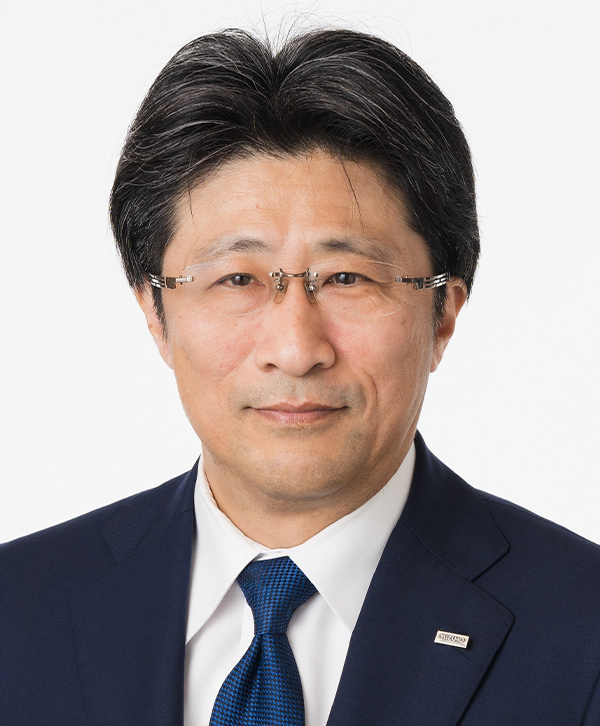
-
Mizuho Financial Group, Inc., President and Group CEO
Masahiro Kihara
Professional Experience
Jun. 2022- present Member of the Board of Directors President & Group CEO Mizuho Financial Group, Inc.
Apr. 2022 President & Group CEO Mizuho Financial Group, Inc.
Feb. 2022 President & Group CEO Head of Global Products Unit Mizuho Financial Group, Inc.
Feb. 2022 Member of the Board of Directors Mizuho Bank, Ltd. (until April 2024)
Feb. 2022 - present Member of the Board of Directors Mizuho Trust & Banking Co., Ltd. Mizuho Securities Co., Ltd.
Apr. 2021 Managing Executive Officer * Head of Global Products Unit Deputy Head of Corporate & Institutional Company Deputy Head of Global Corporate Company Mizuho Financial Group, Inc. * Senior Executive Officer from Jul. 2021(Due to the integration of executive titles) Managing Executive Officer Head of Global Corporate Division / Head of Global Products Unit Mizuho Bank, Ltd.
Apr. 2020 Managing Executive Officer Deputy Head of Strategic Planning Group Deputy Head of Financial Control & Accounting Group Mizuho Financial Group, Inc. Managing Executive Officer Head of Strategic Planning Group Head of Financial Control & Accounting Group In charge of Markets Strategic Intelligence Department (until October 2020) Head of Global Finance Mizuho ecurities Co., Ltd.
Apr. 2019 Executive Officer Joint Head of Financial Control & Accounting Group Joint Head of Global Finance Mizuho Securities Co., Ltd.
Apr. 2018 Executive Officer General Manager Financial Planning Department Mizuho Securities Co., Ltd.
Apr. 2017 Executive Officer General Manager Risk Management Department Mizuho Securities Co., Ltd.
Jan. 2014 Project Manager Risk Governance Enhancement Project Team Mizuho Financial Group, Inc.
Apr. 2011 General Manager of Americas Department Risk Management Division Mizuho Corporate Bank, Ltd.
Apr. 2008 General Manager of Syndicated Finance Distribution Division Mizuho Corporate Bank, Ltd.
July 2004 Senior Manager Syndicated Finance Administration Division Mizuho Corporate Bank, Ltd.
July 2002 Manager Syndications Division Mizuho Corporate Bank, Ltd.
Apr. 2002 Manager ALM Division Mizuho Corporate Bank, Ltd.
Apr. 1989 Joined our group
Education
Jun. 1995 LLM Duke University School of Law
Mar. 1989 Hitotsubashi University Bachelor of Law
Personal Data
Date of Birth August 21, 1965
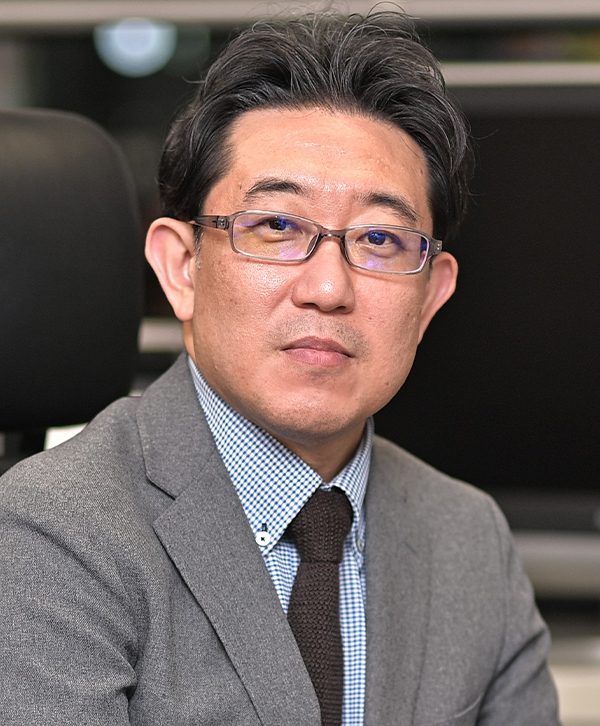
-
Ministry of Economy, Trade and Industry, Director-General, Innovation and Environment Policy Bureau
Jingo Kikukawa
Over 25 years devoted to policy making regarding global warming
issue (GX), trade negotiation (WTO, TPP), SMEs Finance and Tax system, Economic National Security (5G, Semiconductor, AI, DX) at Government of Japan, especially at Ministry of Economy, Trade and Industry (METI).
- 2023-2024 Deputy Director-General, Economic and Industrial Policy Bureau, METI (Drafted and implemented the industrial competitiveness promotion law, and reformed the tax incentives for higher wages)
- 2021-2023 Cabinet Counsellor, Cabinet Secretariat Office, and at Digital Agency
- 2020-2021 Chief director, Manufacturing Industry Bureau, METI
- 2019-2020 Director, IT industry division, METI (Drafted and implemented the 5G promotion law, established $1billion 5G fund to promote advanced chips)
- 2018-2019 Director, Tax Affairs Division, SMEs Agency, METI (Established the dynamic Tax reform for business succession)
- 2016-2018 Senior Secretariat for Economic Reform and TPP Minister (Passed the TPP related laws)
- 2014-2016 Director, Finance Division, SMEs Agency, METI (Reform the Finance Guarantee system)
- 2011-2014 Counsellor, Permanent Mission of Japan in Geneva
(2013-2014 Chairperson of TBT committee at WTO)
- 2010-2011 Director for Budget and Accounts Division, METI (Planned, supervised and internally audited METI’s budget)
- 1994 Entered to the Government of Japan, METI
- BA in Agricultural Economics, 1993, Kyoto University, Japan
- BA in Law, 2023, Chuo University, Japan
- Master of Public Affairs (MPA) in 2001, School of International and Public Affairs, Columbia University, United States
- 2015- Current, Visiting Professor, School of Social Informatics, Aoyama-Gakuin University
- United States Certified Public Accountant (USCPA), licensed in 2023
- Co-authored, “Reverification of Global Warming Issues” Toyokeizai
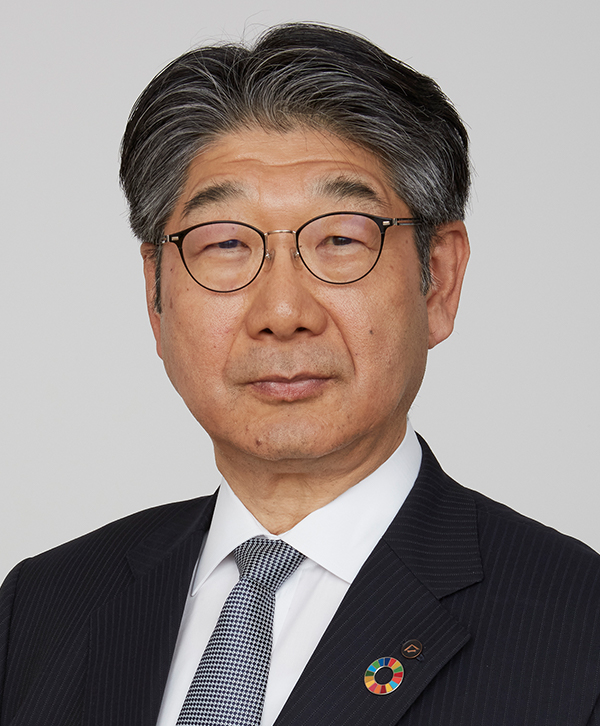
-
FURUKAWA ELECTRIC CO.,LTD., CHAIRMAN OF THE BOARD
Keiichi Kobayashi
Date of Birth: June 24, 1959
Apr. 1985 Joined Furukawa Electric Co., Ltd.
Oct. 2004 General Manager, the Manufacturing Department, Nikko Copper and Brass Factory, Metals Company
Aug. 2009 Assistant Manager, Metals Company
June 2010 General Manger, Cost Reduction Department
Apr. 2012 General Manager, Magnet Wire Division, Electronics & Automotive Systems Company
Apr. 2013 General Manager, Magnet Wire Division
Feb. 2014 General Manager, Copper & High Performance Material Products Division and
General Manager, Magnet Wire Division and General Manager, Production & Sales Management Department, the Nikko Snow Damage Recovery Task Force, and Head of its Nikko Manufacturing System Maintenance Team
Apr. 2014 Corporate Vice President and General Manager, Copper & High Performance Material Products Division and
General Manager, Production & Sales Management Department, the Nikko Snow Damage Recovery Task Force, and Head of its Nikko Manufacturing System Maintenance Team
Jan. 2015 Corporate Vice President and General Manager, Copper & High Performance Material Products Division
Feb. 2015 Corporate Vice President and General Manager, Copper & High Performance Material Products Division as well as Head of its Copper Recovery Project Team
Apr. 2015 Corporate Senior Vice President, Advisor, Automotive Electronics Material Business, and General Manager, Copper & High Performance Material Products Division as well as Head of its Copper Recovery Project Team
June 2015 Director, Member of the Board, Corporate Senior Vice President and Advisor, Automotive & Electronics Material Business and
General Manager, Copper & High Performance Material Products Division as well as Head of its Copper Recovery Project Team
Apr. 2016 Representative Director, Member of the Board,
Corporate Executive Vice President, and General Manager, the Global Marketing Sales Division
Apr. 2017 President and Representative Director, Member of the Board
Apr. 2023 Chairman of the Board (Current position)
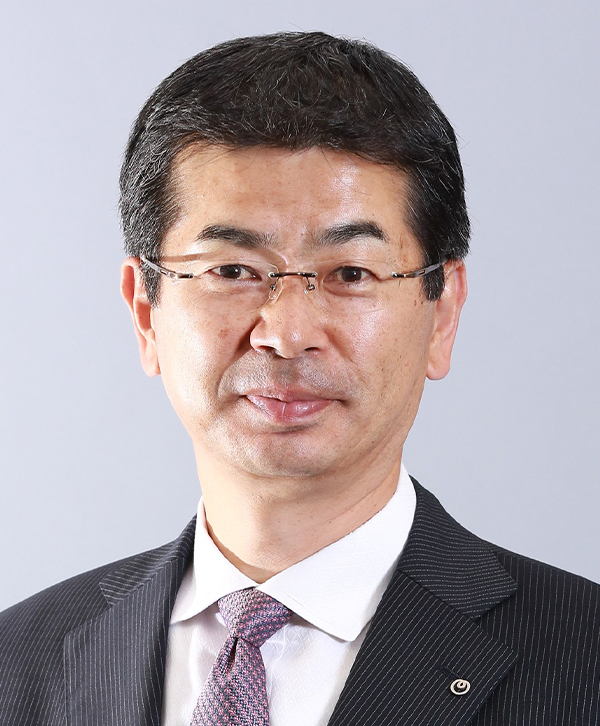
-
NTT WEST,Inc., Executive Adviser
Mitsuyoshi Kobayashi
Hometown Tsuyama-shi, Okayama Prefecture
Education March 1980 B.E. Electrical Engineering, Faculty of Technology, Keio University March 1982 M.S.E Graduate School of Technology, Keio University
Career
April 1982 Joined Nippon Telegraph and Telephone Public Corporation
February 1994 Head of Planning of Okayama Branch, Nippon Telegraph and Telephone Corporation (hereinafter referred to as "NTT")
July 1996 General Manager of Service Operation Department, NTT
January 1999 Senior Manager of Service Operation Department, Nippon Telegraph and Telephone West Corporation (hereinafter referred to as "NTT West")
May 2002 Senior Manager of Personnel Department, NTT West
June 2006 General Manager of Okayama Branch, NTT West
July 2008 General Manager, Service Management Department, NTT West
June 2010 Senior Vice President, General Manager of Service Management Department, Member of the Board, NTT West
June 2012 Senior Vice President,Head of Technology Planning, Head of Strategic Business Development, Member of the Board, NTT
June 2014 Executive Vice President, Head of Technology Planning, Member of the Board, NTT
June 2018 President and Chief Executive Officer, Representative Member of the Board, NTT West
June 2022 Executive Adviser, NTT West (present post)
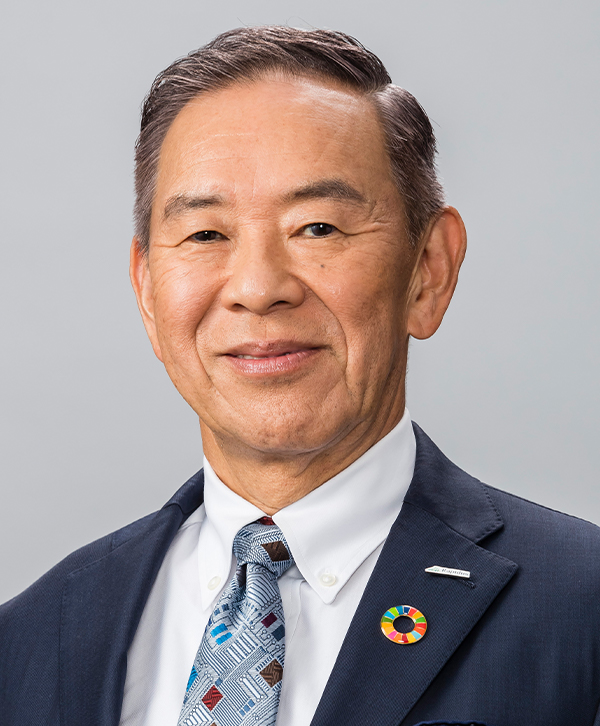
-
Rapidus Corporation, CEO
Atsuyoshi Koike
ATSUYOSHI KOIKE established Rapidus Corporation, a company that researches, develops, designs, manufactures, and sells advanced logic semiconductors, in August 2022.
Prior to this role, Koike had served as President of Western Digital Japan since April 2018 and supervised its business in Japan, which includes responsibility for the operational leadership of the companyʼs highly successful NAND flash-memory joint ventures with Kioxia Corporation (“KIC”). He also served as a director with authority to represent all Japan-based Western Digital legal entities.
Koike had served as senior vice president covering technology and fab operations since 2006. He led Western Digitalʼs SanDisk Japan operations, including overseeing the company ʼ s eading-edge 2D NAND and 3D NAND R&D and manufacturing operations in Japan.
Koike has over 40 years of experience driving innovations in the semiconductor industry. Prior to joining Western Digital, he served as corporate chief engineer for Renesas Technology Corporation. Previously, he held the position of president and chief executive officer, as well as other senior leadership positions at Trecenti Technologies, Inc., where he successfully established the worldʼs first 300mm wafer fab featuring all single wafer processing. Prior to that, he held senior manufacturing management and executive leadership positions at Hitachi, Ltd.,
where he focused on technological development in the semiconductor division, contributing to pivotal technological innovations for its mainstream semiconductor products for about two decades.
Koike received the B.S. and M.S. in Materials Science and Engineering from Waseda University and Ph.D. in Electronic Engineering from Tohoku University. He is a Senior Specially Appointed Professor of Management of Technology at Tokyo University of Science and has given lectures at the University of Tokyo and Tohoku University.
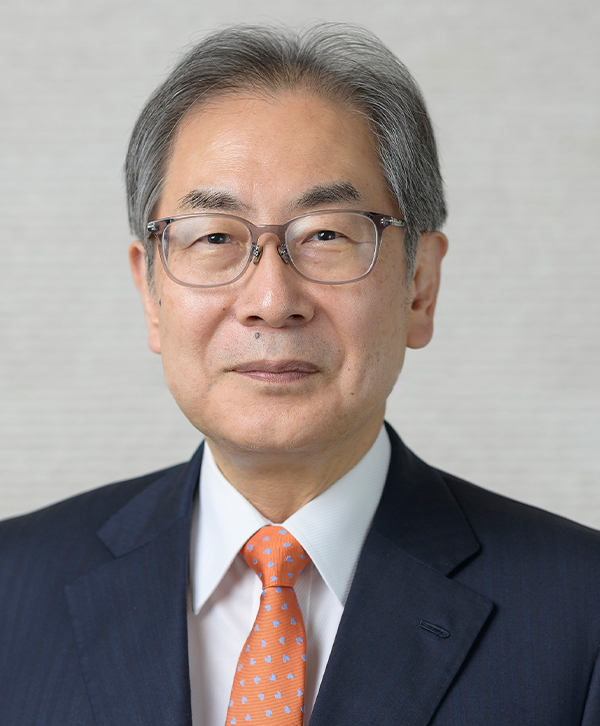
-
Keidanren, Vice Chair & President
Masakazu Kubota
Born: May 26, 1953
Education: 1976, Graduated from Tokyo University, Department of Economics
Career:
April, 1976 Joined International Economic Affairs Department, Keidanren
July, 1978~September, 1979 Studied at Singapore National University
April, 1985 Assigned to the Financial Affairs Department, Keidanren
April, 1988 Assigned to Chairman’s Office, Keidanren
April, 1989~March, 1992 Assigned to Special Assistant, Japanese Embassy in the U.S.A.
April, 1992 Assistant Manager, Industrial Policy Department, Keidanren
June, 1996 Manager, Coordination & Administration Group, Keidanren
April, 2000 Director, International Economic Affairs Bureau, Keidanren
April, 2003 Director, General Administration Bureau, Keidanren
April, 2004 Director, Economic Policy Bureau, Keidanren
May, 2006 Managing Director, Keidanren
May, 2009 Senior Managing Director, Keidanren
June, 2014 Director General, Keidanren
June, 2021 Vice Chair & President, Keidanren
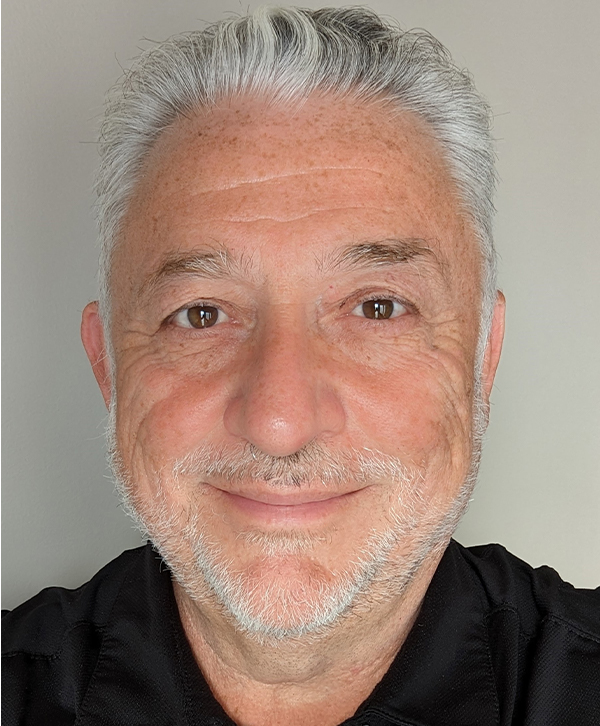
-
NTT, VP Brand
Vito Mabrucco
As the Brand Evangelist for NTT, Vito Mabrucco is accelerating the company’s global brand awareness and impact. He is dedicated to driving the company’s vision of contributing to societal development and enriching lives through open and global technologies and innovations. These efforts are aimed at moving us all towards a more sustainable future for both people and the planet.
NTT’s brand is founded on the key values of acting with integrity, building trust, and creating connections. Our business strategy revolves around listening to people, clients, and communities. Through the power of innovation, fueled by extensive investments in research and development and a globally diverse workforce, NTT is creating future technology solutions to address the world’s most challenging problems.
Prior to NTT, Vito Mabrucco had a long career in the global IT industry including with companies like IBM, Tandem, Dell, Cisco and consultancy firm IDC. His focus has been on developing greater knowledge and awareness of the benefits that technology can bring, while at the same time recognizing the potential for long term unintended consequences. His experiences range from finance, strategy, sales, marketing and general management.
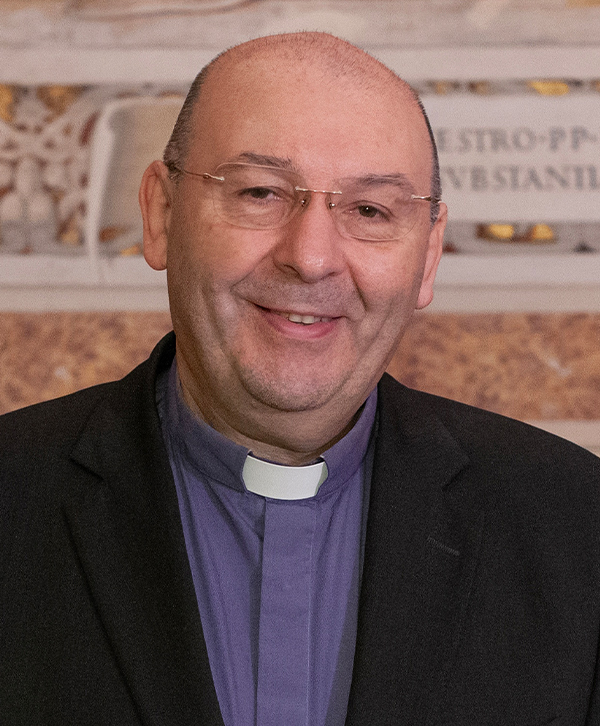
-
Vatican Library, Prefect
Mauro Mantovani
Mauro Mantovani, PhD in Philosophy at the Pontifical University of Salamanca (Spain) and in Theology at the Pontifical University Saint Thomas Aquinas "Angelicum", Rome. Member of the Congregation of the Salesians of Don Bosco, and Catholic Priest, He taught Theoretical Philosophy at the Faculty of Philosophy of the Salesian Pontifical University, Rome, University of which He has been Rector Magnificus in the years 2015-2021. In the same years He was appointed President of the Conference of Rectors of the Pontifical Roman Universities and Institutions (CRUIPRO). His main publications concern the relationships between Philosophy and Theology, especially in the field of the commentaries to the Summa Theologiae by Thomas Aquinas. He is currently the Prefect of the Vatican Library.
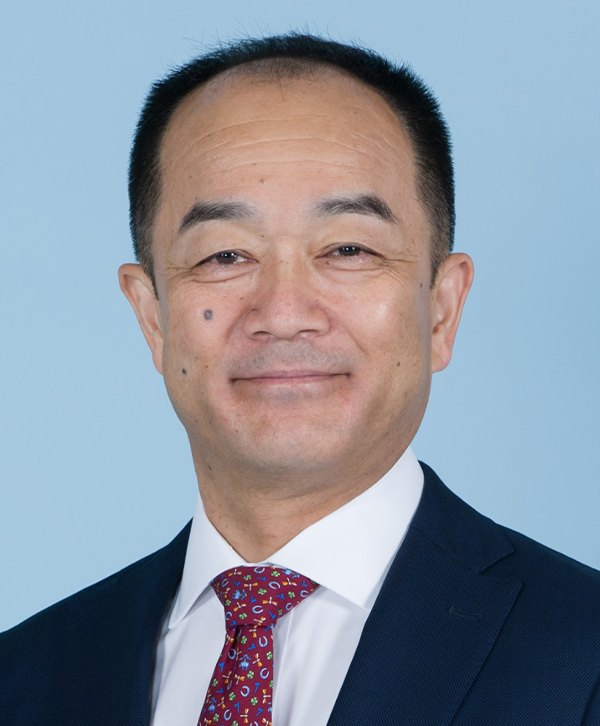
-
Ministry of Defense, Adviser to MOD
Kazuo Masuda
2 DATE OF BIRTH: September 12, 1963
3 PRESENT ASSIGNMENT: Administrative Vice-Minister of Defense
4 EDUCATION: Bachelor of Laws, Keio University (1987)
5 CAREER:
Apr 1988 Intelligence Policy Office, Bureau of Defense Policy, Japan Defense Agency (JDA)
Jun 1989 Personnel 1st Division, Bureau of Personnel, Japan Defense Agency(JDA)
Apr 1990 General Affairs Division, Commissioner’s Secretariat, Japan Defense Agency(JDA)
May 1992 General Affairs Division, Commissioner’s Secretariat, Agency for Natural Resources and Energy
Jul 1993 General Affairs Division, Commissioner’s Secretariat, Agency for Natural Resources and Energy
May 1994 Deputy Director, General Affairs Division, Secretariat of the Minister of State for Defense, JDA
May 1996 Planning and Programming Division, Bureau of Defense, JDA
May 1997 Planning and Programming Division, Bureau of Defense, JDA
Jun 1998 Defense Policy Division, Bureau of Defense, JDA
Jul 2000 Deputy Director, Development Planning Division, Bureau of Equipment, JDA
Jan 2001 Deputy Director, Development Planning Division, Bureau of Administration, JDA
Aug 2002 Deputy Director, Planning and Programming Division, Bureau of Defense, JDA
Aug 2004 Deputy Director, Defense Policy Division, Bureau of Defense, JDA Chief, Office of Ballistic Missile Defense, Defense Policy Division, Bureau of Defense, JDA
Jan 2006 Secretarial Division, Secretariat of the Minister of State for Defense, JDA (Royal College of Defence Studies, United Kingdom)
Sep 2007 Chief, Strategic Planning Office, Defense Policy Division, Bureau of Defense Policy, MOD Director, Minister’s Secretariat, MOD Councilor, Cabinet Secretariat(Cabinet Affairs Office)(the Prime Minister Fukuda and Aso)
Aug 2009 Director, International Cooperation Division, Bureau of Operational Policy, MOD
Sep 2010 Director, Policy Planning and Evaluation Division, Minister’s Secretariat, MOD
Oct 2012 Director, Japan-U.S. Defense Cooperation Division, Bureau of Defense Policy, MOD
Jan 2014 Counsellor, Cabinet Secretariat (National Security Secretariat)
Jul 2016 Councillor, Cabinet Secretariat (National Security Secretariat)
Jul 2019 Executive Secretary to the Prime Minister Abe and Suga
Jul 2021 Director General, Bureau of Defense Policy, Ministry of Defense (MOD)
Jul 2023 Vice Minister of Defense
Aug 2025 Retirement
Aug 2025 Adviser to the Minister of Defense
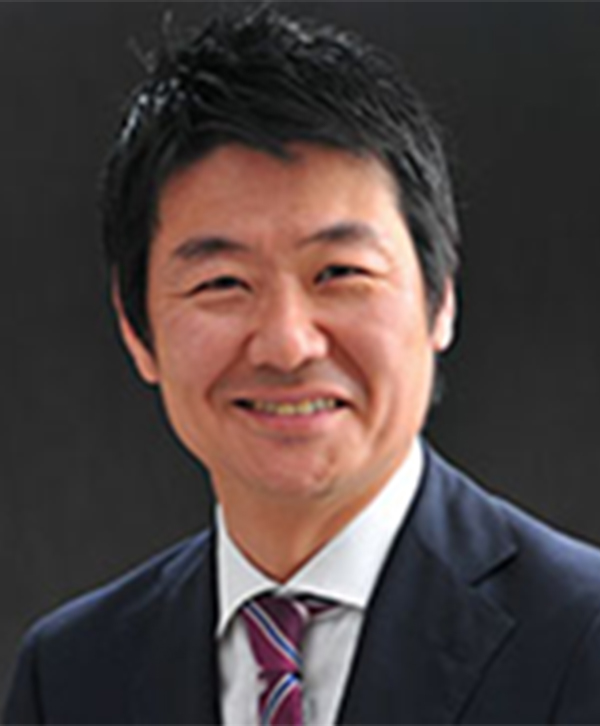
-
Hitachi, Ltd., President of Social Platform Sales Management Division
Naohiko Matsumoto
Founder, Societal Strategy Forum
Group Managing Executive Officer, Rakuten Group
Since his university years, Kuniaki Matsumura has questioned one-track thinking without philosophical perspective. Taking time off from school, he traveled across 30 countries and worked at Tadao Ando Architect & Associates, developing his own framework on worldview and happiness. Drawing on his experience as an analyst in consulting and marketing, he developed an approach combining philosophical insight with data-driven validation. He has demonstrated its practical effectiveness as a business leader in a large organization.
While studying in the U.S. in 2024, he keenly recognized Japan’s challenges on a global scale, inspiring him to dedicate himself to the country's revitalization. His recent project focuses on identifying objective social issues and formulating strategic visions based on research applying data analysis methods, which have yielded results in private companies, to national issues. Through this initiative, he has gained support from leading companies, media outlets, and research institutions, and is proactively communicating and proposing its adoption.
Born in Nara Prefecture, graduated from the Department of Architecture, Faculty of Engineering at University of Tokyo and completed the AMP program at Harvard Business School. After working at McKinsey & Company, Hakuhodo Consulting, and a venture firm, he joined Rakuten. He built one of Japan’s largest engagement marketing platforms (Rakuten Points: 600 billion yen/year, Okaimono Panda LINE stickers: 52 million users) and strengthened its organizational capabilities that enable its success. Currently serves as Group Managing Executive Officer (Marketing and Ad Business).
Hobbies: Travel, golf, and developing frameworks.
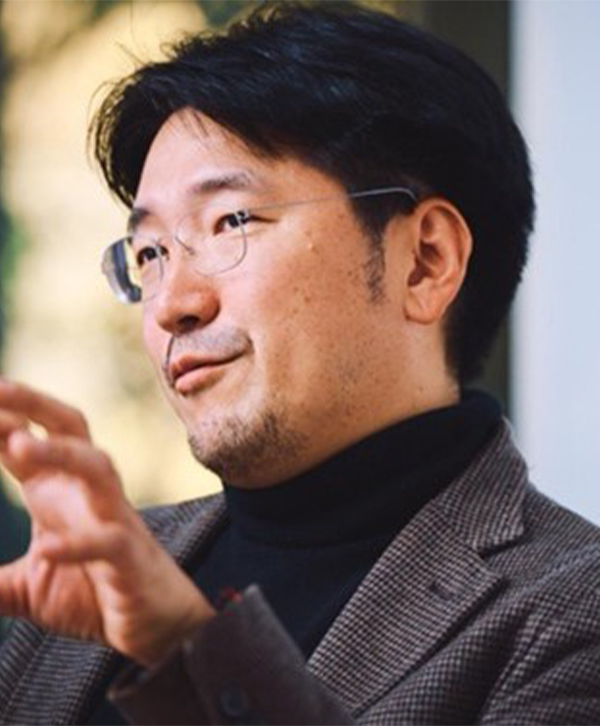
-
Rakuten Group, Inc., Group Managing Executive Officer
Kuniaki Matsumura
Since his university years, Kuniaki Matsumura has questioned one-track thinking without philosophical perspective. Taking time off from school, he traveled across 30 countries and worked at Tadao Ando Architect & Associates, developing his own framework on worldview and happiness. Drawing on his experience as an analyst in consulting and marketing, he developed an approach combining philosophical insight with data-driven validation. He has demonstrated its practical effectiveness as a business leader in a large organization.
While studying in the U.S. in 2024, he keenly recognized Japan’s challenges on a global scale, inspiring him to dedicate himself to the country's revitalization. His recent project focuses on identifying objective social issues and formulating strategic visions based on research applying data analysis methods, which have yielded results in private companies, to national issues.
Through this initiative, he has gained support from leading companies, media outlets, and research institutions, and is proactively communicating and proposing its adoption.
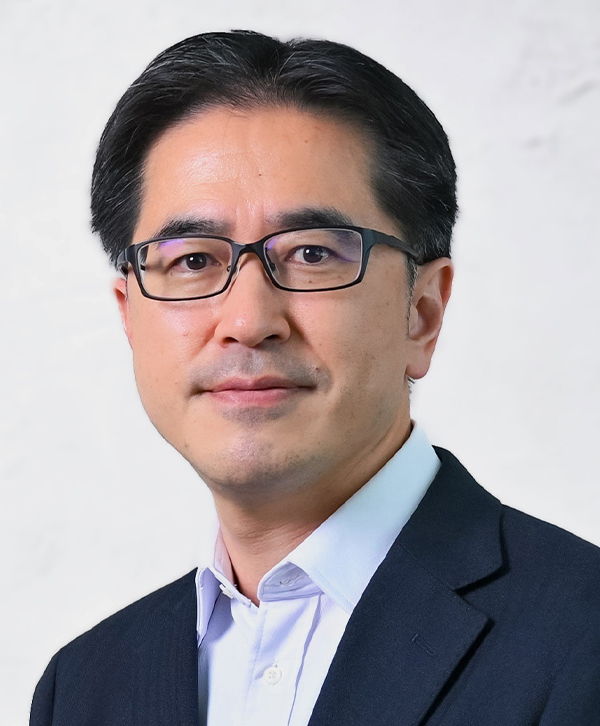
-
Hakuhodo DY Holdings Inc., Corporate Officer & Chief AI Officer
Masaya Mori
After working at Accenture and Rakuten, a global internet company, he engaged in corporate and industrial consulting business using AI and advanced technologies at Deloitte. He also serves as an advisor of X-Dignity Center at Keio University and an advisor for a venture capital at the University of Tokyo. His published works include "Web Revolution: The Beginning of a Power Shift" (Kindai Sales), and "Trustworthy AI" (supervised translation, Kyoritsu Publishing), among many others.
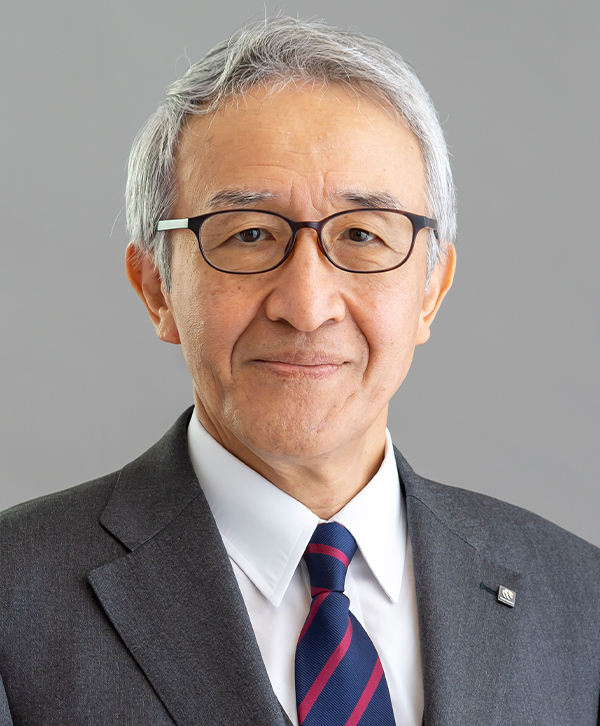
-
Tokio Marine & Nichido Fire Insurance Co., Ltd., Senior Executive Advisor
Tsuyoshi Nagano
Born in 1952 in Kochi Prefecture. After graduating from the Faculty of Commerce at Keio University in 1975, Nick joined Tokio Marine & Fire Insurance Co., Ltd. (now Tokio Marine & Nichido Fire Insurance Co., Ltd.(TMNF)) , and he was involved in domestic sales, overseeing operations in Los Angeles, corporate planning, and the development of the integrated life and non-life insurance product "Super Insurance."
After that, he held executive positions in various corporate divisions such as the Tokai region, corporate planning, human resources, and overseas operations. In 2013, he became the President of Tokio Marine Holdings (TMHD) andTMNF.
Nick promoted integrated group management under the vision of "To be a Good Company." In 2016, he focused on his role as President and Group CEO of TMHD, and became Chairman of the Board in2019. Nick is currently serving as a Senior Executive Advisor for TMNF from June 2025.
Additionally, he serves as Vice Chairman of the Japan Business Federation (Keidanren), and as an outside director of Fujifilm Holdings Corporation and Central Japan Railway Company.
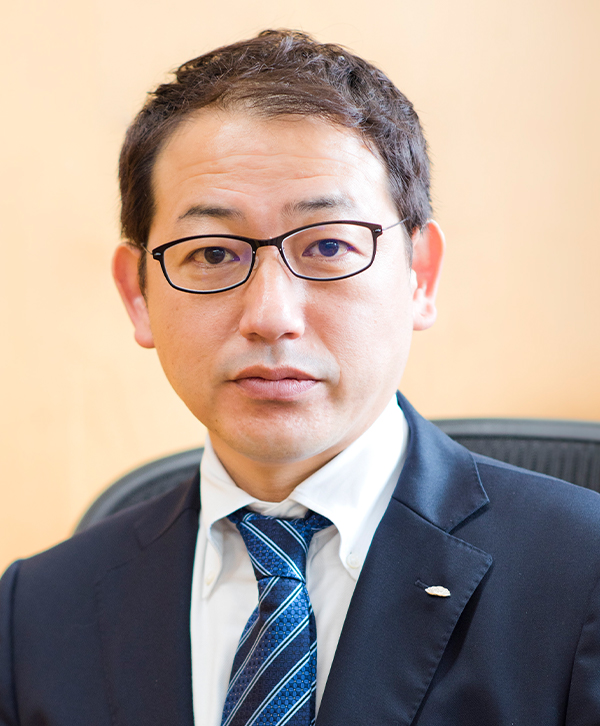
-
Okamoto Corporation, President
Ryutaro Okamoto
1979 Born in Nara Prefecture
April 2007 Joined Okamoto Corporation
2009 Graduated from TEMPLE UNIVERSITY The Degree of Bachelor of Arts
April 2012 Director
May 2018 Executive Vice President
May 2021 President and Chief Executive Officer
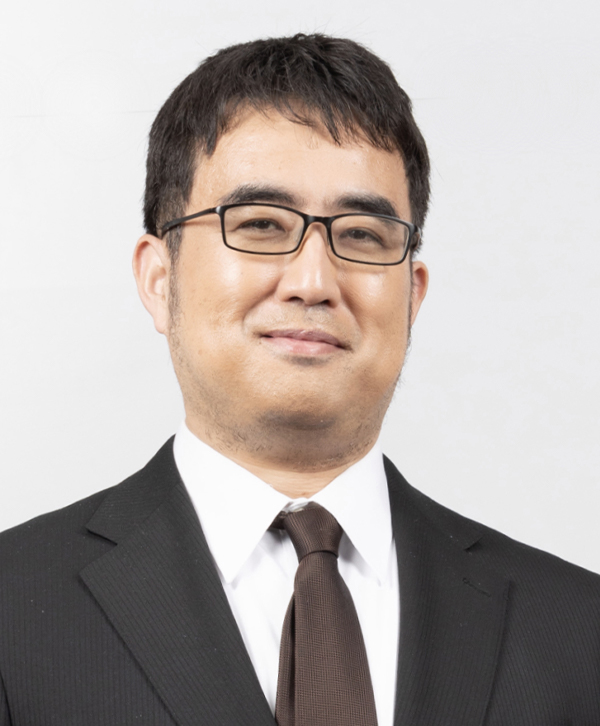
-
Preferred Networks, Inc., Co-Founder, Chief Technology Officer
Daisuke Okanohara
Daisuke Okanohara is the Chief Technology Officer of Preferred Networks (PFN) that he co-founded in March 2014 to advance AI toward practical use across industries. He currently leads PFN’s research and business efforts for its core technologies including generative AI, PLaMo™ large language model and Matlantis™ universal atomistic simulator.
Okanohara also serves as the Chief Executive Officer of Matlantis, a PFN subsidiary that markets the Matlantis™ universal atomistic simulator for materials discovery.
Okanohara co-founded PFN’s predecessor Preferred Infrastructure with PFN CEO Toru Nishikawa and others when he was a graduate student in 2006. He received a Ph.D degree in Computer Science from the University of Tokyo in 2010. He has authored and co-authored several books in Japan on AI, deep learning, diffusion models and foundation models.
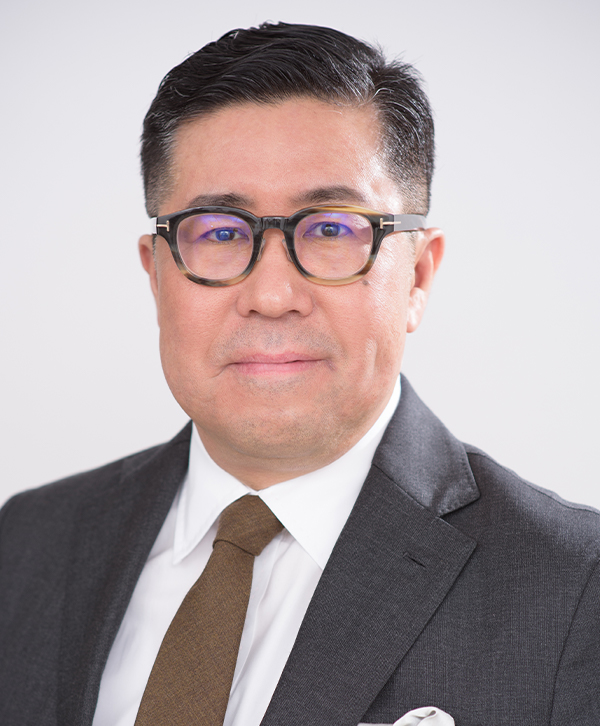
-
Google Japan G.K., President
Shinji Okuyama
Shinji Okuyama has been the President of Google Japan since 2021, where he is responsible for business growth and site operations.
Prior to Google, he worked at Procter & Gamble (P&G) for 26 years. After building a career in marketing, he was appointed as the President of P&G Korea in 2008, and later became the President of P&G Japan in 2012. Beginning in 2016, he served as the Senior Corporate Officer of Marketing at Ezaki Glico, where he managed the company's domestic business and marketing organization. He was also involved in the formulation of mid-to-long-term corporate strategies and talent development plans.
Throughout his career of over 30 years, he has been dedicated to promoting organizational diversity and inclusion programs.
He holds degrees in English Literature and Linguistics from Waseda University.
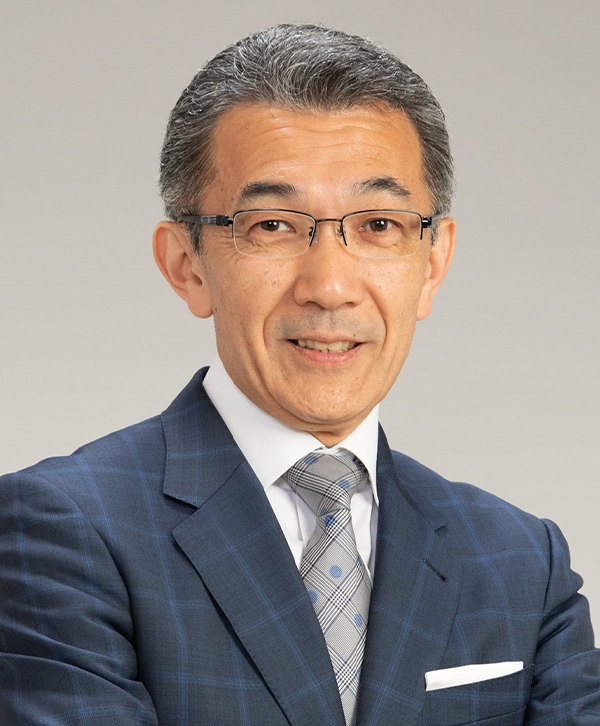
-
The American Chamber of Commerce in Japan, President
Victor Osumi
ACCJ President
Chief Executive Officer, Aerialence Partners, LLC
Executive Regional Vice President - Americas, Seibu Prince Hotels Worldwide Inc.
Victor Osumi is Chief Executive Officer for Aerialence Partners, LLC, an advisory firm that provides support services for the global hospitality industry. Victor oversees the company’s operations and delivers market-specific strategies to meet client needs. He is also serving as Executive Regional Vice President for Seibu Prince Hotels Worldwide Inc., overseeing Prince Hotels in the Americas, including Hawaii.
Victor was Managing Director and President – Japan for Delta Air Lines from July 2019 to May 2025. Victor was responsible for managing Delta's entity in Japan and developing the business strategy to build Delta's presence as an industry leader in the Japan market.
Prior to Delta, Victor worked at Marriott International, where he served as Area Vice President, Japan and Guam, responsible for the operations of 43 Marriott-branded hotels and over 30 new hotels under development.
Victor graduated from Florida Institute of Technology with a BS in Aviation Management Flight Technology and then joined the United States Air Force. Throughout his career, he has assumed leadership roles with major global hotel companies, including Hyatt, InterContinental Hotels Group (IHG), Marriott International, and Prince Hotels. Victor holds an FAA Certified Commercial Pilot and Flight Instructor’s license (CFII).
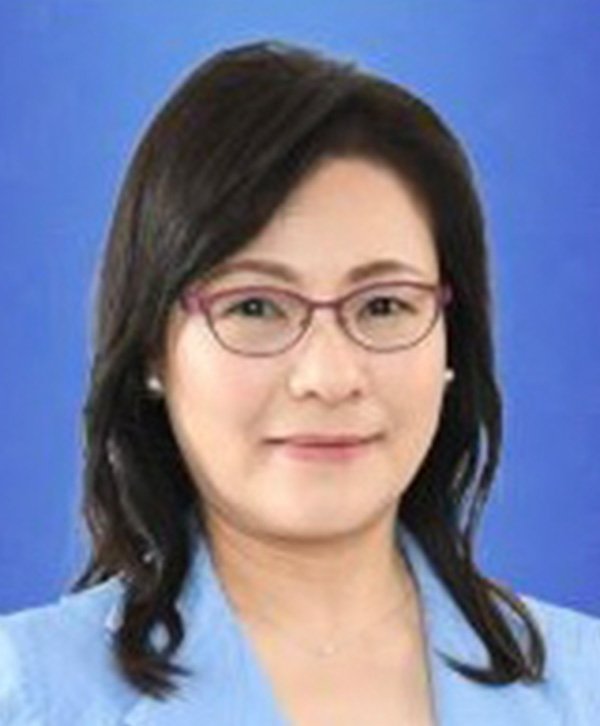
-
THE YOMIURI SHIMBUN, Senior Political Writer
Keiko Iizuka
Iizuka’s expertise covers international relations and Japanese domestic politics, specially focusing on Indo-Pacific, Japan-U.S. relations, and information warfare. She serves now as a regular TV commentator for the nightly news program “News in Depth (Shinso News)” on the BS4 channel.
She served as Yomiuri’s Chief Editor of the International News Department (2015-2017) and Washington Bureau Chief (2013-2015).
Between 2006 and 2007, she was the Chief Political Correspondent covering the Japanese Prime Minister’s Office under Prime Minister Shinzo Abe.
She was a London Correspondent from 2003 to 2006, covering British politics and the Iraq War. She returned to London in 2017 as an European Senior Political Writer until 2019 from which mission she published her book “Influence Operations.”
She earned her master’s degree of Arts in Law and Diplomacy (MALD) at the Fletcher School of Law and Diplomacy (U.S.A.) in 1996. She was a visiting fellow at the Brookings Institution in Washington D.C. between 2008 and 2009.
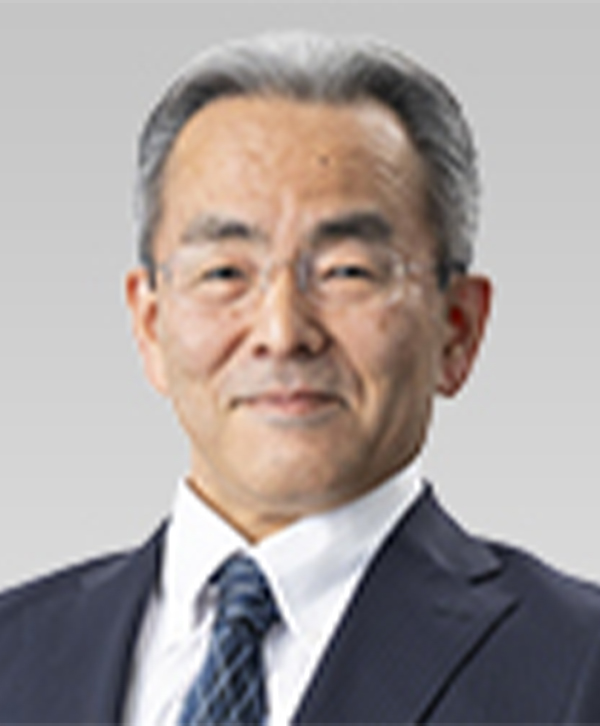
-
Hitachi, Ltd., Vice President and Executive Officer
Shigetoshi Sameshima
4/1993 Joined Hitachi, Ltd.
8/2010 General Manager of Center for Information Service Research I Division, System Research Laboratory, Hitachi, Ltd.
4/2014 General Manager of Planning Office, Hitachi Research Laboratory, Hitachi, Ltd.
4/2016 General Manager of Solution Business Promotion Division, Power Information & Control Systems Division, Energy Solutions Business Unit, Hitachi, Ltd.
4/2017 Deputy General Manager of Center for Technology & Innovation, and General Manager of Yokohama Research Laboratory, Research & Development Group, Hitachi, Ltd.
10/2018 General Manager of Center for Technology & Innovation, and General Manager of Yokohama Research Laboratory, Research & Development Group, Hitachi, Ltd.
4/2021 General Manager of Technology Strategy Office, Research & Development Group, Hitachi, Ltd.
4/2023 CTO of Digital Systems & Services Division, Hitachi, Ltd.
4/2025 Vice President and Executive Officer, Hitachi, Ltd.
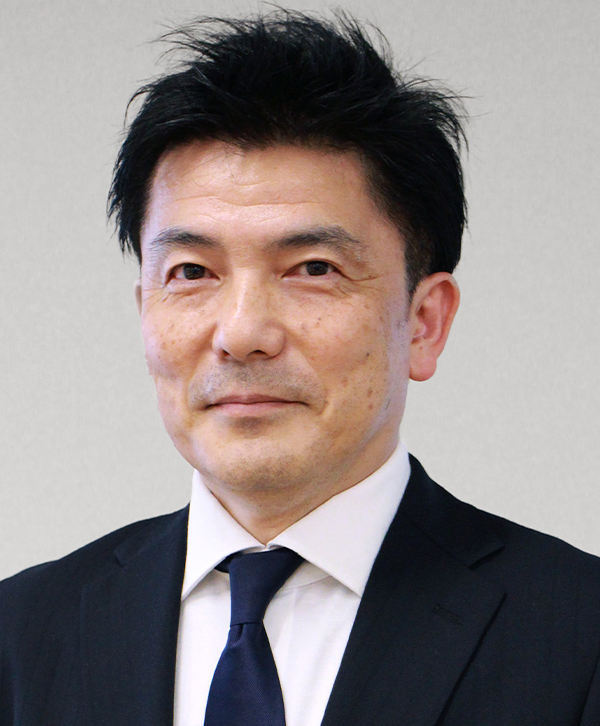
-
Hitachi, Ltd., President of Social Innovation Business Division
Yutaka Sano
Joined Hitachi, Ltd. Omika Works in 1994
Engaged in control system, component development and service business of mission-critical social infrastructure such as transportation and energy.
As a social innovation business to solve diversifying social issues, challenging the smart city business.
Utilizing the experience in the Kashiwa-no-ha Smart City Project, currently serving as the promotion leader of the “Hitachi Co-Creation Project" promoted together with Hitachi City.
Since April 2025, he has been the general manager of the Social Innovation Business Development Division.
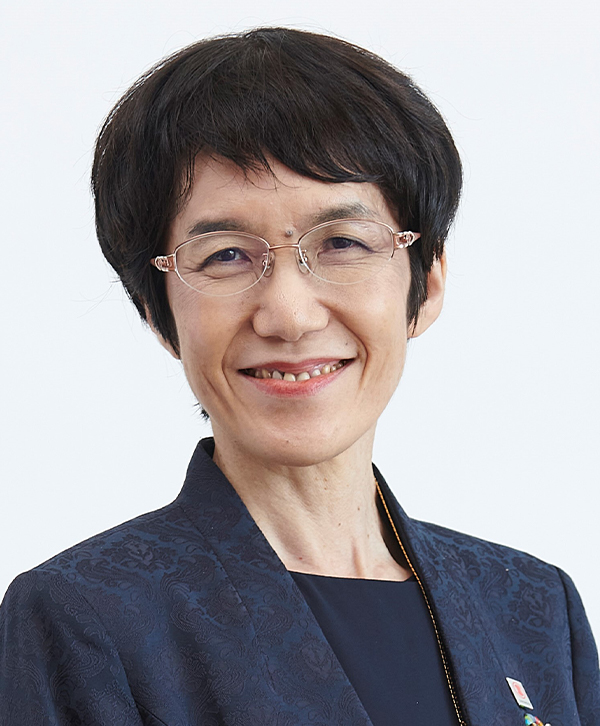
-
Shionogi & Co., Ltd., Vice-Chair
Takuko Sawada
Following her graduation from Kyoto University, Ms. Takuko Sawada joined Shionogi & Co., Ltd. In 1977. Since then, she has served for over 30 years, leading a number of pharmaceutical development projects and corporate strategy planning. Ms. Sawada successively held various posts in the company including the senior vice president of Global Pharmaceutical Development Division, the senior vice president of Corporate Strategy Division and Corporate Planning Department, and board director. She has served in her current position since 2022.
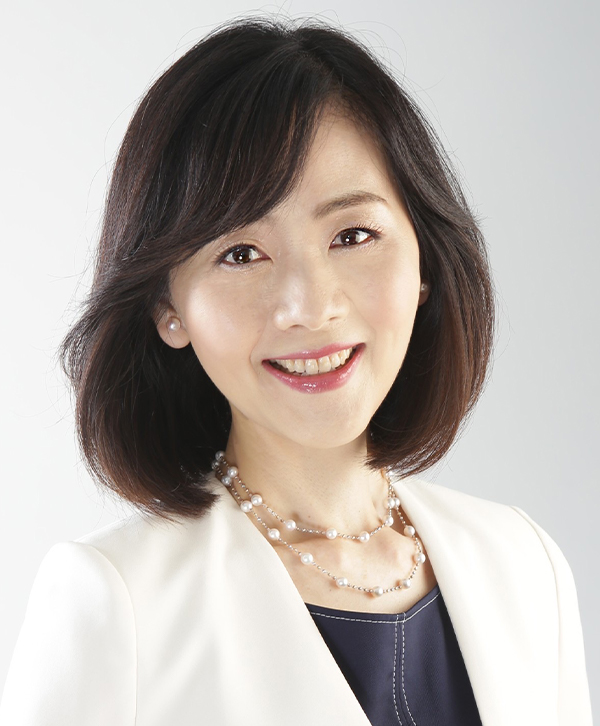
-
Masaki Video Foundation, Director
Ayako Shima
Director, Masaki Video Foundation.
Foundation Management/Internet Broadcasting Station STP
(SAKURATV-PRESS24)
Program Planning and Production Manager.
Main Anchor of the Documentary "Search of the Future".
Born in Sapporo, Hokkaido.
After graduating from university,
joined Japan Airlines Co., Ltd. as a cabin attendant on international flights.
2017, Established Masaki Video Foundation.
Started planning and producing of news programs using the internet.
Appointed as the second anchor of the documentary "Search of the Future" (Japanese title: Mirai-Kensaku), which has a 25years of history since its predecessor organization.
Begins program planning and production activities.
Continues to produce three documentaries a year on themes such as cutting-edge technology, notable people, the world of aviation, disaster welfare, and the “philosophy of Wisdom” (Japanese title: Sasuga no Tetsugaku) interview with the chairman.
Also conducts press interviews at appropriate times, and continues to disseminate information in a familiar and easy to understand.
◆Web page : https://www.sakuratv2020.com/
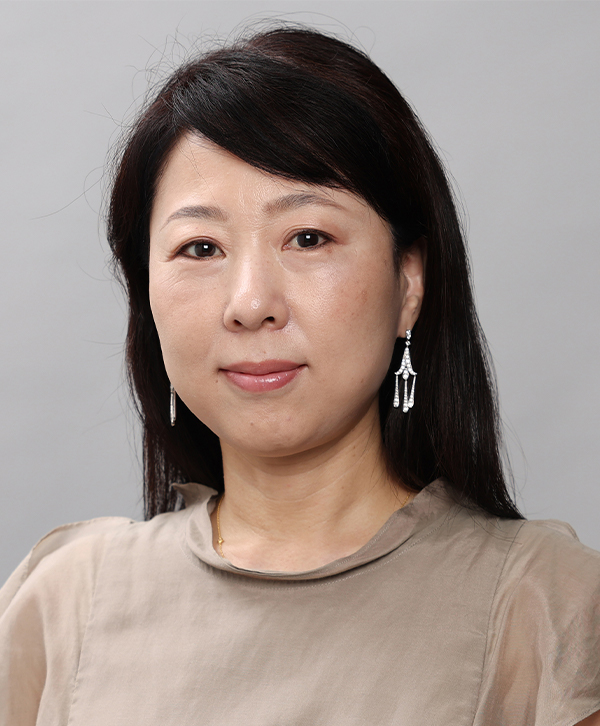
-
Nikkei Inc., Executive Officer, News Editor
Midori Shiraki
Born: 1968
1991 Graduated from Waseda University, BA, School of Political Science and Economics Joined Nikkei Inc., Staff Writer, Economics News Dept., Osaka
1995 Staff Writer, City News Dept., Cultural News Group, Osaka
1996 Staff Writer, Cultural News Dept., Tokyo
2011 Editor, Cultural News Dept., Tokyo
2019 Editorial Manager, Cultural News Dept., Tokyo
2021 Editorial Manager, Lifestyle News Unit, Cultural News Group, Tokyo
2022 Chief, Lifestyle News Unit, Tokyo & Editor-in-chief of Nikkei evening edition
2023 Senior Editor in Charge of Special Projects & BS TV TOKYO
2024 Executive Officer & News Editor, Tokyo Editorial Bureau
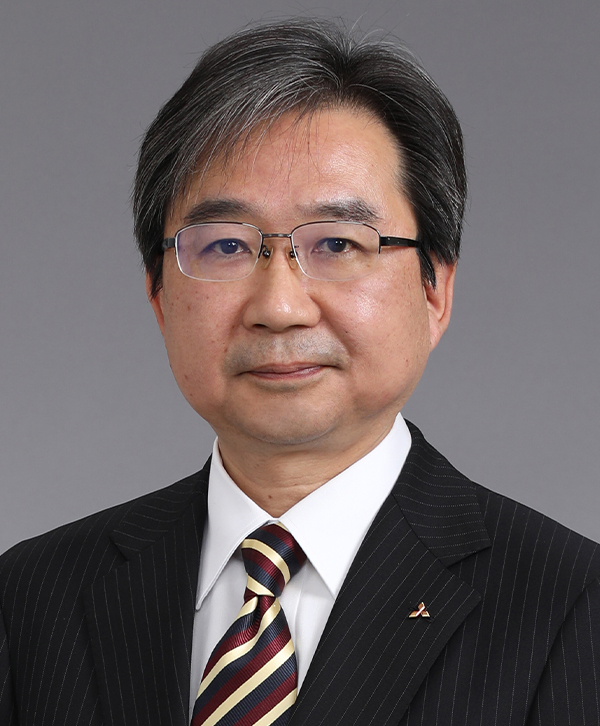
-
Mitsubishi Heavy Industries, Ltd., Director, Executive Vice President, CSO
Masayuki Suematsu
Date of Birth August 25, 1963
Date of Join Apr. 1, 1986 Joined Mitsubishi Heavy Industries, Ltd.
Career
Jan. 1, 2012 Managing Director of Mitsubishi Agricultural Machinery Co., Ltd.
Apr. 1, 2014 General Manager, Planning & Administration Department, Business Strategy Division, Machinery, Equipment & Infrastructure
Jan. 1, 2016 CEO, President of Mitsubishi Mahindra Agricultural Machinery Co., Ltd.
Apr. 1, 2019 Senior Vice President, Head of Business Strategy Office
Apr. 1, 2022 Senior Vice President, Head of Business Strategy Office, Vice President, Logistics, Thermal & Drive Systems
Apr. 1, 2023 Executive Vice President, CSO
Jun.27, 2025 * Director (Member of the Board), Executive Vice President, CSO
(Note1)An asterisk mark (*) indicates a Representative Director.
(Note2)Positions not followed by corporate name are positions in Mitsubishi Heavy Industries, Ltd.
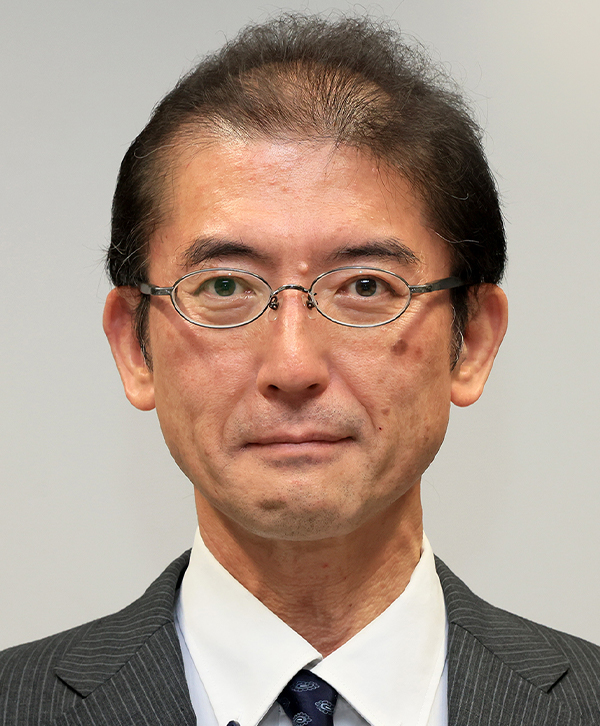
-
THE YOMIURI SHIMBUN, OSAKA, Kyoto Bureau Chief
Masahiko Sugimoto
Work Experience
1992 Joined the Yomiuri Shimbun Osaka, assigned to Tokushima Bureau
1996 Nara Bureau
1999 Sports Department
2011 Deputy Bureau Chief, Tokushima Bureau
2012 Deputy Bureau Chief, Himeji Bureau
2014 Deputy Bureau Chief, Nara Bureau
2015 Sports Department
2016 Deputy Editor, Sports Department
2021 Bureau Chief, Tokushima Bureau
2023 Editor, Sports Department
2025-present Bureau Chief, Kyoto General Bureau
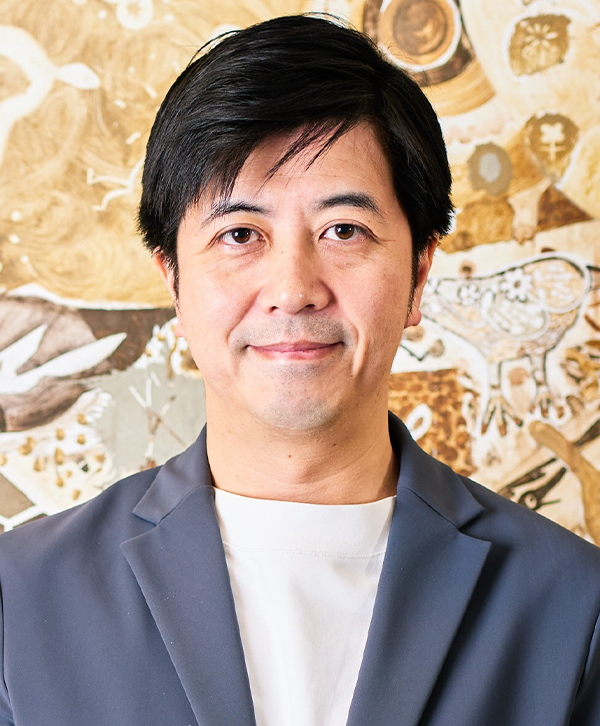
-
Oisix ra daichi Inc., Representative Director, CEO
Kohey Takashima
He holds a master’s degree in engineering from the University of Tokyo and began his career at McKinsey & Company Japan. In 2000, he founded Oisix Inc. The company was listed on the Tokyo Stock Exchange Mothers Market in 2013 and transitioned to the Prime Market in 2022 following a market reorganization.
In 2016, he made Tokushimaru, a mobile supermarket catering to underserved communities, a subsidiary. In 2017, he achieved business integration with Daichi wo Mamoru Kai, followed by another with Radishbo-ya. In 2024, he oversaw the acquisition of Shidax Corporation and assumed the role of Executive Vice President.
He also serves as Chairman of the Board of Niigata Albirex Baseball Club Co., Ltd. Co Chairman of EVIDENCE STUDIO, a general incorporated association, and an Executive Committee Member of the Japan Association of Corporate Executives (Keizai Doyukai).
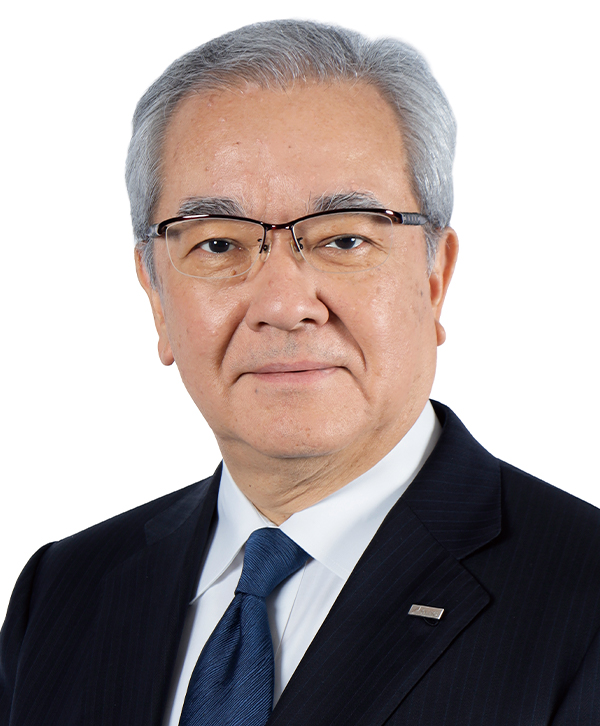
-
Sumitomo Mitsui Financial Group, Inc., Chairman of the Board
Makoto Takashima
Makoto Takashima is Chairman of the Board, Sumitomo Mitsui Banking Corporation (SMBC).
Mr. Takashima joined The Sumitomo Bank, Limited in April 1982. After that, his career mainly focused on global banking and corporate strategy.
Mr. Takashima held the post of Managing Executive Officer and CEO of The Americas Division from April 2012, and took up the positions of Senior Managing Executive Officer, Member of the
Management Committee, and Co-Head of the International Banking Unit, supervising SMBC’s businesses in Europe and the Americas in April 2014. He was appointed as President and CEO of
SMBC in April 2017, and was made a Director of SMFG in June 2017. In April 2023, he was named Chairman of the Board, SMBC.
Outside of his duties at SMBC, Mr. Takashima has served twice as Chairman of the Japanese Bankers Association (April 2019 to March 2020, and July 2021 to June 2022). He has also served on
the Institute of International Finance's Board of Directors (April 2017 to March 2023) and Executive Committee (October 2019 to March 2023). In May 2023, the Japan Business Federation appointed Mr. Takashima as Chair, Committee on Europe, and also appointed as Vice Chair and Chair of Committee on Financial and Capital Markets in May 2024.
Mr. Takashima holds a LL.B. degree from Kyoto University (1982) and a LL.M. degree from the Boalt Hall School of Law, University of California, Berkeley (1986).
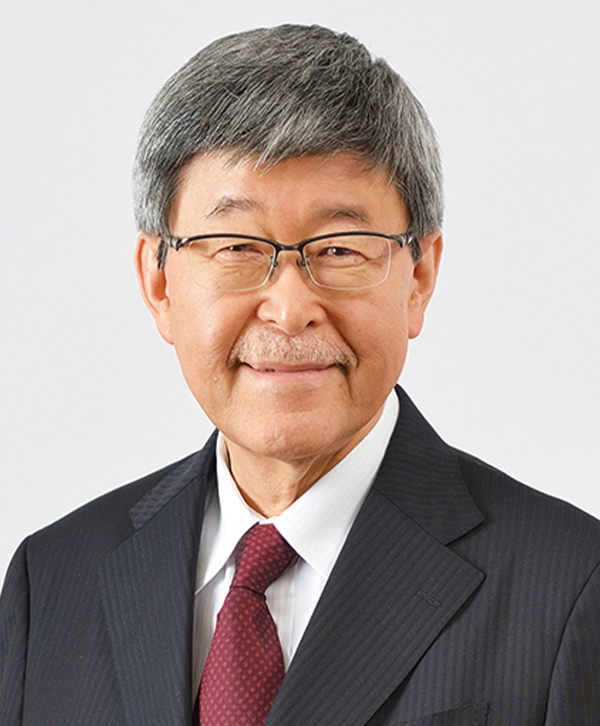
-
HAKUHODO inc., Senior Advisor
Hirokazu Toda
Born in 1948. Joined Hakuhodo in 1972 as a production copywriter and creative director. In 1998, he became head of the Corporate Planning Office. In 2001, he became a director and promoted the management integration of Hakuhodo, Daiko Advertising, and Yomiko Advertising. In 2003, he became a managing director of Hakuhodo DY Holdings upon its establishment. In 2006, he became president and CEO of Hakuhodo. In 2010, he became president and CEO of Hakuhodo. In 2017, he became chairman and CEO of Hakuhodo DY Holdings. In 2019, he became chairman and CEO of Hakuhodo DY Holdings. In 2022, he became chairman and CEO of Hakuhodo DY Holdings.
In 2025 he became Senior Advisor of Hakuhodo.

-
Agency for Cultural Affairs, Government of Japan, Commissioner
Shunichi Tokura
Born in Tokyo, Japan.
Tokura’s professional music career started while studying law at Gakushuin University in Tokyo. He then further studied composition, conducting as well as screening and studio production extensively in Japan, Germany, and the United States.
Tokura has won numerous major music awards in Japan, including the "Japan Record Awards" and the "Japan Music Awards" four times each.
He has served in positions such as the chairman of Japanese Society for Rights of Authors, Composers and Publishers (JASRAC), and as a board member of the Council for Cultural Affairs.
In 2018, Tokura was selected Person of Cultural Merit; and in April 2021, he was appointed Commissioner for Cultural Affairs.
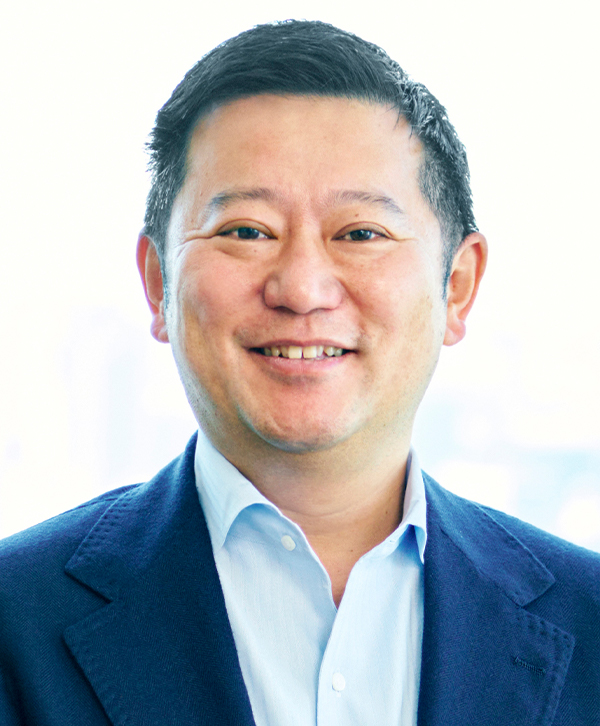
-
Money Forward, Inc., Representative Director, President and Group CEO
Yosuke Tsuji
After graduating from the Faculty of Agriculture (BS), Kyoto University, Yosuke Tsuji obtained his MBA at the Wharton School, University of Pennsylvania. He worked at Sony Corporation and Monex, Inc. before establishing Money Forward, Inc. in 2012. Money Forward was listed on the Tokyo Stock Exchange Mothers Market in 2017 and the Prime Market in 2021. The number of users of “Money Forward ME”, a personal finance management service (total number of app downloads and web registrations) , is approximately 15.3 million, and the back-office SaaS “Money Forward Cloud” provides services to over 300,000 businesses. He focuses in the SaaS x Fintech domain to solve problems in home bookkeeping, asset management, and asset building for individuals, as well as in accounting and finance, human resources, labor affairs, and legal affairs for businesses. Currently serves as the Vice Chairperson of the Japan Association of Corporate Executives (Keizai Doyukai) and Chairperson of its Startup Promotion General Committee, Executive Committee member of the Silicon Valley Japan Platform (SVJP), and Executive Officer of the Japan Association of New Economy.
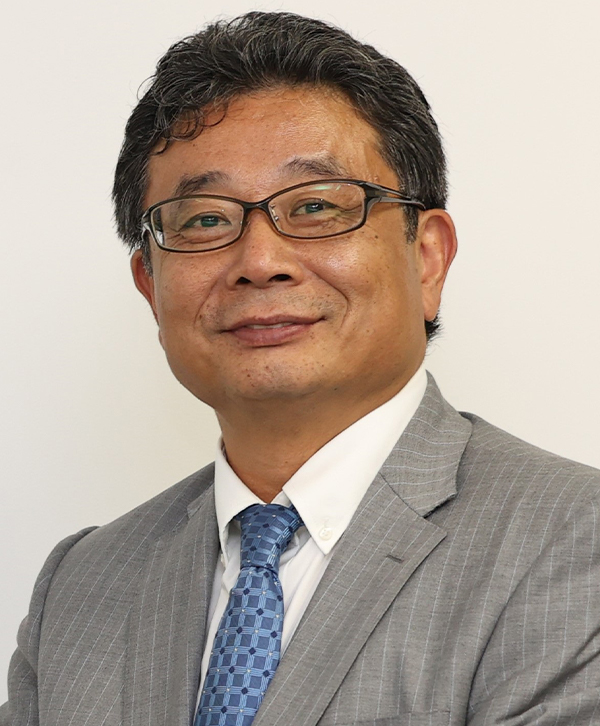
-
The Asahi Shimbun Company, President (Chief Operating Officer )
Katsu Tsunoda
Katsu TSUNODA is the President and Chief Operating Officer of The Asahi Shimbun. Prior to assuming his current post in June 2024, he was Senior Managing Director and Chief Content and Digital Policy Officer, and before that Executive Editor, overseeing all of The Asahi Shimbun’s content from 2021 to 2023. During this period he strengthened the role of Universal News Hub, putting more emphasis on The Asahi Shimbun’s output in digital, including text, video and audio. He previously worked as the General Manager of the Asahi Shimbun’s newsroom and the Director General of the Strategic Personnel Committee, where he played a key role in organizing personnel to adapt to the digital age. He also has served as the Editor of both the City News Section, and the Arts, Culture, Health and Lifestyle News Section.
Mr. TSUNODA was born in Gunma Prefecture and graduated from Waseda University in March 1989. He joined The Asahi Shimbun the same year, starting his career reporting in Yamaguchi Prefecture. After that, he moved to the City News Department at Tokyo headquarters, where he covered the Tokyo District Public Prosecutors Office and also had extensive experience in investigative reporting.
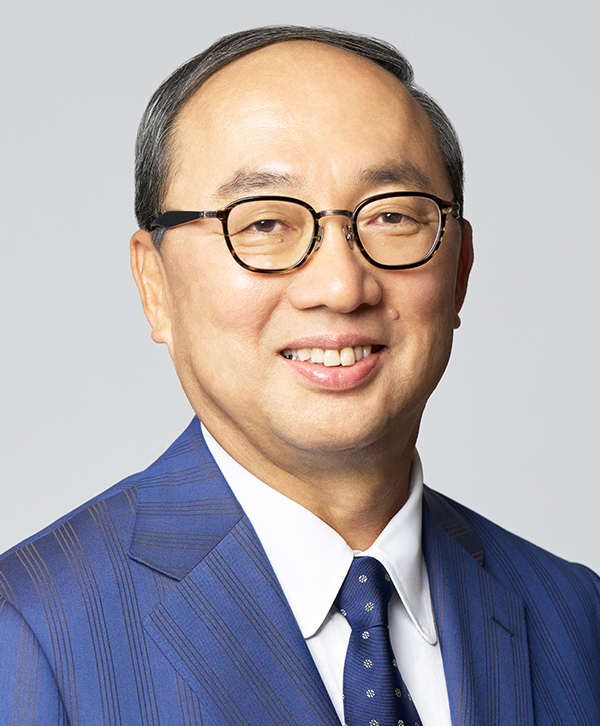
-
MITSUBISHI ELECTRIC CORPORATION, Member of the Board President & CEO
Kei Uruma
Professional Experience
Jun 2024 Director, Member of the Nomination Committee Representative Executive Officer, President & CEO
Jul 2021 Director Representative Executive Officer, President & CEO
Apr 2021 Director Representative Executive Officer, Senior Vice President, Export Control, Corporate Strategic Planning and Operations of Associated Companies, CSO (Senior General Manager, Corporate Strategic Planning Div.)
Jun 2020 Director Representative Executive Officer, Senior Vice President, Corporate Strategic Planning and Operations of Associated Companies (Senior General Manager, Corporate Strategic Planning Div.)
Apr 2020 Representative Executive Officer, Senior Vice President, Corporate Strategic Planning and Operations of Associated Companies (Senior General Manager, Corporate Strategic Planning Div.)
Oct 2019 Senior Vice President, Group President, Public Utility Systems
Apr 2018 Senior Vice President, Group President, Public Utility Systems, Senior General Manager, ITS Business Development Group
Apr 2017 Executive Officer, Group President, Public Utility Systems Senior General Manager, ITS Business Development Group
Apr 2015 Executive Officer, Group President, Factory Automation Systems
Apr 2012 President and CEO, Mitsubishi Electric Europe B.V. Pan European Representative of Mitsubishi Electric
Apr 2006 Senior General Manager, Planning & Administration Dept. Factory Automation Systems Group.
Jun 2004 Director and Germany Branch President, Mitsubishi Electric Europe B.V. PMD, Product Marketing Director, Factory Automation Systems Group.
Apr 1982 Joined Mitsubishi Electric Corporation
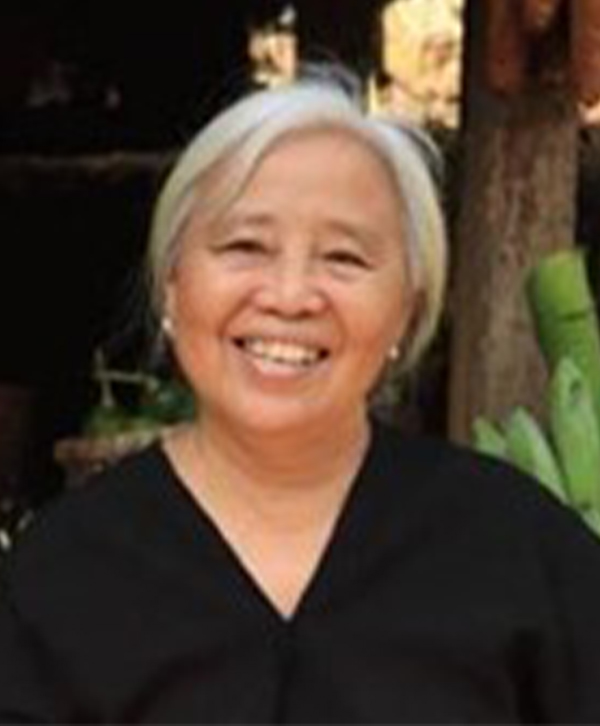
-
INI - Innovation Network International, Director
Wallapa van Willenswaard
After graduating from the Faculty of Arts of Chulalongkorn University, she served as the founding director of the non-profit organization Spirit in Education Movement. She and her husband have led several international programs focused on food and community development, including Towards Organic Asia, Mindful Markets Asia Forum, and Young Food Project. She is co-founder of INI-Innovation Network International, where they are active in integrating food, education, and community-based practice and research.
Recently, Wallapa was appointed to the Inner Council of the Consciousness Food System Alliance (CoFSA), convened by UNDP, and is also a member of the World Farmers' Markets Coalition supported by FAO. Her work in food system transformation has been part of the publication of Springer Nature's ‘Service Design for ThaiHealth Food Program: Exploring Participatory Policy Development’
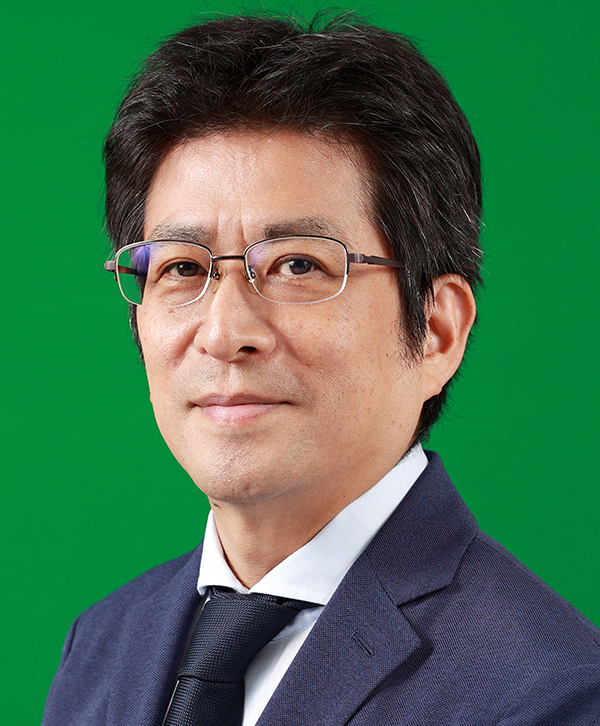
-
THE YOMIURI SHIMBUN, Chief Officer, YOMIURI RESEARCH INSTITUTE
Toshihiko Yada
Toshihiko Yada
The Yomiuri Shimbun
Corporate Officer Chief Officer, Yomiuri Research Institute
Born in 1969, Mr.Yada graduated from Hitotsubashi University in 1992 and joined the Yomiuri Shimbun. He has served as manager of the Office of Secretaries, editor of Economic News Department, Deputy Managing Editor, and Senior Secretary to the President.
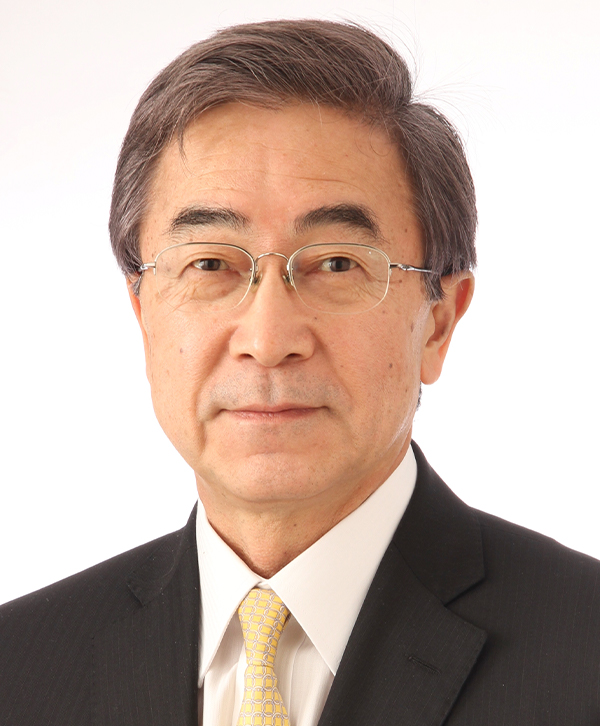
-
people first, CEO
Yosuke Yagi
Yosuke Yagi joined Nippon Kokan Co., Ltd. after graduating from the Faculty of Economics at Kyoto University in 1980. In 1992, he earned a Master of Science degree from the MIT Sloan School of Management. In 1996, he was seconded to National Steel Corporation, where he served as the assistant to the CEO. He joined GE in 1999 and held various HR leadership roles across multiple businesses, primarily in Asia. In 2012, he was appointed Executive Vice President of LIXIL Group Corporation. In 2017, he founded People First Inc., where he currently serves as President and CEO. He also serves as an Outside Director of TBS Holdings, an Auditor at GE Healthcare Japan, and a Director at IWNC Co., Ltd.
Throughout his career, he has consistently worked in the HR field, leading organizational and corporate transformations. He is currently engaged in a wide range of people-focused initiatives, including management and HR reform, executive coaching, development of HR professionals and business leaders, and promoting diversity and inclusion. He is the author of The Vision of Strategic HR.
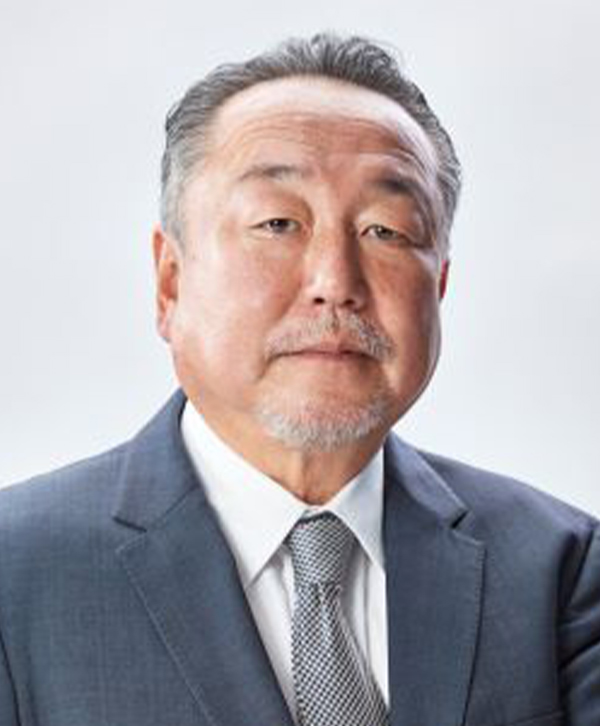
-
HAKUHODO inc., Director & Senior Corporate Officer
Satoru Yamada
Born in 1964, he joined Hakuhodo in 1989, beginning his career in sales. He later moved into the media business at Hakuhodo DY Media Partners, where he held a series of management positions, including Group Manager, Department Manager, and General Manager. His advancement to the executive level came in 2018 with his appointment as Executive Officer, serving as General Manager of the Media Business Management Center. He was appointed Director and Executive Officer in 2021 and subsequently promoted to Director and Managing Executive Officer in 2023, in which capacity he headed the Content Business Center. Since April 2025, he has served in his current role as Director and Managing Executive Officer of Hakuhodo and Head of the Content Design Business Unit. He also concurrently serves as President and Representative Director of HUUM Inc.
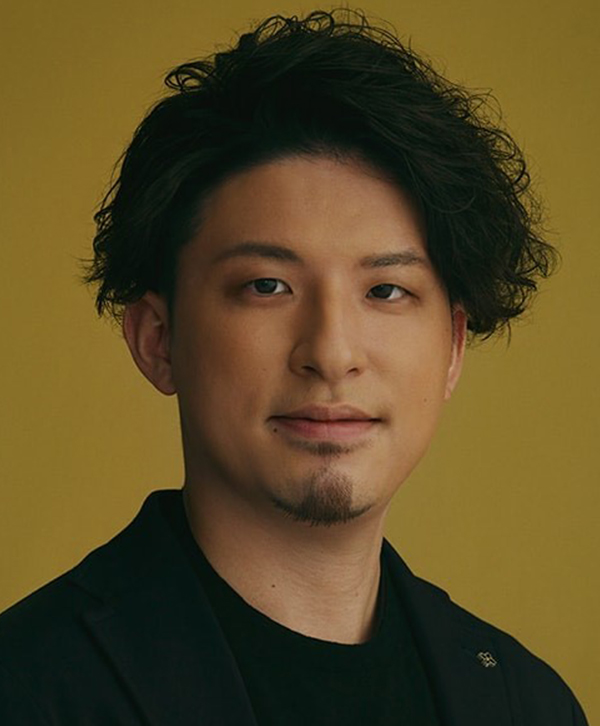
-
Yamauchi-No.10 Family Office, Founder & CEO
Banjo Yamauchi
Banjo is the fifth generation of the Yamauchi family, the founding family of Nintendo. Banjo founded and leads the Yamauchi No.10 Family Office (YFO) in 2020 and the
Yamauchi Foundation in 2021. He is also a member of the Board of Directors of Yamauchi KK, a family company that was founded in 1933 as the Nintendo
Cooperative. Although Banjo is a grandson of his grandfather who was the third CEO of Nintendo, Banjo inherited his grandfather’s fortune as an adopted son along with
Banjo’s father and two aunts, in 2013 when he was just 20 years old.
YFO is considered the pioneer of active family offices in Japan. Especially for its unique investment strategies using activist, private equity strategies. YFO acquired
100% of the shares of Taiyo Pacific Partners, a Seale-based activist fund, in 2021. Taiyo has an over 20-year history of investing in Japanese public companies.
The Yamauchi Foundation is based in Kyoto, the hometown of the Yamauchi family. It is developing the area where Nintendo was founded in Kyoto City and inviting unique and talented creators from around the world to run a community. It is also working with the Boston Commune, centered at Harvard University, on a project to create a global agenda for 2030 and beyond based on Japanese and Eastern philosophy.
Career Experience
September 2021 – Present Yamauchi Foundation (Managing Director)
June 2020 - Present Yamauchi-No.10 Family Office (Founder & CEO)
April 2019 - Present Yamauchi Corporation (Director and Executive Officer)
April 2016-2019 Hakuhodo Inc.
Education
2023 - Present Stanford University; Visiting Scholar, Walter H. Shorenstein Asia-Pacific Research Center
2011 - 2016 Waseda University; Faculty of Political Science and Economics
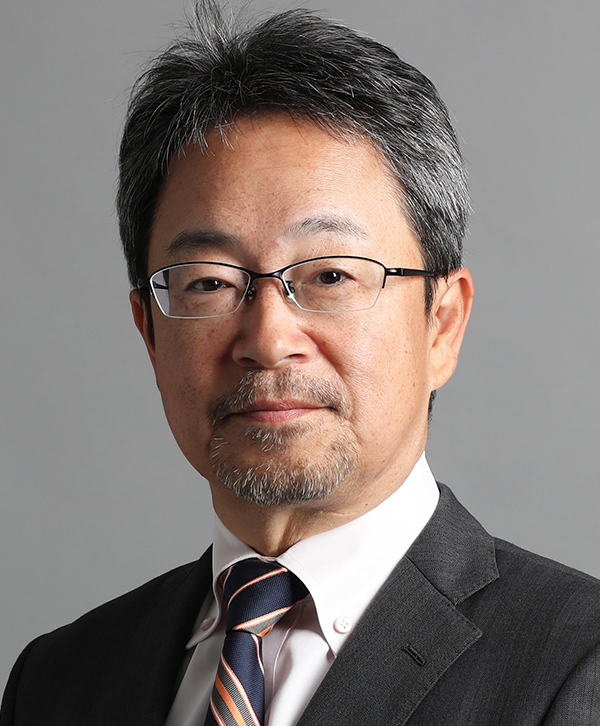
-
Nikkei Inc., Senior Managing Director, Editor-in-Chief
Hiroshi Yamazaki
1987 Graduated from Waseda University, BA, School of Political Science and Economics Joined Nikkei Inc. Staff Writer, Economics News Dept., Osaka
1990 Studied French in Paris
1992 Staff Writer, Economic News Dept., Tokyo
1998 Correspondent, Paris bureau
2002 Staff Writer, Economic News Dept., Tokyo
2003 Deputy Editor, Economic News Dept., Tokyo
2012 Editor, Economic News Dept., Tokyo
2013 Deputy Manager, Digital Strategy and Planning Unit, Tokyo
2014 General Manager, Digital Strategy and Planning Unit, Tokyo
2016 Editor, Economic News Dept., Tokyo
2018 General Manager, Digital Strategy and Planning Unit, Tokyo
2019 News Editor, Tokyo Editorial Bureau
2020 Executive Officer & News Editor, Tokyo Editorial Bureau
2022 Managing Executive Officer in charge of digital strategy and planning
2023 Managing Director, Editor in Chief
2025 Senior Managing Director, Editor in Chief
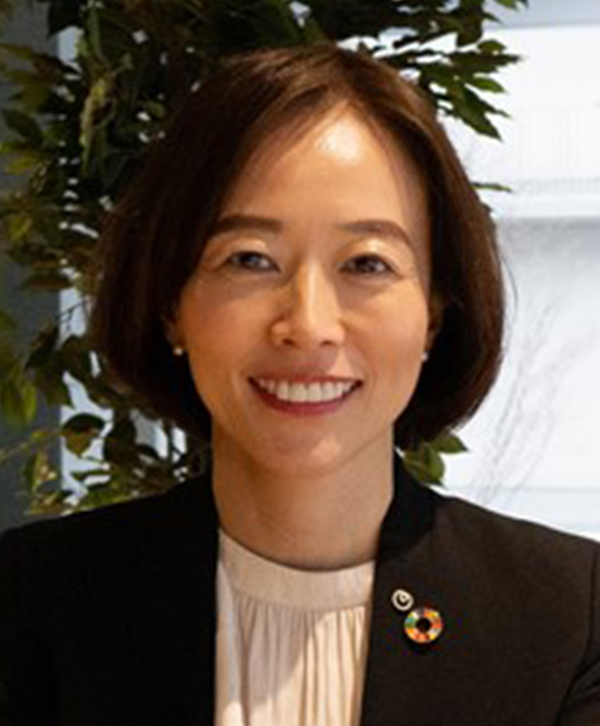
-
NTT WEST,Inc Kyoto Branch Office, Vice President
Sakura Yokota
Joined the company in 1998. Engaged in solution sales, planning and promotion, and call center operations within the business sales division.
Since July 2021, has served as the first Director of the ESG Promotion Office, leading initiatives related to the environment, human rights, and Diversity & Inclusion (D&I) to help realize a sustainable society as envisioned by the company.
Assumed current position in July 2024.
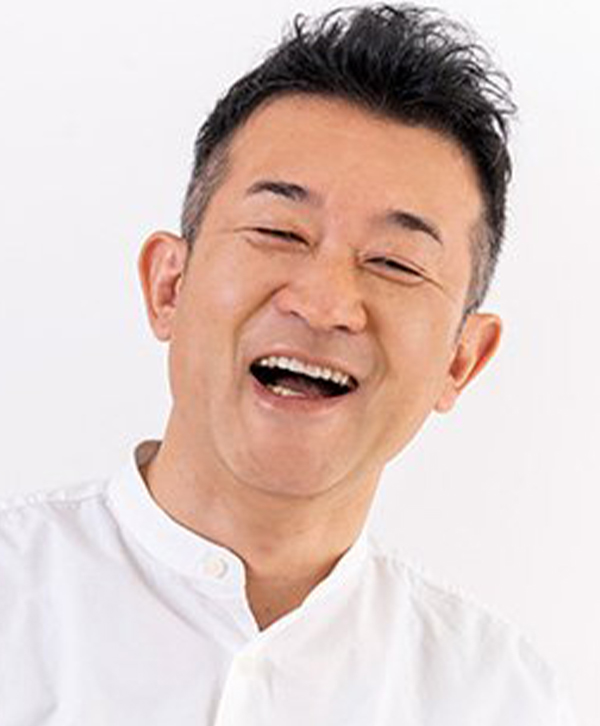
-
istyle Inc., Representative Director Chairperson and CEO
Tetsuro Yoshimatsu
Graduated from the Faculty of Industrial Science and Technology at Tokyo University of Science. Worked at Andersen Consulting (now Accenture PLC) before founding istyle in July of 1999. Assumed role of Representative Director and President of the company. In December of 1999, the cosmetics and beauty site @cosme was launched. In 2012, the company was listed on the First Section of the Tokyo Stock Exchange. He currently provides support to those in the arts and athletics through the istyle Art Sports Foundation. He also serves as Vice Chairman of the Tokyo 2020 Olympic and Paralympic Games Committee of the Association of Corporate Executives of Japan.
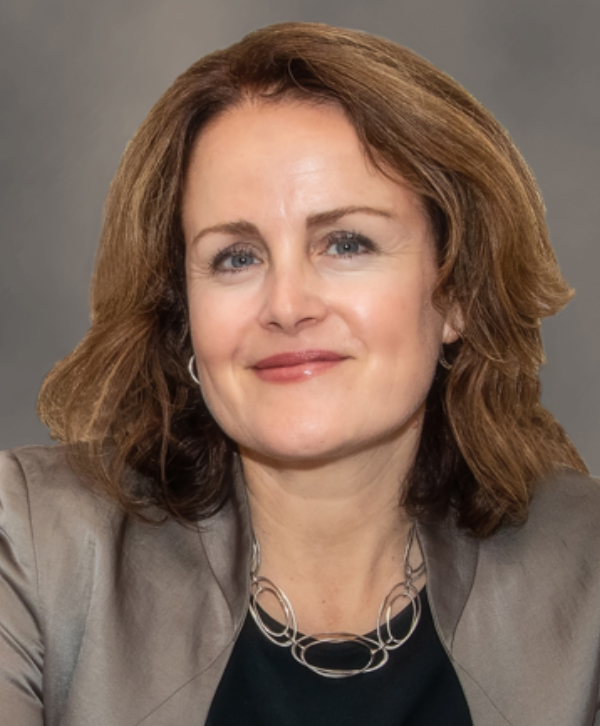
-
The American Chamber of Commerce in Japan, Executive Director
Laura Younger
Laura Younger is Executive Director of the American Chamber of Commerce in Japan (ACCJ), one of the
most influential foreign business organizations in Japan since 1948.
Dedicated to further developing commerce between the U.S. and Japan, promoting the business interests
of its members and improving the international business environment in Japan including the commitment
to demonstrating responsible corporate citizenship, the ACCJ is a primary hub for advocacy, thought
leadership and business networking to approximately 3,000 members.
Ms. Younger was appointed Executive Director in 2015, bringing together more than 10 years of service
at the Chamber and prior experience as head of HR at a Japanese company. Additionally, Ms. Younger
also serves as a member of the Advisory Board to Catalyst Japan, a member of the McGill University
Desautels MBA Japan Advisory Board, and President Emeritus of the Association for Women in Finance.
Ms. Younger holds an MBA from McGill University and is a graduate of the University of Toronto
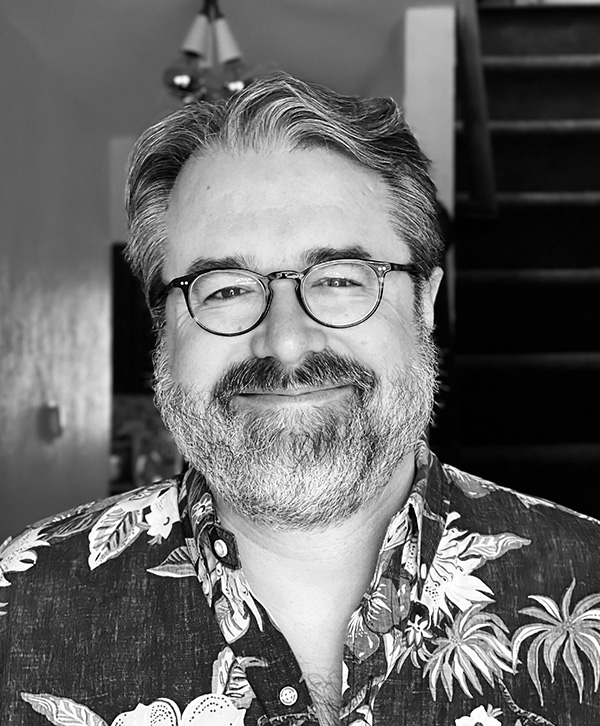
-
Associate Professor of Philosophy, New School for Social Research
Zed Adams
Zed Adams works on issues at the intersection of philosophy of technology, philosophy of mind, and philosophy of art. In 2020, he co-founded the Institute for Philosophy and the New Humanities (IPNH), an interdisciplinary collaboration between The New School, the University of Bonn, and the Kyoto Institute of Philosophy. The IPNH runs seminars and talks that draw upon the humanities as a resource for thinking critically about the transformative effects of technology on society. He is currently working on a book on the aesthetics and politics of sampling in early 90s hip hop. He is the author of On the Genealogy of Color: A Case Study in Historicized Conceptual Analysis and the co-editor of Giving a Damn: Essays in Dialogue with John Haugeland. He is currently the Vice President of Technology at The New School.
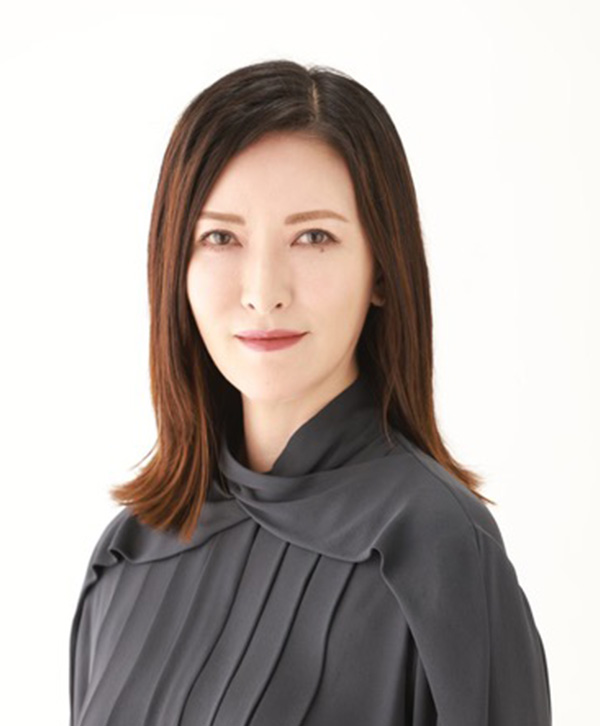
-
Professor, Waseda University
Noriko Endo
Ph.D. of Energy Science at the Graduate School of Energy Science, Kyoto University. She specializes in energy policy and risk and security governance.
After serving as deputy editor of an economics magazine, she engaged in research at the University of Tokyo. In 2015, she became a project professor at Keio University. In 2017, she was selected as an Abe Fellow and researched in the United States. She has been a professor at Waseda University since 2024. She currently has a research project on energy and economic security.
She received the 14th Osaragi Jiro Rondan Award for her book "Studying the Nuclear Damage Compensation System: Considerations from the TEPCO Fukushima Nuclear Accident" (Iwanami).She is a member of the Fiscal System Council, the National Security Committee of the National Space Policy Committee, the Commerce and Trade Committee of the Industrial Structure Council, the Aircraft Industry Subcommittee of the Industrial Structure Council, the Basic Policy Subcommittee of the Advisory Committee for Natural Resources and Energy, the Atomic Energy Subcommittee of the Advisory Committee for Natural Resources and Energy, the Expert Council for Strengthening the Industrial and Technological Base for Economic Security, and the Expert Council for Fundamental Strengthening of Defense Capabilities. She is an advisor to the Ministry of Defense and a member of the Defense Science and Technology Committee. She also serves as a director of NTT Corporation and Hankyu Hanshin Holdings, Inc.
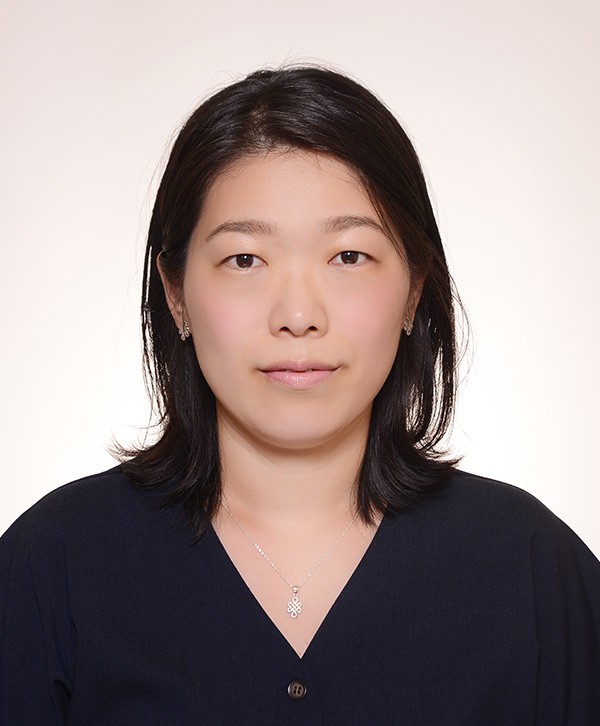
-
Assistant professor, Kyoto University
Kaori Horiuchi
Biography:
Ph.D. at the Graduate School of Environmental Studies, Tohoku University in 2020.
Currently a Program-Specific Assistant Professor at the Hakubi Center, Kyoto University.
The author of "Considering the Mongolian Border in the Qing Dynasty: Governance and Migration in Nomadic Societies" (in Japanese, 2022).
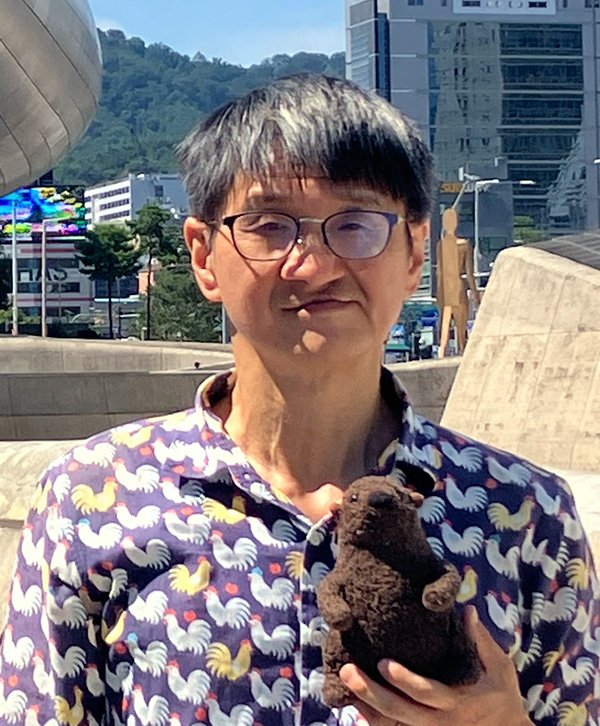
-
professor, Kyoto University, Graduate School of Letters
Tetsuji Iseda
Professor at Graduate School of Letters, Kyoto University. Graduated from Faculty of Letters, Kyoto University (1991), received Ph.D. in 2001 (University of Maryland, philosophy). Employed as Lecturer at School of Information and Sciences, Nagoya University, Associate Professor at Graduate School of Information Science, Nagoya University, Associate Professor at Graduate School of Letters, Kyoto University, and has been at the current position from 2022. specialty areas are philosophy of science and ethics. Author of Philosophy of Science and Pseudoscience (in Japanese, 2003, Nagoya University Press) and other books.
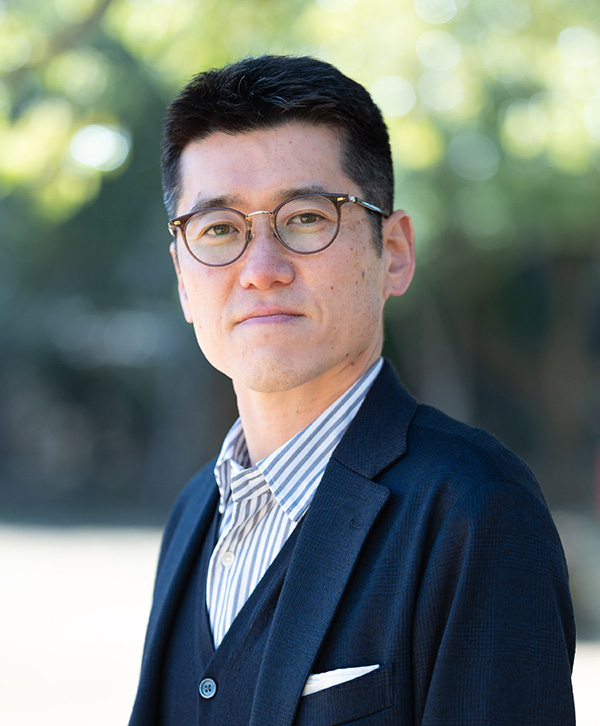
-
Professor, KANSAI UNIVERSITY Faculty of Business Commerce
Yoshiki Kageyama
Professor, Faculty of Business and Commerce, Kansai University. PhD in Business Administration. Born in Toyonaka city, Osaka in 1977. Graduated from Osaka Prefectural Kitano High School, Waseda University's Faculty of Science and Engineering, and Waseda University's Graduate School of Science and Engineering. Joined Sharp Corporation in 2003. Graduated from Kobe University's Graduate School of Business Administration. Full-time Lecturer at Department of Management Science, Faculty of Economics, Dokkyo University in 2013. Associate Professor in 2017. Associate Professor at Faculty of Business and Commerce, Kansai University in 2022. Current position since 2024.
Specialty: Innovation, Management Theory, Management, Product Development.
Book (Japanese): Creating Value to Achieve De-Commoditization (Chuokeizai-Sha Holdings, Inc., 2019), Why Businessmen Need Management Studies (Crossmedia Publishing, Inc., 2019), What Capable People Have in Common (Diamond, Inc., 2018), “Foundational Concept” for Product Development (Co-authorship, Hakuto-Shobo Publishing Company, Forthcoming publication in 2025).
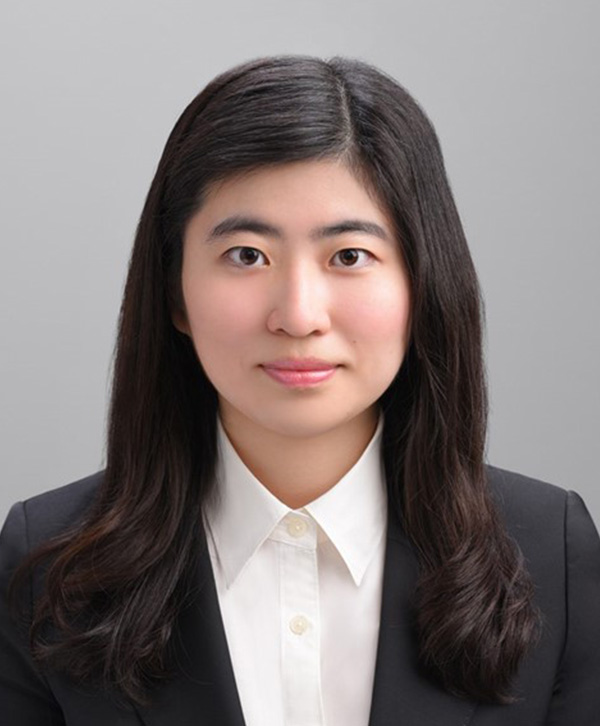
-
Assistant Professor, Hakubi Center & Graduate School of Law, Kyoto University
Miki Kadota
Miki Kadota is working as an assistant professor at the Hakubi Center / Graduate School of Law at Kyoto University. Specializing in constitutional law and assembly law, she obtained a PhD in Law from Keio University (Tokyo) in March 2023 and published a monographie based on my dissertation titled "The Freedom of Assembly and the Right to 'Place'. " Currently she also works on the concept of chilling effect and the differences between physical assembly and expressive activities in digital spaces. She has experiences as a visiting researcher at institutions such as the Max Planck Institute (Freiburg i.Br.) and the University of Zurich, actively participating in numerous international collaborative research projects as well as domestic research projects.
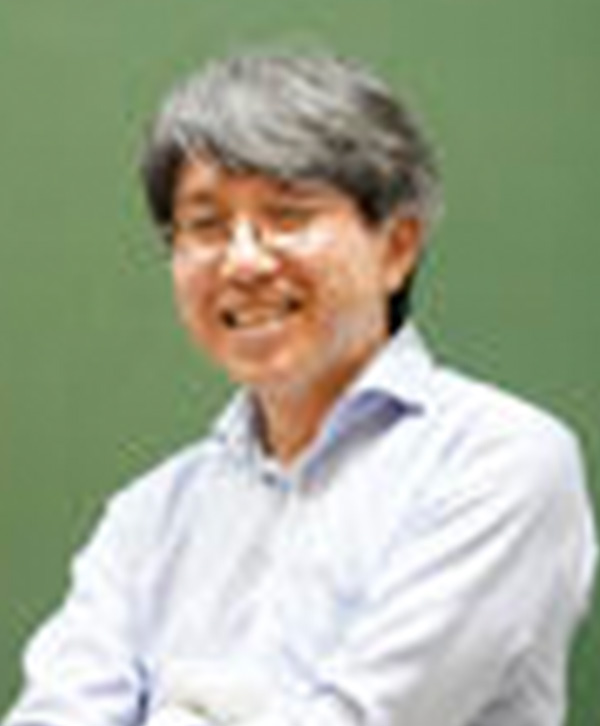
-
Professor, The University of Osaka
Atsuo Kishimoto
Affiliation
Professor, Osaka University
(Concurrent)
(Concurrent)Degree
PhD economics(Mar, 1998, Kyoto University) https://researchmap.jp/kishimoto-atsuo
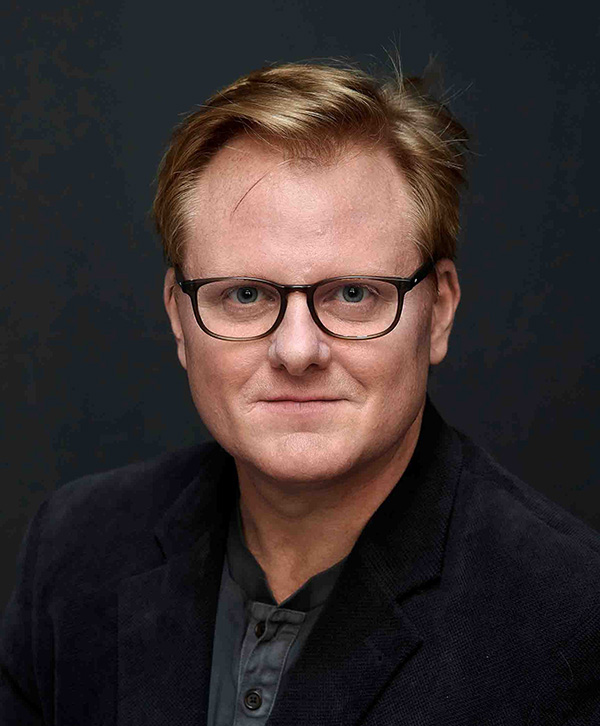
-
Professor of Comparative Literature, The New School for Social Research
Paul Kottman
Paul A. Kottman is Professor of Comparative Literature and Chair of Liberal Studies at the New School for Social Research in New York City. He is the author of Hegel, Shakespeare and Modernity (in Chinese, 2023), Love as Human Freedom (Stanford 2018), Tragic Conditions in Shakespeare (Johns Hopkins, 2009) and A Politics of the Scene (Stanford, 2007). He is also the editor of Philosophers on Shakespeare, The Art of Hegel's Aesthetics, The Insistence of Art and the editor of the book series, Square One: First Order Questions in the Humanities for Stanford University Press.
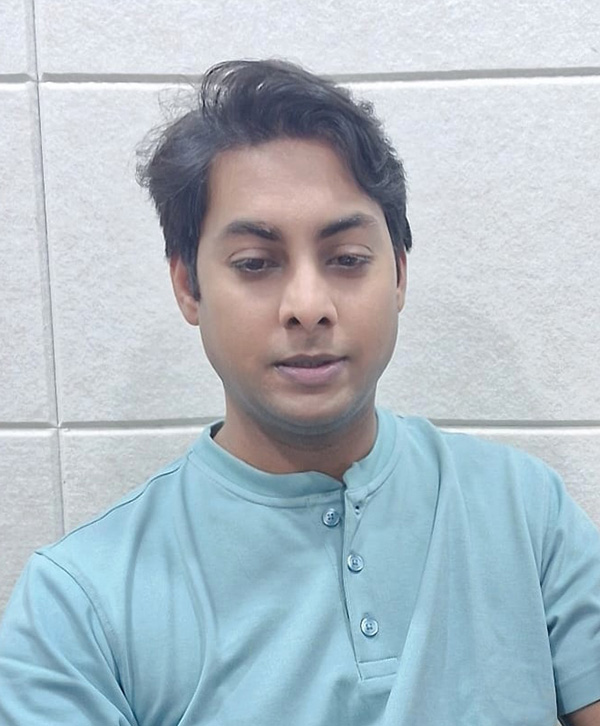
-
Assistant Professor, Lakshmibai College, University of Delhi
Prashant Kumar
Prashant Kumar teaches philosophy at Lakshmibai College, University of Delhi. He works primarily in ontology, metaontology, philosophy of mind, and artificial intelligence. He will soon be joining the University of Bonn for the project Desirable AI, where he will examine the role of human subjectivity in imagining AI. He has published widely in reputed academic journals.
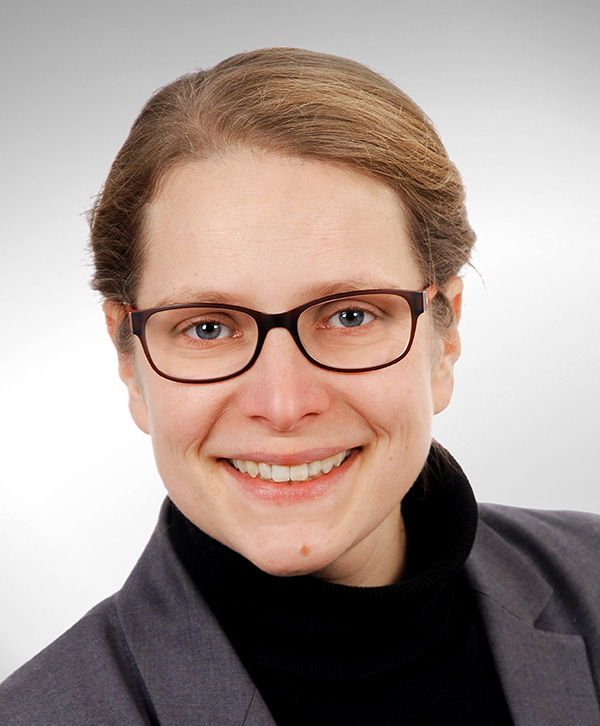
-
Researcher, project manager, University of Bonn, CST
Julia Maria Moenig
Dr. Julia Maria Mönig is a philosopher focusing on privacy and (AI) ethics. She is currently the project manager (philosophy) of the project "Zerfizierte KI" (Certified AI, University of Bonn). Previously, she worked at the Institute for Digital Ethics at Stuttgart Media University, and for the European Network of Research Ethics Committees (EUREC Office) on several third-party funded research projects in AI ethics, ICT ethics and ethics of highly automated cars. As a postdoc she did research at the Vrije Universiteit Brussel. She holds a PhD in philosophy (Passau University)
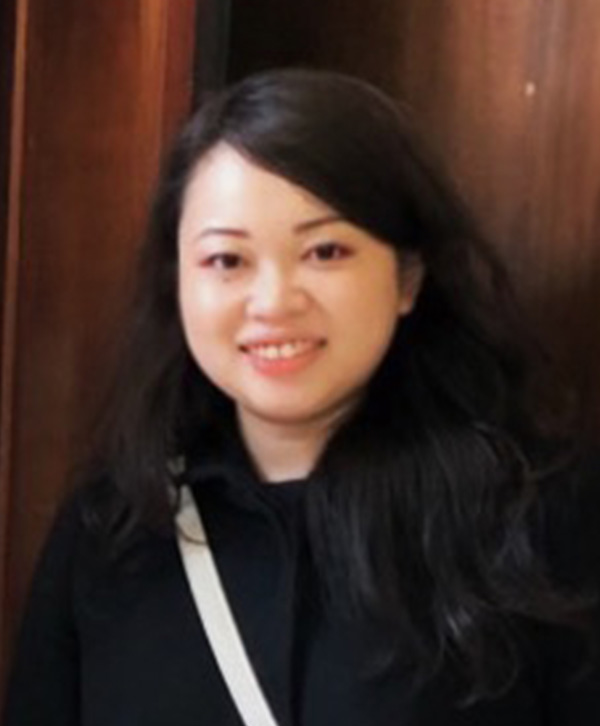
-
Program-Specific Assistant Professor, Kyoto University, The Hakubi Center for Advanced Research
Minami Murata
Minami Murata (Ph.D in Political Science) is a historian of Western political thought, particularly on the intellectual history of 19th-century Britain. She has been working on research projects for the Philosophical Radicals, including J. S. Mill and the reception studies of ancient Greece in Britain. Her current position is a Program-Specific Assistant Professor at The Hakubi Center for Advanced Research, Kyoto University. She has recently published her first monograph, “Greece-Intoxicated Men”: The Reception of Ancient Greek Thought by George Grote and J. S. Mill (Nakanishiya Shuppan, 2025, written in Japanese).
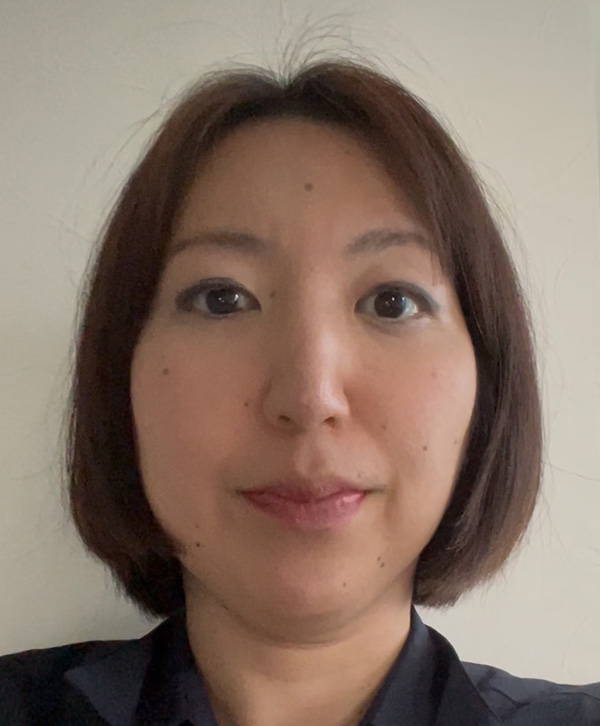
-
Program-Specific Associate Professor, Kyoto University (The Hakubi Center for Advanced Research/ Graduate School of Letters)
Aya Nakama
2019 Ph.D. Graduate School of Human and Environmental Studies, Kyoto University
2019-2022 JSPS Postdoctoral Research Fellow, Tokyo University of the Arts
2022/2023 Research Associate, Department of History of Art and Architecture, Harvard University
2023-2025 Associate, Department of History of Art and Architecture, Harvard University
2023- Associate Professor, The Hakubi Center for Advanced Research / Graduate School of Letters, Kyoto University
2025- Associate, Department of East Asian Languages and Civilizations, Harvard University

-
Professor, Yokohama National University
Ryosuke Takeuchi
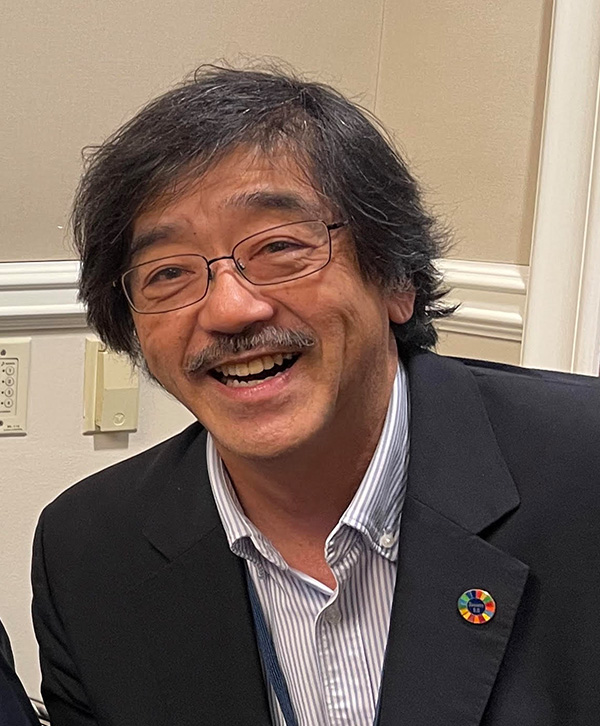
-
Lecturer, Kyoto University Graduate School of Business
Mitsuhiro Umezu
Former Professor of Business Ethics at Keio University Faculty of Business and Commerce. Currently he teaches at Kyoto University Graduate School of Business, Hitotsubashi Graduate School of Business Administration and Gakushuin Univerisity.
Ph.D. from Loyola University of Chicago, he is a seasoned scholar and advisor who bridges theory and practice, and he is dedicated his career to building corporate integrity from the ground up. From the lecture halls of Keio and Kyoto to consulting rooms of leading firms, Umezu blend deep philosophical insight with hands -on strategic guidance.
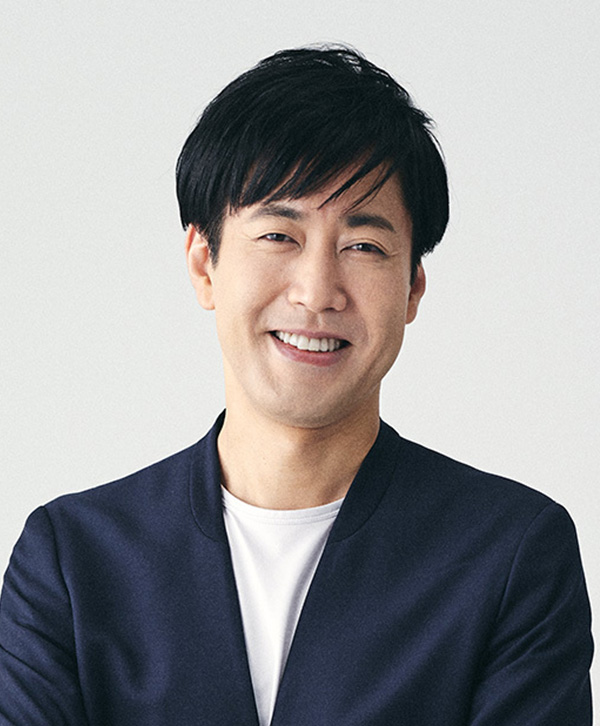
-
Professor, Department of Biosciences and Informatics, Faculty of Science and Technology, Keio University
Junichi Ushiba
〔Affiliation〕
Professor, Department of Biosciences and Informatics, Faculty of Science and Technology, Keio University〔Education〕
March 2001 Graduated with a Bachelor of Engineering in the Department of Physics and Information Science, Faculty of Science and Technology, Keio University
August 2002 Completed the Master's Program in the Department of Fundamental Science and Engineering, Graduate School of Science and Technology, Keio University (M.Eng. acquired)〔Professional Experience〕
March 2004 Completed the Ph.D. Program in the Department of Fundamental Science and Engineering, Graduate School of Science and Technology, Keio University (Ph.D. in Engineering acquired)
〔Professional Experience〕
Nov 2002 - Mar 2004 Research Assistant, Center of Excellence (COE) Program for "Understanding and Control of Life Function by System Biology," Ministry of Education, Culture, Sports, Science and Technology
Mar 2003 - Aug 2003 Visiting Researcher, Center for Sensory-Motor Interaction, Aalborg University, Denmark
Apr 2004 - Mar 2007 Research Associate, Department of Biosciences and Informatics, Faculty of Science and Technology, Keio University
Apr 2007 - Mar 2012 Assistant Professor, Department of Biosciences and Informatics, Faculty of Science and Technology, Keio University
Apr 2012 - Mar 2022 Associate Professor, Department of Biosciences and Informatics, Faculty of Science and Technology, Keio University
Apr 2014 - Mar 2019 Principal Investigator (concurrent), Institute for Fundamental Science and Engineering, Keio University
2018 Founded LIFESCAPES Inc. (formerly Connect Inc.), a company utilizing research outcomes
2019 President & CEO (concurrent), LIFESCAPES Inc., a company utilizing research outcomes
Apr 2022 - Present Professor, Department of Biosciences and Informatics, Faculty of Science and Technology, Keio University〔Awards〕
1.The Annual BCI Research Award 2024
Top 12 Nominees: Taiga Seri, Seitaro Iwama, Kurumi Adachi, Junichi Ushiba, “Intuitive avatar control through a non-invasive multimodal Brain-Computer Interface”, 2024.
2.The Annual BCI Research Award 2021
Top 12 Nominees: Ryotaro Hirose, Mori Fukuda, Daisuke Ito, Kohei Okuyama, Masumi Morishige, Masaaki Hayashi, Michiyuki Kawakami, Junichi Ushiba, “Clinical evidence in functional recovery of proximal arm muscles in post stroke patients using bihemispheric EEG sensorimotor rhythm neurofeedback”, 2021.
3.The Annual BCI Research Award 2019
Top 12 Nominees: Masaaki Hayashi, Nobuaki Mizuguchi, Shohei Tsuchimoto, Shoko Kasuga, Junichi Ushiba, “Neurofeedback of scalp EEG sensorimotor rhythm guides hemispheric activation of sensorimotor cortex”, 2019.
4.The Annual BCI Research Award 2017
Top 12 Nominees: Kenichi Takasaki, Fumio Liu, Miho Hiramoto, Kohei Okuyama, Michiyuki Kawakami, Katsuhiko Mizuno, Shoko Kasuga, Tomoyuki Noda, Jun Morimoto, Toshiyuki Fujiwara, Junichi Ushiba, Meigen Liu, “Targeted up-conditioning of contralesional corticospinal pathways promotes motor recovery in poststroke patients with severe chronic hemiplegia”, 2017.
5.6th Frontier Salon Nagase Award, Special Award
Awardee: Junichi Ushiba, “Neuromedical research using Brain-Machine Interface”, 2016.
6.Nakaya Award for Encouragement, Nakatani Foundation for the Advancement of Medical and Engineering Technology
Awardee: Junichi Ushiba, “Development of BMI to support the recovery of brain motor function”, 2015.
7.Minister of Education, Culture, Sports, Science and Technology Award in Science and Technology, The Young Scientists’ Prize
Awardee: Junichi Ushiba, “Neuromedical research using Brain-Machine Interface”, 2015.
8.The Annual BCI Research Award 2013
Top 10 Nominees: Yasunari Hashimoto, Tetsuo Ota, Masahiko Mukaino, Junichi Ushiba, “Motor recovery of chronic writer’s cramp by brain-computer interface rehabilitation”, 2013.
9.The Annual BCI Research Award 2012
Top 10 Nominees: Mitsuaki Takemi, Yoshihisa Masakado, Meigen Liu, Junichi Ushiba, “Online Estimate of Event-related Desynchronization by Hand Motor Imagery is Associated with Corticospinal Excitability-physiological Evidence for Brain-Computer Interface Based Neurorehabilitation”, 2012.
10.The Annual BCI Research Award 2010
Top 10 Nominees: Kimiko Kawashima, Shinichiro Shindo, Junichi Ushiba, Meigen Liu, “Neurorehabilitation for Chronic-Phase Stroke using Brain-Machine Interface”, 2010.
11.APCMBE・IFBME Young Investigator Award
Awardees: Yuji Takahashi, Junichi Ushiba, Yutaka Tomita, “The analytical method of neural codes using Frequencygram”, 6th Asian-Pacific Conference on Medical and Biological Engineering, Tsukuba International Congress Center, Apr, 2005.
12.The Japanese Association of Rehabilitation Medicine Paper Encouragement Award
Runner-up: Junichi Ushiba, Yoshihisa Masakado, Yoko Komune, Yutaka Tomita, “Compound projections from extensor carpi radialis longus to biceps brachii motoneurons in humans”, Jpn J Rehabil Med Vol. 40, pp. 600-609, 2003.
13.6th Japanese Society of Clinical Neurophysiology Encouragement Paper Award
Awardees: Yasuhiro Kagamiwara, Yoshihisa Masakado, Junichi Ushiba, “Methodology of PSTH: Relationship between delay time and stimulation effect”, Journal of the Japanese Society of Clinical Neurophysiology, Vol. 31, No. 3, pp. 300-308, 2003.〔Academic Papers〕
1.Iwama S, Ueno T, Fujimaki T, Ushiba J. Enhanced human sensorimotor integration via self-modulation of the somatosensory activity. iScience, 28(4):112145 [about 12 p.], 2025.
2.Iwama S, Tsuchimoto S, Mizuguchi N, Ushiba J. EEG decoding with spatiotemporal convolutional neural network for visualization and closed-loop control of sensorimotor activities: A simultaneous EEG-fMRI study. Human Brain Mapp, 45(9):e26767 [about 14 p.], 2024.
3.Kodama M, Iwama S, Morishige M, Ushiba J. Thirty-minute motor imagery exercise aided by EEG sensorimotor rhythm neurofeedback enhances morphing of sensorimotor cortices: a double-blind sham-controlled study. Cerebral Corrtex, 33(11):6573-6585, 2023.
4.Hayashi M, Okuyama K, Mizuguchi N, Hirose R, Okamoto T, Kawakami M, Ushiba J. Spatially bivariate EEG-neurofeedback can manipulate interhemispheric inhibition. eLife, 11:e76411 [about 29 p.], 2022.
5.Iwama S, Yanagisawa T, Hirose R, Ushiba J. Beta rhythmicity in human motor cortex reflects neural population coupling that modulates subsequent finger coordination stability. Commun Biol, 5(1):1375 [about 12 p.], 2022.
6.Hayashi M, Mizuguchi N, Tsuchimoto S, Ushiba J. Neurofeedback of scalp bi-hemispheric EEG sensorimotor rhythm guides hemispheric activation of sensorimotor cortex in the targeted hemisphere. Neuroimage, 23:117298 [about 15p.], 2020.
7.Iwama S, Tsuchimoto S, Hayashi M, Mizuguchi N, Ushiba J. Scalp electroencephalograms over ipsilateral sensorimotor cortex reflect contraction patterns of unilateral finger muscles. Neuroimage, 222:117249 [about 11 p.], 2020.
8.Hayashi M, Tsuchimoto S, Mizuguchi N, Miyatake M, Kasuga S, Ushiba J. Two-stage regression of high-density scalp electroencephalograms visualizes force regulation signaling during muscle contraction. Journal of Neural Engineering, 16(5):056020 [about 14p.], 2019.
9.Clausen J, Fetz E, Donoghue J, Ushiba J, Spőrhase U, Chandler J, Birbaumar N, Soekadar SR. Help, hope, and hype: Ethical dimensions of neuroprosthetics (Policy Forum). Science, 356(6345):1338-1339, 2017.
...and others.〔Books〕
1.Ushiba J. Chapter 3, Section 1: Cyborg Technology that Transforms Neural Function. In: Augmented Human (Supervised by: Junichi Rekimoto). N.T.S.: 61-71, Jan 2018.
2.Ushiba J. Chapter 4: What Should Technology Be Like to Support an Aging Society? In: Financial Gerontology: How to Extend "Healthy Life Expectancy" and "Asset Life Expectancy" (Edited by: Atsushi Seike). Toyo Keizai Inc.: 97-121, Apr 2017.
...and others.〔Area of Specialization and Research Themes〕
His area of specialization is rehabilitative neuroscience. Focusing on "plasticity," the mechanism by which the brain updates its functions, he is developing Brain-Machine Interface (BMI) technology to treat motor disabilities caused by stroke.
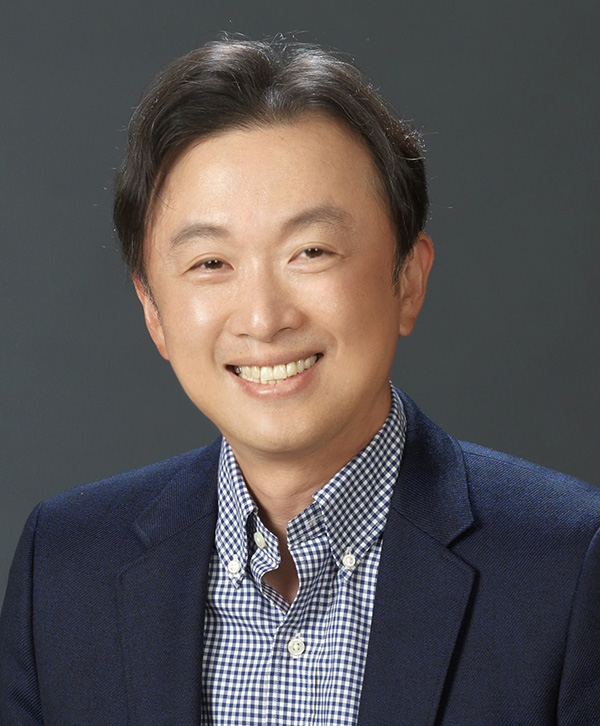
-
SK Japan, Vice President
Woosung Chey
Career
2025–Present: Executive Vice President, SK Japan Co., Ltd.
2020–2024:
President & CEO, SK Telecom Japan Co., Ltd.
Executive Officer, SK Telecom Global Synergy
CIO, SK Square
Executive Officer, SK hynix SK ICT Japan
2013–2018: Head of Tokyo Office, SK Telecom
2011–2012: Future Business Promotion Headquarters, SK Telecom
2005–2010: New Business Strategy Team, SK Telecom
2000-2005: LG Hitachieducation
Mar 1992 – Feb 2000: Bachelor of Business Administration, Inha University
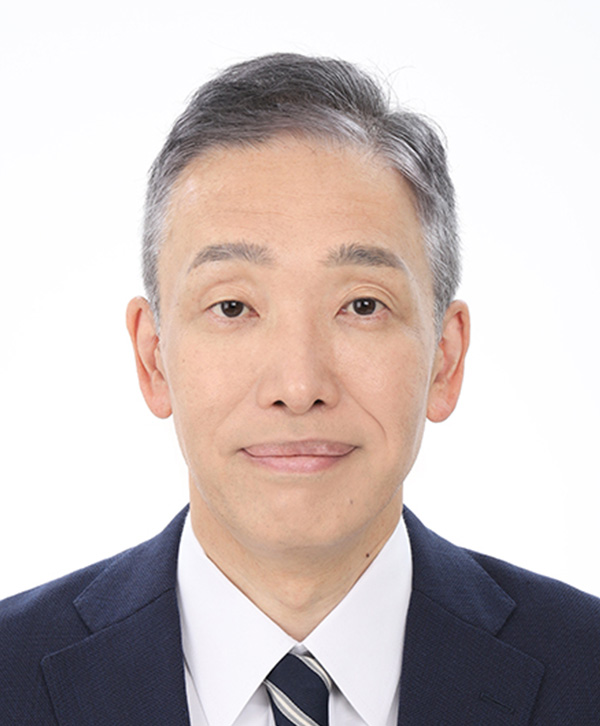
-
Ministry of Foreign Affairs (The Embassy of Japan in Washington DC), Minister (Political Affairs)
Kentaro Fujimoto
Kentaro Fujimoto joined the Ministry of Foreign Affairs in 1994 and has worked extensively in the fields of national security and the Japan-U.S. alliance. Since 2024, he has served as Minister for Political Affairs at the Embassy of Japan in Washington, D.C. Immediately prior to his assignment in Washington, he served as Ambassador for Policy Planning at the Ministry of Foreign Affairs.
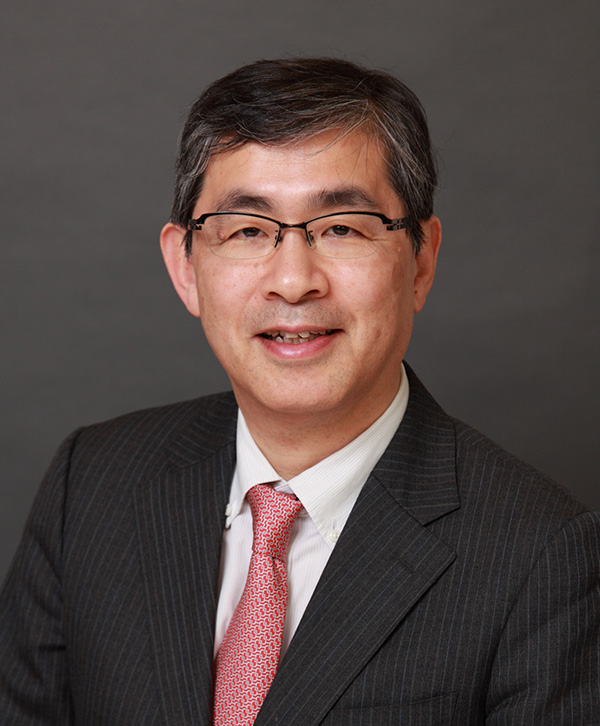
-
PARTNER, CITY-YUWA PARTNERS
Yukihiro Fujimoto
Professional Background
1989 Masuda & Ejiri
1993-1994 trainee at Sidley & Austin (Chicago)
1997-2007 Partner, Asahi Law Offices
2007-2012 Partner, Nishimura & Asahi
2013 to Present Partner, City-Yuwa PartnersEducation
1986 Waseda University (LL.B.)
1989 Legal Training and Research Institute
1993 University of Chicago Law School (LL.M.)
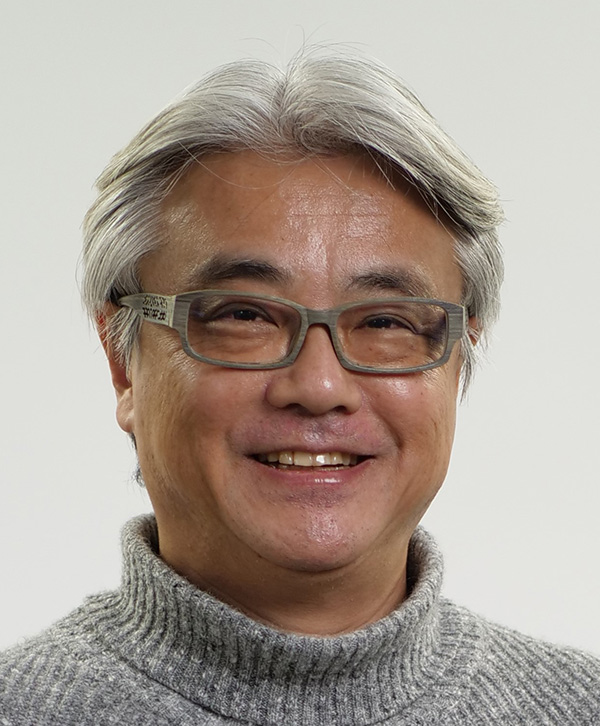
-
DESIGN.,Ltd., VICE CHAIRMAN/FOUNDER
Tomoyoshi Hirose
Yokohama National University, BA in Economics Law
Mr. Hirose, managed the Pension Management department at Mitsui Trust Bank(currently Mitsui Sumitomo Trust Bank)from 1982. In 1999, joined Barclays Global Investors. Under the 2009 merger with BlackRock, became COO of the Global Client Group in Japan. In 2013, founded Money-Design as CEO. In 2017,Vice Chairman.
From 2021 to 2025, joint research with Prof.Yasuo Deguchi on "What does it mean for people to invest?" (conceptual analysis and value proposition of "investment as self-development")
(J) https://www.kyoto-u.ac.jp/ja/research-news/2025-03-31-0
(E) https://www.kyoto-u.ac.jp/en/research-news/2025-05-20Served as external committee member of the Pension Fund Association’s Basic Policy Bylaws Review Committee and the Tokyo Stock Exchange’s Derivatives Advisory Committee etc.,
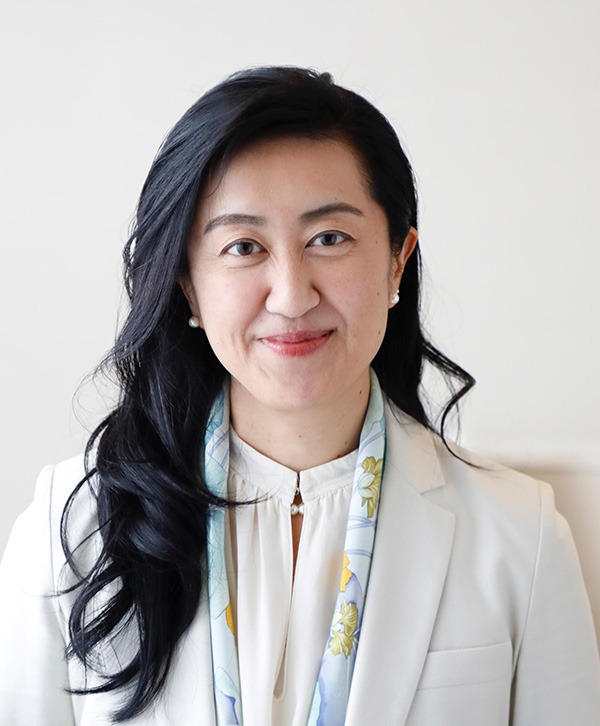
-
Yamauchi Foundation, Director
Kumiko Hori
Starting her career at the National Centre for Human Rights in 2000, Kumiko pursued her professional path in social sustainability domain in both public and private sectors. She had been based in Hong Kong as the Regional Head of Social Impact, UBS AG, leading its philanthropic initiatives in 13 markets across APAC until 2023.
M.A. in Thanatology from University of Reading, and SEP at Stanford Graduate School of Business.
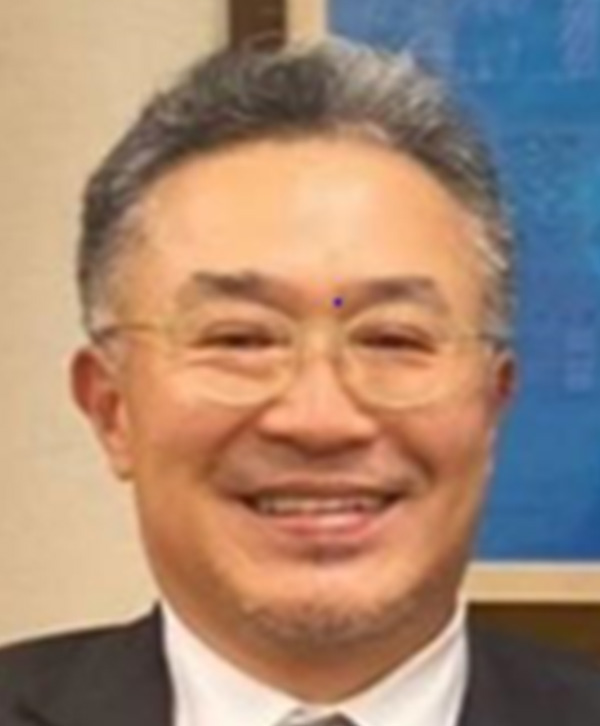
-
SK Hynix Japan, Advisor
Younghan Kang
· Education
1979-1985 Bachelor's degree of Political Science and Economics, Sungkyunkwan University (including 2.5 years of military service)
1986-1989 Master's degree of Sociology, the University of Tokyo· Career
April 1989-June 1995: The Bank of Tokyo as part of the first class of international career track employees (Head Office Foreign Exchange and Funds Department, Akasaka Branch, Seoul Branch)
July 1995-December 1999: Boram Bank (International Department, Singapore Office Manager, Jakarta Subsidiary)
January 2000-February 2010: Founded and managed KHI in Jakarta
March 2010-February 2019: CEO of JJ InfraDent (Boston, USA)
2019 March to December 2024: Exective Advisor, SK Hynix Japan Inc.
January 2025 - present: Excevtive Advisor, SK Japan Inc.
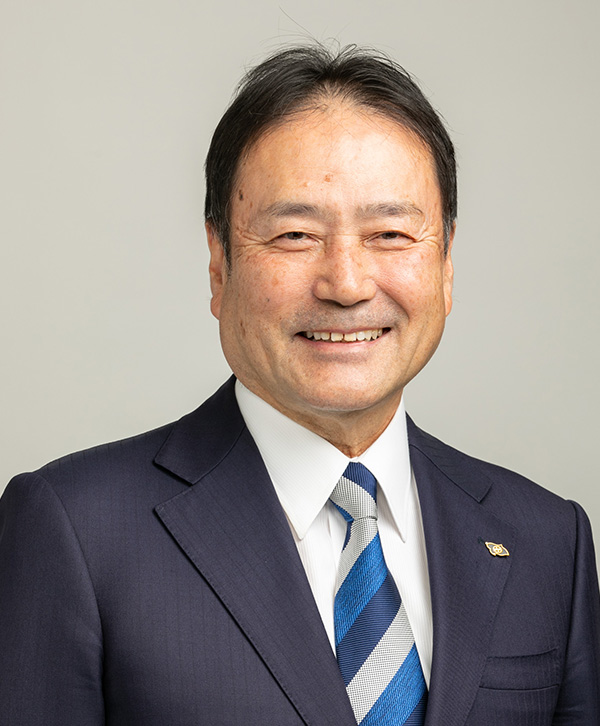
-
Kawasaki Heavy Industries,Ltd., Chairman of the Board
Yoshinori Kanehana
PERSONAL
Date of Birth:February 19, 1954
Permanent Domicile:Hyogo Prefecture, JapanEDUCATIONAL
1976 March Graduated from Osaka University,
The Department of Bachelor of Engineering
CAREER RECORD
1976 April Joined Kawasaki Heavy Industries, Ltd.
Engineer, KCV (Kawasaki Computer-Controlled Vehicle System) Development
Office, Rolling Stock Group
1977 April Engineer, AGT System Dept., Rolling Stock Group
1988 April Assistant Manager, Engineering Section, Engineering Dept.,
Rolling Stock Group
1988 October Assistant Manager, Stationed at London Office of Kawasaki Heavy Industries,
Ltd.
1991 April Assistant Manager, Seconded to Kawasaki Heavy Industries (UK), Ltd.
1994 April Manager, Seconded to Kawasaki Heavy Industries (UK), Ltd.
1994 April Manager, Engineering Dept., Engineering Div., Rolling Stock Group
1999 April Senior Manager, Seconded to Kawasaki Rail Car, Inc.
2005 April Associate Officer, Kawasaki Heavy Industries, Ltd.
Seconded to Kawasaki Rail Car, Inc.
2007 October Associate Officer, General Manager, Project Management Div.,
Rolling Stock Company
2008 December Associate Officer, General Manager, Project Management Center,
Rolling Stock Div., Rolling Stock Company
2009 April Executive Officer, Vice President of Rolling Stock Company
2011 April Managing Executive Officer, Vice President of Rolling Stock Company
2012 April Managing Executive Officer, General Manager, Marketing Division
2012 June Senior Vice President, General Manager, Marketing Division
2013 June Senior Vice President, President, Rolling Stock Company
2016 April Senior Executive Vice President of KHI
2016 June President of KHI
2018 April President and Chief Executive Officer of KHI
2020 June Chairman of the Board of KHI

-
The Asahi Shimbun Company, Managing Editor of Tokyo Head Office
Yoshiaki Kasuga
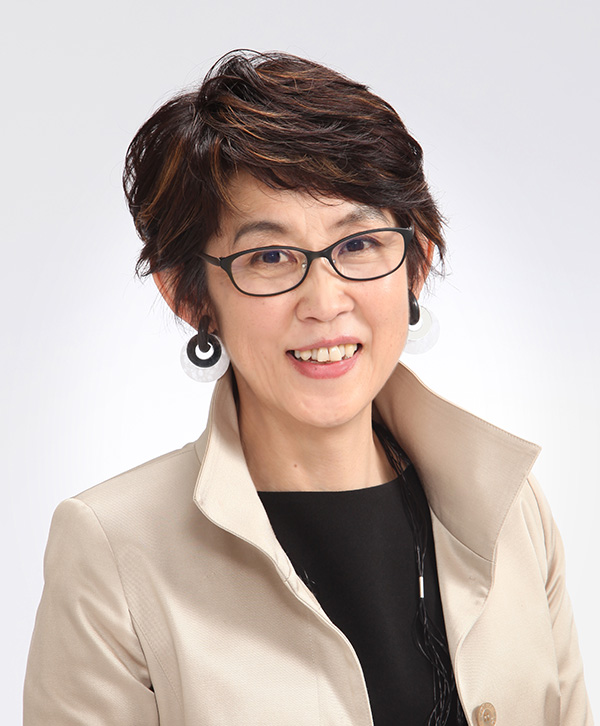
-
Certified NPO Creative Support Let's, Chairperson of the Board
Midori Kubota
Midori Kubota is President of the Certified NPO Creative Support Let’s in Hamamatsu, Japan. After graduating from the Graduate School of Fine Arts at Tokyo University of the Arts, she worked in environmental design. The birth of her eldest son, who has a severe intellectual disability, inspired her to establish Creative Support Let’s in 2000, supporting the expressive activities of people with disabilities.
In 2008, she launched the Takeshi Cultural Center project, placing individuals at the center of cultural creation. She later opened a disability welfare service facility and, in 2016, initiated the project Hyogen Miman, which regards individual existence itself as expression. In 2018, she opened Takeshi Cultural Center Renjaku-cho in downtown Hamamatsu, combining a welfare facility with a music studio, shared house, and guesthouse open to all.
Since 2021, she has led civic initiatives such as the Hamamatsu Chimata Meetings and Chimata Community Center, promoting inclusive urban development. Kubota has dedicated her career to social inclusion and the realization of a symbiotic society through art, earning the Art Encouragement Prizes (New Artist Award) from the Minister of Education, Culture, Sports, Science and Technology in 2017 and the Shizuoka Prefecture Cultural Encouragement Prize in 2022.
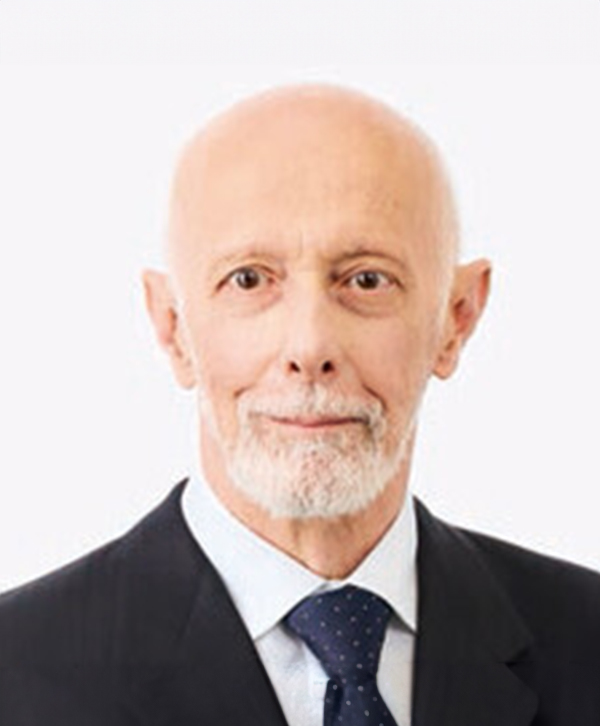
-
NTT, Inc., Member of the Board
Patrizio Mapelli
September 1982 Joined Olivetti
July 1995 Senior Partner of Ernst & Young
July 2000 Vice President of A. T. Kearney
October 2002 Senior Partner of Value Partners S.p.A.
October 2002 CEO of Value Team S.p.A. (currently NTT DATA Italia S.p.A.)
January 2013 CEO of NTT DATA EMEA LTD.
April 2018 Chairman of the Board of NTT DATA Italia S.p.A.
June 2020 Member of the Board of NTT DATA CORPORATION (currently NTT DATA Group Corporation)
September 2021 Director of the Board of NTT DATA Europe & Latam, S.L.U.
October 2022 Member of the Board of NTT DATA, Inc.
June 2025 Member of the Board of the Company (to present)
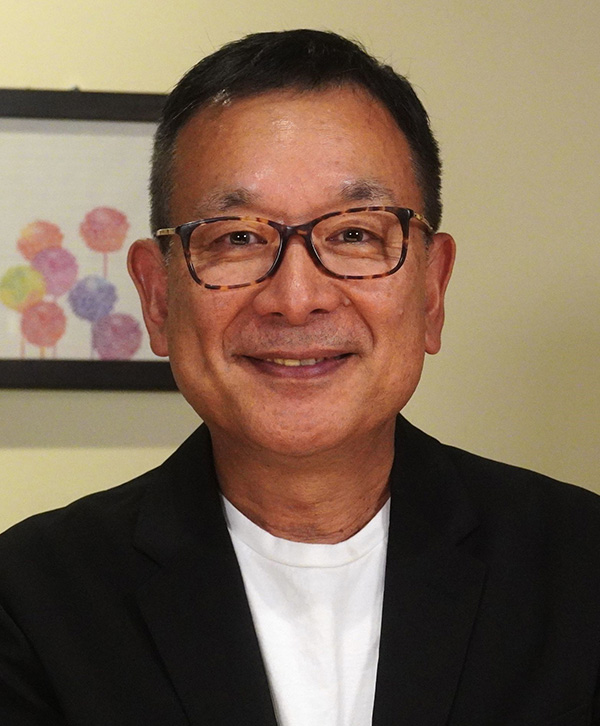
-
Badminton Association of Japan, President
Mitsuru Murai
Born in Kawagoe City, Saitama Prefecture Japan in 1959. After graduating from Saitama Prefectural Urawa High School and the Faculty of Law at Waseda University, he joined Japan Recruit Center Co., Ltd. (now Recruit Holdings). He served as the Human Resources Officer, Representative Director and President of Recruit Agent Co., Ltd., and President and Chairman of Recruit Global Family Hong Kong. He became the first person from a private company to be appointed as the 5th Chairman of the Japan Professional Soccer League (J.League). After completing four terms (8 years) in this position, he is currently an Honorary Member. He currently serves as the president of the Nippon Badminton Association, a member of the Badminton World Federation (BWF) board of directors, and a member of the Japanese Olympic Committee (JOC) board of directors.
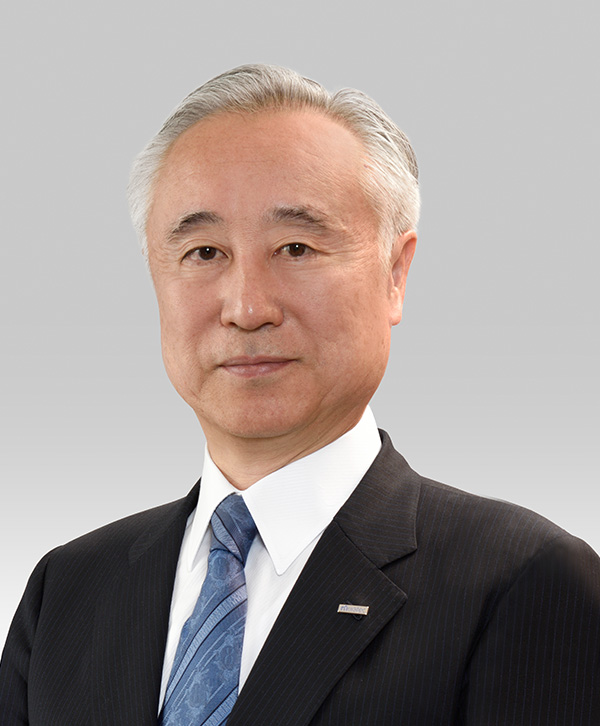
-
Murata Machinery, President & C.E.O.
Daisuke Murata
Daisuke Murata has served as President and CEO of Murata Machinery, since September 2003. He has held a variety of ascending leadership positions at Murata Machinery since 1987.
He also now serves as Chairman of the Japan Textile Machinery Association, as Chairman of the Japan Institute of Material Handling, and Superintendent of the Japan Business Machine and Information System Industries Association. In July 2017, he became the SEMI International Board member.
He graduated with a Bachelor of Economics from Hitotsubashi University in 1984 and obtained MBA from the Graduate School of Business at Stanford University in 1990.
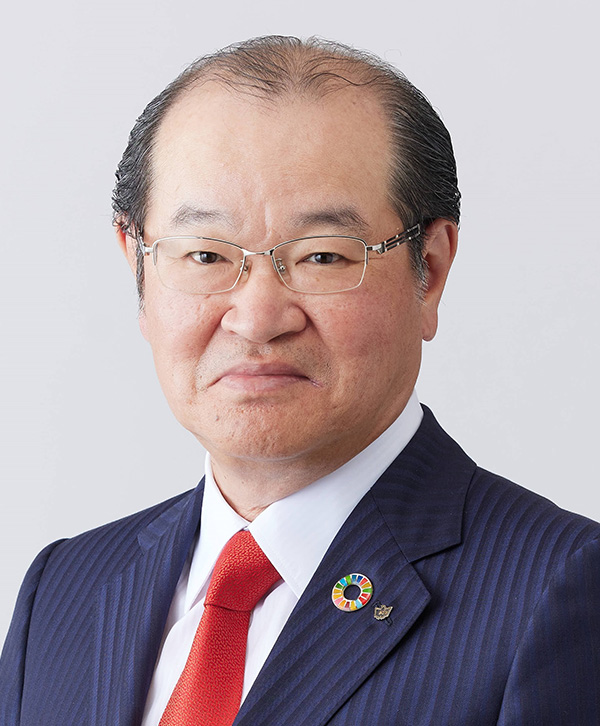
-
Daiwa Securities Group Inc., Executive Chairman of the Board
Seiji Nakata
Experience
Apr 2024 Chairman of the Board, Daiwa Securities Group Inc. Chairman of the Board, Daiwa Securities Co. Ltd.
Apr 2017 Member of the Board and President, Chief Executive Officer, Daiwa Securities Group Inc. President, Daiwa Securities Co. Ltd.
Jun 2016 Member of the Board and Deputy President, Chief Operating Officer, Daiwa Securities Group Inc. Deputy President, Daiwa Securities Co. Ltd.
Apr 2016 Deputy President, Chief Operating Officer, Daiwa Securities Group Inc. Deputy President, Daiwa Securities Co. Ltd.
Apr 2015 Senior Executive Managing Director, Daiwa Securities Group Inc. Member of the Board and Senior Executive Managing Director, Daiwa Securities Co. Ltd.
Apr 2012 Member of the Board, Senior Executive Managing Director, Daiwa Securities Co. Ltd.
Jun 2010 Member of the Board and Executive Managing Director, Daiwa Securities Capital Markets Co. Ltd.
Apr 2010 Member of the Board, Daiwa Securities Group Inc. Member of the Board and Executive Managing Director, Daiwa Securities Capital Markets Co. Ltd.
Jun 2009 Member of the Board and Executive Managing Director, Deputy Head of Planning and Personnel, Daiwa Securities Group Inc.
Apr 2009 Executive Managing Director, Deputy Head of Planning and Personnel, Daiwa Securities Group Inc.
Oct 2008 Corporate Executive Officer, Deputy Head of Planning and Personnel, Daiwa Securities Group Inc.
Apr 2007 Corporate Executive Officer, Deputy Head of Planning and Personnel, and Managing Director of Corporate Planning Dept., Daiwa Securities Group Inc.
Apr 2006 Senior Managing Director and Head of Planning, Daiwa Securities SMBC Co. Ltd.
Apr 2005 Managing Director of Product Strategy Dept., Daiwa Securities SMBC Co.
May 2004Managing Director of Equity Dept., Daiwa Securities SMBC Co. Ltd.
Jul 2002 Managing Director of Corporate Clients Marketing Dept., Daiwa Securities SMBC Co. Ltd.
Apr 1983 Joined Daiwa Securities Co. Ltd.
Education
Mar 1983 BA in Political Science Waseda University --- Tokyo, Japan

-
International Cooperation Bureau, Ministry of Foreign Affairs, Deputy Director-General
Toshimi Nishizaki
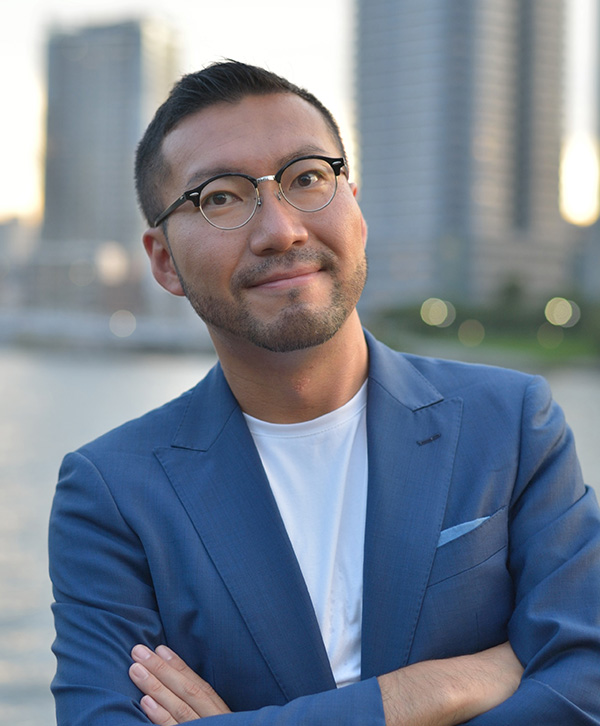
-
Health and Global Policy Institute, Chair
Ryoji Noritake
Mr. Ryoji Noritake is a medical anthropologist, the Chair of Health and Global Policy Institute (HGPI), a Tokyo-based independent think tank, and co-founder of The Human Activity Research Laboratory. He was a member of the Tokyo Metropolitan Government’s committee for Super Ageing Society (2018) and served as a Visiting Scholar at the National Graduate Institute for Policy Studies (2016-2020). He currently serves as a member of the World Dementia Council (WDC), the Advisory Council of the Salzburg Global Seminar, and the Dementia Innovation Alliance, hosted by the Ministry of Economy, Trade, and Industry (METI), Japan. He is a graduate of Keio University’s Faculty of Policy Management and holds an MSc in Medical Anthropology from the University of Amsterdam, the Netherlands. With Christian Madsbjerg and Mikkel B. Rasmussen, authors of "Sensemaking" and "The Moment of Clarity,” he co-founded The Human Activity Research Laboratory, an experimental research facility exploring the emerging relationship between technology and human activity in 2024.
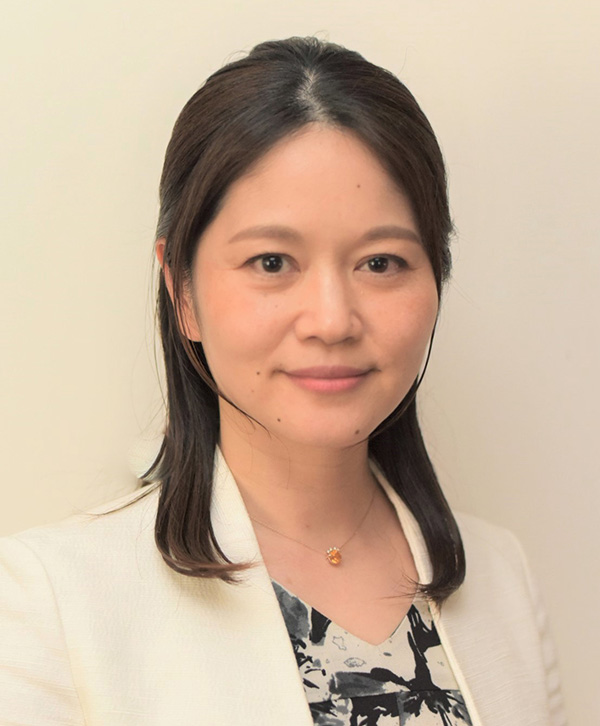
-
PHP Institute, inc., Research Fellow
Hisa Oiwa
Hisa Oiwa is a Research Fellow in the Policy Division of PHP Institute, Inc. She also serves as an Advisor at the Cabinet Public Relations Office, a Member of the Project Evaluation Committee at the Agency for Cultural Affairs, and a Coordinator at the Japan Productivity Center. Her work focuses on policy research and practice, particularly in the fields of soft power and public diplomacy.
At PHP Institute, she previously served as Deputy Editor-in-Chief of the Publishing Department, where she launched the World’s Intellect Series, which became an international bestseller with over 900,000 copies sold worldwide.
She holds a B.A. in Letters from Osaka University and is currently enrolled at the Graduate School of Public Policy, the University of Tokyo, alongside her professional responsibilities.
List of major publications and presentations
“Japan’s Narrative Power - Strategies for 2025 and Beyond” PHP Policy Proposal 2023
“War and Peace; Soft Power Strategy in Japan” The Mainichi Newspapers 2023
“Management of Cabinet Office – How to Organize Core-Executives” PHP Policy Proposal 2024
“Communicating Japan to the World” Panel discussion for Nippon.com 2024
“What Is the Real Cost-Benefit of the Osaka-Kansai Expo 2025?” Web Voice, 2025
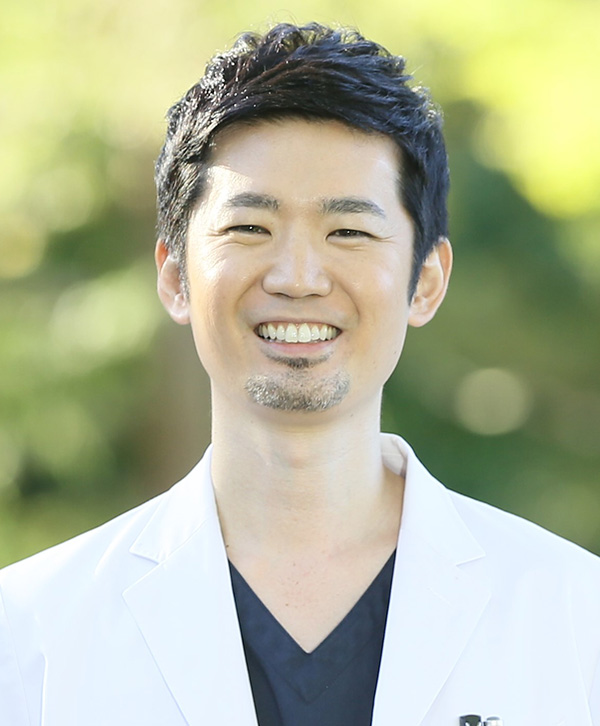
-
Aillis, Inc., CEO, Founder
Sho Okiyama
Sho Okiyama, M.D.
A physician with experience as a doctor-helicopter emergency physician, DMAT disaster relief team member, remote island doctor, and ship’s doctor. In 2017, he founded Aillis, Inc. and developed NODOCA, the world’s first AI-powered medical device for infectious disease diagnosis using a dedicated camera. The technology won the Startup World Cup in Silicon Valley among 30,000 global companies. His achievements have been recognized with the Minister of State for Science and Technology Policy Award at the Japan Venture Awards, the Minister for Internal Affairs and Communications Award at the ACC, and the Cabinet Office’s Japan Medical Research and Development Award. While continuing clinical practice, he works to bridge government, academia, and industry to advance the future of healthcare.
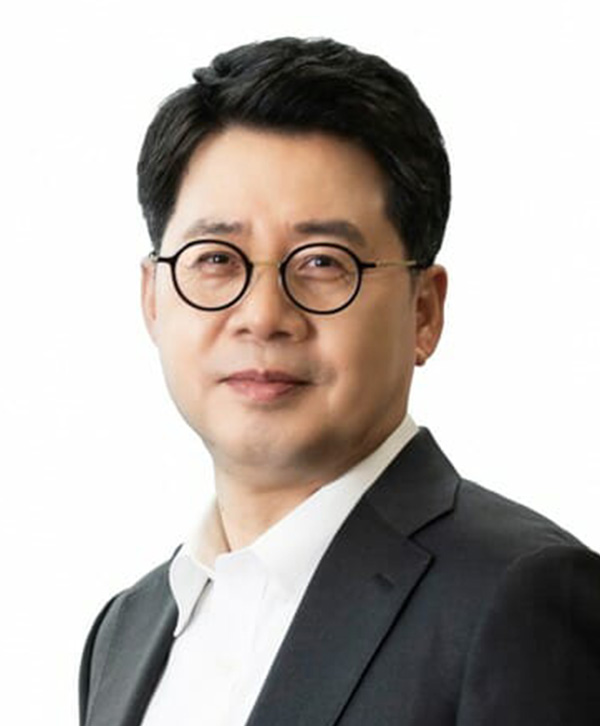
-
Sk Japan, President, Head of Japan, SK Group
Sangkyu Park
Career
Jun 2025–Present: Head of SK Group Japan Operations; President, mySUNI (SK Corporate University)
Dec 2023–Present: President & CEO, SK innovation; President, SUPEX Council Human Resources Development Committee
Jan 2023–Present: President & CEO, SK enmove; President, SUPEX Council Human Resources Development Committee
Mar 2017–Present: President & CEO, SK networks
Jan 2016–Present: Chief Operating Officer, SK networks Walkerhill
Jan 2011–Present: Head of Chairman’s Office Secretariat, SK Co., Ltd.
Jan 2010–Present: Head of Retail Marketing Division, SK Energy
Jan 2009–Present: Head of S-movilion Business Division, SK Networks
Jan 2007–Present: Head of Planning Division, SK Co., Ltd.
Mar 2004–Present: Head of Retail Strategy Team, SK Co., Ltd.
Jan 1987–Present: Joined SK Co., Ltd.
Education
Mar 1983 – Feb 1987: Bachelor of Business Administration, Seoul National University
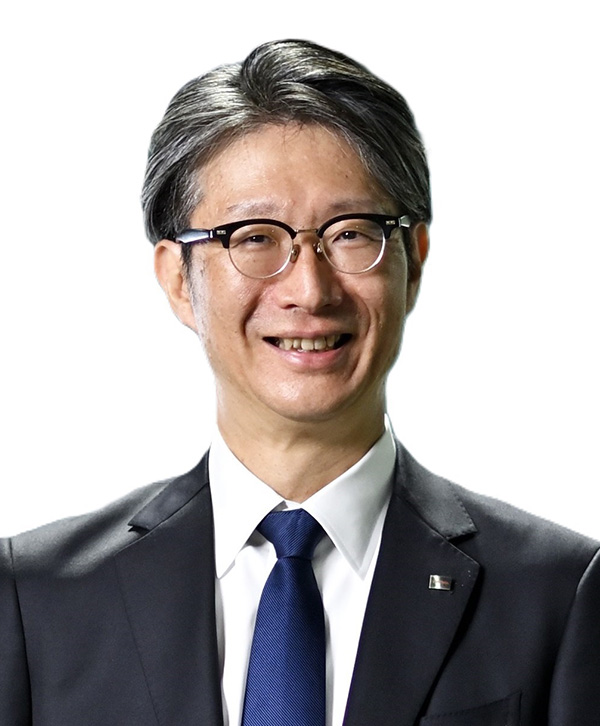
-
Toshiba Corporation, Representative Director, Corporate Offcer, President & CEO
Taro Shimada
Taro Shimada started his career at ShinMaywa Industries, Ltd., and after working at Siemens K.K., he joined Toshiba in October 2018 as Corporate Digital Business Chief Strategy Officer.
In April 2019, he became Chief Digital Officer, responsible for Toshiba’s digital transformation and for strategic business creation and promotion. He was appointed CEO & Representative Director of Toshiba Data Corporation in February 2020, and President and CEO of Toshiba Digital Solutions Corporation in April 2020. In March 2022, Mr. Shimada was appointed to take the reins at Toshiba, as President & CEO.
In May 2022, he was appointed Chair of the Board of Q-STAR (Quantum STrategic industry Alliance for Revolution), a consortium that promotes business creation with quantum technologies.

-
cent. Force CO.,LTD, Business and economics news anchor /Business journalist
Yurina Takiguchi
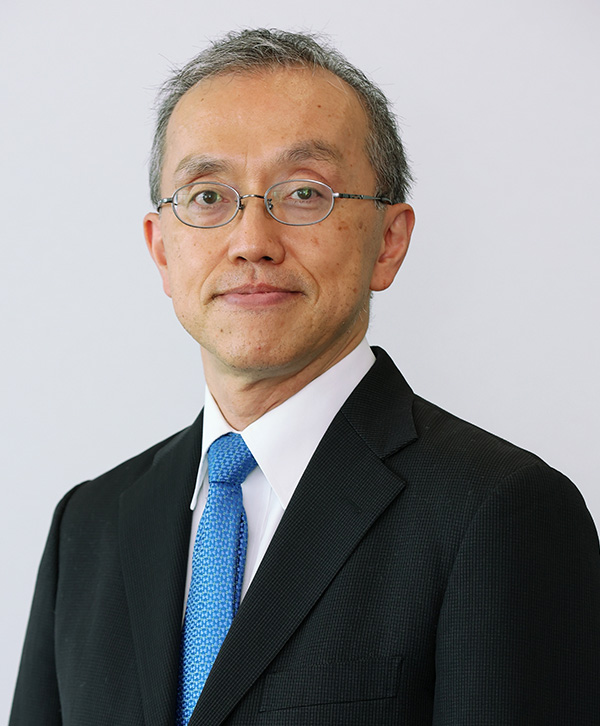
-
THE YOMIURI SHIMBUN, OSAKA, President
Takayuki Tanaka
Date of Birth: 11 Feb 1965
Education: B.A. Waseda University (School of Political Science and Economics)
Work Experience
1987 Joined the Yomiuri Shimbun
1992 Political News Department
2017 Corporate Officer/Chairman, Editorial Board
2018 Director/Chairman, Editorial Board
2019 Director/Managing Editor
2020 Managing Director/Managing Editor
2022 Senior Managing Director/Chief Officer, Administration, Group Businesses
2024-Present President The Yomiuri Shimbun,Osaka
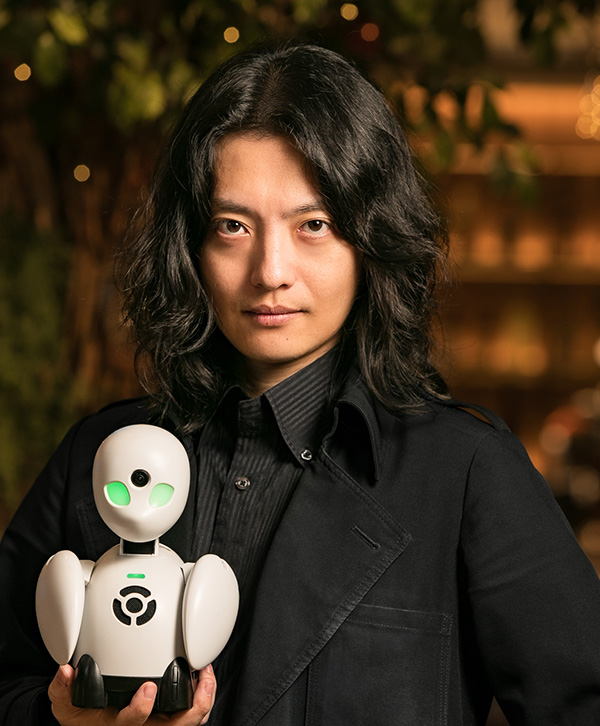
-
OryLab, CVO
Ory Yoshifuji
While in high school he participated in the invention of an equalization mechanism for electric wheelchairs, winning the Ministry of Educations, Culture, Sports, Science and Technology Award in 2004 at the High School Science and Technology Challenge (JSEC). The next year he represented Japan in the International Intel International Student Science and Technology Fair (ISEF) held in the United States where he got 3rd place. After studying artificial intelligence at a college of technology, he went to Waseda University School of Science and Engineering. Based on his own true experiences, he developed the notion of “OriHime”, an avatar communication robot to combat loneliness (in 2012 he was awarded the “Human Power Award” for this achievement). This lead to establishment of Ory Laboratory Co., Ltd. a company that aims to decimate the avatar robot notion to as many people that can benefit from it as possible. According to himself his own personal mission is “I want to make it so that people are able to meet the people they want to even while staying in their sickbed, and at the same time I am aiming to create a future where everyone can participate in society”, that is why I continue promoting the development of communication technology such as OriHime. By the way my hobby is Origami, the art of Japanese paper folding.

-
OryLab, Co-Founder
Aki Yuki
Graduated from International Christian University and studied as an exchange student at University College London (UCL).
Inspired by her personal experience of hospitalization with tuberculosis, she founded Ory Laboratory, Inc. in 2012 while still a senior at university, with the mission of eliminating loneliness through the development and provision of communication robots. From its founding until stepping down in 2022 due to health reasons, she served as Director, CFO, and COO.
In 2019, she was selected for Forbes Japan’s “30 Under 30” in the Science category.
Ory Laboratory’s avatar robot café “DAWN,” launched in 2021, received numerous international awards including the Prix Ars Electronica Golden Nica and the Good Design Grand Award.
After resigning from the board in 2022 for medical treatment, she has continued to contribute to Ory Laboratory’s overseas initiatives while also supporting local revitalization projects in collaboration with municipalities. Her media appearances include Shinichi Hatori’s Morning Show (July 2021), as well as lectures at Columbia University, Hitotsubashi University Graduate School, and RDD (Rare Disease Day).
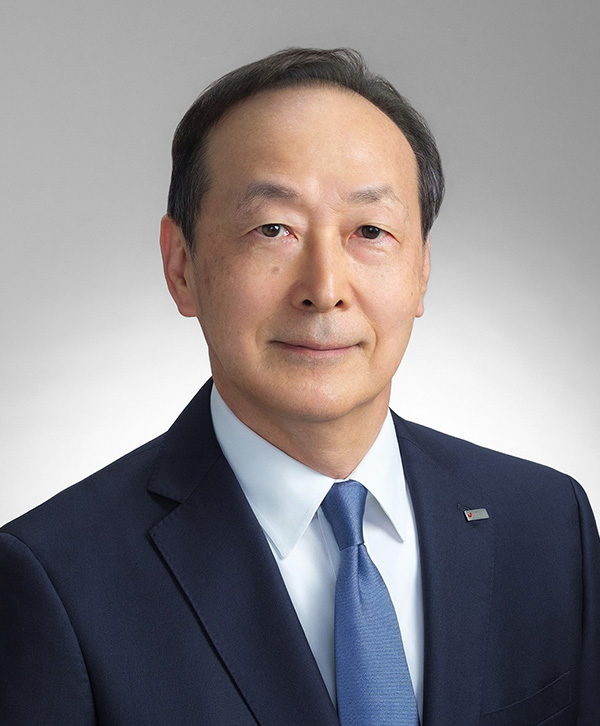
-
Electric Power Development Co.,Ltd., Chairman of the Board Representative Director
Toshifumi Watanabe
June 2023 – present Chairman, Member of the Board of Directors
April 2019 President and Chief Executive Officer, Member of the Board of Directors
June 2016 President, Member of the Board of Directors
June 2013 Executive Vice-President, Member of the Board of Directors
June 2010 Executive Managing Director and Deputy Headquarters Director of Nuclear Power
June 2009 Executive Managing Director, Member of the Board of Directors
June 2006 Executive Director, Member of the Board of Directors
April 2004 Director of Corporate Planning and Administration Dept.
April 2002 Director, Corporate Planning Dept. & Office Director, Privatization and IPO Office
July 2000 Director, Privatization and IPO Office, Corporate Planning Dept.
October 1993 Manager, Planning Section, Corporate Planning Dept.
October 1991 Manager, Nuclear Power Administration Office, Nuclear Power Dept.
April 1977 Joined J-Power (Electric Power Development Co., Ltd., Japan, or EPDC)
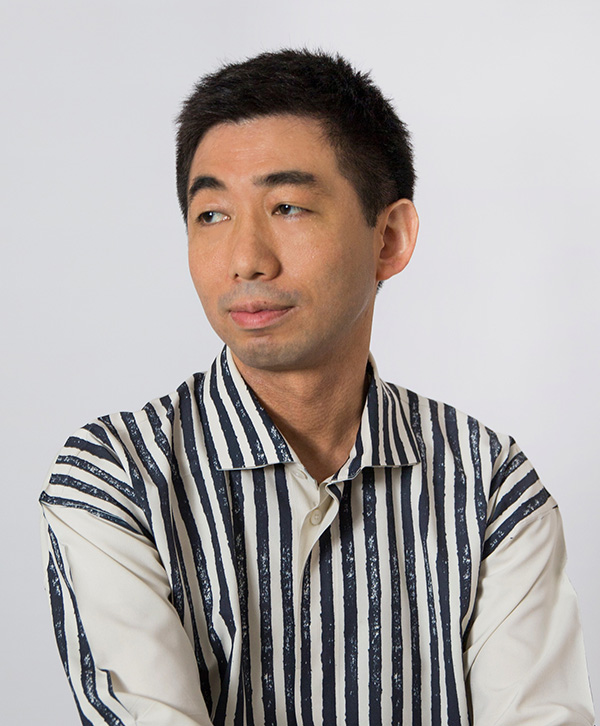
-
NTT, Inc., Senior Distinguished Researcher
Junji Watanabe
He studied virtual reality and perceptual psychology at the Graduate School of the University of Tokyo, and after completing
his doctoral studies, he became a researcher at JST PRESTO in 2005 and at NTT Communication Science Laboratories in 2013.
His areas of expertise include haptic informatics, positive computing, and social wellbeing theory.
From the perspective of human information science, he conducts research on human tactile mechanisms, communication,
and information transmission. He is the author of “Tactility” (2014, Kagaku Doujin, winner of the Mainichi Publication Culture Award) and
“Information Umwelt” (co-author, 2019, NTT Publishing), ”Design Theory of Wellbeing" (supervisor and co-translator, 2017, BNN),
"Towards Collective Wellbeing “ (co-author and editor, 2020, BNN), ”How to Create Wellbeing“ (co-author, 2023, BNN),
and ”Wellbeing Competencies" (coauthor, 2025, Toyokan Shuppansha), among others.
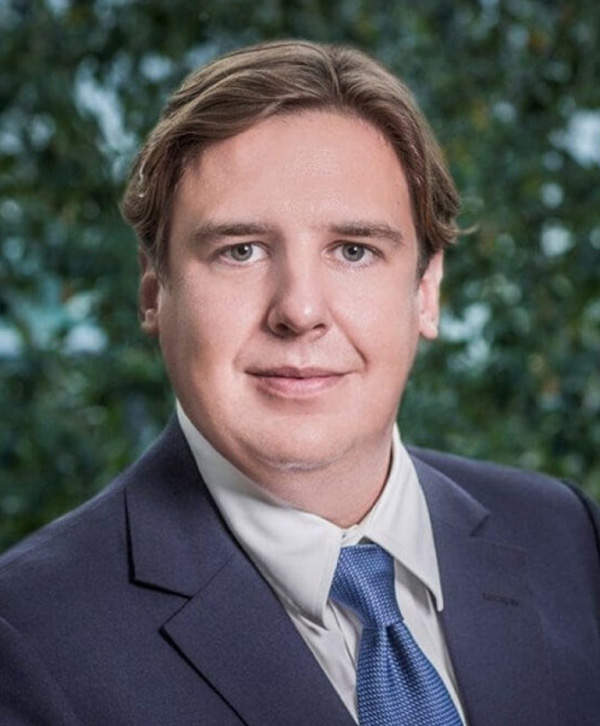
-
GESDA, Board Member
Anton Rupert
Non-executive Director,
South African, born 1987Mr Anton Rupert was appointed to the Board of Compagnie Financière Richemont as a Non‑executive Director in 2017 and is a member of the Strategic Security Committee, and was a member of the Nominations Committee until April 2022.
He was a director of Watchfinder.co.uk from July 2018 to December 2019. He serves as a Non‑executive Director of Remgro Ltd. He is a partner of Compagnie Financière Rupert. He is a member of the board of GESDA, the Geneva Science and Diplomacy Anticipator. The goal of the Foundation is to explore how advances in science and technology can most efficiently be translated into and used as tools for the benefit of humanity.
Mr Anton Rupert is a non-voting observer designated by Reinet Fund S.C.A., F.I.S. to the board of Carbon, Inc., a leading digital manufacturing platform. Since January 2021, he is a member of the Advisory Board of Asia Partners Fund LP I, a regional South East Asia private equity fund focused on growth stage technology‑based opportunities.
He has knowledge of and insight into tech start-ups and has had extensive exposure to all of the Group’s businesses. He brings valuable insight into changing consumer behaviour in digital marketing and web-based commerce.
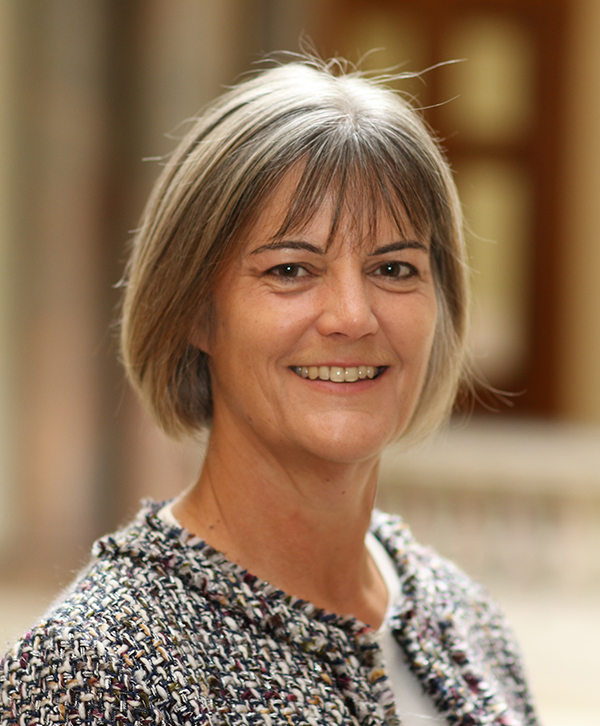
-
British Ambassador to Japan
Julia Longbottom
Julia Longbottom was appointed British Ambassador to Japan in March 2021. She has spent over half her career as a diplomat working on North-East Asian affairs. This includes two previous postings to the British Embassy in Tokyo, first as Second Secretary Political in 1990 to 1993, then Minister and Deputy Head of Mission in 2012 to 2016. In the Foreign & Commonwealth Office (FCO) in London, she led on Hong Kong Nationality and Immigration issues in 1994 to 1997, and headed the Far Eastern, then China, Department in 2009 to 2012. She is a Japanese speaker, and the first woman to hold the post of British Ambassador to Japan. Prior to this, she was the FCO’s Director for Consular Services globally (2016 to 2020), and set up and ran the Coronavirus Task Force for 6 months in 2020. She has held a range of other roles including Director of Strategy and Human Resources in UK Trade & Investment (2006 to 2009), Consul General in Warsaw (2003-2006), and Head of Political/EU affairs in the British Embassy in The Hague (1998-2002). She graduated from Cambridge University (Jesus College) in 1986 with a degree in French and German. Married to Richard Sciver, with three adult children (two daughters, one son). Her hobbies include tennis, golf and skiing and other outdoor activities.
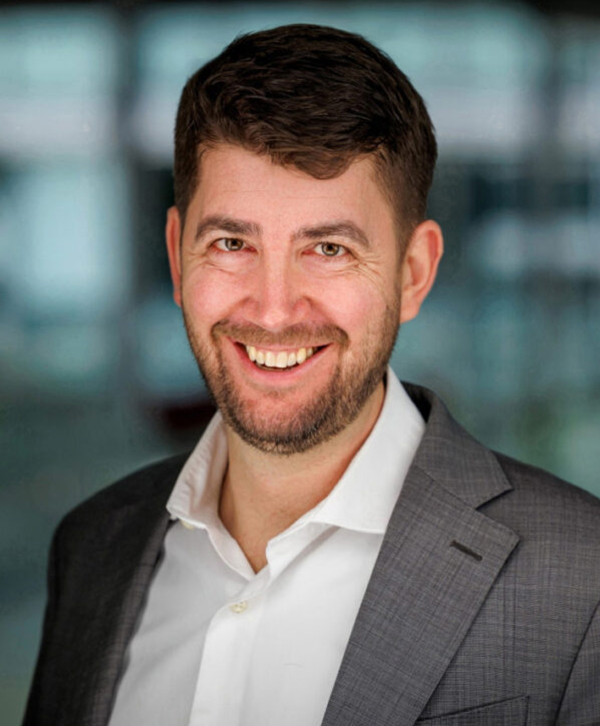
-
Geneva Science and Diplomacy Anticipator Foundation (GESDA), Executive Director Science Anticipation
Martin Müller
Dr Müller leads the science anticipation work at GESDA - the core of the foundation's work. Science and technology is an accelerating and transformative force for the future of humanity and the planet. As such it is crucial to anticipate future advances in science and understand their implications on people, society and the planet. This work is released and continuously updated in the GESDA Science Breakthrough Radar, building on the collaboration with close to 2500 researchers from 90 countries, over 40 fields of research, science and technology. Prior of joining GESDA, Dr Müller been working at the interface between science, science policy, politics and diplomacy at SwissCore – the Swiss Contact Office for Education, Research and Innovation (ERI) – in Brussels, first as a research advisor and then as co-director. In this role, he helped shape the involvement and safeguard the influence of Swiss ERI organizations with respect to the European Union, its institutional bodies and related organisations, at a critical time in Swiss-EU relations. In addition, Mr Müller held leadership roles in pan-European science organizations, such as chair of the Science Europe working group on Horizon Europe, the EU’s €80 billion research and innovation programme, and coordinator of a large pan-European initiative on strategic planning and funding for research facilities. He joined GESDA in September 2019 as Executive Director of the Academic Forum. Dr Müller has a doctoral degree in biomedical engineering.

